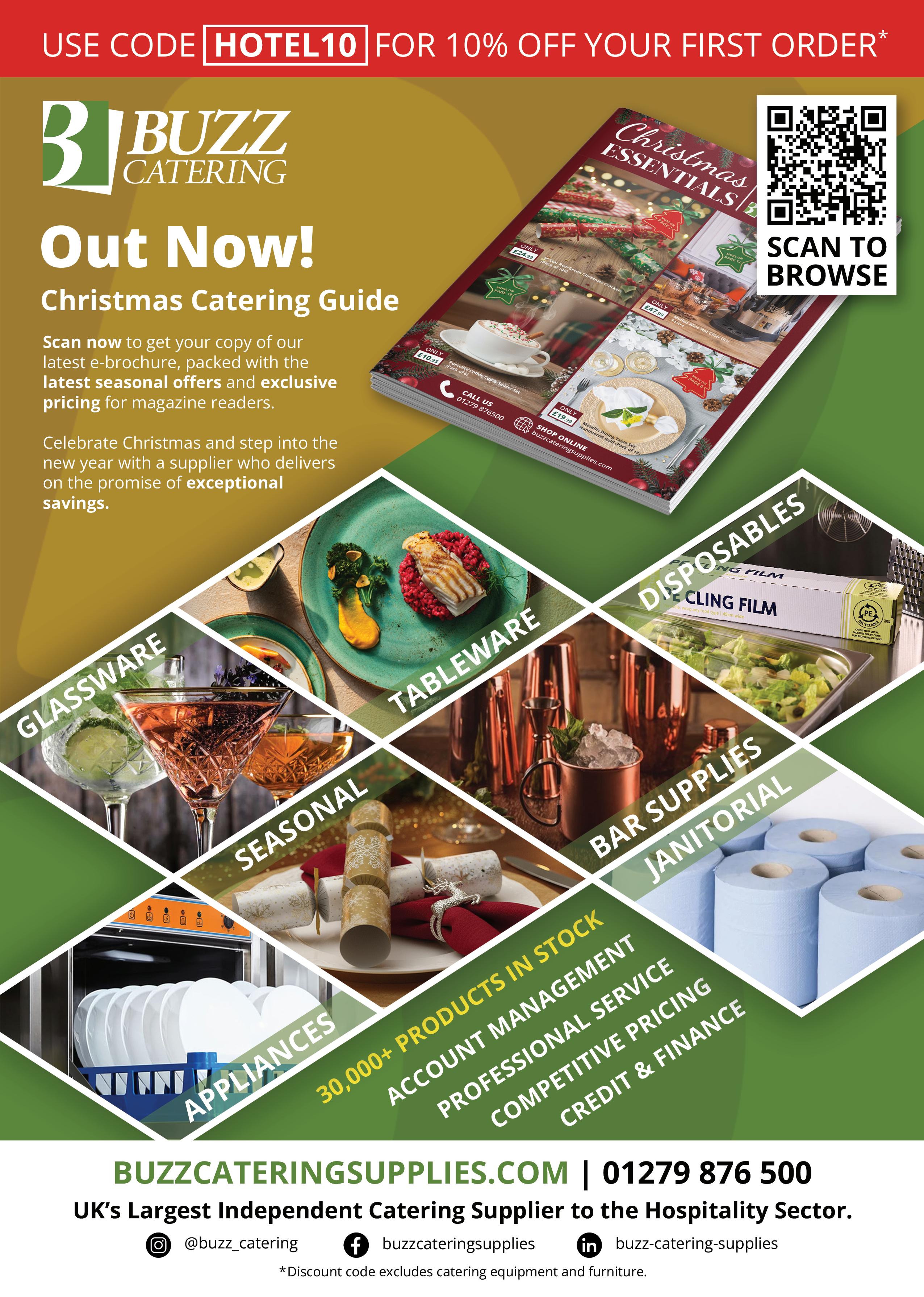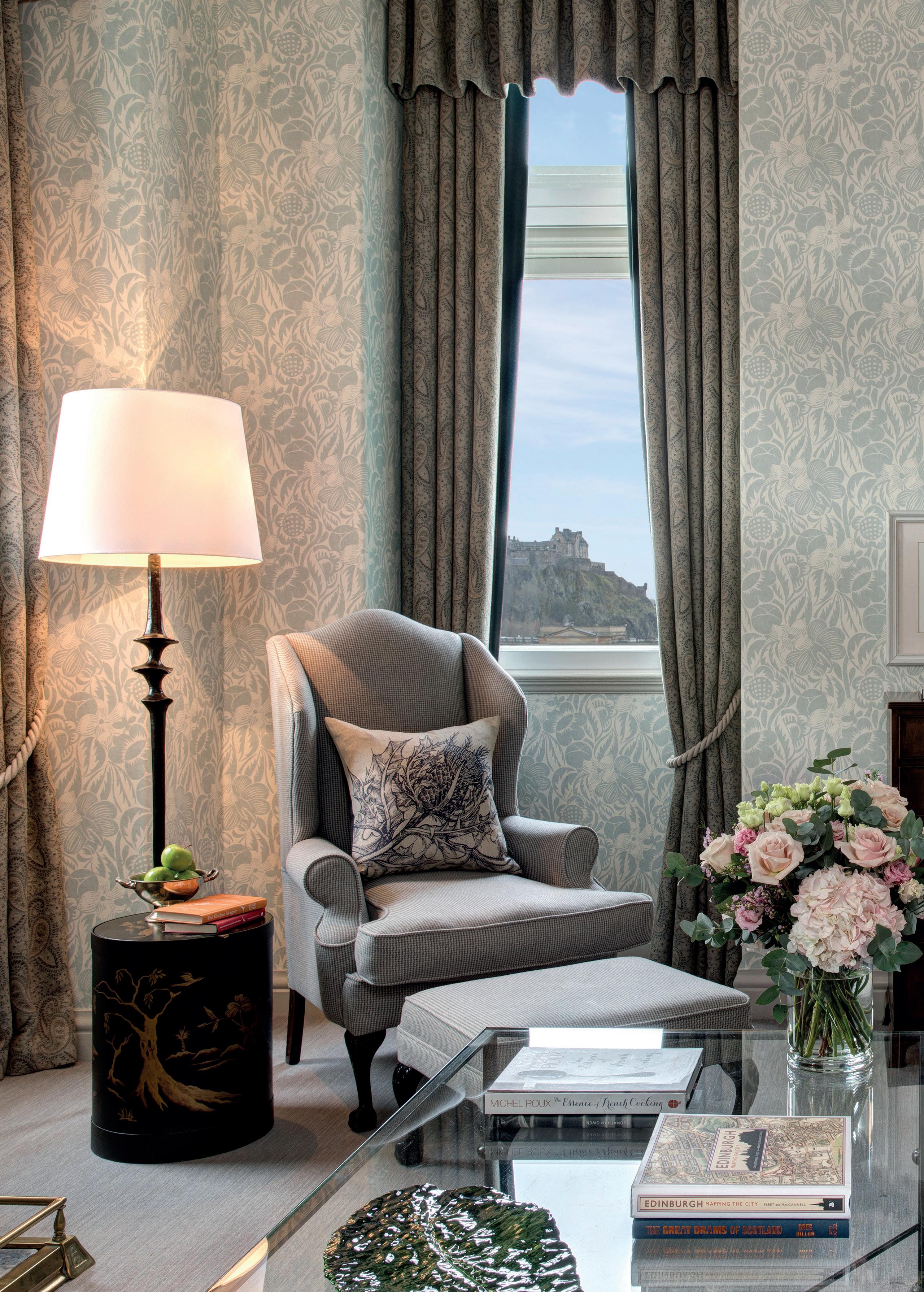
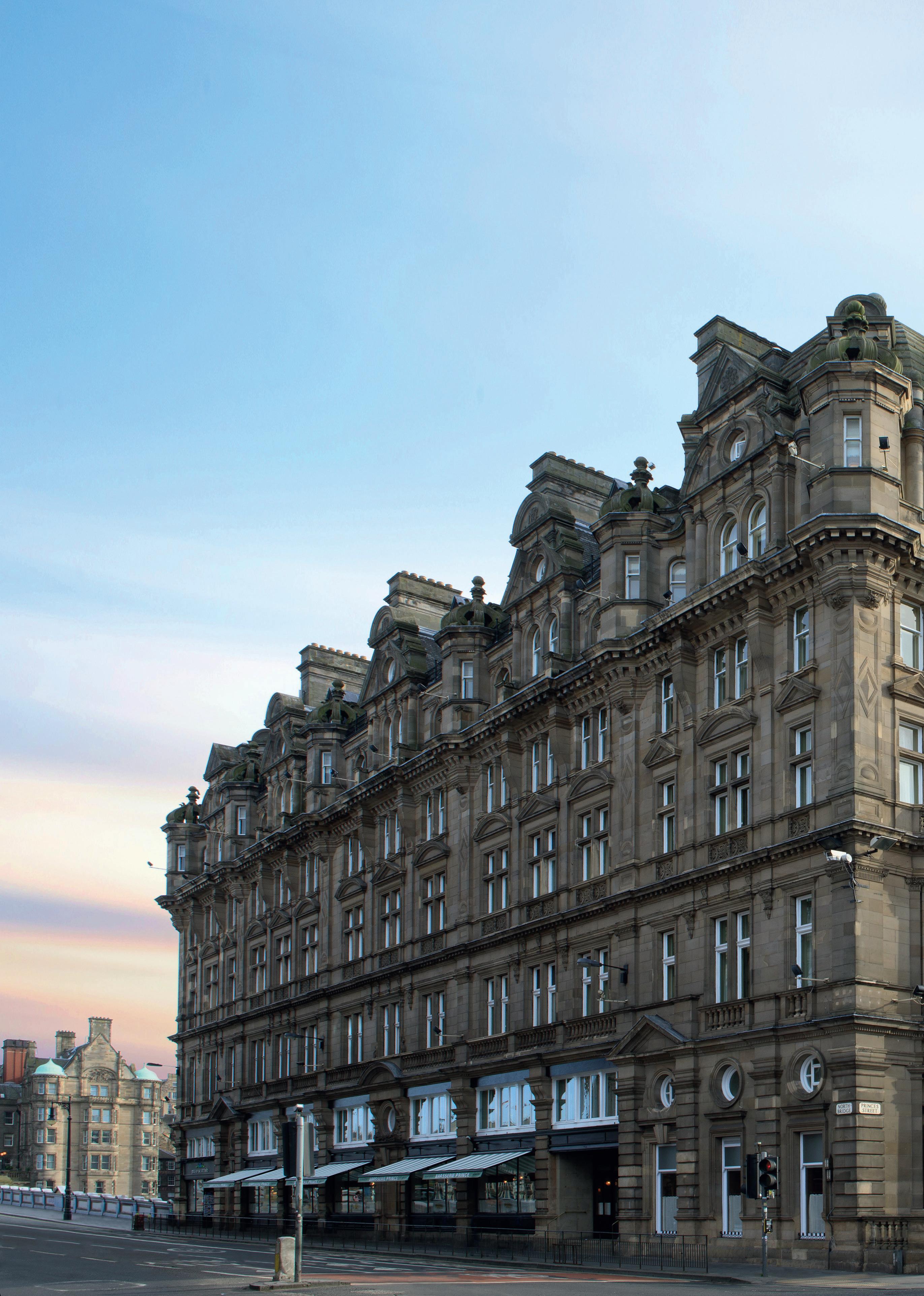
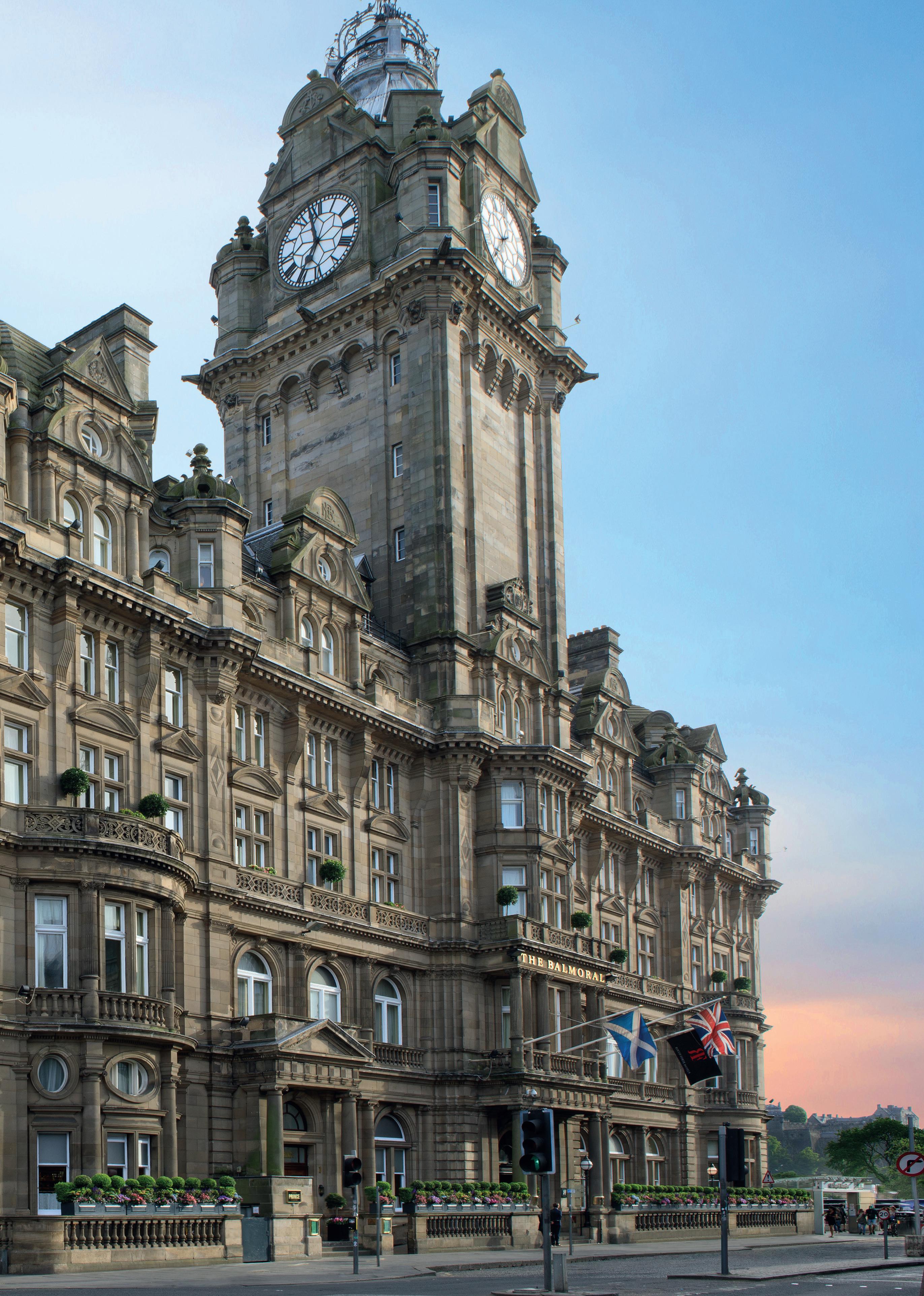


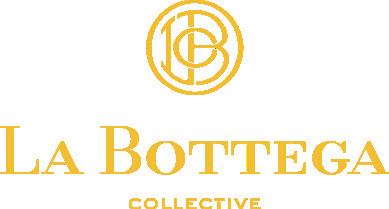

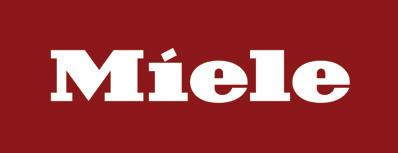
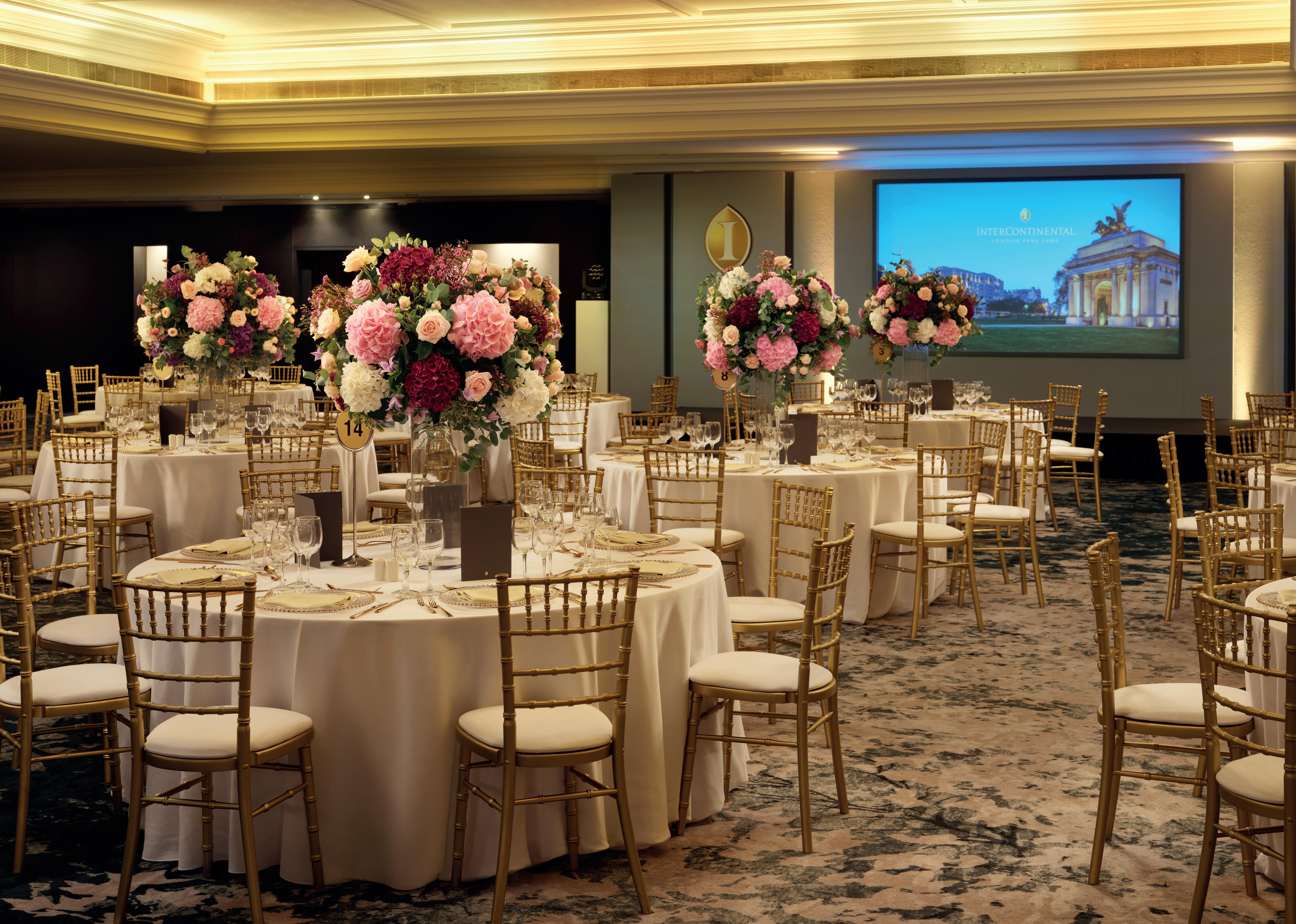






Deadline 16th January 2026



















Deadline 16th January 2026



As we reach the final pages of 2025, it’s impossible not to reflect on what has been a defining year for hospitality. A year of accelerated innovation, strategic reinvention and, above all, resilience. You, our loyal readers, have continued to demonstrate a remarkable ability to adapt, evolve and strengthen, proving once again that this industry doesn’t just weather storms; it learns how to sail better.
In this December issue, we look back on the past 12 months through the eyes of those who know it best. Our 2025 Round Up gathers commentary from leading industry voices, offering candid reflections on the challenges, triumphs and lessons that have shaped the year.
Of course, no 2025 retrospective would be complete without addressing the sector’s relentless pursuit of technological advancement. This month, our Technology section dives into “The Tech Arms Race in Hospitality”, a deep exploration of how hotels are investing in innovation to stay ahead, and the trailblazers setting the benchmark. In this same focus, we bring you expert insights from TalkTalk, helping demystify the infrastructure and digital priorities modern hotels can no longer ignore.

Looking beyond the algorithms and automations, we also shine a spotlight on the evolving art and science of profitability. Our Revenue Management feature, “Beyond the Room Rate,” examines how hotels are diversifying to unlock new revenue streams, from spa to supper club, car park to curated experiences, as travellers increasingly seek holistic journeys, not just a place to sleep.
In this instalment of HMA updates, you’ll find our judges’ profiles, along with a closer look at some of our sponsors, Human One, Belu and SumUp, each playing a vital role in supporting and championing the future of hospitality.
And because this industry’s heartbeat has always been its people and places, this issue is rich with character and conversation. Enjoy our interviews with Dover Marina, Grand Hotel Courmayeur Mont Blanc, Montana Lodge & Spa, and UK Hospitality, alongside our ‘In the Hot Seat’ piece which features Adrian Ellis, Founder of Hospitality Connect. Discover our Hotel of the Month – Careys Manor Hotel & SenSpa, explore a series of standout venue profiles, and gain valuable perspective from our guest columnists, including Hospa and The Grand York’s, Lisa Williams.
From all of us at Hotel Magazine, thank you for joining us for another remarkable year.
See you in 2026.

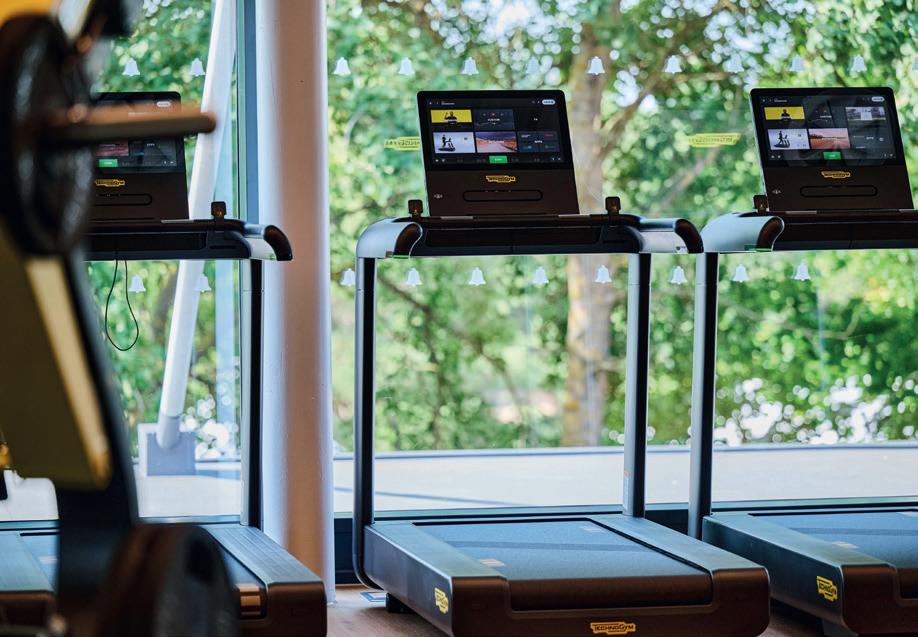
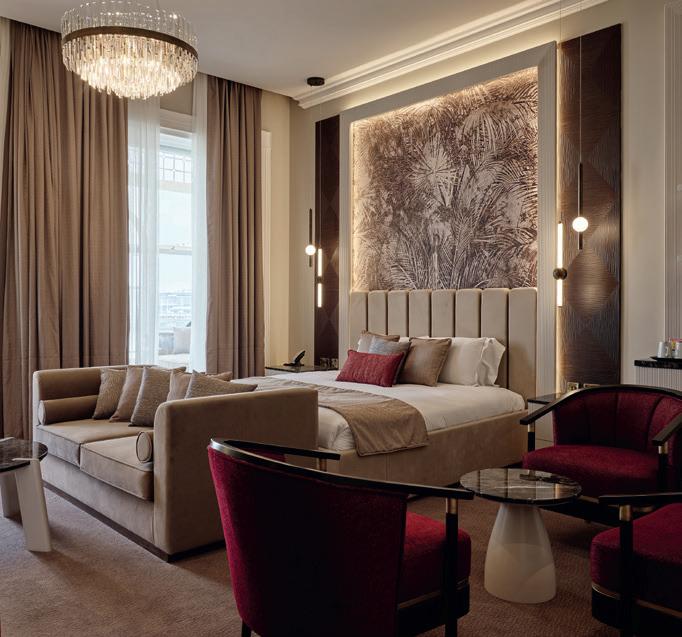
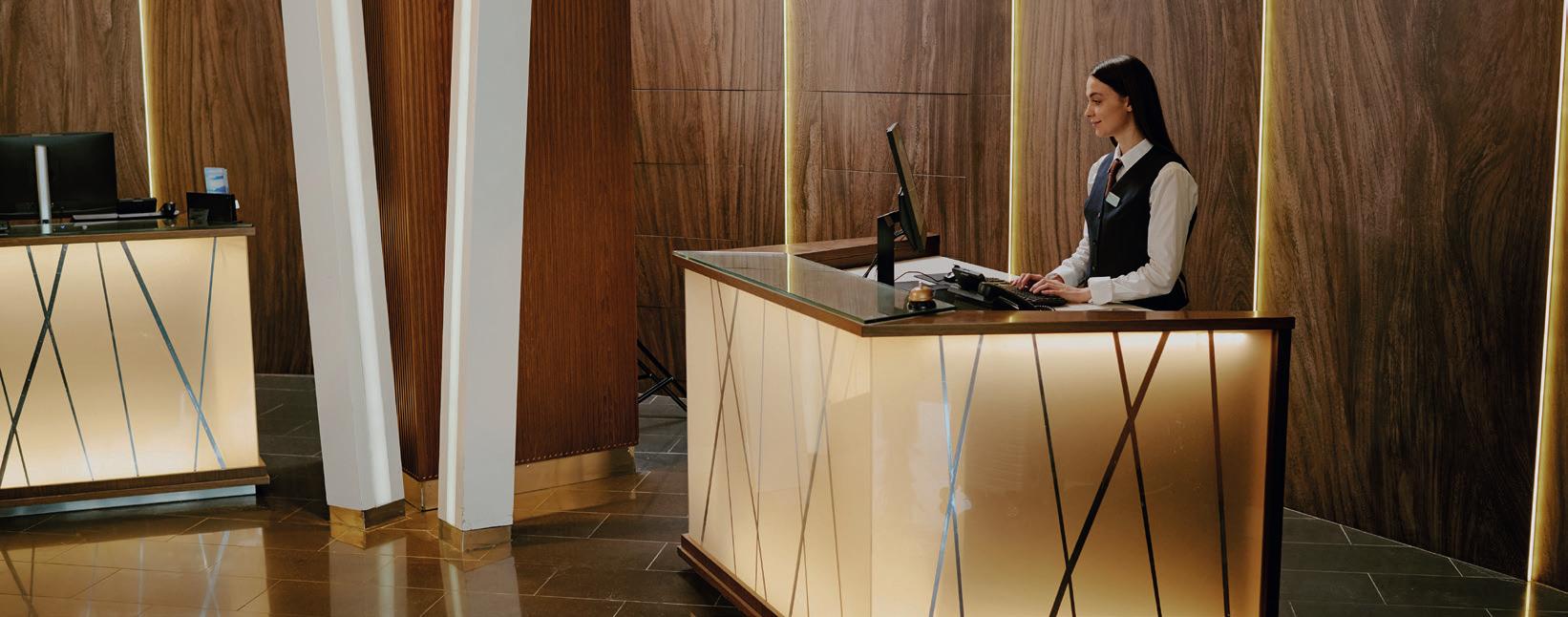
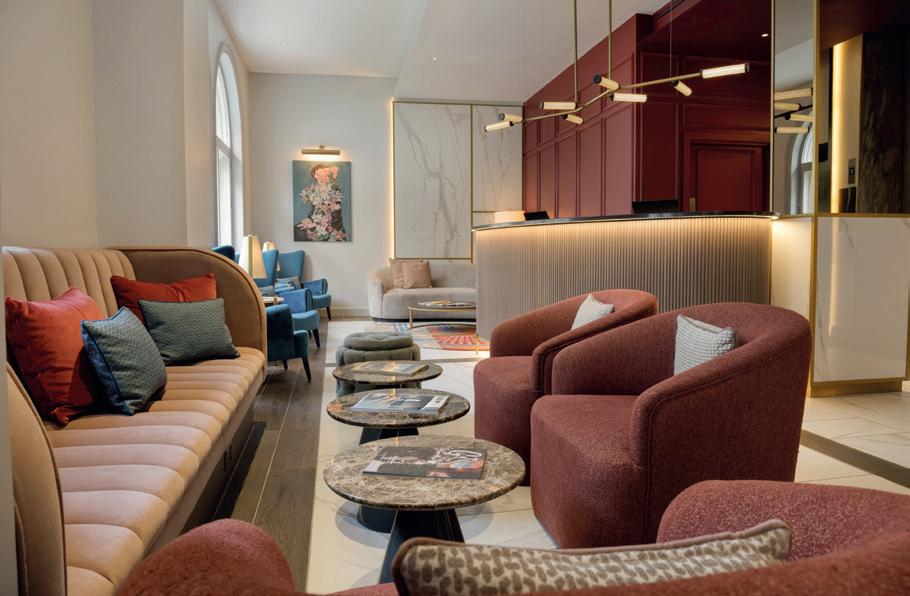
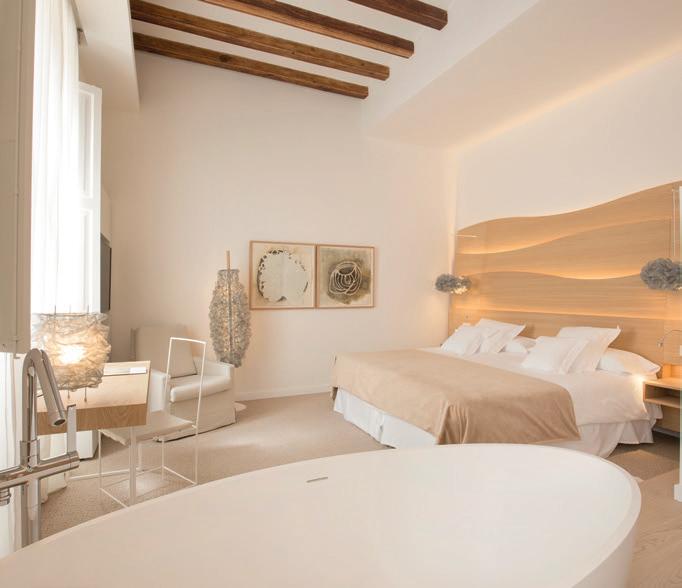
EDITOR-IN-CHIEF
Jade Evans
jevans@thehotelmagazine.co.uk
HEAD OF BUSINESS DEVELOPMENT
Jazmine Davis
jazmine@thehotelmagazine.co.uk Tel: 01795 509 105
ACCOUNT MANAGER
Harrison Hume hh@cimltd.co.uk Tel: 01795 509 105
MARKETING MANAGER
Lucas Payne lucas@cimltd.co.uk
ADMINISTRATION MANAGER
Natalie Woollin admin@cimltd.co.uk
DESIGN AND PRODUCTION
Grant Waters grant@cimltd.co.uk
James Taylor james@cimltd.co.uk
HEAD OF DIGITAL
Xhulio Bishtaja digital@cimltd.co.uk
SOCIAL MEDIA MANAGER
Lily Lawson socials@cimltd.co.uk
Wondering what’s currently happening within the hotel sector? We reveal all as we share insights into some of the latest news.
With the 2026 event now around the corner, we are proud to reveal our judging panel as well as details on some of our partners.
Taking to the famed Hot Seat this December is Adrian Ellis MI FIH, Experienced Hotelier and Chairman of the Hotel Leadership Conference.
As we bid farewell to another incredible year, we call on some familiar faces from the industry who offer their personal ‘year in review’ for 2025.
We explore how leading venues are investing in innovation to stay ahead of the curve.
Going beyond the room rate, we call upon exerts to find out how hotels are maximising revenue beyond traditional room sales.
CREDIT FACILITIES MANAGER
Gwen Lee
creditcontrol@cimltd.co.uk
Tel: 01795 509 103
DIRECTOR
Declan Wale
declan@thehotelmagazine.co.uk
Tel: 01795 509 112
Tom Woollin tom@cimltd.co.uk
MANAGING DIRECTOR
John Denning
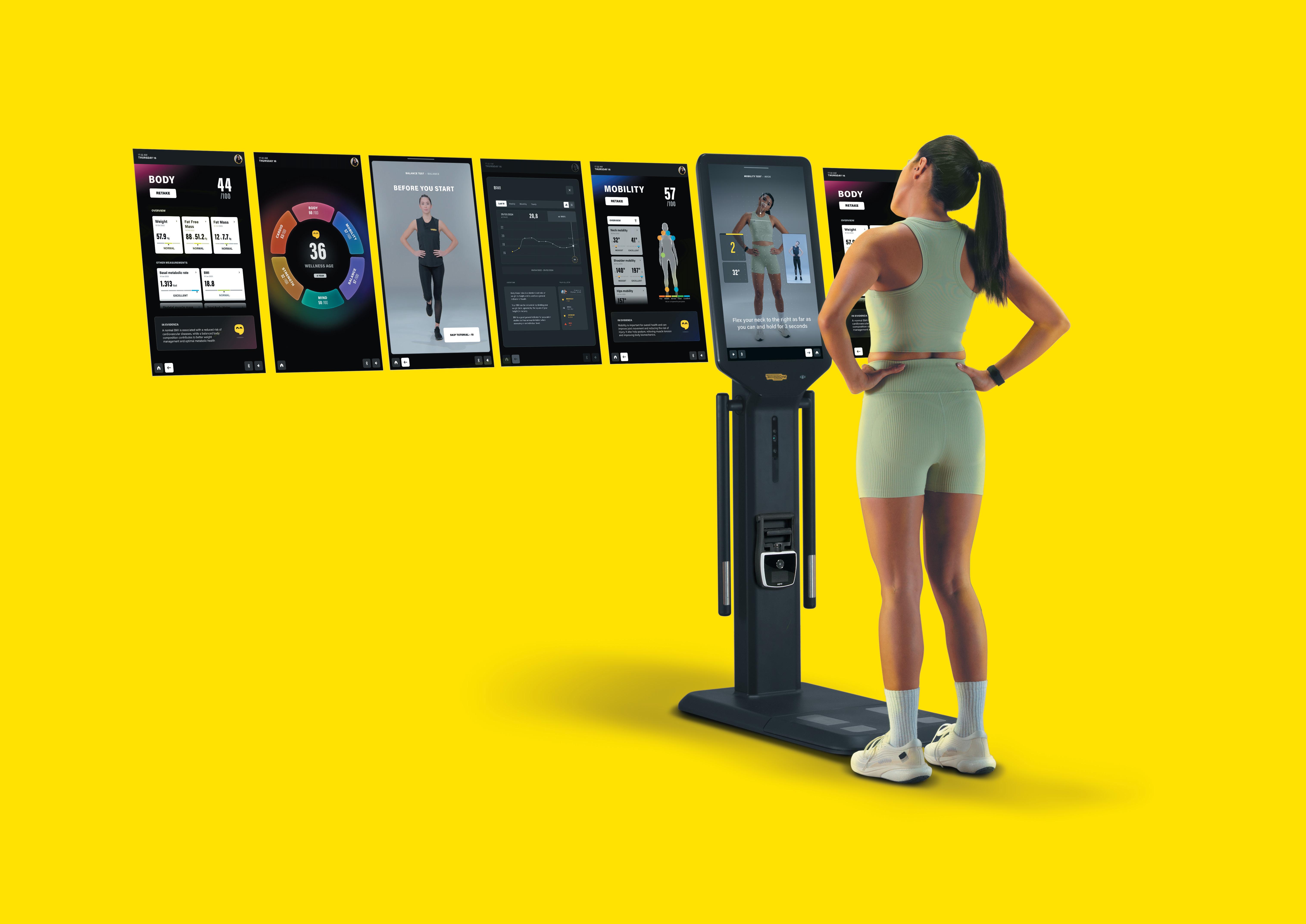


room2 Belfast, the fully electric, operationally Net Zero hometel by sustainable hospitality developer, Lamington Group, has achieved Platinum certification, the highest award under the WELL Standard*. room2 Belfast is the first WELL Platinum hotel in the UK and Europe, and the fourth WELL Platinum hotel in the world. WELL is the world’s leading framework for promoting health and well-being in the built environment, developed by the International WELL Building Institute (IWBI). By achieving the highest level under the prestigious standard, Lamington Group continues to demonstrate their leadership in the hospitality industry by creating spaces that positively impact wellbeing and strengthen communities.
As part of the WELL Certification journey, detailed performance verification was carried out, including onsite testing of air, water, thermal comfort, lighting and acoustics. room2 Belfast was awarded 83 points in total, including six ‘innovation’ points. This milestone reflects Lamington’s ambition to design and operate net-zero hotels, with room2 Belfast using 90% less carbon per night compared to the average UK hotel. Lamington also emphasises enhancing wellbeing for guests and teams, recognising the intrinsic link between sustainability and
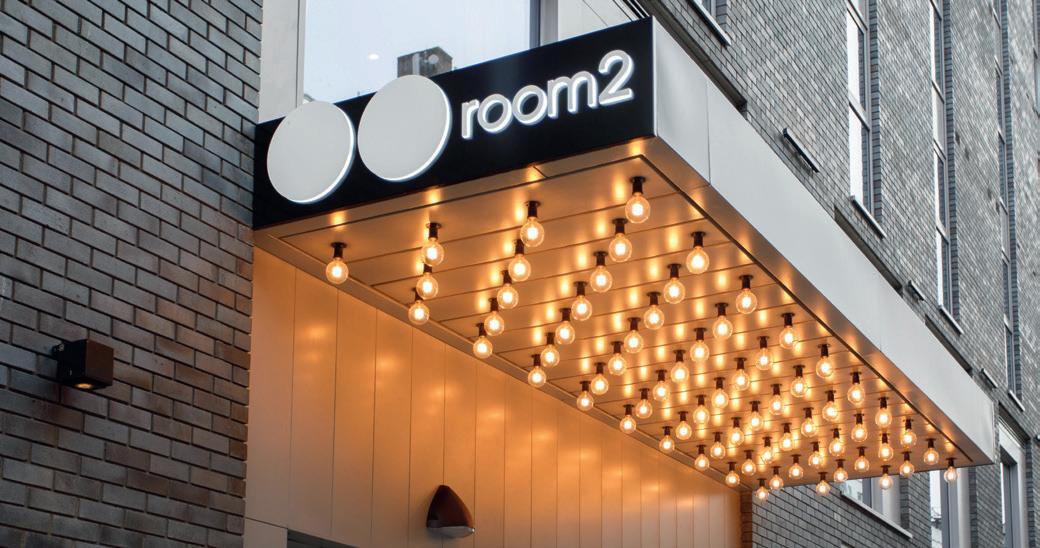
health. This achievement adds to the property’s impressive list of accreditations, including B Corp, Living Wage Foundation accredited, Green Tourism Gold, Greengage ECOsmart Platinum and Carbon Neutral in accordance with ISO 14064.
“Well-being is a key priority for our guests and their families. More and more, sustainability and wellbeing are recognised as interconnected and closely tied to healthy living. Achieving WELL Platinum at room2 Belfast shows that we can create spaces that support both - where comfort, health and environmental responsibility all come together,” - Said CEO, Robert Godwin.
Just opened, Fulham Pier Hotel debuts as a luxury boutique retreat and highly-anticipated addition to Fulham Pier – a new riverside destination on the Thames. Set within one of London’s most ambitious waterfront developments, the 13-room hotel offers a refined, design-forward retreat at the intersection of culture, leisure, and city living.
Designed to feel more like a private residence than a traditional hotel, Fulham Pier Hotel blends classic materials with a contemporary spirit. Each room features thoughtful detailing and tactile finishes – natural stone, warm wood, polished metals – with a fresh color palette inspired by the River Thames: calming azzurro, vibrant ruby, rich emerald, and playful terrazzo. Marble-clad bathrooms with walk-in rain showers and luxurious Diptyque amenities turn daily routines into sensory rituals.
Nine River Rooms offer breathtaking river views through signature floor-to-ceiling windows, flooding the space with light and tranquility, while three Junior Suites include private balconies and inviting lounge areas – ideal for slow mornings and restful evenings. At the pinnacle of the hotel is the Owner’s Penthouse – a private riverside sanctuary with open-plan living, an expansive terrace, and uninterrupted Thames views. Its marble-clad bathroom features a walk-in rain shower and statement rolltop bathtub overlooking the river, inviting guests to soak in the scenery. The private terrace – complete with an outdoor kitchen, bar, and heated pergola – provides a
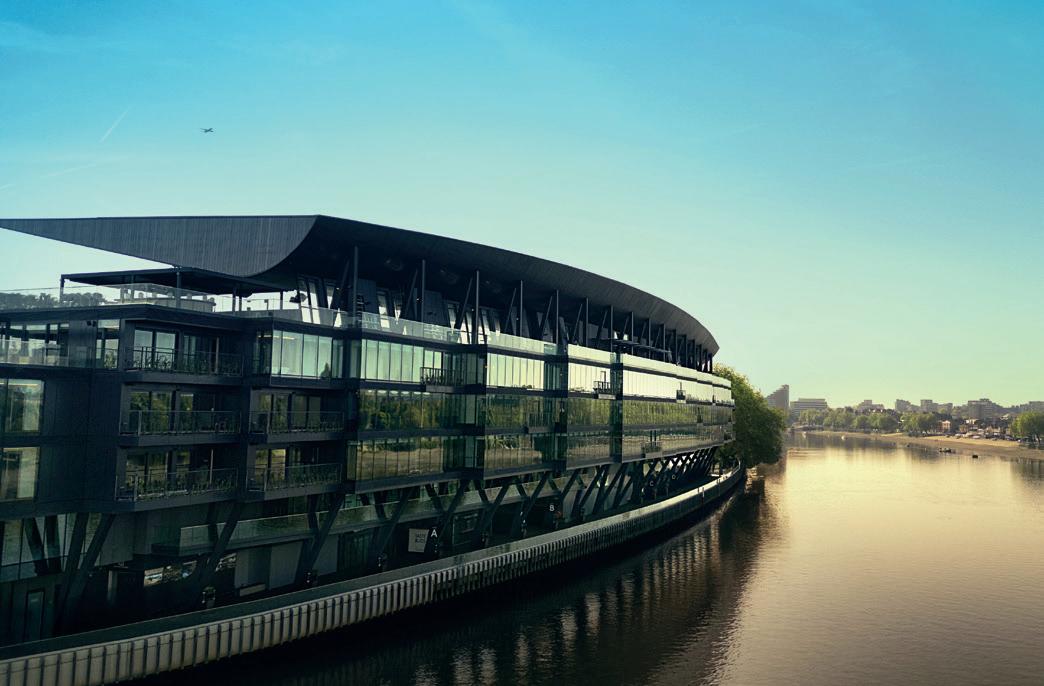
picture-perfect setting for al fresco dining or late-night entertaining under the stars.
Central to this experience is Lighthouse Social, London’s newest private members’ club, where hotel guests enjoy exclusive access to restaurants, bars, lounges, and private dining rooms – all complemented by panoramic river views, eclectic interiors, and a sweeping 2000sqft rooftop terrace.
Glen Sutton, Director of Fulham Pier, comments: “Fulham Pier Hotel represents a new kind of London hospitality – intimate, design-driven, and deeply connected to the culture and energy of the city. There is no other riverside setting like this in London.”
Fulham Pier Hotel will be operated by Siggis Capital.
Discover the A Line, Franke’s automatic coffee machines that make every sip all about the moment. Incorporating cutting-edge Swiss technology and sleek design, find out how the A Line can enhance your hotel’s beverage ROI –and inspire guests to return.



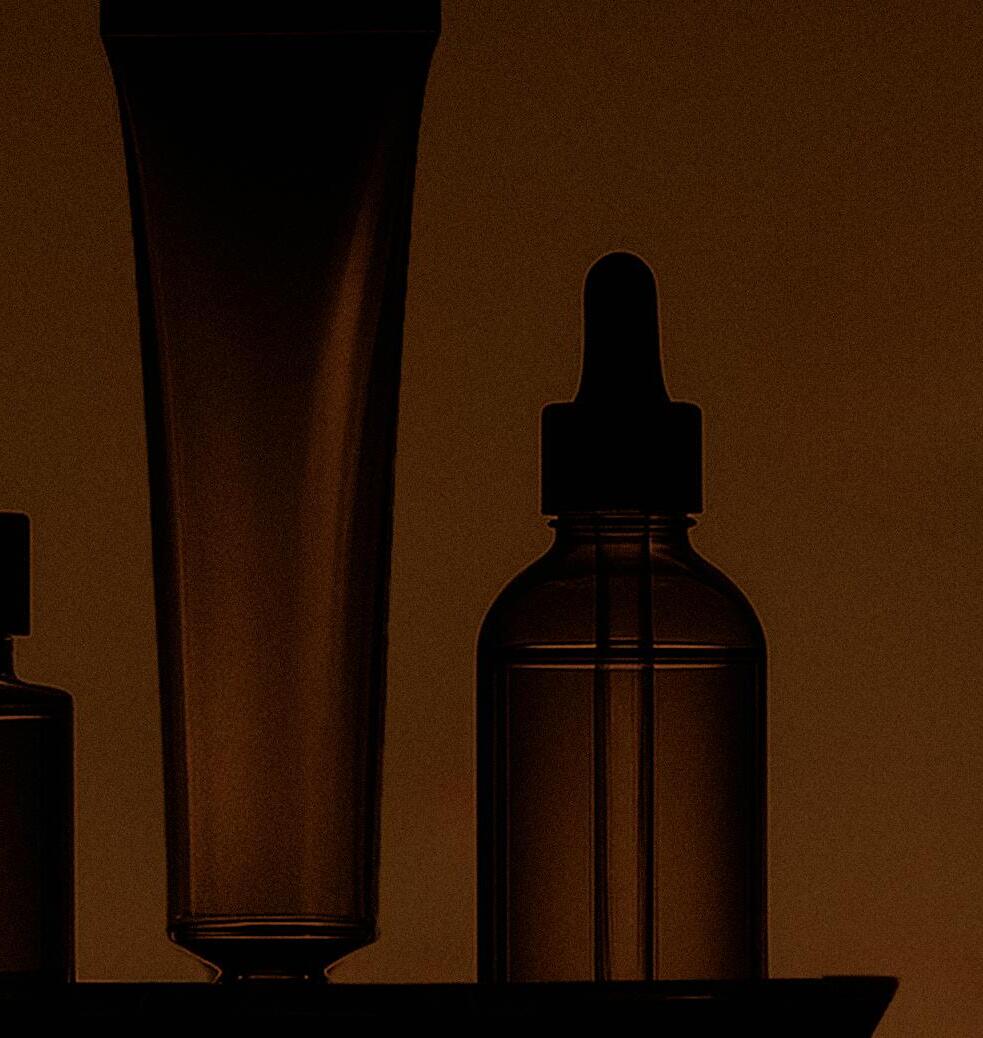


A multidisciplinary collective of excellences: La Bottega, Vanity Group, Palatino, Beltrami, White Privé, and Colosseo.
Through our integrated expertise across beauty, textiles, OS&E and design-driven consulting, La Bottega Collective partners partner with the world’s most discerning hospitality clients, from hoteliers to developers and designers, to transform the guest journey into memorable experiences. Because excellence is never an accident. labottegacollective.com
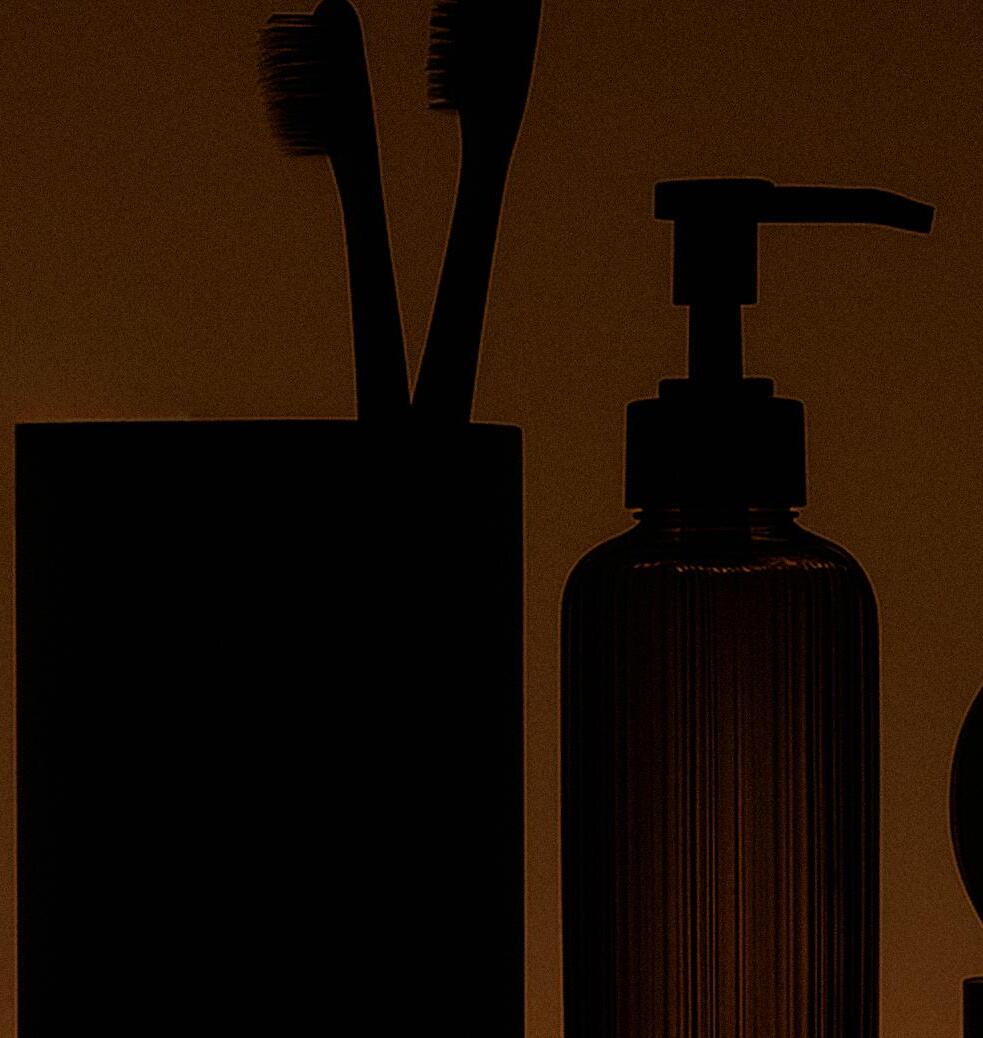

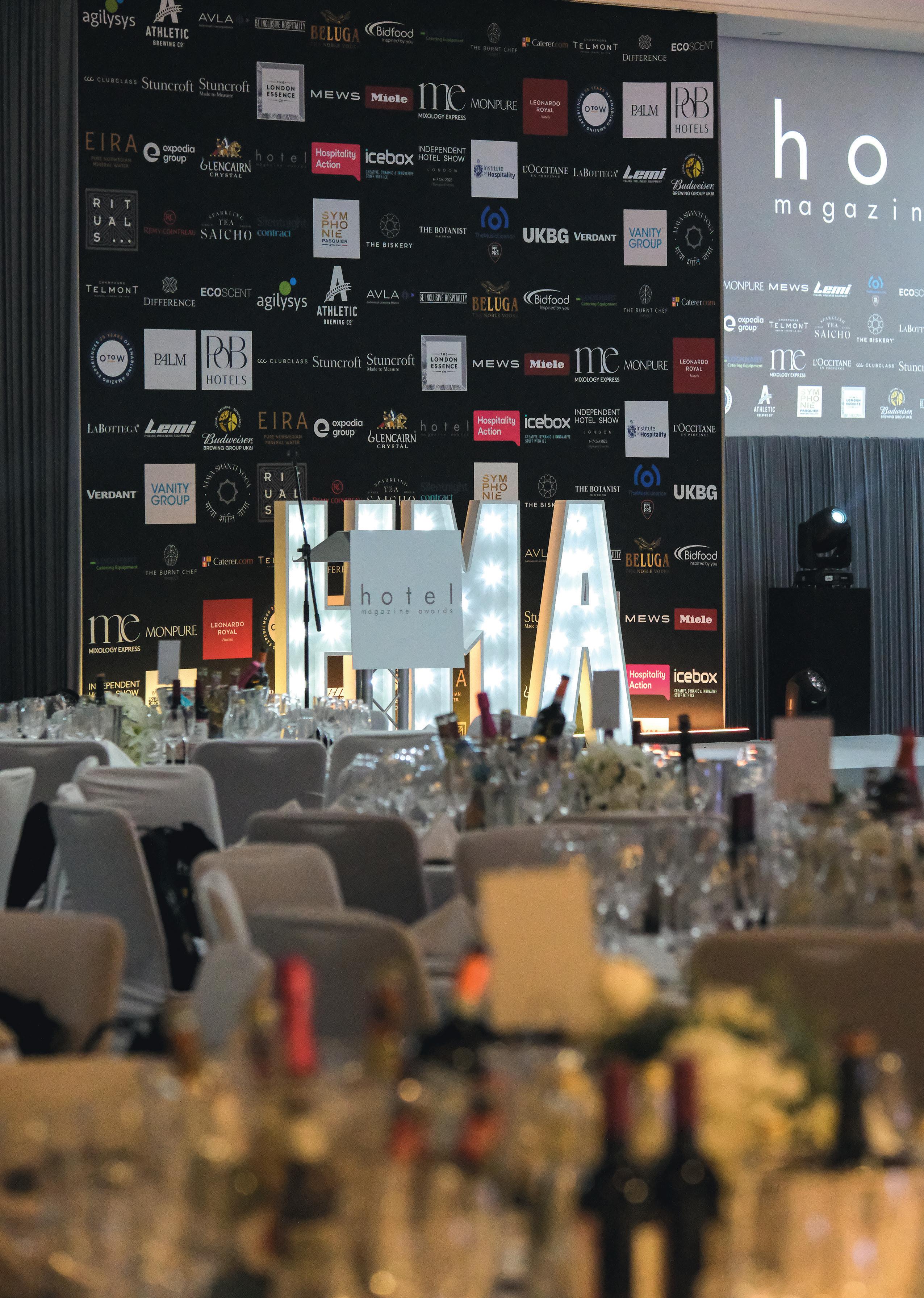
Next year’s Hotel Magazine Awards promise to be fiercely contested, and our esteemed judging panel will have their work cut out. Featuring some of the most influential voices in hospitality, meet the industry leaders who will be deciding the winners.
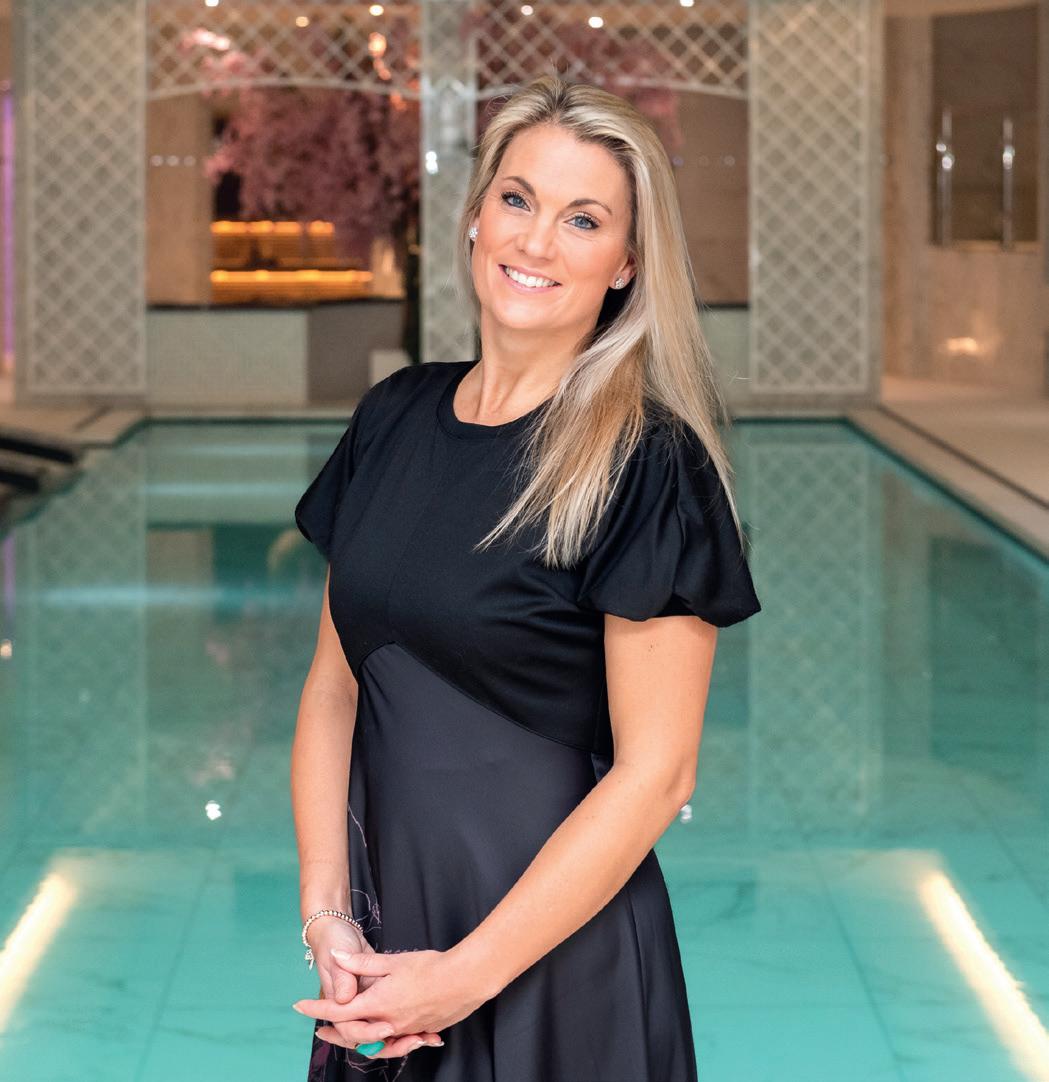
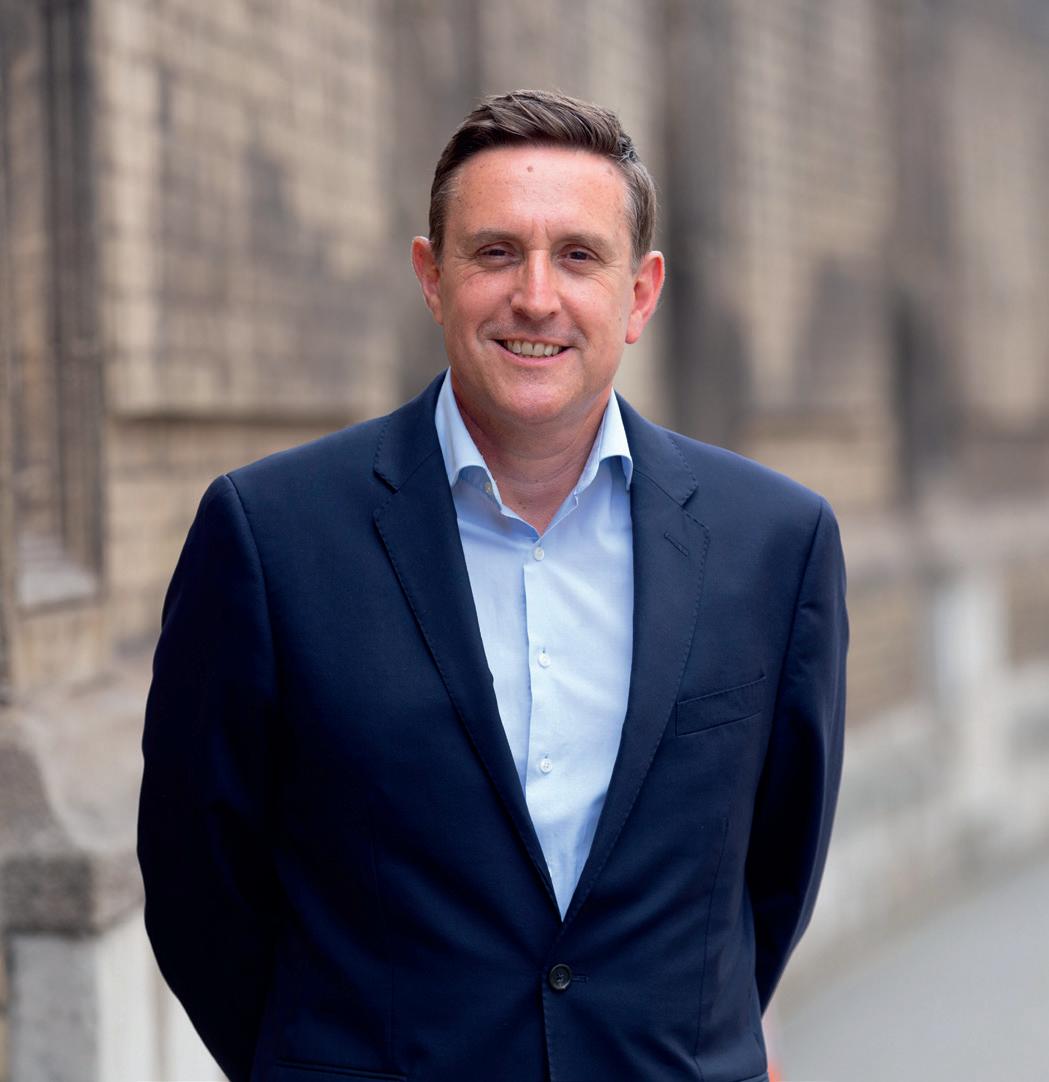
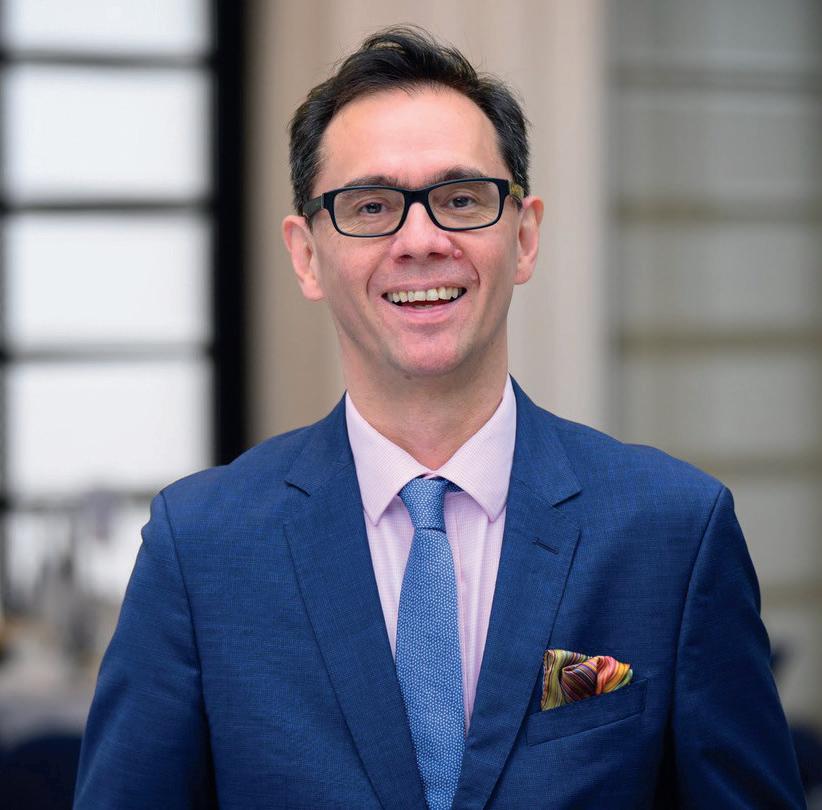

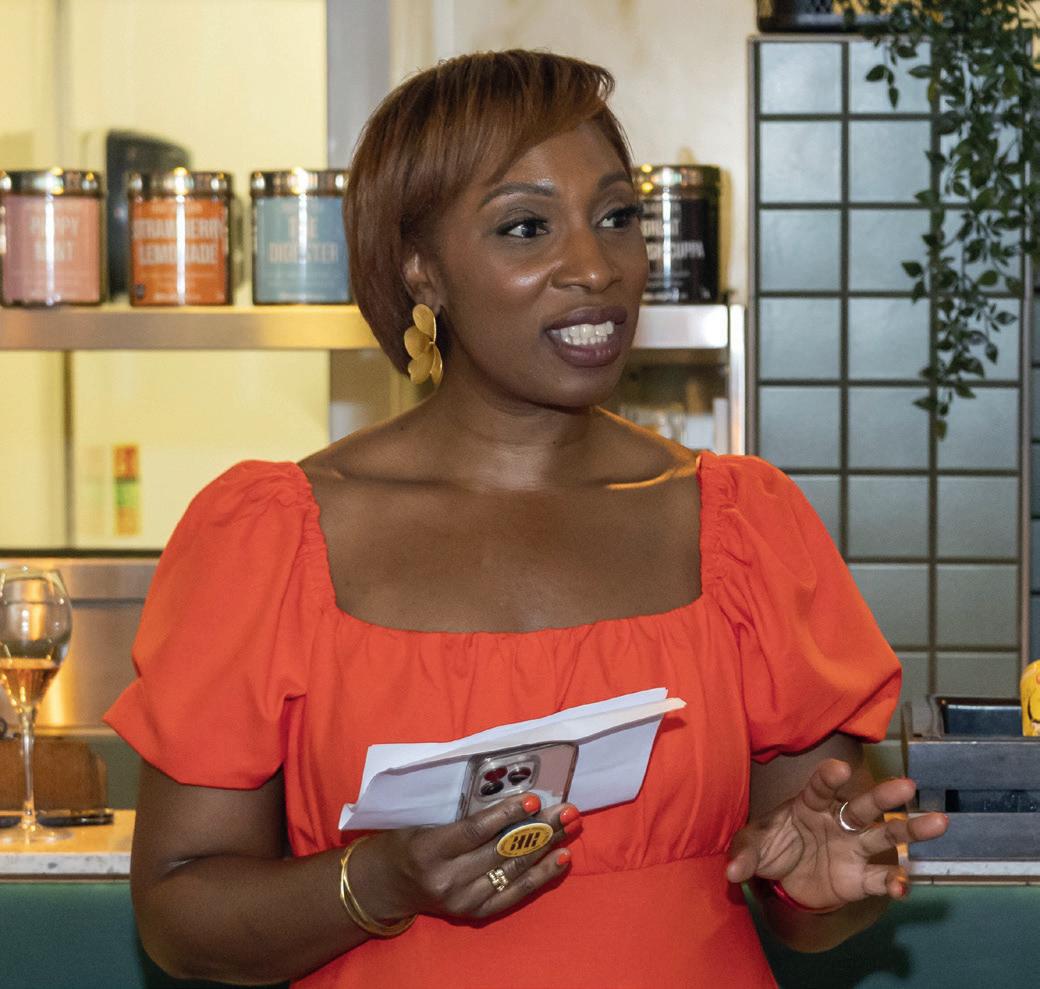


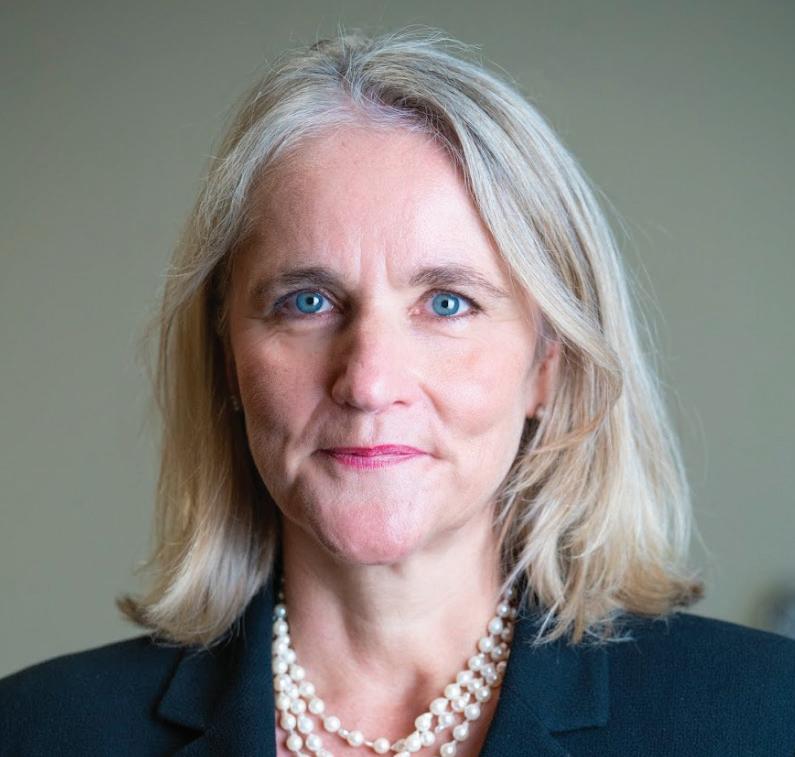
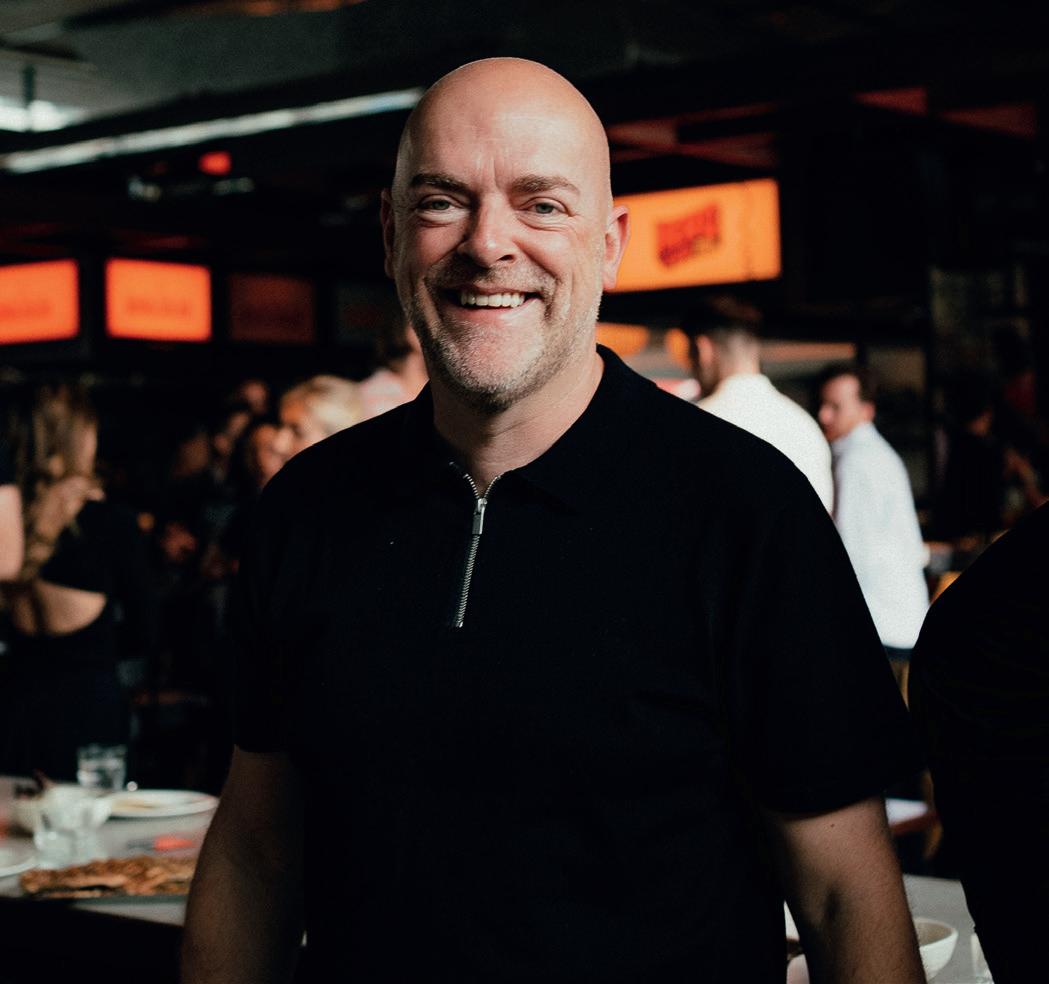
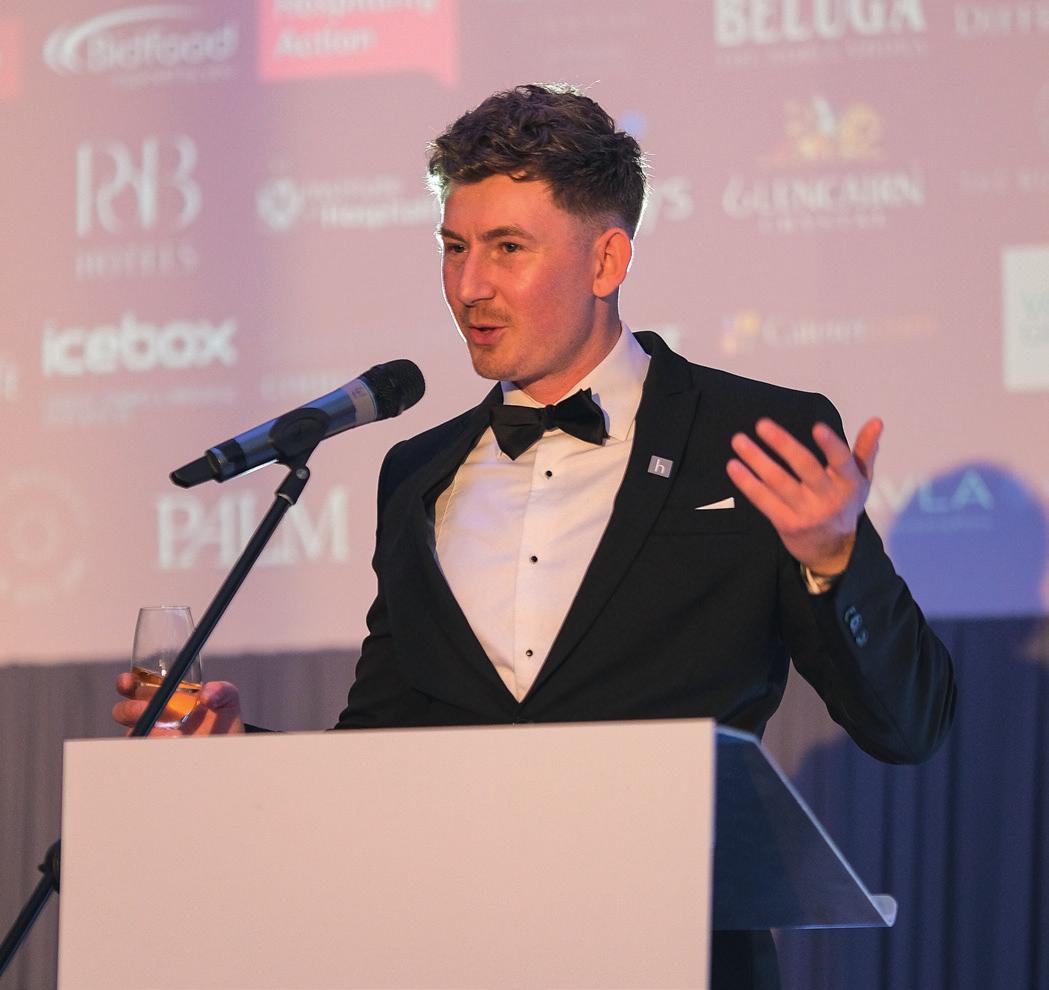
As the official staffing partner for the 2026 Hotel Magazine Awards, we caught up with Amber Blount, Managing Director, at Human One Global, who reveals why a collaboration like this is so significant.
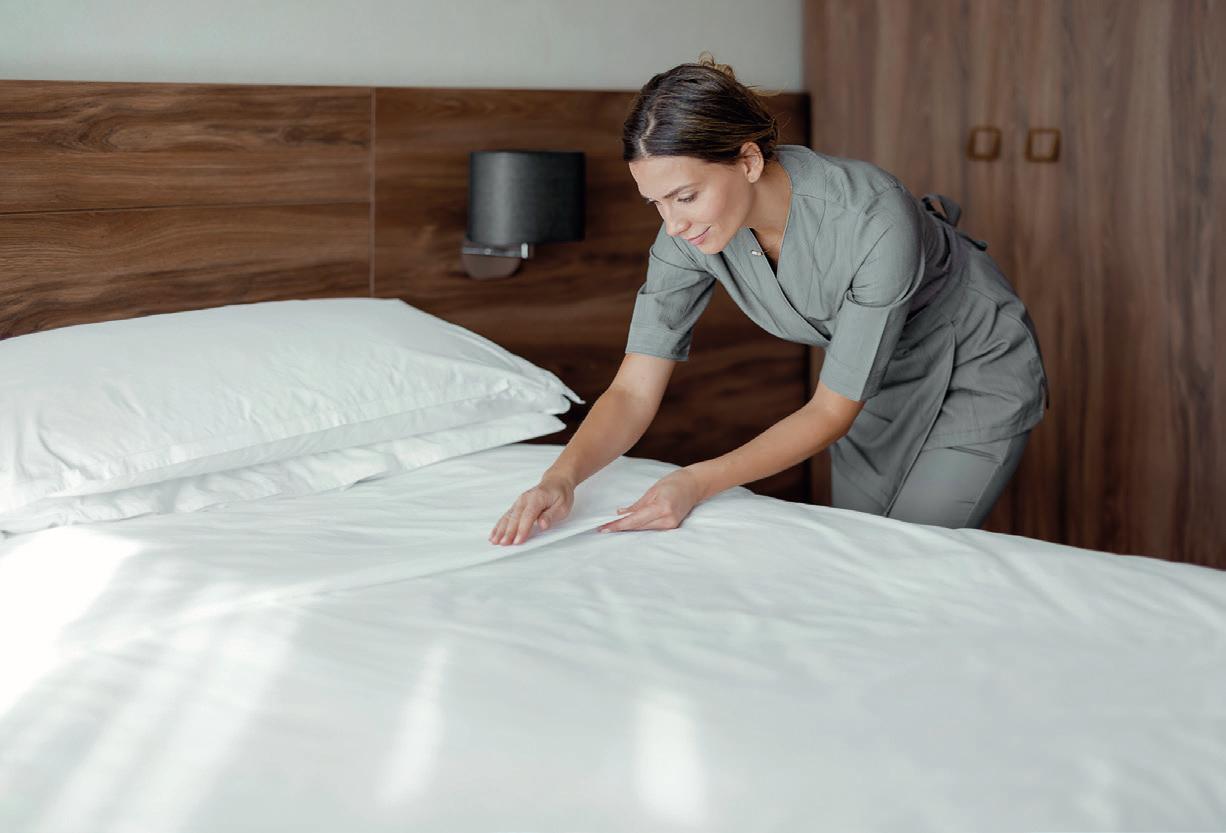
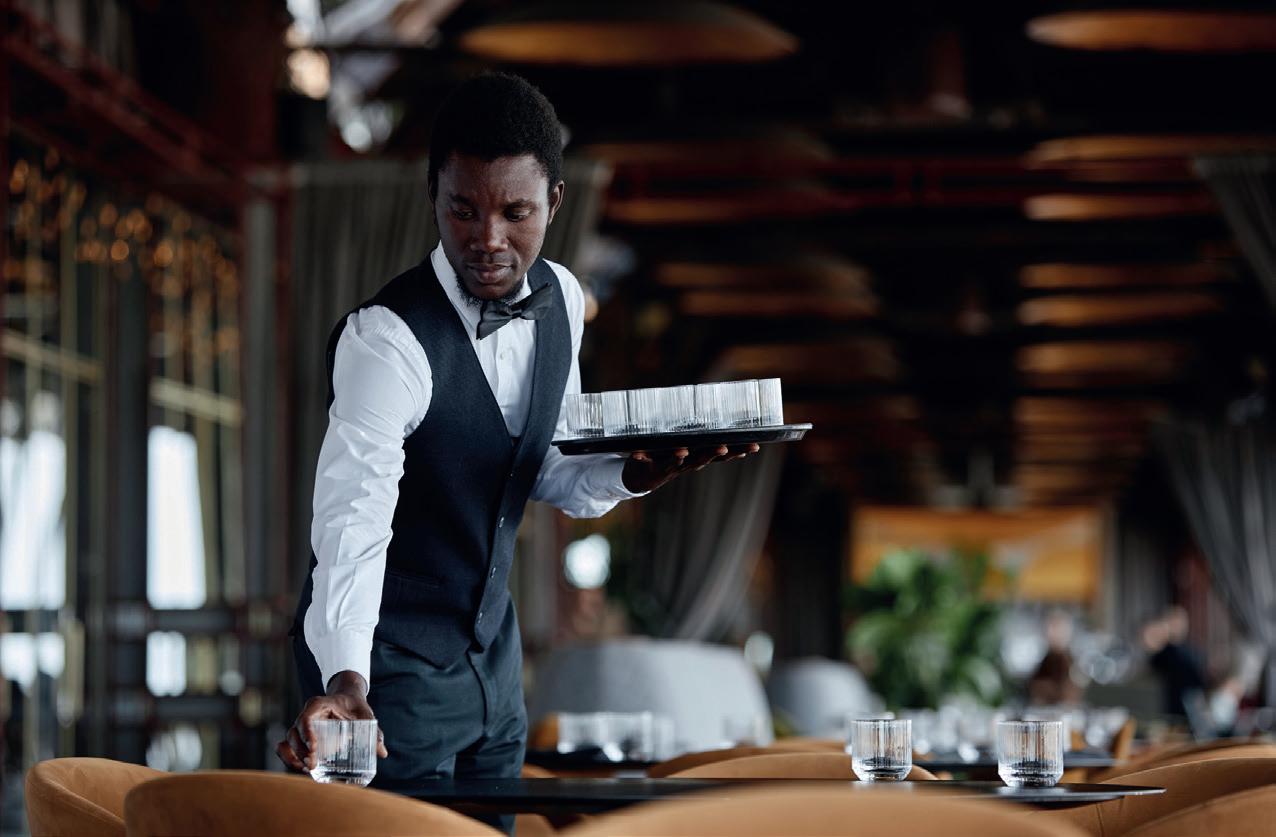
Can you tell us about the story behind your brand and what sets it apart in the hospitality industry?
At Human One Global, our story is rooted in a genuine passion for hospitality and the people who bring it to life. Founded by hospitality professionals, we understand the industry from the inside out. What sets us apart is our specialist focus on luxury hotels, private members’ clubs, private households, and family offices - across London, Europe, and the Middle East.
We don’t just fill roles; we build long-term partnerships and match exceptional talent with equally exceptional opportunities. Our multilingual, multi-cultural team brings a deeply personal and consultative approach to recruitment, ensuring a perfect fit for both clients and candidates. In a world increasingly driven by automation, we remain proudly people-first.
What inspired your decision to sponsor the 2026 Hotel Magazine Awards, and how does this align with your brand’s values and vision?
We’re proud to sponsor the 2026 Hotel Magazine Awards because it celebrates the very best in hospitalitysomething we strive to support every day through our work. These awards spotlight innovation, excellence, and
the human touch that defines world-class service, all values that sit at the heart of our brand.
As specialists in talent acquisition for luxury hospitality, we understand how crucial people are to the guest experience. Sponsoring this event is a natural extension of our mission to champion the individuals and teams who elevate the industry. It also reflects our commitment to aligning with partners who share our dedication to quality, service, and meaningful recognition.
What does being part of such a prestigious event mean to your team, and how do you see it impacting your presence in the industry?
Being part of the Hotel Magazine Awards is both an honour and a powerful affirmation of our role within the luxury hospitality space. For our team, it’s a celebration of the incredible talent we work with every day, and a reminder of the impact we make behind the scenes.
This platform allows us to further connect with likeminded brands, operators, and professionals, and to showcase our commitment to supporting the industry’s continued growth and excellence. It also reinforces our position as a trusted recruitment partner in luxury hospitality - both in the UK and globally. humanone.global
Belu are our proud water partner for next year’s Hotel Magazine Awards. We spoke to Hamish Woolgar, Marketing Lead at Belu, as he revealed more about the brand, their commitment to sustainability and why a collaboration like this one is making an impact.
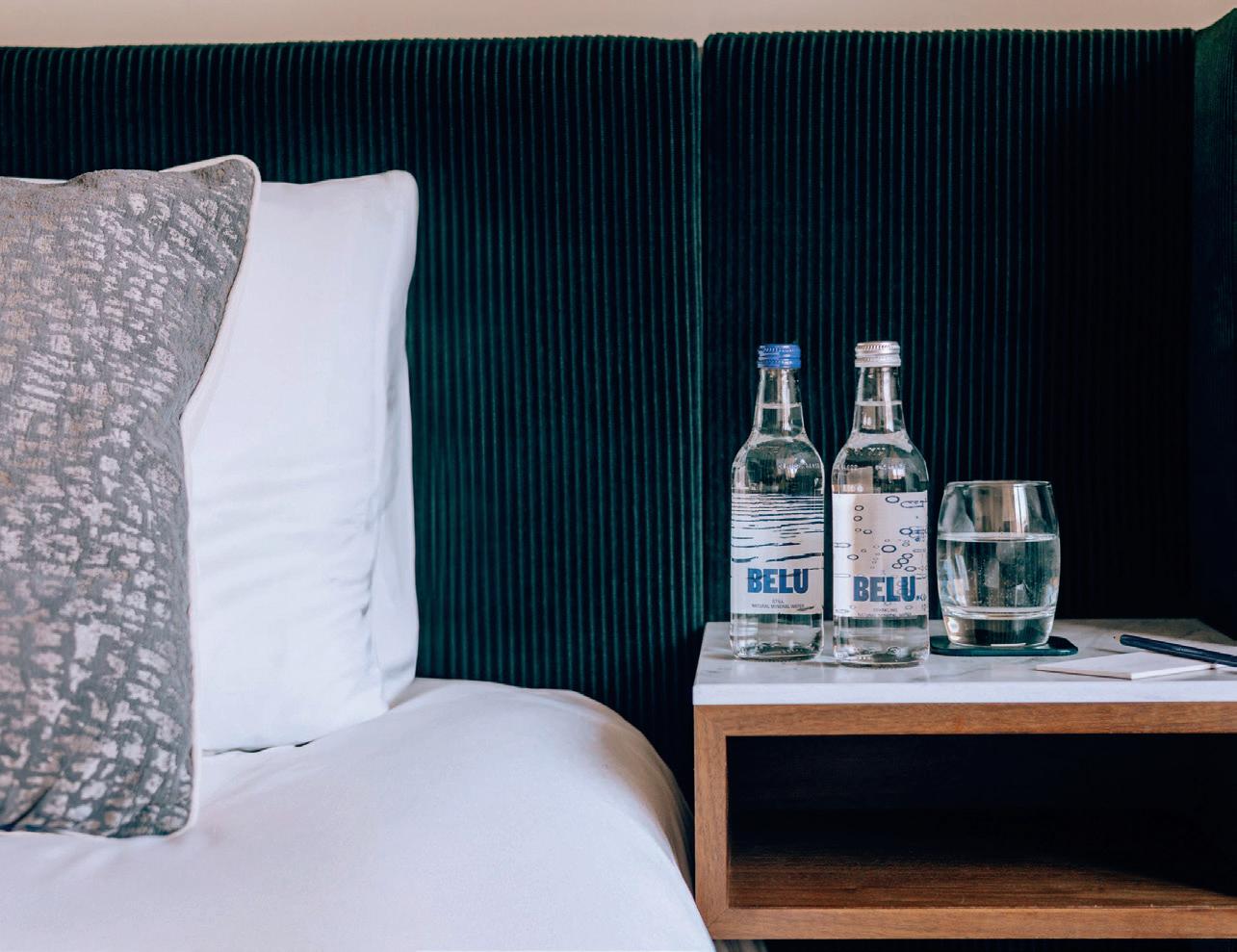
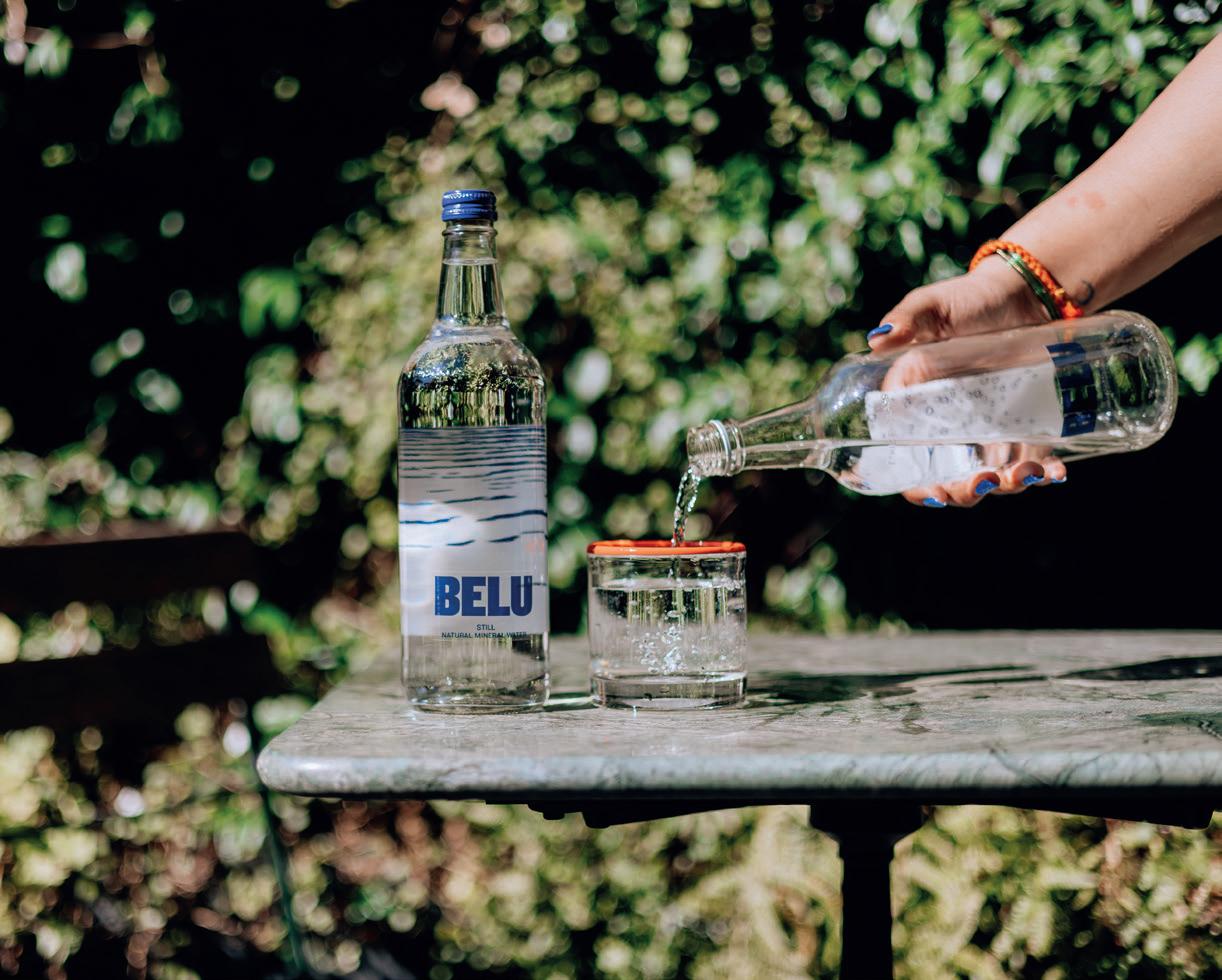
Can you tell us about the story behind your brand and what sets it apart in the hospitality industry?
Belu is a drinks brand that thinks differently. We’re a social enterprise and we give 100% of our net profit (£6.1m since 2011) to WaterAid to support projects across the globe that are delivering clean water, decent toilets and good hygiene to communities that really need it.
Alongside this we deliver some of the lowest carbon water solutions from our 100% recycled rPET bottles, our canned water range to our light-weighted glass and our industry leading filtration systems. You can often see Belu in venues like the Corinthia, The Hari and many other restaurants, pubs and hotels across the UK and globally in Hong Kong and Singapore.
What inspired your decision to sponsor the 2026 Hotel Magazine Awards, and how does this align with your brand’s values and vision?
For us at Belu, partnerships and collaboration are everything, from the supply chain partners we work with to
the venues that are furthering our impact by choosing Belu. With the Hotel Magazine awards we see an opportunity to connect with the hoteliers and hospitality professionals that are making a real difference in their sector and support an industry that serves with purpose in everything they do.
What does being part of such a prestigious event mean to your team, and how do you see it impacting your presence in the industry?
Being part of the Hotel Magazine Awards is a proud moment for all of us at Belu. It’s a chance to celebrate those who are driving positive change in hospitality, and to celebrate the values we share with our partners. Recognition at an event like this helps raise awareness of our brand and our impact and strengthens our presence in the industry. It also opens up new opportunities to collaborate with those who care about serving with purpose.
belu.org
SumUp are sponsoring the Hotel Bar of the Year Award at the 2026 HMAs. In this interview, we speak to Pierre Lion, Global Director of Sales – Enterprise at SumUp, about the partnership and what the brand is striving to achieve.
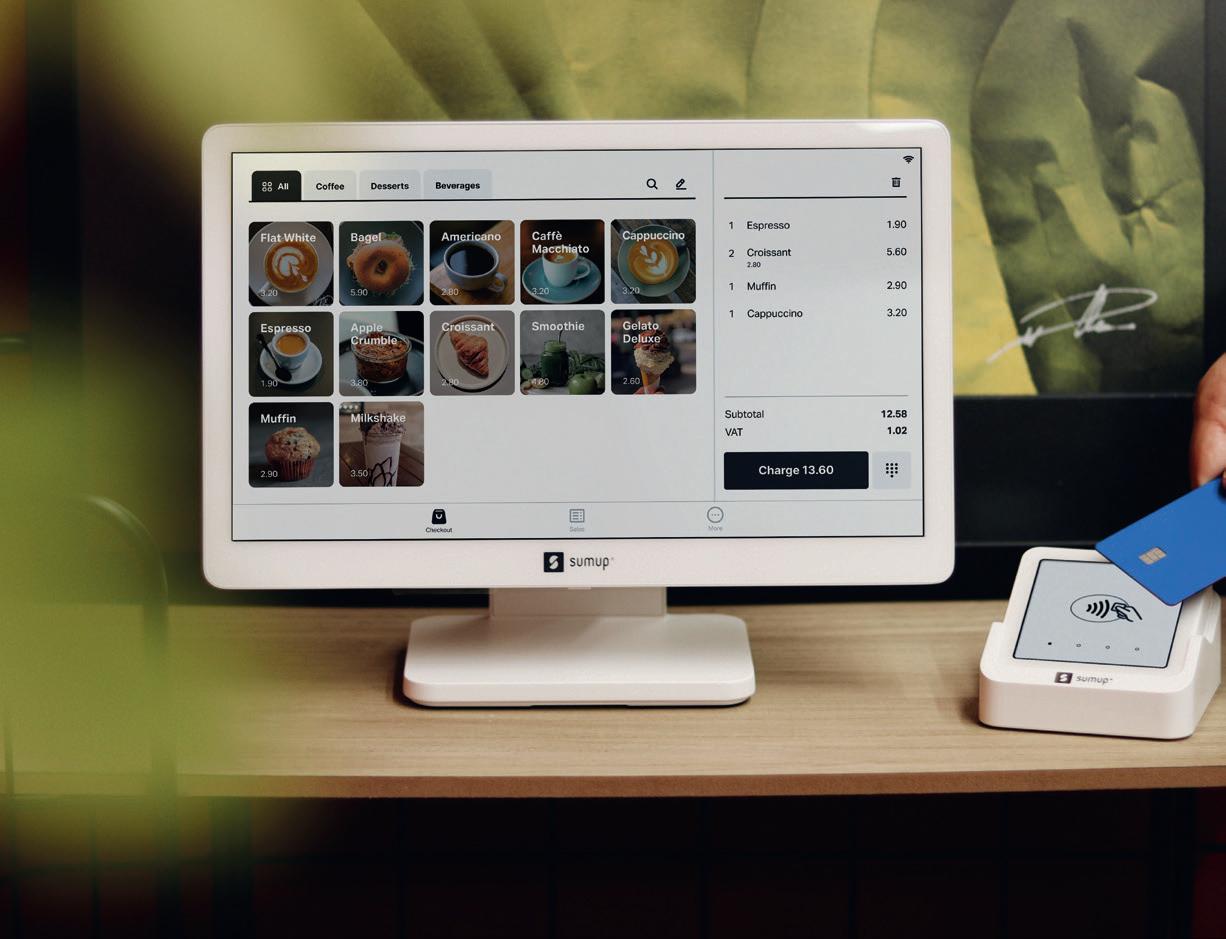
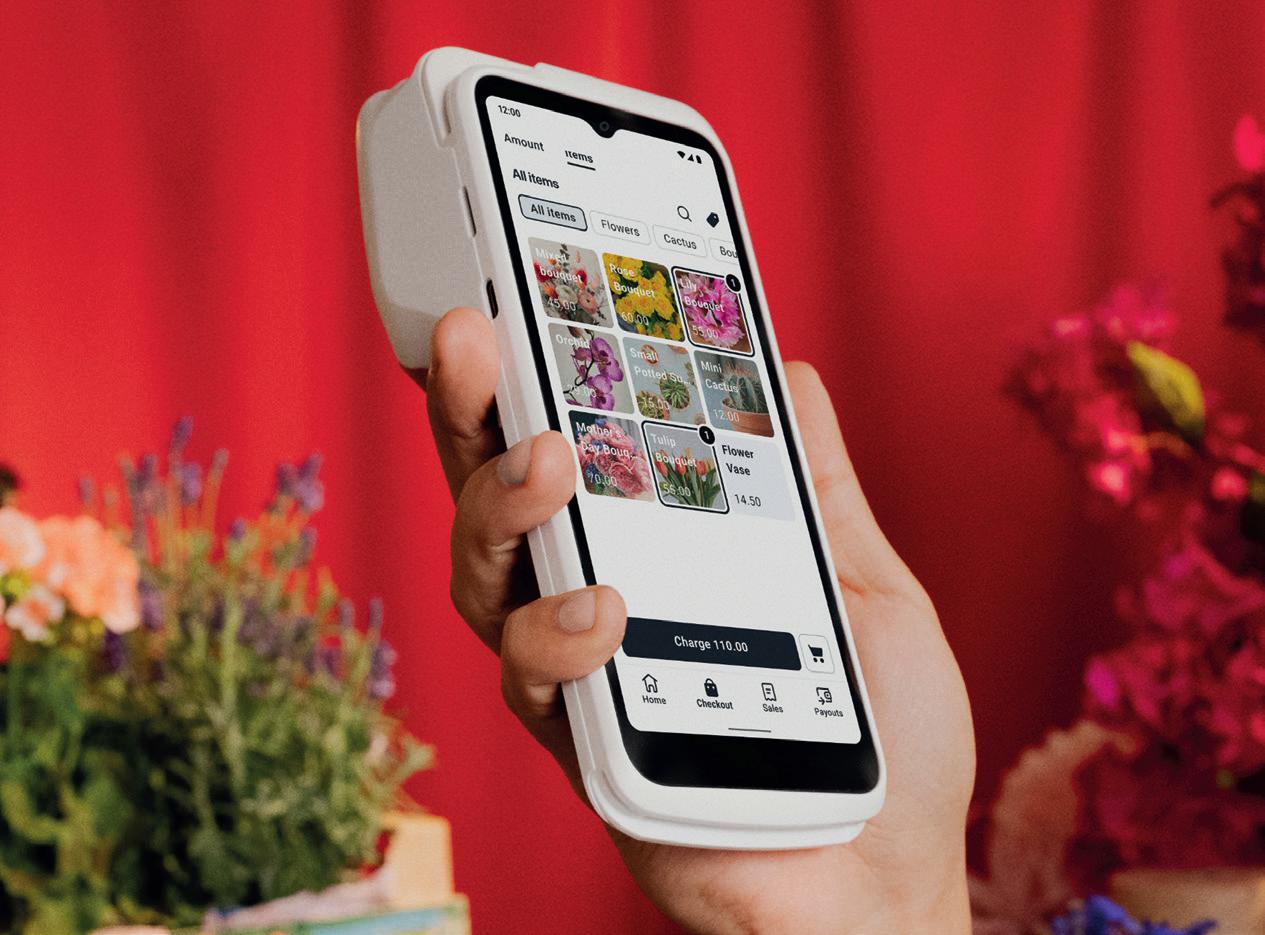
Tell our readers about SumUp and the work you do within the industry
SumUp is a global financial technology company that makes it simple for businesses to get paid and run their day-to-day. We provide a unified toolkit across in-person and online payments, including card readers and POS, invoicing, payment links, online store, and business accounts. Our focus is on removing complexity so hospitality teams can spend less time on admin and more time serving guests. From independent cafés to multi-site venues, we help operators accept any way their customers want to pay, reconcile faster, and gain visibility over sales, taxes, and payouts in one place.
How important is it for SumUp to be involved with industry events?
Very. Hospitality evolves quickly, and the best ideas come from real conversations with operators, partners, and innovators. Being present at industry events allows us to:
• Listen to frontline challenges and feed them directly into our product roadmap
• Share practical best practices on topics like payments,
reporting, and guest experience
• Build partnerships that unlock new value for venues, from hardware integrations to loyalty and online ordering Ultimately, events help us stay accountable to what matters most: reliable payments, effortless operations, and better guest experiences.
What sets your brand apart in the industry?
• Simplicity with depth: Tools that are easy for teams to use on day one, with powerful features when you need them.
• End-to-end reliability: From devices to software to payouts, we own the critical path so merchants can trust every transaction.
• Omnichannel by design: In-person and online payments, POS, invoices, and reporting work together out of the box.
• Transparent value: Clear pricing, no hidden lock-ins, and support that understands hospitality workflows.
• Built for scale, made for SMBs: Enterprise-grade security and uptime, packaged for growing operators who need to move fast without extra overhead.

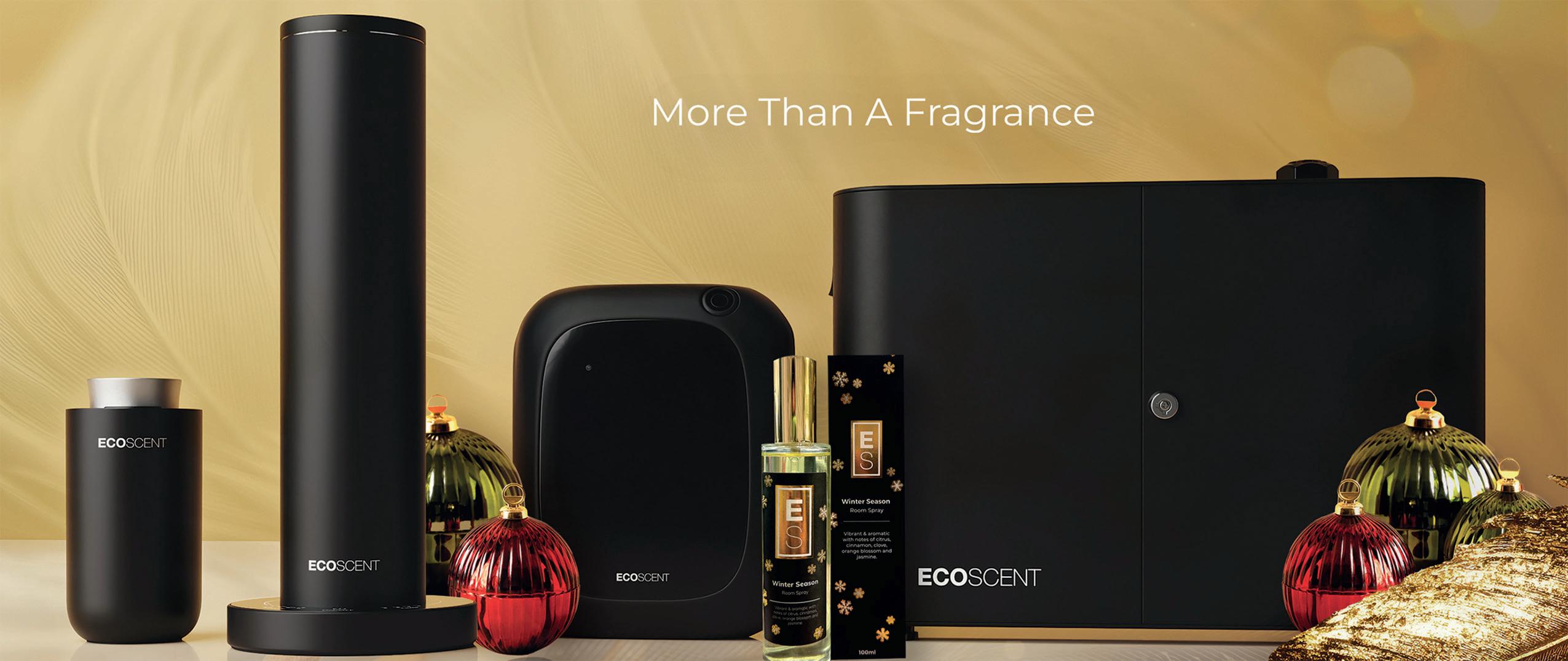
In exceptional hospitality, every detail matters. The glint of candlelight on marble, the hush of fine linens, the quiet choreography of impeccable service - all combine to create an atmosphere of understated elegance. Yet one of the most powerful elements in shaping that experience is also the most intangible: scent.
This December, as hotels prepare to welcome guests seeking warmth, comfort and celebration, the art of scenting becomes the silent signature of refinement. EcoScent, pioneers in sustainable scent design, understand that true sophistication isn’t just seen - it’s felt.
From the moment a guest steps through the doors, fragrance sets the tone. A veil of spiced amber, a hint of cedarwood, a trace of winter citrus - each note weaves a story of comfort and anticipation, turning any spaces into memories. The right scent doesn’t simply enhance a setting; it transforms it into an emotion.
“Today’s guests connect deeply with how a space makes
them feel,” explains Jasmina Juvonen, Head of Marketing at EcoScent. “During the festive season, our bespoke and signature fragrances help hotels evoke a sense of belonging, warmth and joy that lasts long after checkout.”
EcoScent’s philosophy blends creativity with conscience. Their advanced diffusion systems and ethically sourced ingredients allow hotels to craft bespoke olfactory identities that align with both their brand and their environmental values. Whether it’s an urban sanctuary or a heritage retreat, each scent is designed to resonate with the property’s personality and guests’ expectations.
As the festive season invites a spirit of comfort and connection, scenting offers the ultimate finishing touchan invisible expression of care that defines the atmosphere as much as the décor. This winter, EcoScent invites hoteliers to go beyond the visual and let fragrance become the feeling that guests remember most. ecoscent.co.uk
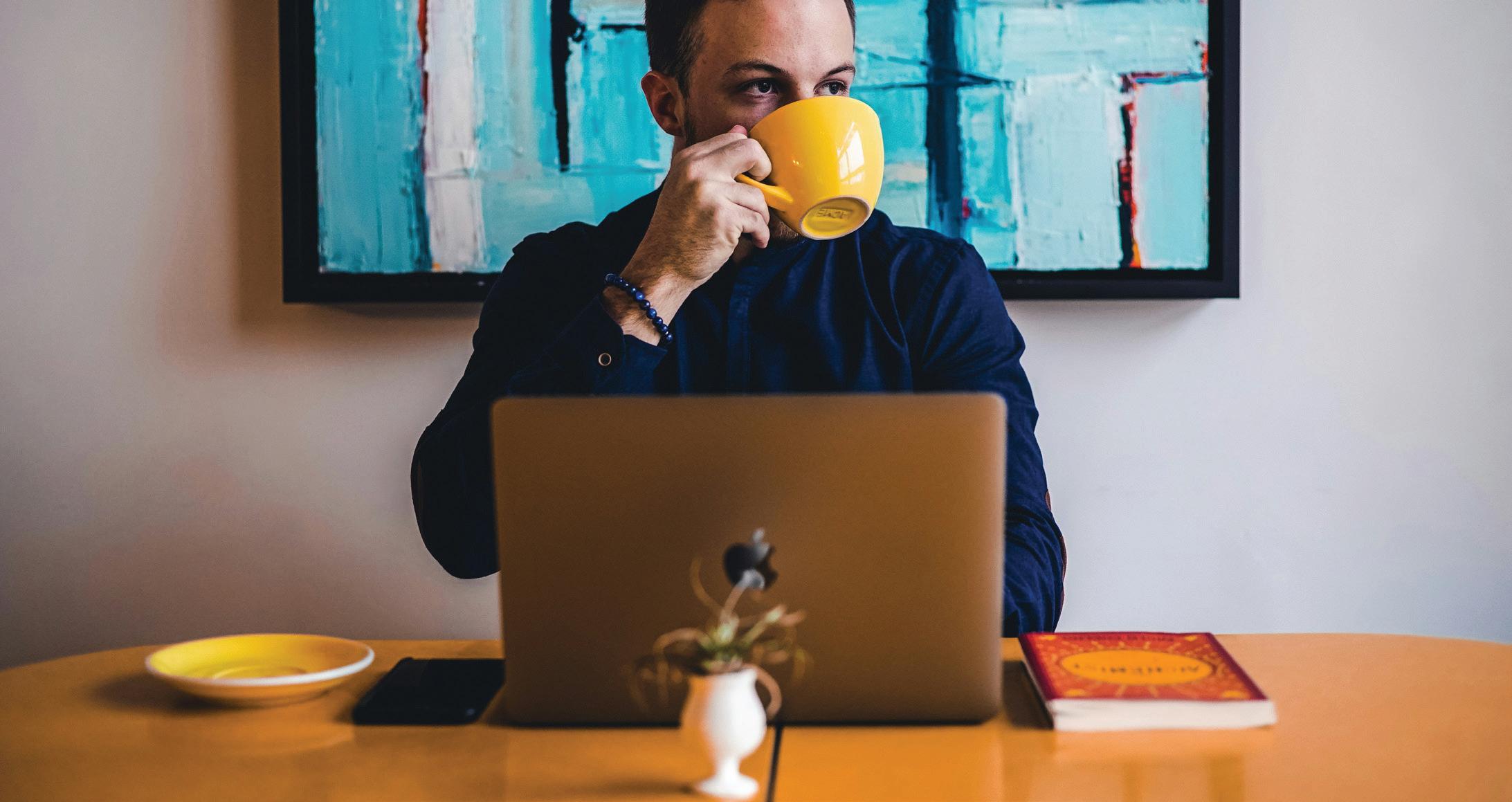









We take a look at The Belfry Hotel & Resort’s new luxury wellness experience powered Technogym that was unveiled earlier this year.
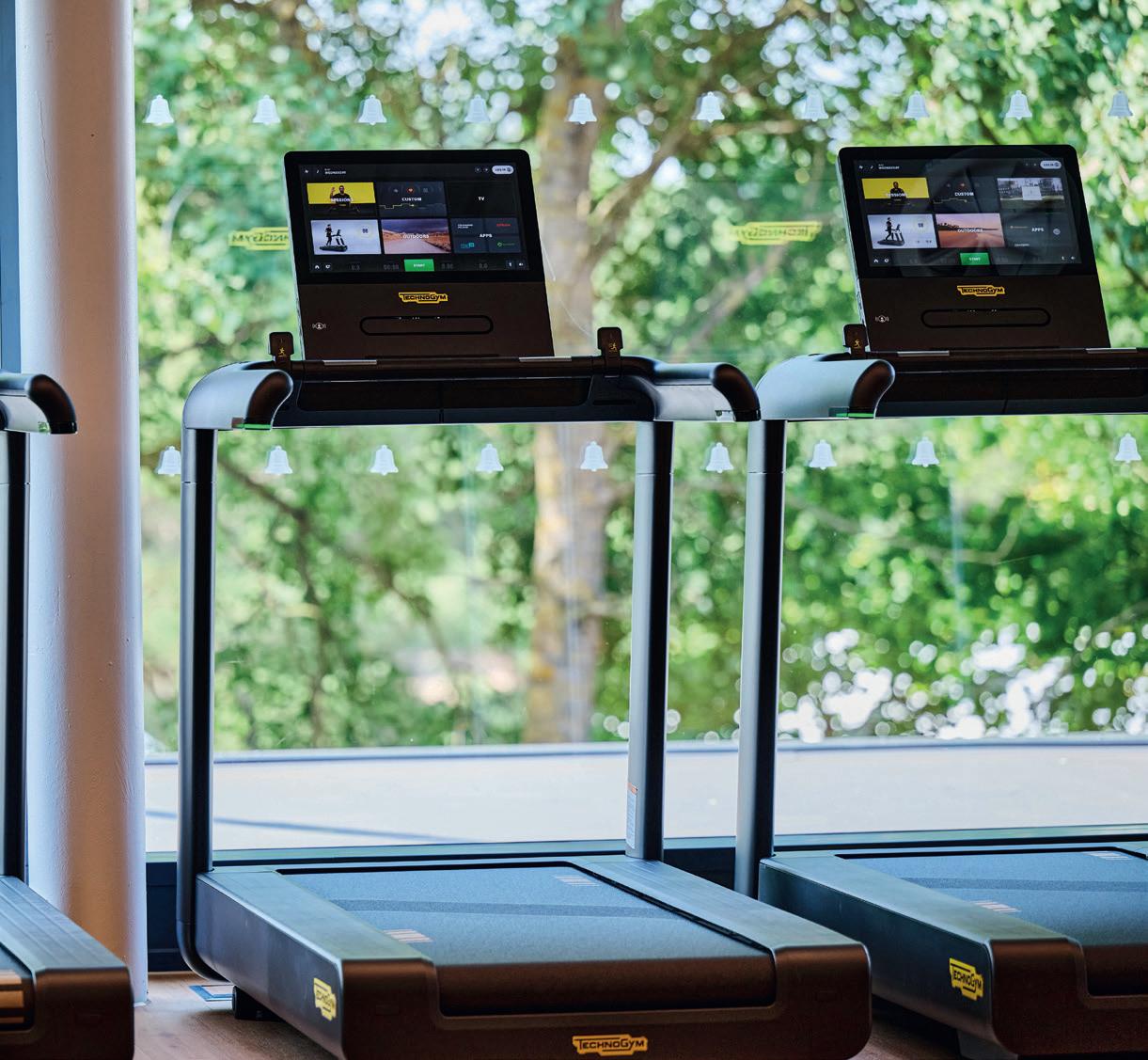
Set within 550 acres of rolling countryside, The Belfry Hotel & Resort has embarked on a landmark multi-million-pound transformation, reimagining its leisure offer for the next generation of wellness-minded travellers. The world-renowned resort - celebrated for hosting The Ryder Cup more times than any other venue, has introduced an innovative wellness ecosystem that integrates cutting-edge AI technology, premium equipment and expansive new facilities for guests, members and corporate visitors.
Reflecting the rapid rise of wellness tourism, The Belfry has evolved its leisure proposition by separating spa and leisure
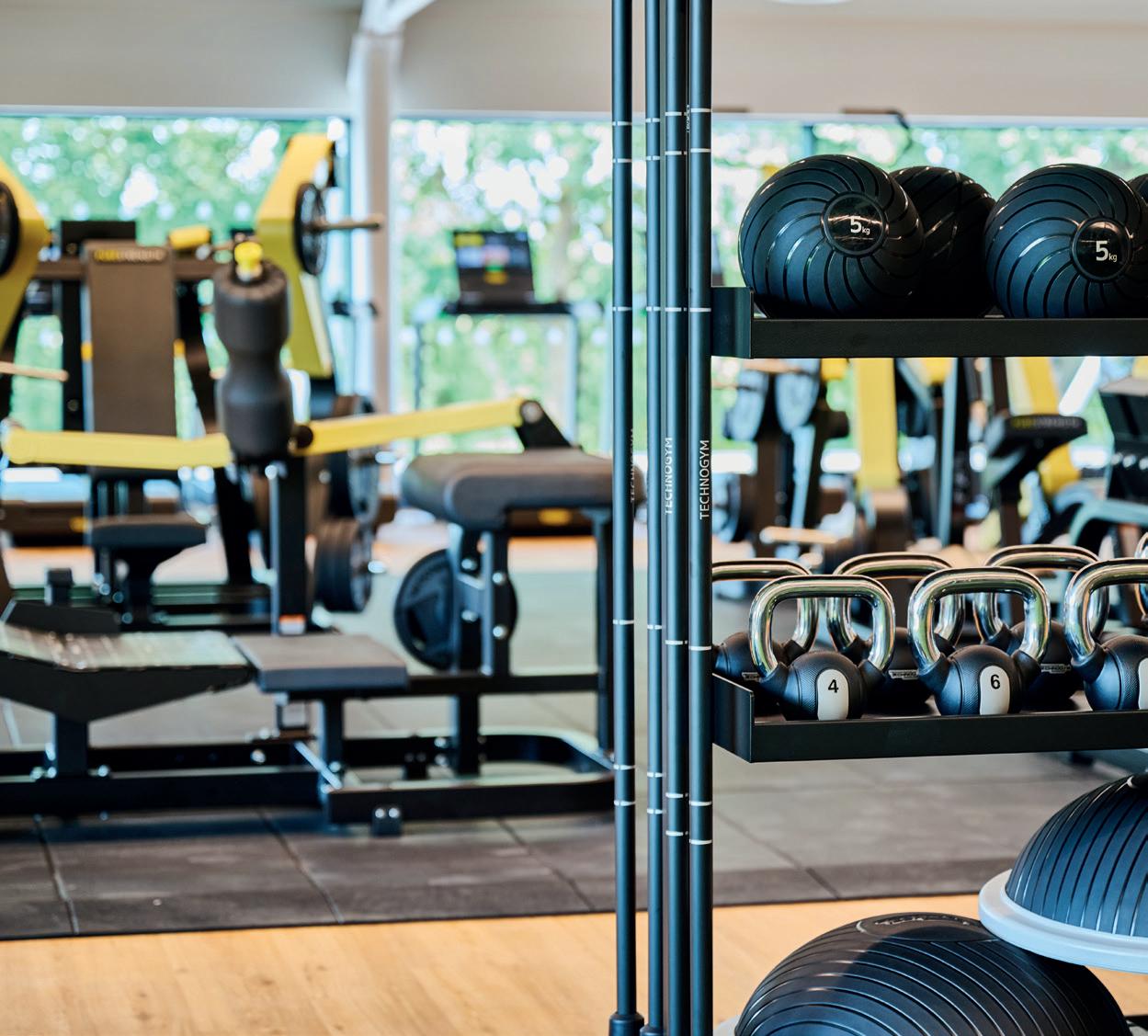
into distinct experiences and significantly expanding its wellness portfolio.
“We know that wellness tourism is a growing consumer trend,” said Chris Eigelaar, Managing Director at The Belfry. “At The Belfry, we are creating a market-leading wellness experience with 550 acres of outdoor space, a great balance of leisure facilities, wonderful staff, and premium equipment with state-of-the-art digital innovation.”
Guests and members will now find an extensive Technogym-equipped fitness floor, four boutique studios, a multi-use sports hall, and both lane-swimming and family pool experiences. Outdoors, wellness becomes part of the landscape itself, with guided nature walks, outdoor children’s activities and rooftop fitness classes overlooking the estate’s panoramic grounds.
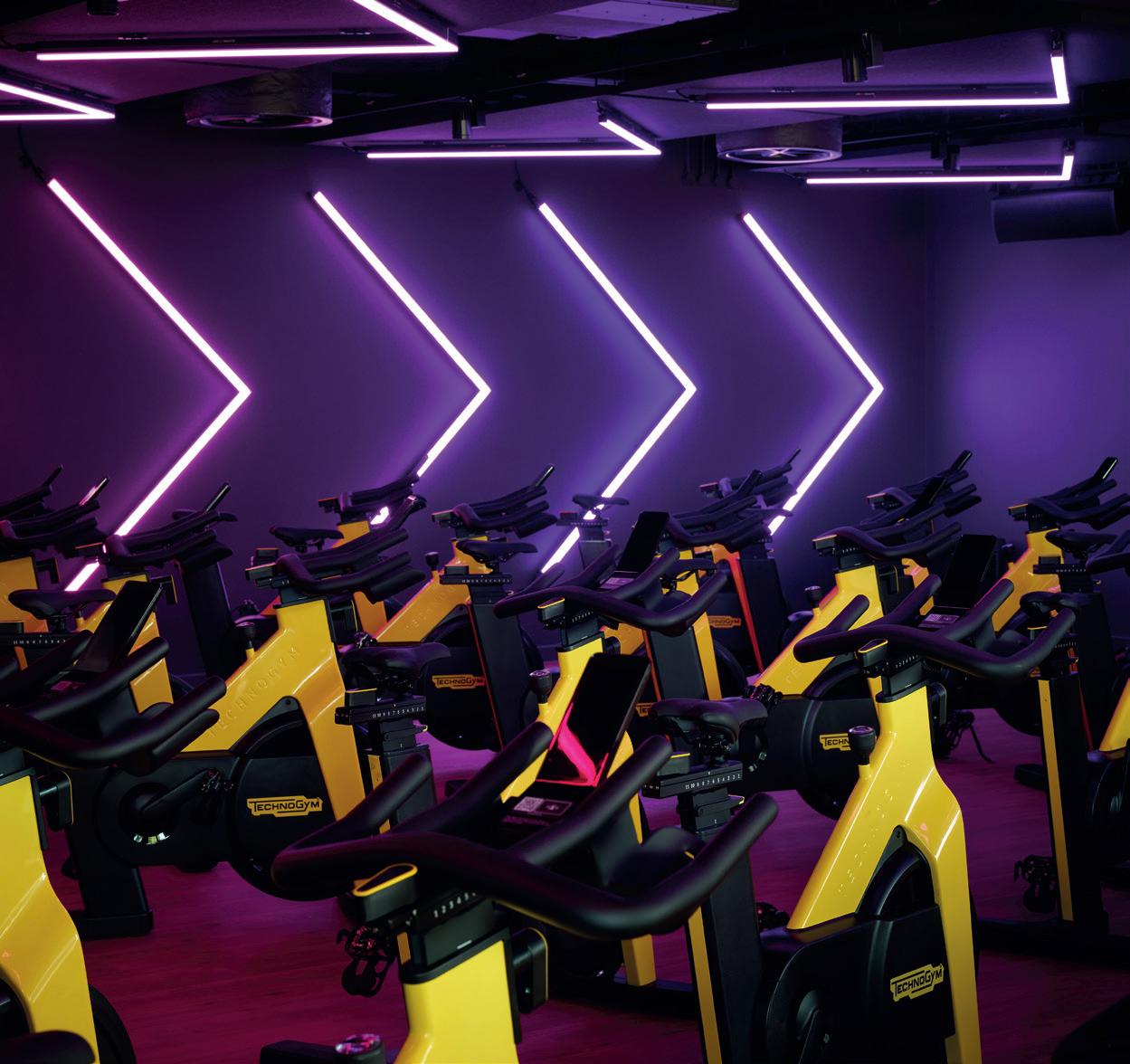
As part of its investment, The Belfry selected global industry leader Technogym as its equipment partner, ensuring seamless digital connectivity and AI-driven personalisation throughout the guest journey.
“It’s vital that we partner with other market leaders,” said Chris. “Technogym are unmatched in their dedication to wellness innovation, and were the right choice to support our vision for an upgraded user journey across equipment, content and experience.”
The reimagined gym has been intelligently zoned for cardio, strength, functional training and small group sessions, including a next-generation cycle studio featuring Technogym Group Cycle and digital performance tracking, whether in instructor-led or virtual classes.
Members can personalise their experience through the Technogym App, which tracks progress, offers tailored workout plans and provides guidance on correct equipment use, enhancing both independence and engagement.
At the core of the resort’s new wellness offer is Technogym Checkup, an innovative AI-powered assessment that measures body composition, mobility, balance, cardiovascular fitness, strength and even cognitive function. Integrated with Technogym Coach and the Technogym App, it delivers hyper-personalised recommendations and forms a unique entry point for new guests and members.
“We know hotel guests want experiential interaction,” said Chris. “Whilst most people still value human interaction, the right choice of AI and tech can elevate the experience and give users more freedom. The Technogym
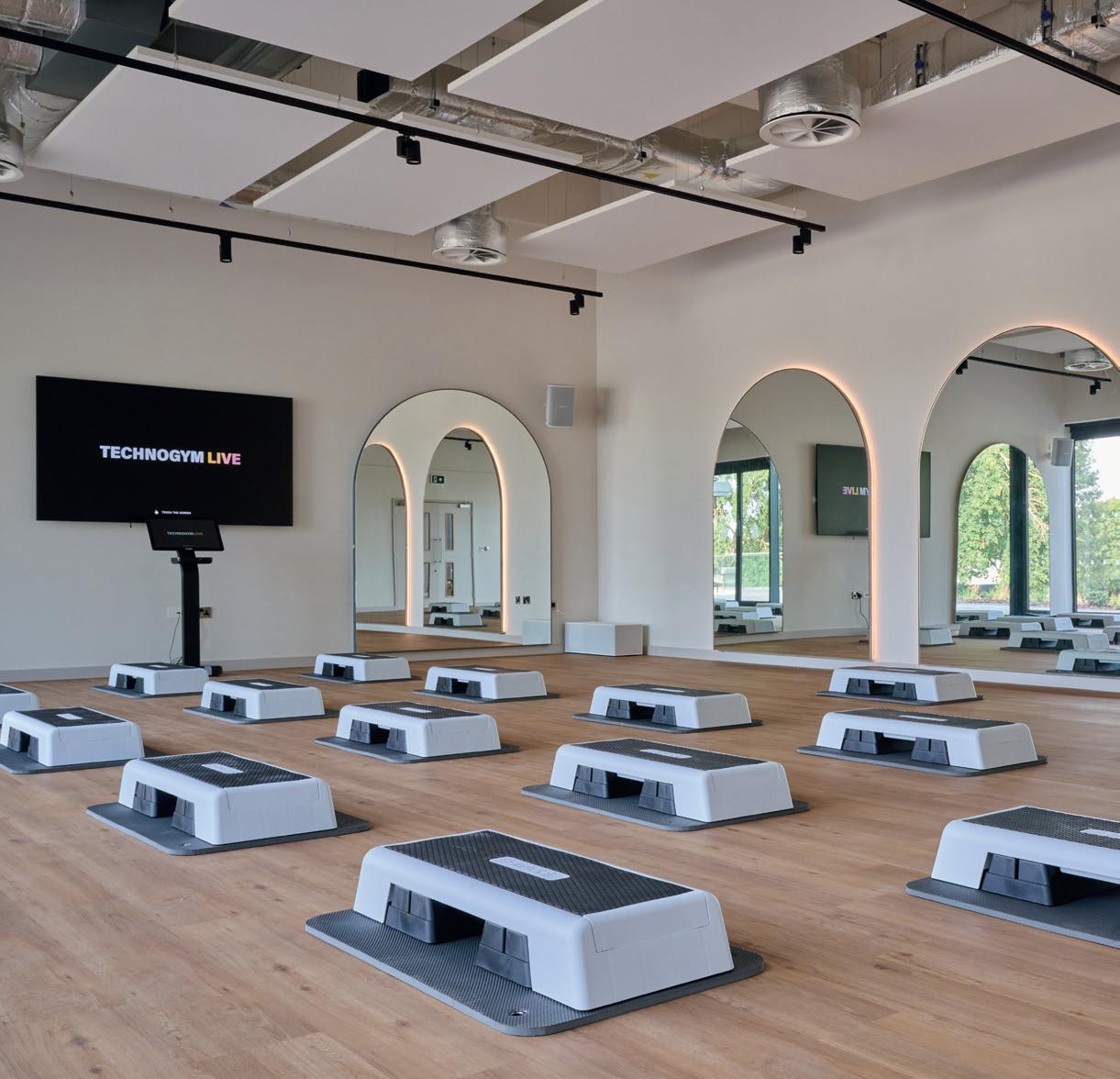
ecosystem allows us to add valuable touchpoints to an exciting wellness offer.”
The Belfry has focused on creating a frictionless yet personal member journey. Digital insights from Technogym Checkup feed into adaptive programmes, while The Belfry’s wellness team provide expert support for those who enjoy in-person guidance. For independent gym-goers, the system offers a smart, self-directed solution.
“Every detail of this major investment has been about making the customer journey as easy as possible,” added Chris. “By combining the personal interaction of our hospitality team with Technogym’s ecosystem, we can now offer multiple touchpoints and a hyper-personalised experience.”
The design of the new wellness spaces brings the outdoors in, with studio rooms featuring floor-to-ceiling views, rooftop workout zones, patios and curated nature-based programming. The result is a 360-degree approach to wellbeing – incorporative of physical, digital and environmental.
With the new facilities now open, The Belfry’s wellness team will continue to drive engagement through Technogym Educator activation days, continual staff development and community-building programming.
Reaffirming its position as a premier leisure destination, The Belfry has created an elevated wellness offering that blends authentic hospitality with the latest in digital innovation, setting a new benchmark for wellness in luxury resorts.
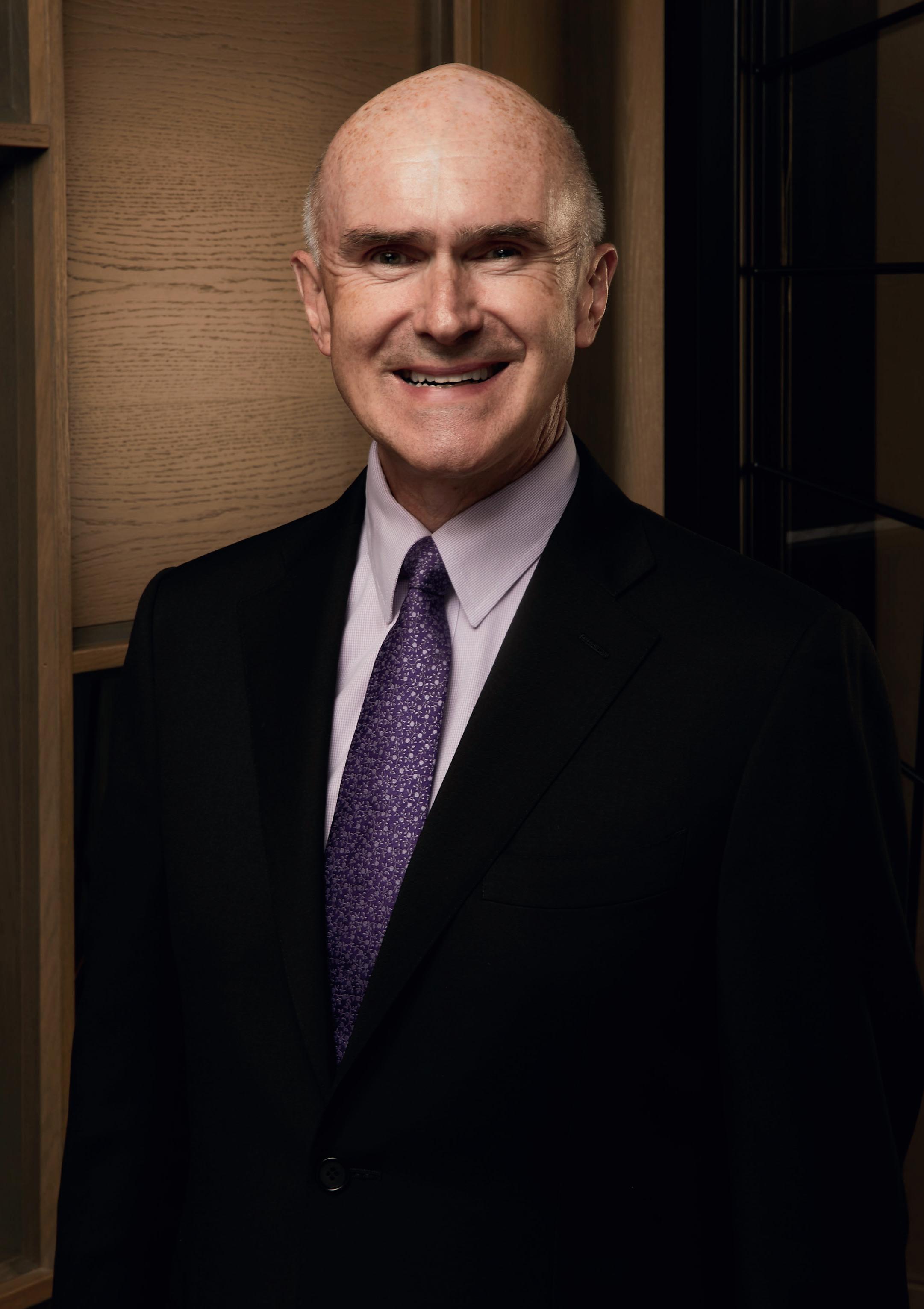
Adrian Ellis, Experienced Hotelier and Founder of Hospitality Connect.
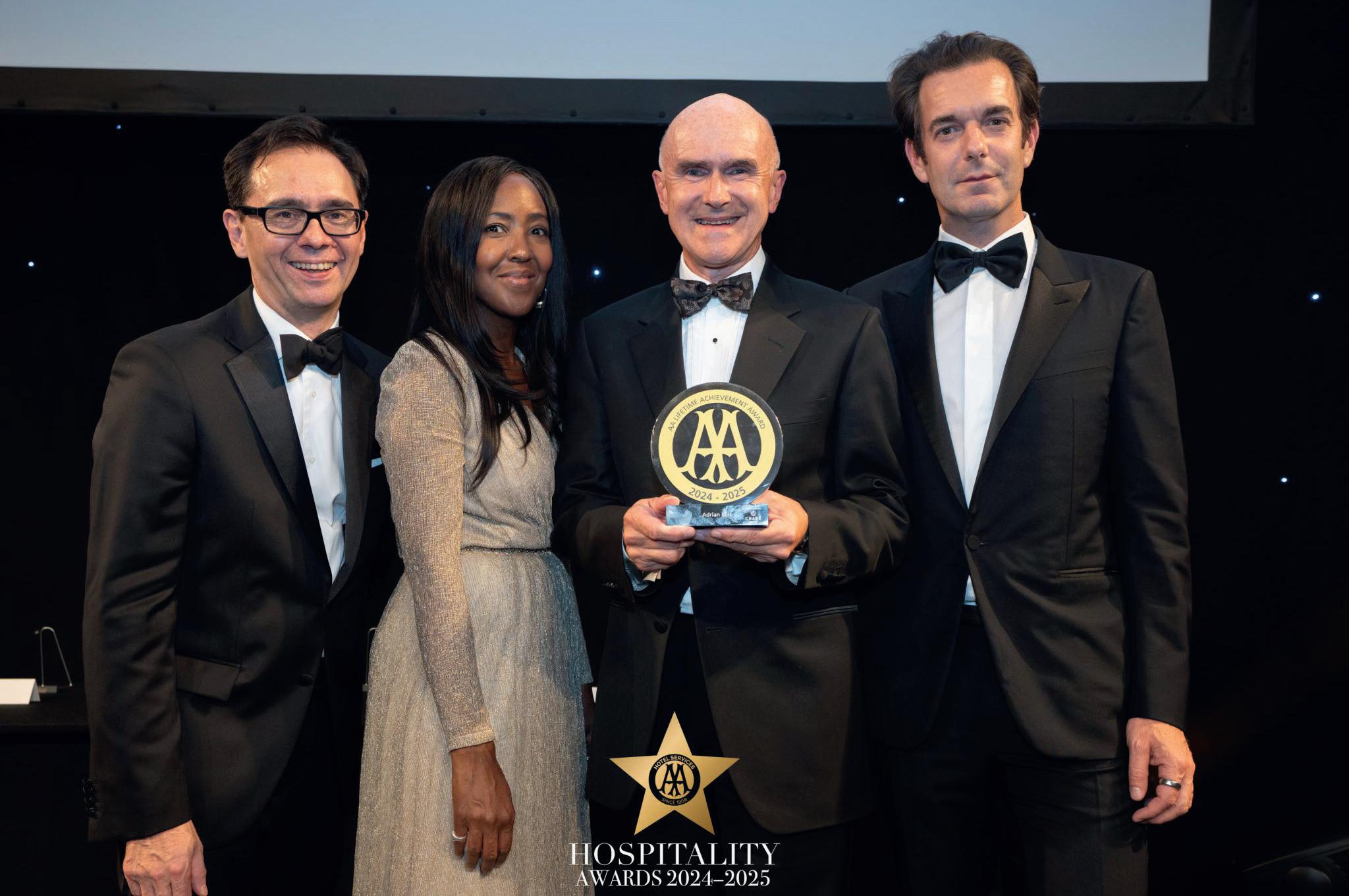
After a distinguished international career spanning more than four decades, Adrian Ellis, former General Manager of The Lowry Hotel and Founder of Hospitality Connect, continues to shape the hospitality industry through his passion for people, leadership, and education. As he steps into a new chapter, Adrian reflects on a career that began with humble beginnings and now drives one of the UK’s most inspiring initiatives for future talent.
Adrian’s journey into hospitality started close to home. “My grandmother played a key role in sparking my early interest in the industry,” he recalled. “She introduced me to our family restaurants in Suffolk and encouraged me to explore what hospitality could offer.”
That early encouragement led to a Saturday job as a Hall Porter at the Castle Hotel - a formative experience that confirmed his love for the business. After completing an HND in Hotel and Catering Administration at Norwich Hotel School and an MBA in Hospitality Management at Oxford Brookes University, Adrian joined Commonwealth Holiday Inns of Canada as a Management Trainee.
His first managerial post came soon after, as Assistant Food & Beverage Manager in Newcastle. A series of progressive roles followed, at the Olde Bell in Hurley, Grosvenor House in London, and then at just 26 years old,
the opportunity to run his first property, the Ambassador Hotel by Norwich Airport. “Being a General Manager at such a young age was both challenging and rewarding,” he said. “It set me up for a lifelong career in hotel management.”
From Norwich, Adrian moved to Manchester to manage the V&A Hotel, later becoming Le Meridien Victoria and Albert, before embarking on an international career that took him to Singapore, Warsaw, and Budapest, where he managed Corinthia’s flagship property for six years. Senior positions with Fairmont Hotels in Azerbaijan and Bali followed, before his return to Manchester to lead The Lowry Hotel for a decade.
“It’s been a career shaped by people, places, and opportunities,” he reflected, “all stemming from my grandmother’s early encouragement.”
Looking back, Adrian pointed to two defining moments that shaped his leadership philosophy. The first came when he was entrusted with his own hotel at just 26. “It was a privately owned 120-bedroom property, and the owners placed complete trust in me to run the business,” he said. “I had limited managerial experience, so I inevitably made mistakes, but that’s where I really learned about leadership, decision-making, and the importance of building a motivated team.”
Years later, another turning point arrived with his appointment as General Manager of the Fairmont Baku, Flame Towers in Azerbaijan. “The country had little experience of international luxury hospitality,” he explained. “We brought in 20 trainers to work with 500 local staff, and the warmth, enthusiasm, and willingness to learn from that team were remarkable.” Under Adrian’s leadership, the property achieved service standards on par with any global luxury hotel.
“Both experiences, one early, one later, taught me that leadership is about trust, empowerment, and continuous learning,” he said.
In recent years, Adrian has turned his focus to tackling one of the industry’s most persistent challenges: recruitment. His initiative, Hospitality Connect, was born out of the post-pandemic labour crisis and the need to connect young people with the opportunities hospitality has to offer.
“While there were good relationships between hotels, universities, and colleges, very little was being done to engage with schools,” Adrian explained. “When we reached out to schools in Manchester, many admitted hospitality simply wasn’t on their radar, yet they were eager to get involved once we opened the door.”
Launched in 2021 with support from the Manchester Hotel Association, the programme pairs local hotels with schools to offer hands-on, creative experiences - from cookery demonstrations and bed-making competitions to takeover days where students run lunch or afternoon tea service.
With the backing of the Savoy Educational Trust, the project has grown rapidly. “We now have more than 190 hotel–school partnerships in 18 cities across the UK, engaging over 4,000 students from Edinburgh and Glasgow down to Bournemouth,” Adrian said proudly. “Our goal is to reach 35 cities and inspire over 10,000 students annually.”
At its heart, Hospitality Connect aims to reframe hospitality as a vibrant, rewarding career and ensure it’s firmly embedded within school careers advice. “This is about changing perceptions and showing young people just how exciting this industry can be,” he added.
Throughout his career, Adrian has remained a firm believer in people-focused leadership. “I’d describe my leadership philosophy as inclusive and collaborative,” he added. “I’m focused on empowering people to reach their potential and working together toward shared goals.”
He admitted that his approach has evolved over the years. “Early in my career, leadership was often about making all the decisions and taking sole responsibility for results,” he reflected. “Now, I see the leader’s role as that of a conductor; bringing together different strengths, encouraging ideas, and creating an environment where people feel valued and trusted.”
For Adrian, great hospitality begins and ends with culture. “In our business, success is built on teams who are aligned, motivated, and proud of what they achieve collectively,” he said.
As the industry faces new challenges, from talent shortages to rapid technological change, Adrian believes the next generation of leaders must combine empathy with adaptability. “Tomorrow’s hospitality leaders need to be exceptional people managers,” he insisted. “Empathy,
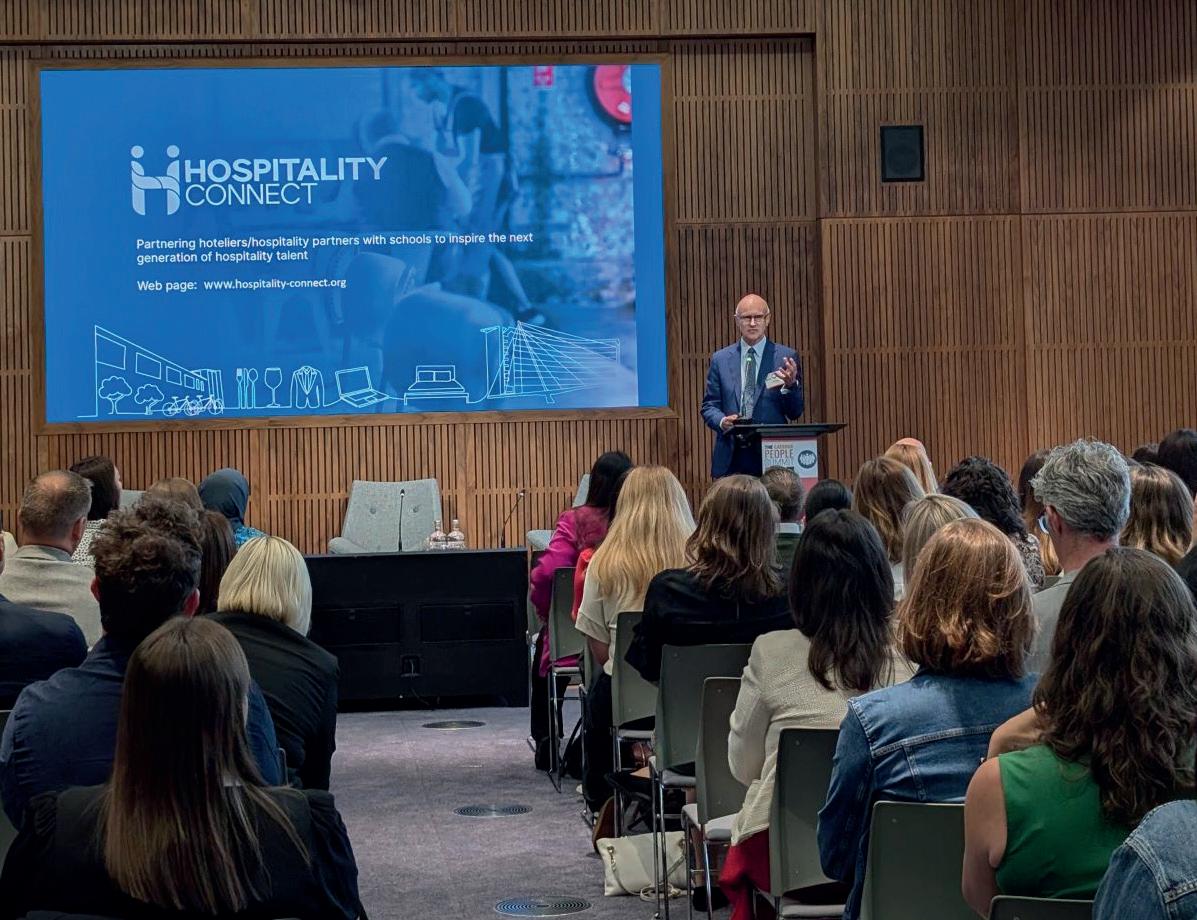
engagement, and teamwork are vital as attracting and retaining talent continues to be a challenge.”
He also stressed the importance of hands-on engagement with future talent. “Leaders must work closely with schools, colleges, and universities, and be open to people joining the industry from outside hospitality. Flexibility and a genuine interest in people will be key.”
Technology, too, will play an increasingly central role. “Innovation is reshaping guest expectations and operations,” Adrian said. “Leaders don’t need to know everything about tech themselves, but they do need to empower those who do.”
Looking at the guest experience, he sees a clear shift in what travellers value. “Guests today aren’t just looking for somewhere to sleep, they want experiences that connect them to the destination,” he noted. “Successful hotels will curate authentic, local partnerships that reflect the character of their surroundings.”
Sustainability, he added, will only grow in importance. “We need to move beyond refillable toiletries and linen cards to embrace community-focused sustainability, supporting local suppliers, engaging in environmental projects, and giving guests ways to contribute.”
For Adrian, the greatest opportunity ahead lies in embracing technology without losing the essence of hospitality. “Our industry can be quite traditional, but we shouldn’t fear technology or AI,” he said. “It’s not about replacing people, it’s about enhancing the guest experience and supporting our teams.”
He envisions a future where technology takes care of operational efficiencies, freeing teams to focus on creativity and personal service. “I don’t think it will be long before we start seeing hospitality businesses with AI personnel,” he predicted. “The key is to ensure these innovations support, rather than replace, the human side of our industry.”
Adrian remains optimistic. “Hospitality will always be about people and connection,” he said. “The question is how we use technology to enrich those human interactions and create new opportunities for our guests and our teams.”


Set in Hampshire’s New Forest, Careys Manor Hotel & SenSpa blends historic charm with modern mindfulness. This elegant manor offers serene gardens, luxurious rooms, and the award-winning SenSpa, where Thai-inspired wellness meets contemporary comfort and this December features as our Hotel of the Month.
Set in the heart of Hampshire’s New Forest, Careys Manor Hotel & SenSpa is a masterclass in modern relaxation. Blending 18th-century English charm with world-class wellness and a refreshingly mindful approach to hospitality, the countryside retreat has become a beacon for those seeking to slow down and reconnect - with nature, with others, and with themselves.
Located in the picturesque village of Brockenhurst, Careys Manor radiates old-world sophistication. The ivyclad manor house, once a grand family home, is now how to 77 beautiful bedrooms and suites that balance heritage character with contemporary comfort. At the unique New Forest venue, each space is designed for tranquillity. For guests seeking ultimate privacy, Pittefaux Cottage, a charming self-contained hideaway within the grounds, offers a home-from-home for families or groups, complete with a welcome hamper of local delicacies and New Forest wine.
Beyond the guestrooms, the hotel’s timeless interiors open out into sprawling gardens, perfect for a morning stroll. It’s a setting that invites guests to breathe a little deeper and rediscover the art of doing nothing.
At the heart of the Careys Manor experience lies SenSpa, a world-renowned Thai spa that has redefined holistic wellness in the UK. Overseen by Spa Director Lina Lotto, SenSpa combines cutting-edge technology with ancient Eastern rituals to rejuvenate body and mind.
On-site facilities, including the hydrotherapy pool, crystal steam room, and herbal sauna offer guests a restorative journey through water, heat, and scent, while the 18 treatment rooms host a range of award-winning therapies, from authentic Thai massages to detoxifying body wraps and rejuvenating facials. SenSpa’s exclusive line of natural skincare products, also available at Waitrose, ensure the experience continues long after guests return home.
A serene Thai Temple Studio provides space for yoga and meditation, while the 14-metre swimming pool and stateof-the-art gym cater to those seeking to energise rather than unwind. With accolades including multiple Gold wins at the Beautiful South Awards and recognition from the Good Spa Guide for “Best Spa for Wellness,” SenSpa has earned its place among the UK’s most celebrated spa destinations.
Careys Manor boasts impressive culinary credentialsunder the direction of Head Chef Dylan James, Cambium serves modern British cuisine inspired by the New Forest’s seasonal bounty. Each dish reflects a commitment to sustainability and provenance, think local venison, forest mushrooms, and herbs picked fresh from the hotel’s kitchen garden.
For a change of scene, guests can enjoy French flair at Le Blaireau, a convivial bistro that transports diners to the streets of Paris, or escape to Thailand once more at Zen Garden, where aromatic curries and fragrant stir-fries are prepared by chefs trained in authentic Thai cookery. During the summer months, The Neigh Bar: a reimagined horsebox serving cocktails, craft beers, and small plates, brings a touch of alfresco fun to the gardens.
Alongside all of this, in a world where the average Brit spends more time looking at screens than sleeping, Careys
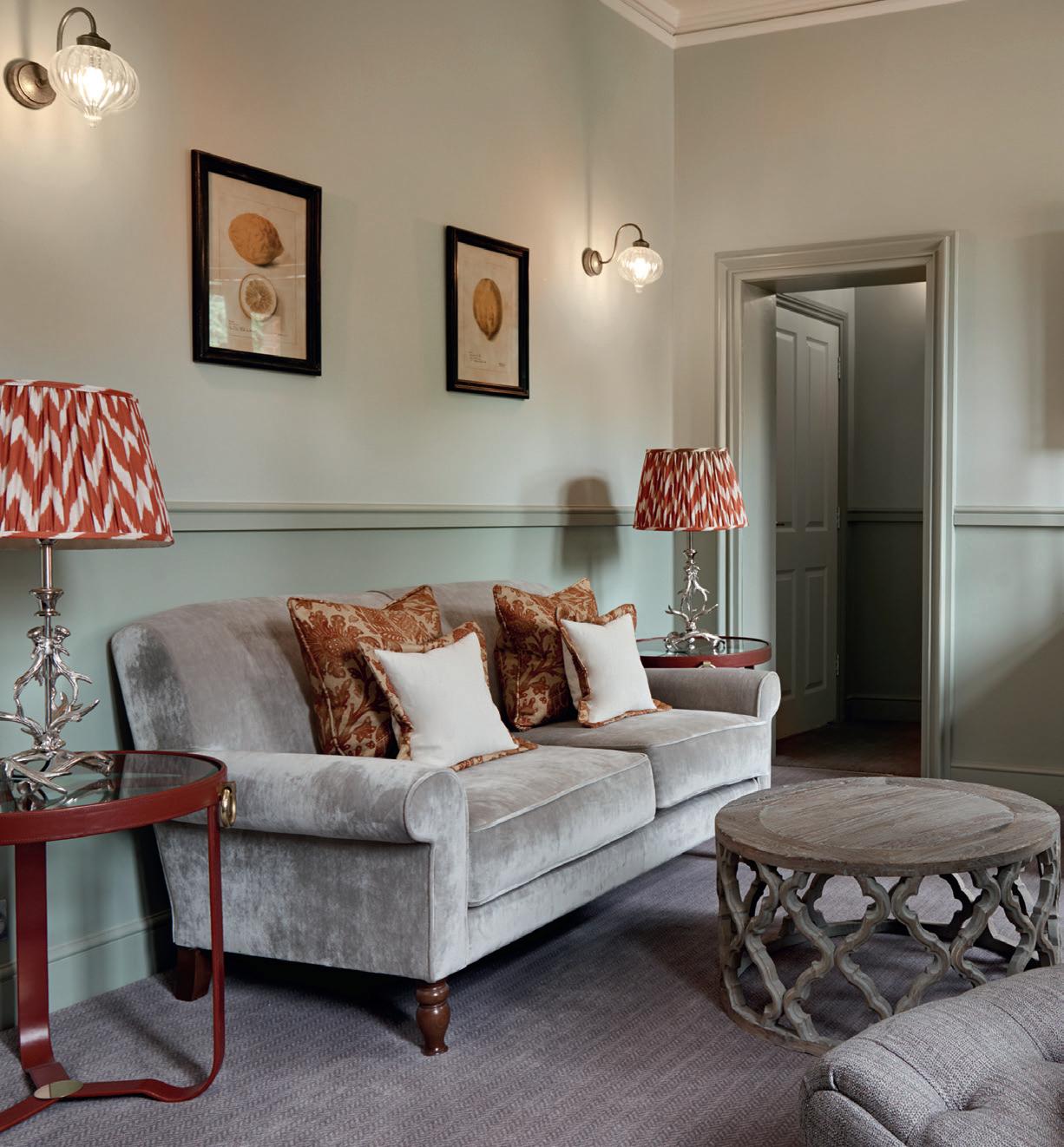
Manor has created an experience that feels both timely and transformative. The hotel’s Digital Detox Package invites guests to step away from technology and rediscover the joy of being truly present.
Upon arrival, guests are greeted not with Wi-Fi codes but with a handcrafted amnesty box - a gentle prompt to store away their phones for the duration of their stay. In return, they’re gifted the freedom to unwind, explore, and recharge without interruption.
The two-night escape includes a four-hour SenSpa hydrotherapy session, a 30-minute treatment of choice, and full use of the health club’s facilities. Guests also receive an indulgent wellness hamper worth £99, featuring mindful essentials such as a Positive Planner gratitude journal, Pure Earth kombucha, DIRTEA mushroom powder, a Scentered aromatherapy balm, and SenSpa’s organic body care products. Every detail is curated to nurture mindfulness, relaxation, and digital balance.
Home to unmatched surroundings, with forest trails just steps away, the gentle rhythm of the New Forest becomes the new soundtrack for guests, with birdsongs instead of notifications. Evenings are reserved for nourishing dinners at one of the hotel’s three restaurants, with a £35 per-person dining allowance included in the package. The result is an experience that feels restorative rather than restrictive - luxury not as excess, but as escape.
Careys Manor’s team, led by General Manager Steve Woodrow, ensures every guest is cared for with quiet professionalism and genuine warmth, a quality that has helped the hotel win numerous awards, including Large Hotel of the Year at the Beautiful South Awards 2024.
From its elegant weddings and mindful spa packages to its innovative digital detox retreat, Careys Manor Hotel & SenSpa offers guests unique experiences.
Following the launch of La Bottega Collective, CEO Tommaso Pacini discusses how the group is reshaping luxury hospitality by uniting leading expertise across beauty, textiles, accessories, and design into one ecosystem. In this interview, Tommaso explains how this new model will support hoteliers worldwide through innovation, elegance, and a redefined vision of the guest experience.
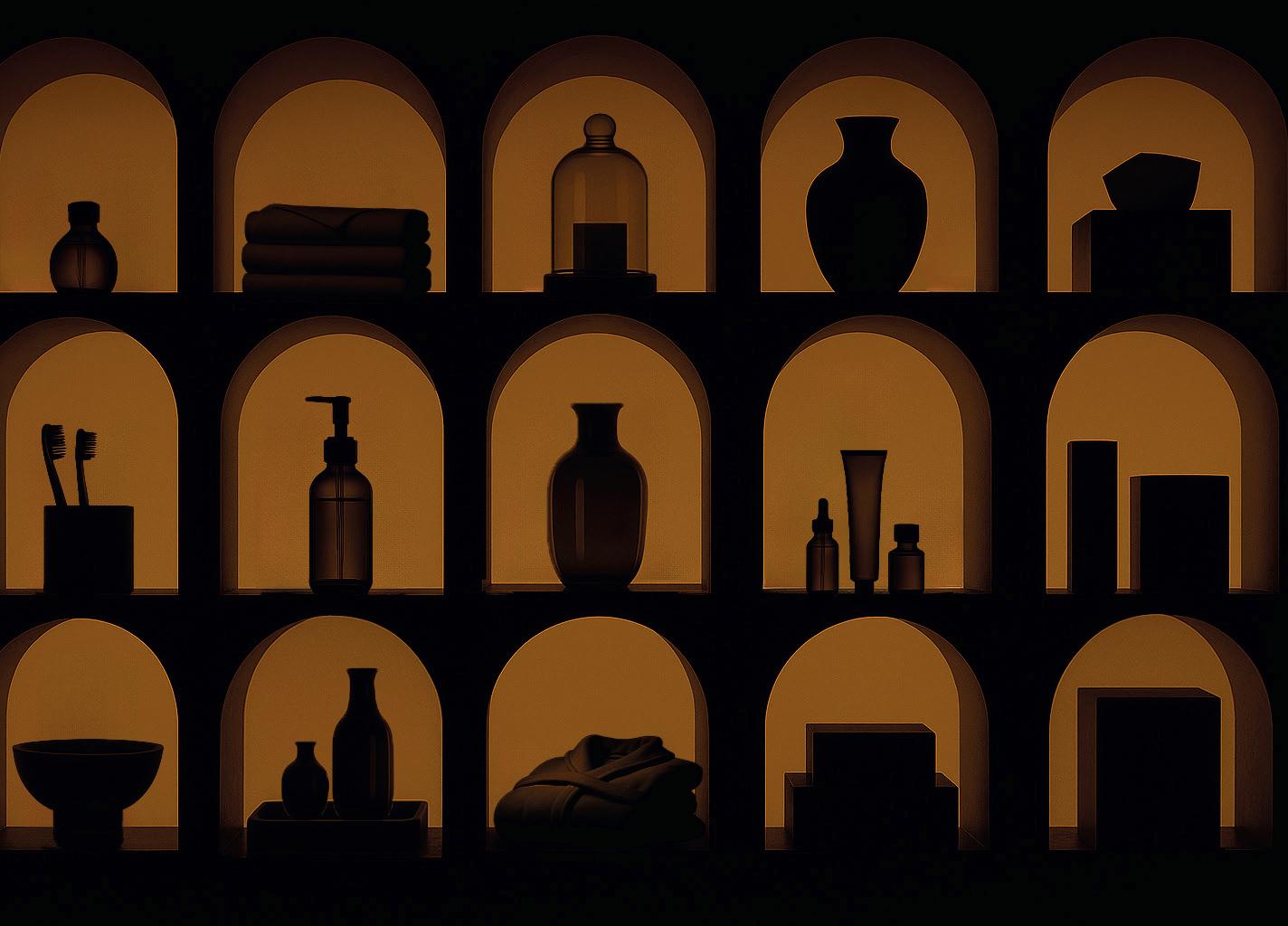
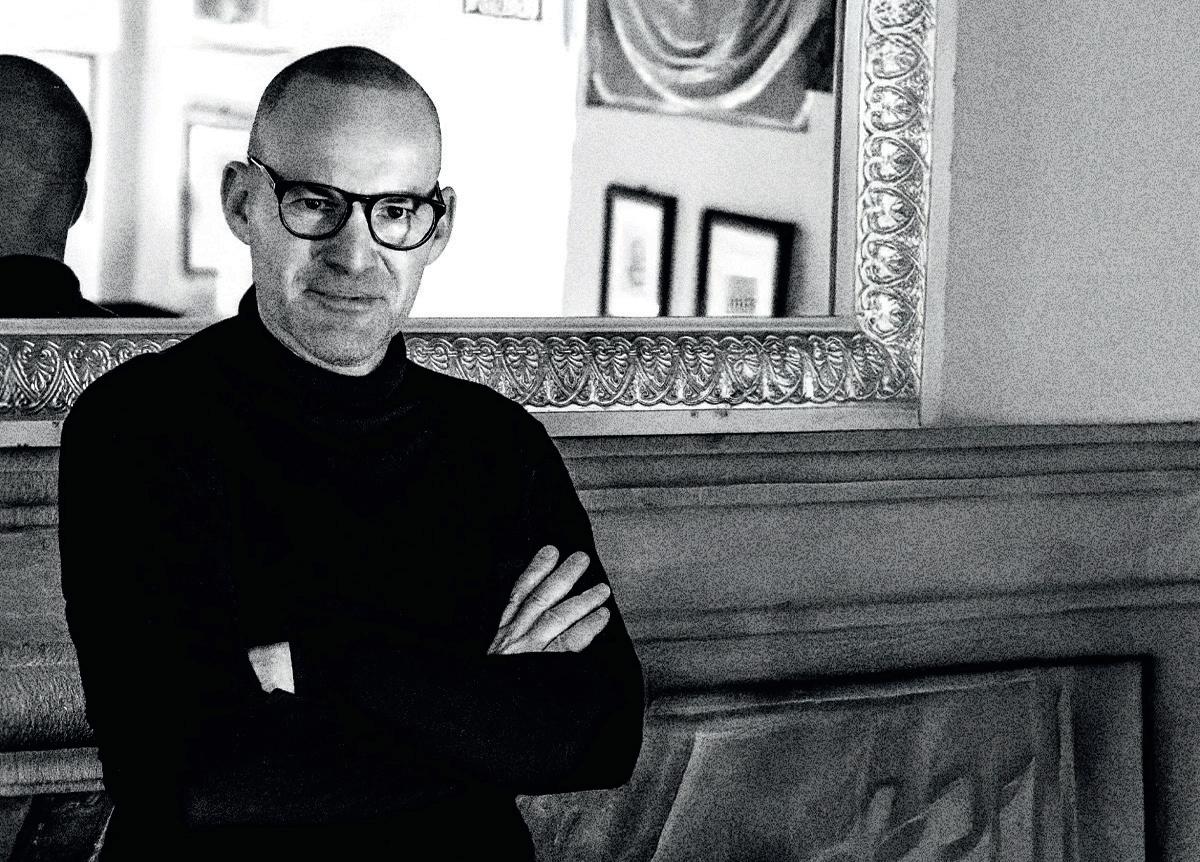
What makes La Bottega Collective distinct from other players in the luxury hospitality supply chain, and how does it redefine the idea of a “curated guest experience”?
At the heart of La Bottega Collectives lies a simple yet powerful belief: a hotel is more than just a beautiful location, its a destination where guests want to live a memorable experience. We aren’t interested in luxury. We’re anchored in elegance. We design products and services giving the world’s most esteemed hoteliers the quiet confidence to choose, and choose well. We’re a B2B business adopting a B2C approach. We don’t supply products, we design experiences that come to life through
our products and services to meet (and exceed) client and consumer needs. Our vision is to be the most sophisticated partner for the hospitality industry at large and the one point of reference for clients brands and partners.
We bring together companies with deep expertise, La Bottega and Vanity Group in Beauty Essentials, Palatino in accessories and design, Beltrami and White Privé in textiles and linens, and Colosseo in design consulting into a single ecosystem. We’ve created more than a holding company, La Bottega Collective is a dialogue of cultures, artisans, designers, and innovators.
Our mission is to redefine the guest experience. After dedicating my life to the industry, I know guests don’t recall
products in isolation, they remember how the robe felt against their skin, the scent in the bathroom, the weight of a glass in hand or their personalised welcome. By designing those details around emotion, we redefine what it means to curate an experience.
What tangible benefits can hoteliers expect when partnering with La Bottega Collective, beyond access to products, when it comes to enhancing guest satisfaction and loyalty?
Our partners benefit from something rare, the ability to deliver consistency and differentiation in unison. As La Bottega Collective we have production flexibility, an excellent distribution reach, and a speed of execution that very few players in this industry can match.
We will continue down the path of integrating products and services, expanding our international presence. We are what didn’t exist before: a unique place where everything you need can be found. A player that designs hospitality experiences around people’s desires. La Bottega Collective is the ideal partner for those seeking the very best in products, design, services, and innovation.
With showrooms launches in Dubai, New York and beyond, how will La Bottega Collective ensure its offering feels both globally consistent and locally relevant to hoteliers and their guests?
Our showrooms are designed as immersive spaces, honouring regionality. We have 20 head offices in the world, including key cities like Milan, New York, London, Paris, Barcelona, Dubai, Singapore, Hong Kong, Shanghai, and Sydney, where hoteliers can co-create with us in ways that respect cultural nuance and local identity. We have a global voice, but a local lens, giving us the unique ability to intercept trends or create new ones.
The La Bottega Collective model allows us to adapt while retaining a shared mission: redefine the guest experience through bespoke solutions that inspire, delight and endure.
Sustainability is becoming a top priority for hoteliers worldwide. How is La Bottega Collective’s ESG strategy shaping product design, partnerships, and long-term innovation?
We believe that sustainability cannot be an accessory in luxury, it must be intrinsic.
As a group, we’re committed to embedding sustainability across everything we do. We are rolling out a group-wide ESG strategy to align all our companies under a single framework, ensuring we operate with shared goals and measurable impact.
Our approach focuses on three key pillars: Reducing our environmental footprint, driving decarbonisation, and promoting circular solutions; supporting our people, clients, and local communities while upholding diversity, inclusion, and quality standards; ensuring integrity, transparency, and responsible supply chain practices across the Group.
This framework guides our decisions and actions as we work toward our 2025–2030 ESG goals, creating long-term value for our people, partners, and planet.
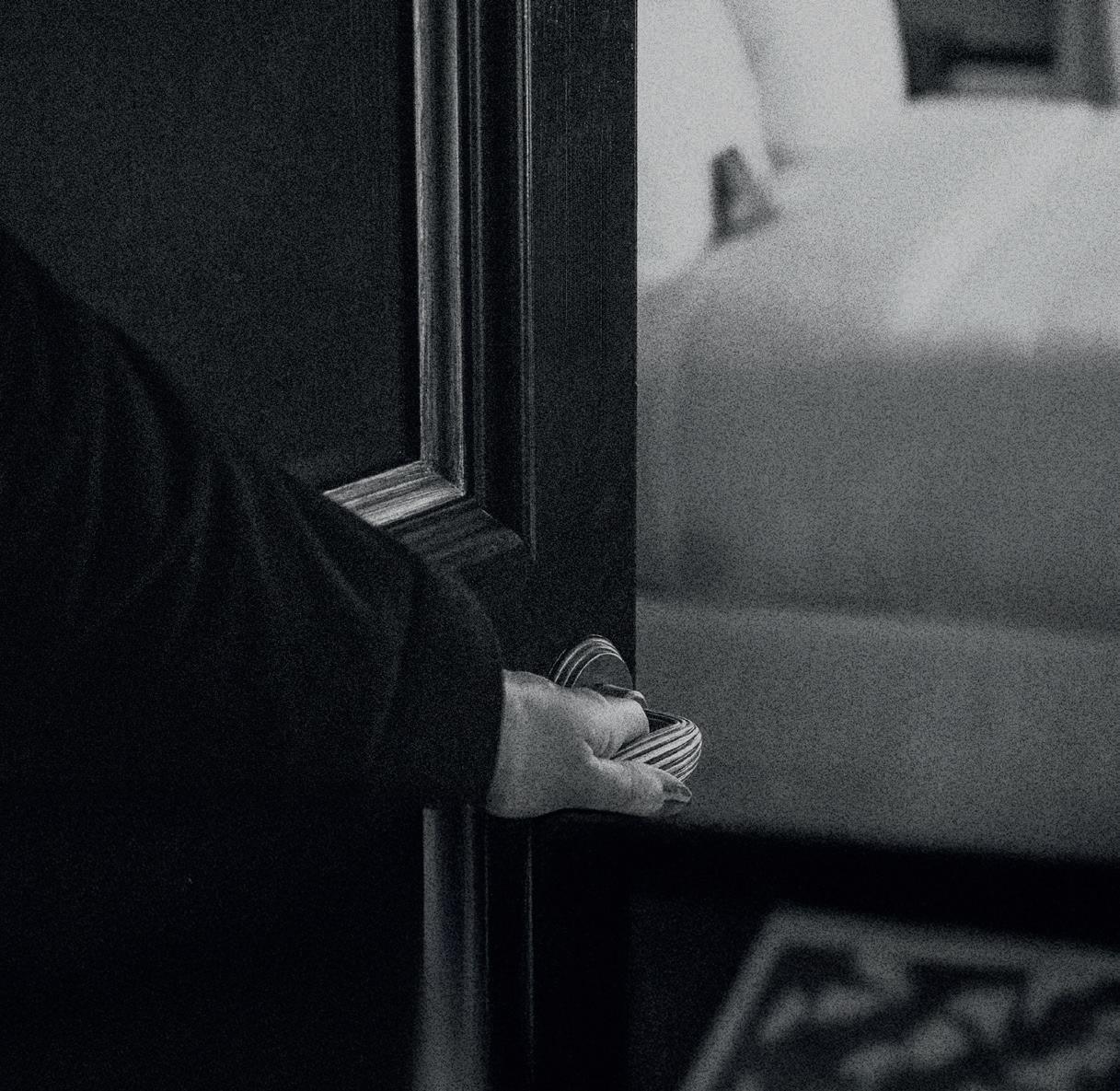
Given your family’s four-decade legacy and La Bottega Collective’s recent international investments, where do you see the biggest opportunities for luxury hospitality in the next five years, and how will La Bottega Collective help hoteliers capture them?
What you see today began with my father in 1981. La Bottega Collective honours his legacy through the world’s most trusted hotels and partnerships.
The next five years will be defined by three forces, personalisation, wellness, and experience-driven elegance. For example, we collaborate with our luxury licensing partners on elements like in-room skincare tutorials, hotel app integrated haircare styling channels, or suite and public space takeovers. Guests are no longer satisfied with “standard luxury.” They want spaces and services that reflect their individuality, nurture their wellbeing, and immerse them in culture.
La Bottega Collective is positioned to meet this demand. Our acquisitions give us breadth and depth across categories, while our creative DNA ensures we can interpret trends into tangible solutions. From wellnessfocused guest essentials, to textile innovations that challenge the status quo, or collaborations with fashion and fragrance houses that create emotional resonance, we are building the infrastructure for hospitality-at-large to surprise and delight their guests.
At the same time, we will continue expanding globally. Our showrooms are cultural anchors and investments in understanding individual regional requirements of our industry. We’re a partner who designs hospitality experiences around guest’s desires, not just their needs.
Honouring my father’s legacy, and guided by extraordinary partners, our vision is clear: be the most sophisticated and trusted ally to the hospitality industry.
labottegacollective.com

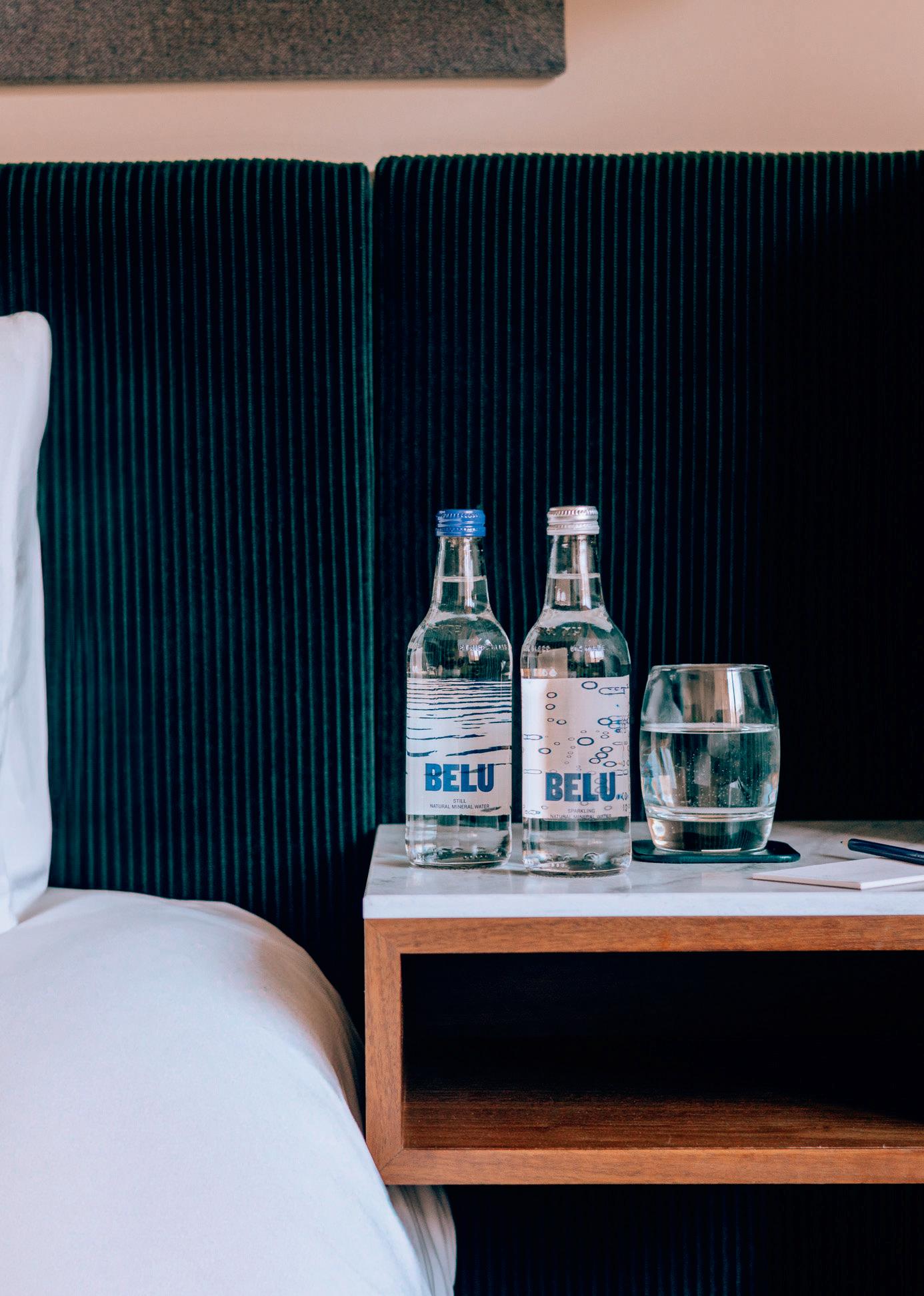


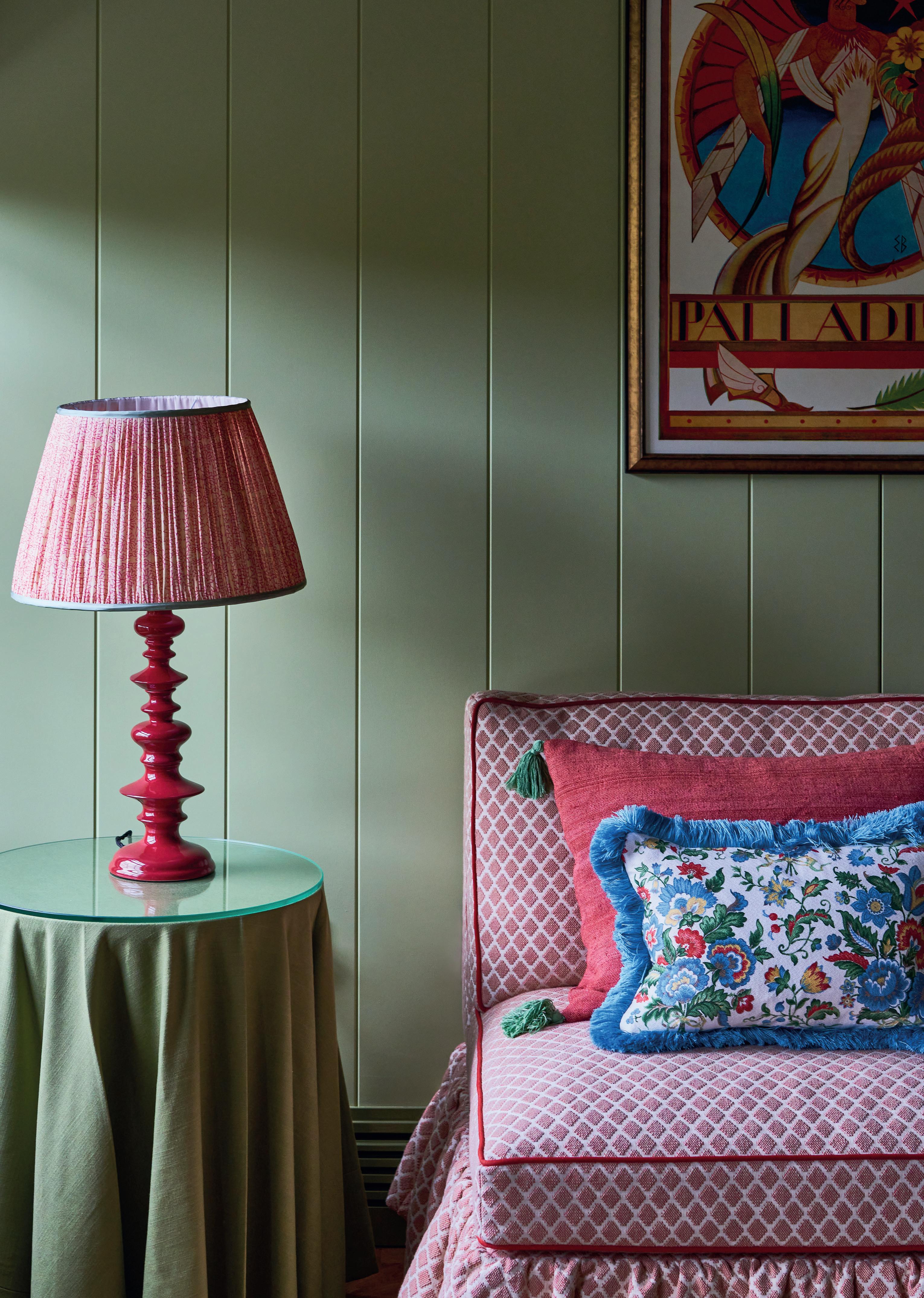
Simon Numphud, Managing Director of AA Hospitality, reflects on 2025 in his own words, sharing key insights, challenges, and successes that shaped the year in hospitality.
It seems that strong headwinds for our industry have become the norm. 2025 saw hospitality hit the hardest with the budget having a profound impact on further eroding margins. UKHospitality projected that 111,000 jobs will have been lost during the year, which only goes to demonstrate just how tough it’s been.
Despite all this, I have been encouraged by the ongoing significant investment and innovation I’ve seen in hotels across the UK – Mar Hall, Belfry, Newman, Rosewood Chancery, Fowlescombe Farm, St Brides, Penmaenuchaf and the Headland to name but a few.
Hoteliers are still hungry to innovate, seeking ways to develop an approach that aims to personalise and localise guest experiences. For me, video content will become the new home page of most websites and the likes of Exclusive and Torridon are great emerging examples.
Food and wellness focus continue to grow in most hotels as critical pillars of the experience, reflecting the importance consumers now place on both mental wellbeing and diet. Guests are more time poor than ever, and I can see potential pivots and trends emerging. For spas, I think we will see more shorter sessions on offer that replace the more traditional half- and full-day packages. In terms of food, perhaps more of a return to carte and 2 -course options away from tasting menus that require much longer dining time.
Artificial intelligence seems to dominate much of the discussion of agendas, round tables, conferences and industry panels. I think it brings a massive potential for our industry to automate the mundane tasks and, importantly, analyse large data to facilitate evidence-based decision making. It shouldn’t replace our diminishing talent pool, but free up more time to be guest facing and focus on revenue generation. Governance and tight controls will be essential to protect data, privacy and authenticity in this respect.
Like most people in our industry, I remain deeply frustrated around the general taxation levels we must navigate and our lack of competitiveness as a destination on a global stage. We know that hospitality and tourism
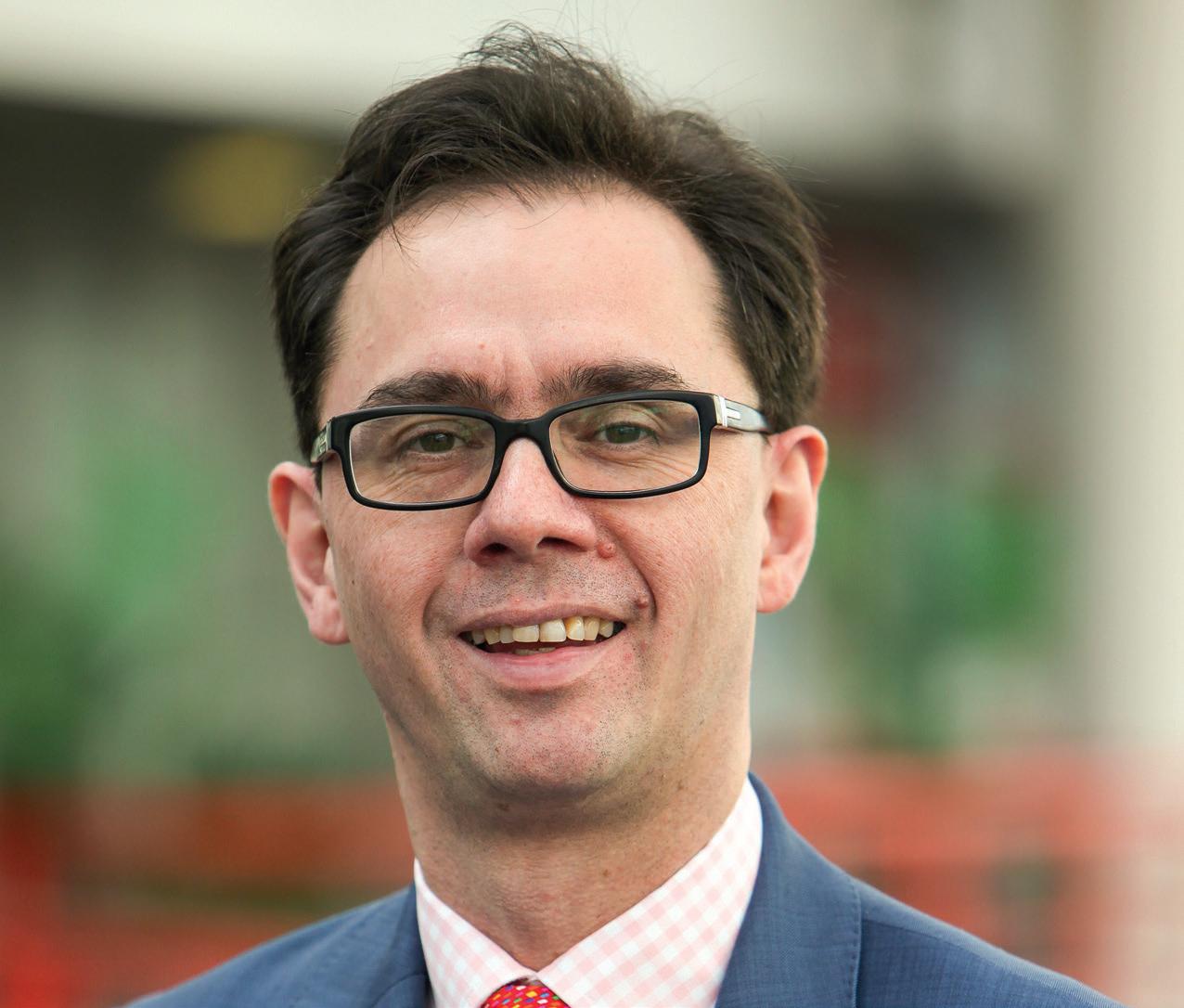
is one of the few industries that can be a catalyst for economic and employment growth, drive investment and community cohesion. Resilience can only take our industry so far and we need the right conditions to deliver real growth and that includes critical areas such as business rates, VAT and tax-free shopping for international visitors. Finally, I remain in awe and touched by the incredible generosity of our industry. Despite the financial pressures that impact everyone, support for our charities shines bright. We have seen so many epic challenges and fundraising across the sector. Most recently, over 1,300 walkers for Hospitality Action’s Walk for Wellbeing, a fantastic national event across 10 cities. That’s not bad for something that started off as a single walk just 6 years ago. Another example of how our industry can make such a difference.
We hear from Henrik Muehle, Managing Director of Flemings Mayfair, as he reflects on the challenges, and milestones that shaped 2025 for one of London’s most distinguished boutique hotels.
This year has shown that luxury alone is no longer enough. Guests now seek purpose, provenance, and tangible impact. At Flemings Mayfair, this means combining the distinction of a Michelin Star and a Michelin Key with practices that make every experience both refined and responsible.
2025 has reinforced that independent hotels are uniquely positioned to respond to these expectations. At Ormer Mayfair, our Michelin starred restaurant, seasonal tasting menus are inspired by produce from our two-acre kitchen garden in Essex. We have introduced simpler tasting menus to reflect seasonality, with all food ordered based on confirmed reservations. Any surplus food is used for staff meals and, importantly, to support Charity Begins at Home, providing meals for people experiencing homelessness in the city every Wednesday, 14,000 meals so far have been provided. Absolutely nothing goes to waste.
Our commitment to provenance continues beyond the kitchen. We have introduced 20,000 bees to our Essex grounds, producing exceptional honey, while our apple orchard produces around 2,500 apples per year, pressed into a small amount of apple juice served at breakfast. Across the hotel, partnerships with eco-conscious brands ensure that sustainability is considered in every detail. Achieving the Butterfly Mark accreditation from Positive Luxury this year was a valued recognition of these efforts.
The definition of luxury continues to evolve. Guests increasingly value individuality and integrity over scale or spectacle. At Flemings and Ormer, every element, from design to dining, reflects a sense of place and purpose. Independent hotels have the freedom to innovate authentically, making heritage, character, and attention to detail defining strengths.
2025 has confirmed that excellence in hospitality is not defined by recognition or size, but by how deliberately a hotel integrates sustainability, provenance, and guest experience into every decision.
Looking ahead to 2026, independent hotels that innovate
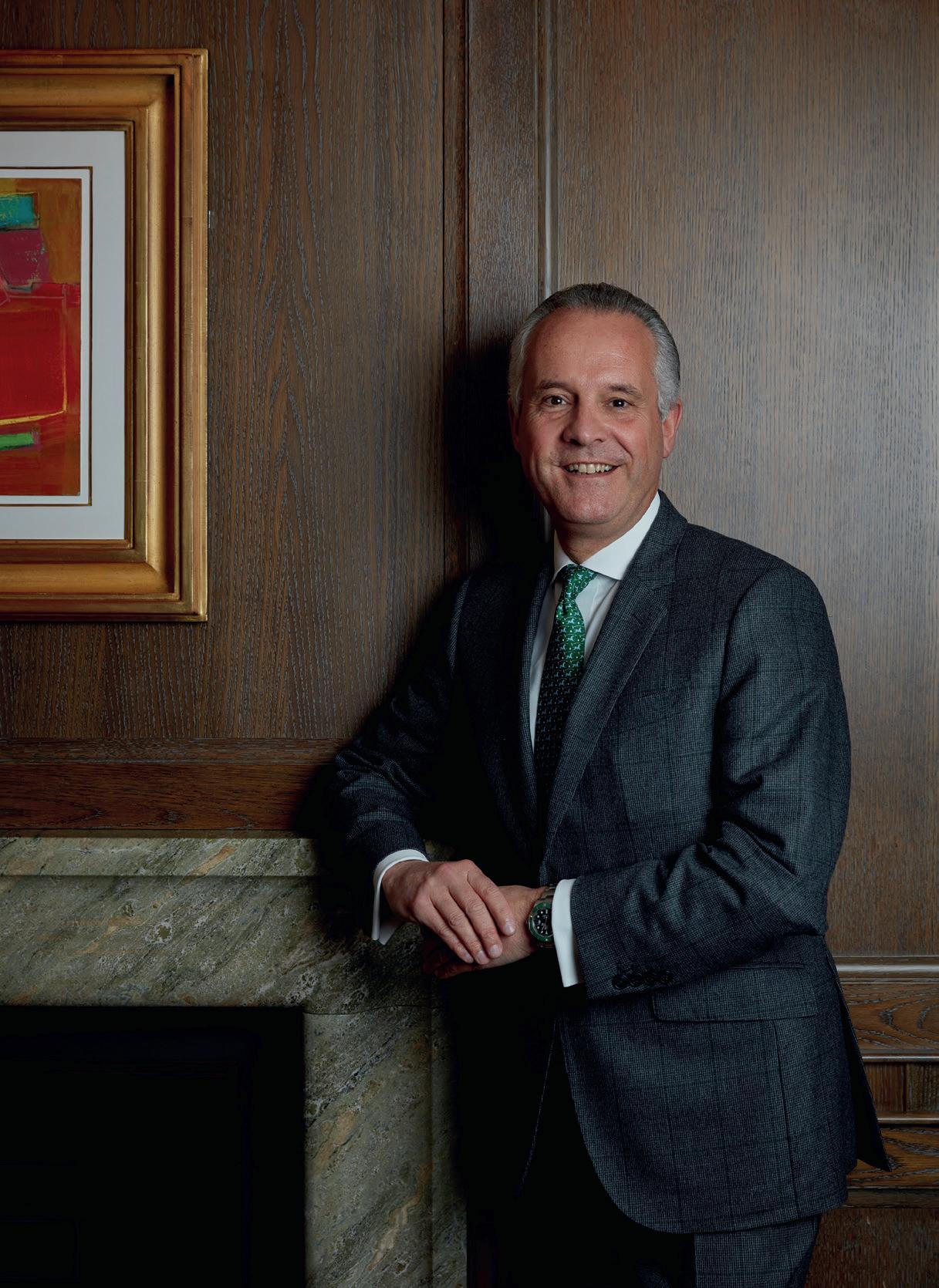
responsibly and stay true to their values will define the next era of luxury. Relevance is earned through integrity, consistency, and care, qualities that endure far beyond a single stay.
Glenn Wallace, Event Manager, Independent Hotel Show London, believes that 2025 has been a year of emerging tech and redefining luxury – we share the details.
As 2025 draws to a close, it feels like a turning point for the UK hotel sector, a year when technology, guest expectations and definitions of luxury all shifted in meaningful ways.
London’s hotel landscape is evolving significantly, with openings such as Chancery Rosewood, SiR Devonshire and House of Gods Canary Wharf. Each new property adds to the diversity of the city’s offering and reflects a market in motion.
Yet for many independent hoteliers across the UK, this growth has been tempered by familiar pressures: shorter lead times, rising business rates and continued strain from online travel agents on already tight margins.
At this year’s Independent Hotel Show, our theme of ‘Redefining Luxury’ really struck a chord and proved more relevant than we could have imagined. Throughout the year, our conversations with hoteliers across the country have revealed just how much concepts of luxury are evolving.
While your dream hotel might have marble pillars, sweeping grounds, a high-end spa, or just comfy beds and a roaring fire, the true ideal of luxury speaks to authenticity, meaning, memory and connection.
The year has marked a decisive moment for artificial intelligence in hospitality. It is remarkable to think that in 2024, AI barely featured on our stages, while this year it was front and centre, with every session on the topic standing-room only. AI’s rise was predicted, yet the speed of its adoption and influence have still caught many by surprise. It is already shaping marketing, data management and HR processes, and starting to inform everything from energy use to guest communication.
As with any major shift, the conversation has not been without concern among hotel leaders. There are valid questions around data ethics, creativity and the potential loss of human connection. Yet one idea keeps resurfacing in every discussion we have with our community: the personal touch remains irreplaceable. In fact, as AI takes on administrative and operational tasks, the uniquely

human side of hospitality becomes even more vital and irreplaceable.
The hospitality industry in 2025 is defined by precision and purpose, with AI and data-driven systems increasingly forming the invisible engine behind every front- and backof-house process. Check-in, scheduling, procurement and marketing can all be automated, allowing hospitality teams to focus on what technology cannot replicate: relationships, emotion and genuine care
Independent hotels continue to show that success is not about scale but about soul. The future belongs to those who combine smart systems with sincere service, creating spaces where guests feel truly seen. As 2025 comes to a close, one message is clear: hospitality is becoming more intelligent, but has to remain, above all, profoundly personal.
Looking back at 2025, Mark Lewis, CEO of Hospitality Action, shares his thoughts on the key issues that have been prevalent this year and how the sector can move past them.
2025 has been an exceptionally challenging year for hospitality in terms of the sheer volume of job losses. The sector has felt the full impact of the Employer’s National Insurance increase in April which only exacerbated the long-term effects of the pandemic, Brexit and the cost-of-living crisis, which already meant that so many organisations were already operating below required staffing levels.
The net result of these pressures is that nearly 100,000 job roles have been lost across our sector, a figure that highlights both the financial strain on employers and the human cost to employees. It has left many businesses forced to reassess budgets, pricing strategies and staffing models to mitigate the impact.
This has impacted negatively in two ways: Those that have lost their jobs or have experienced reduced hours are facing significant financial distress, whilst those who retained their roles are under considerably more pressure to do more with less people to maintain standards, whilst juggling longer hours with family commitments.
The damage caused by this operational cost increase is not to be underestimated, with the combination of job insecurity and overstretched teams taking a significant toll on wellbeing, productivity and morale, and yet further challenging the already problematic issue of retention.
Sharp increases in rents, council tax and utility bills are eroding already stretched household budgets, leaving many unable to keep up with even basic living expenses.
At Hospitality Action, we’ve witnessed a marked rise in applications for emergency grants to cover rent arrears and essential bills. The situation is being compounded by a shortage of affordable housing due to many landlords exiting the rental market or passing rising mortgage costs onto tenants. The result is a perfect storm of evictions, mounting debt and mounting anxiety, pushing more working families to the brink.
Hospitality has always been a resilient industry built on care and community, but right now, too many of our people are struggling simply to stay afloat.
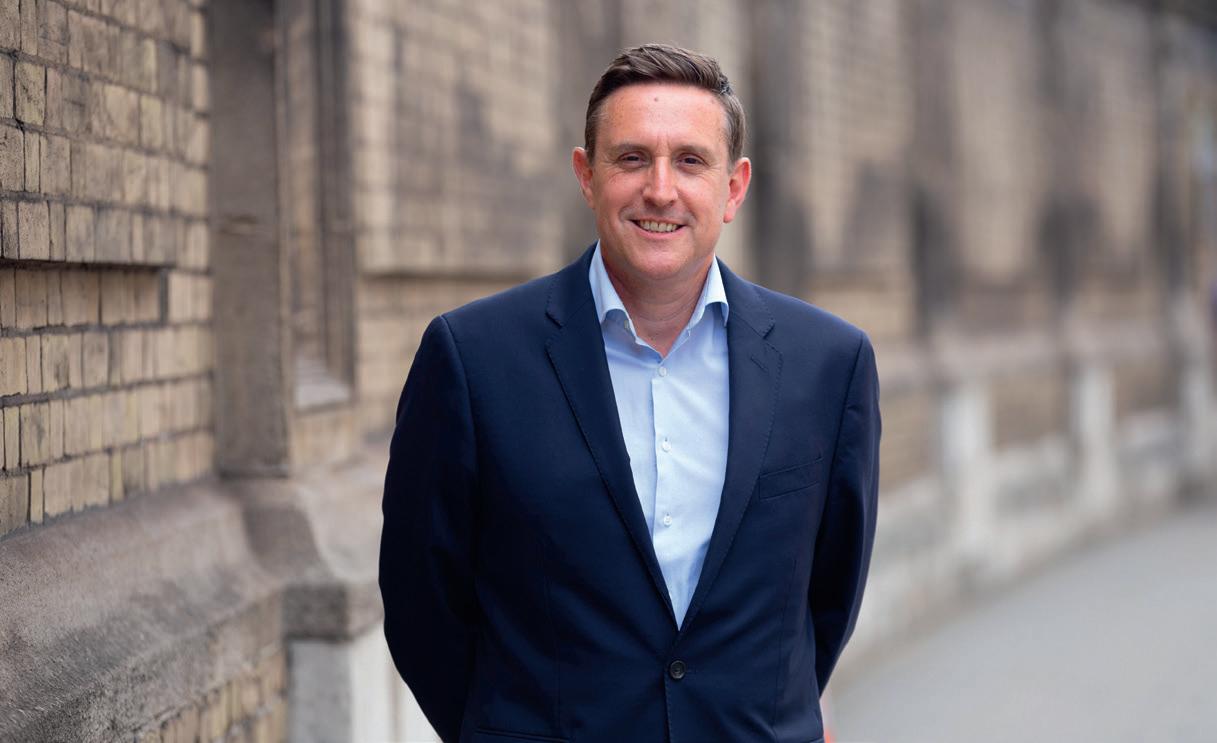
As a byproduct of increasingly difficult financial pressures and precarious housing, 2025 has seen a worrying surge in cases from applicants seeking support for problem gambling. This behaviour is often triggered by a desperation to clear debts, coupled with the ease of access to online gambling apps.
At Hospitality Action, we continue to work closely with specialist partners to help individuals address these issues, supporting recovery and restoring stability in their lives.
It’s pleasing to see more employers recognising their responsibility for team wellbeing and taking proactive steps to create supportive workplace cultures. Increasing numbers are turning to us for guidance on how best to do this. However, as margins tighten, it becomes harder to sustain comprehensive wellbeing initiatives.
Support frameworks like our Employee Assistance Programme (EAP) and mental health training have been widely adopted providing vital support, and over 1,500 joined our Walk for Wellbeing event in October, proof that wellness remains at the heart of many businesses’ values.
The challenges we face today are unprecedented, but by continuing to look out for one another, the hospitality community can remain resilient and strong.
‘Reframing the Narrative’ is the focus for this piece from Robert Richardson FIH MI Chief Executive at Institute of Hospitality. We spoke candidly with Robert to gain his insight of 2025 as we review the past twelve months.
Reflecting across the past year, wherever we look, television, radio, or print, our great industry is so often portrayed as one in distress. The understandable challenges of rising costs, shrinking margins, and sustained economic uncertainty dominate the headlines, painting a picture of a profession under siege.
Yet, what is often overlooked is that the global hospitality profession (we are a profession, not a sector), is a cornerstone of our communities social and economic success.
The cost of doing business, both here in the UK and across the world, is absolutely one of the defining issues of our time. But while we must acknowledge these pressures with honesty, it is also time to reframe the narrative, to look beyond the obstacles and focus on our greatest resource, our people.
As Chief Executive of the near 90-year-old Institute of Hospitality, I’m privileged to engage in daily dialogue with many of our 16,000 members. Across those conversations, one theme continues to emerge: in a global talent shortage, where and how people choose to build their professional “home” has never mattered more.
We once said that cash is king, but today, culture makes a strong claim to that crown. Businesses must now work harder than ever to attract and retain talent. Not through brand prestige alone, but by becoming a genuine reflection of the needs, values, and aspirations of the people who bring our profession to life.
It is our people who elevate guest experiences, strengthen our businesses, and ensure that, even in challenging times, hospitality remains one of the world’s most powerful forces for connection and community.
From a shortage of experienced candidates to increased job-hopping, the pressures on our hotels, and indeed across the wider profession, are mounting. Those that fail to adapt risk losing their most talented people to competitors who do. Today’s teams quite rightly expect
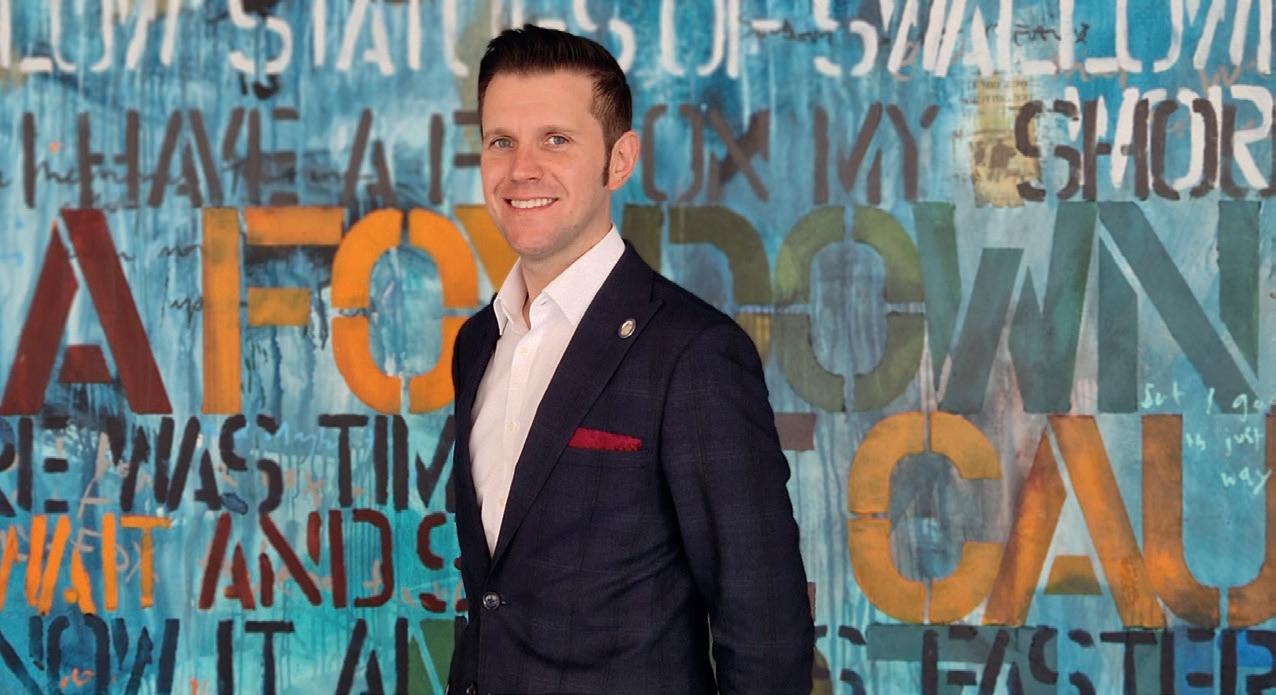
clearly defined career progression, a genuine work–life balance, and a positive, values-driven workplace culture. When those expectations are not met, the result is all too familiar. Reduced job satisfaction, disengagement, and ultimately higher attrition rates.
In short: culture matters. Inclusion matters. Our people matter.
Throughout the year, we’ve heard repeatedly that hospitality is a driver of our economy, and that is absolutely true. But it is so frustrating when it feels as though those in power are not listening, and when despite our contribution, we are too often taxed without end, rather than supported. I’m a former hotel General Manager and operator, so believe me, I get it.
My key takeaway from 2025 is the importance of reframing the narrative, to remind ourselves, and others, that we are not a struggling sector but a proud profession, and that hospitality remains one of the world’s greatest employers.
Because even amid challenge, we adapt, we persevere, and we keep the lights on in a profession where there is still joy to be found in what we do, and purpose for those who make it possible.
In her own words, Emily Keogh, Founder of London-based travel and hospitality communications agency Palm PR & Digital, reflects on 2025 and how it’s been a year of transformation, originality, and resilience across the industry.
If 2024 was the year the hospitality industry rediscovered its confidence, 2025 has been the year it asked itself deeper questions.
Growth has returned, London’s hotel pipeline is vibrant, there has been a growing domestic demand base and international travel continues its strong rebound. But beneath the optimism, there’s also been a quiet recalibration - a move from survival and resurgence to selfawareness and considered strategy.
The year began with exuberance: high occupancy, new openings and bold design-led launches that captured the imagination of both travellers and investors. Yet, as the months unfolded, the conversation shifted. Profitability, purpose and people came into sharper focus. Rising costs, from wages to energy, have forced even the most established groups to innovate operationally, think smarter about digital marketing and PR, and get closer to their guests in meaningful ways.
At Palm PR, we’ve seen a growing appetite among hoteliers and travel brands for authenticity over aspirational content. In an uncertain world where values have been shifting at best, and totally eroded at worst –guests expect more from the hotel brands than ever before. Storytelling in 2025 wasn’t about perfection; it was about connection. Guests want to see who’s behind the brand, understand its values and feel a sense of belonging that extends beyond their stay. The most successful properties this year have been those that blend community and culture with quiet luxury - less opulence, more soul.
Sustainability, once a buzzword, has matured into an expectation. What’s been refreshing is how hoteliers have moved beyond the performative - no longer shouting about green initiatives in marketing plans but simply embedding them. We’ve also seen technology step forward in a more human way. AI-driven guest experiences, once a novelty, now becoming a seamless part of the service ecosystem, allowing staff to focus on creativity, care and personal touch; the things that truly make hospitality and the spaces
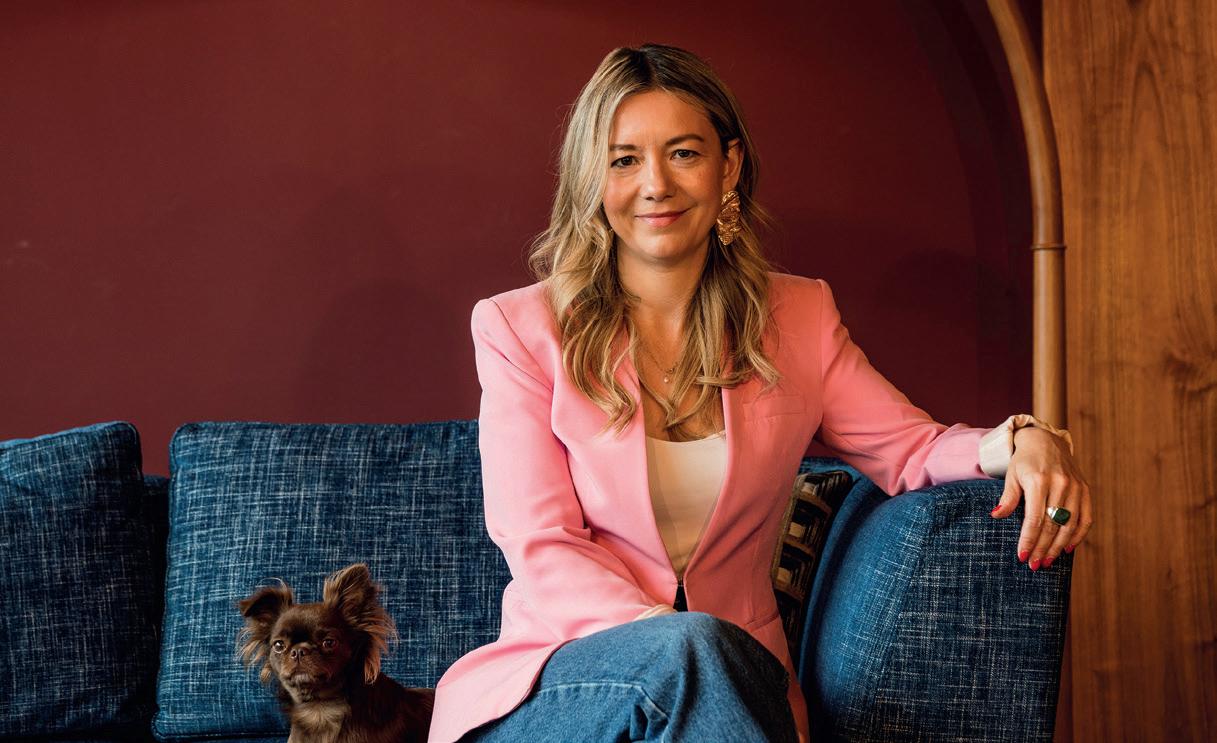
they create special.
But it wasn’t without its setbacks. Recruitment remains a thorn in the industry’s side. A significant number of operators still grappled with wage inflation, rising National Insurance contributions and business rates. In the UK, over 50 leading hospitality figures signed an open letter asking the government to intervene and ease the tax burden on restaurants, bars and cafés ahead of the Autumn Budget-citing a “perfect storm” of rising costs, squeezed consumers and business closures.
For operators and PR teams alike, the lesson is: align to purpose, lean into authenticity, and invest in the high-end of the market while never forgetting the base. The middle is getting squeezed, meaning that brands that try to sit in neither premium nor mass risk being left behind. Luxury’s future is about deeper meaning and true brand experience with cultural touchpoints. For cities like London, with a crowded pipeline, differentiation through marketing narrative, strategic PR that is measurable, design and service will win. Meanwhile, we must continue to press government for support, especially when high streets are still haemorrhaging units, jobs and hours.
In this exclusive interview, we speak with K RajaSeelan, Chairman of RS Rock Holdings, and Karthick Srinivasan, Chief Operating Officer. RS Rock Holdings own the Dover Marina Hotel & Spa, now part of Hilton’s Tapestry Collection. They share the hotel’s journey from its rich 200-year heritage to its recent transformation, vision for growth, and commitment to hospitality excellence.

Could you tell us about the origins of the Dover Marina Hotel and Spa and how it first established itself in the hospitality industry?
The Dover Marina Hotel & Spa has a heritage spanning nearly 200 years, long serving as a welcoming retreat for travellers along the Kent coast. When we acquired the property, we invested six months in development and initially operated it as a Best Western Hotel. Over the years, we upgraded to Best Western Plus and then Best Western Premier, steadily enhancing standards. In the past two years, we carried out an extensive expansion and refurbishment, elevating the guest experience while preserving timeless charm. Today, as part of Hilton’s
Tapestry Collection, we are proud to welcome a broader audience while honouring our legacy.
Over the years, how has the hotel evolved in terms of style, services, and guest expectations to become what it is today?
The Dover Marina Hotel has evolved to meet the changing expectations of modern travellers. Guests now seek comfort alongside sustainability, provenance, and unique experiences. We have embraced this by curating sustainable practices, using locally sourced ingredients, and creating memorable, place-inspired moments. Guests increasingly value the stories and emotional connections
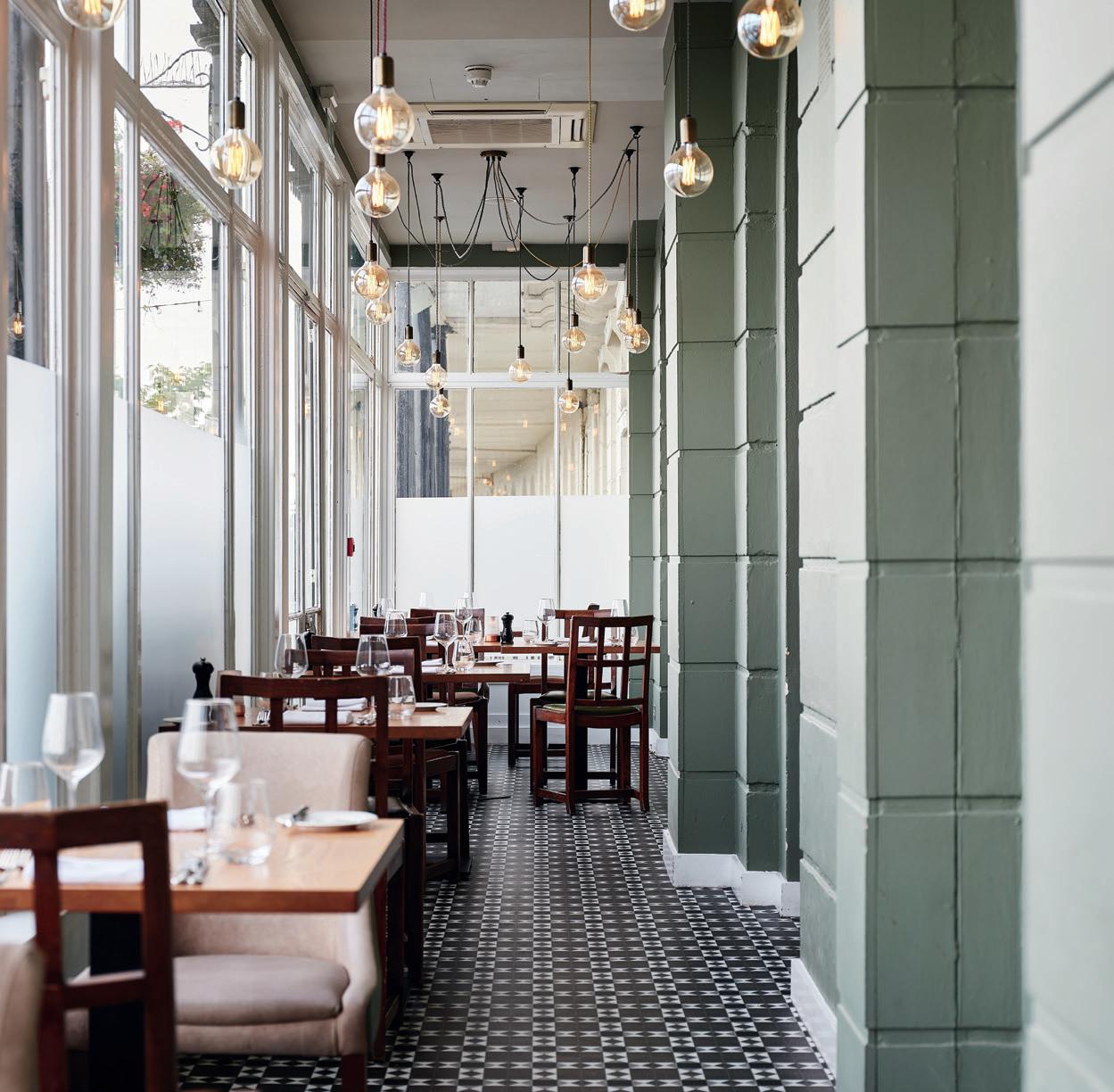
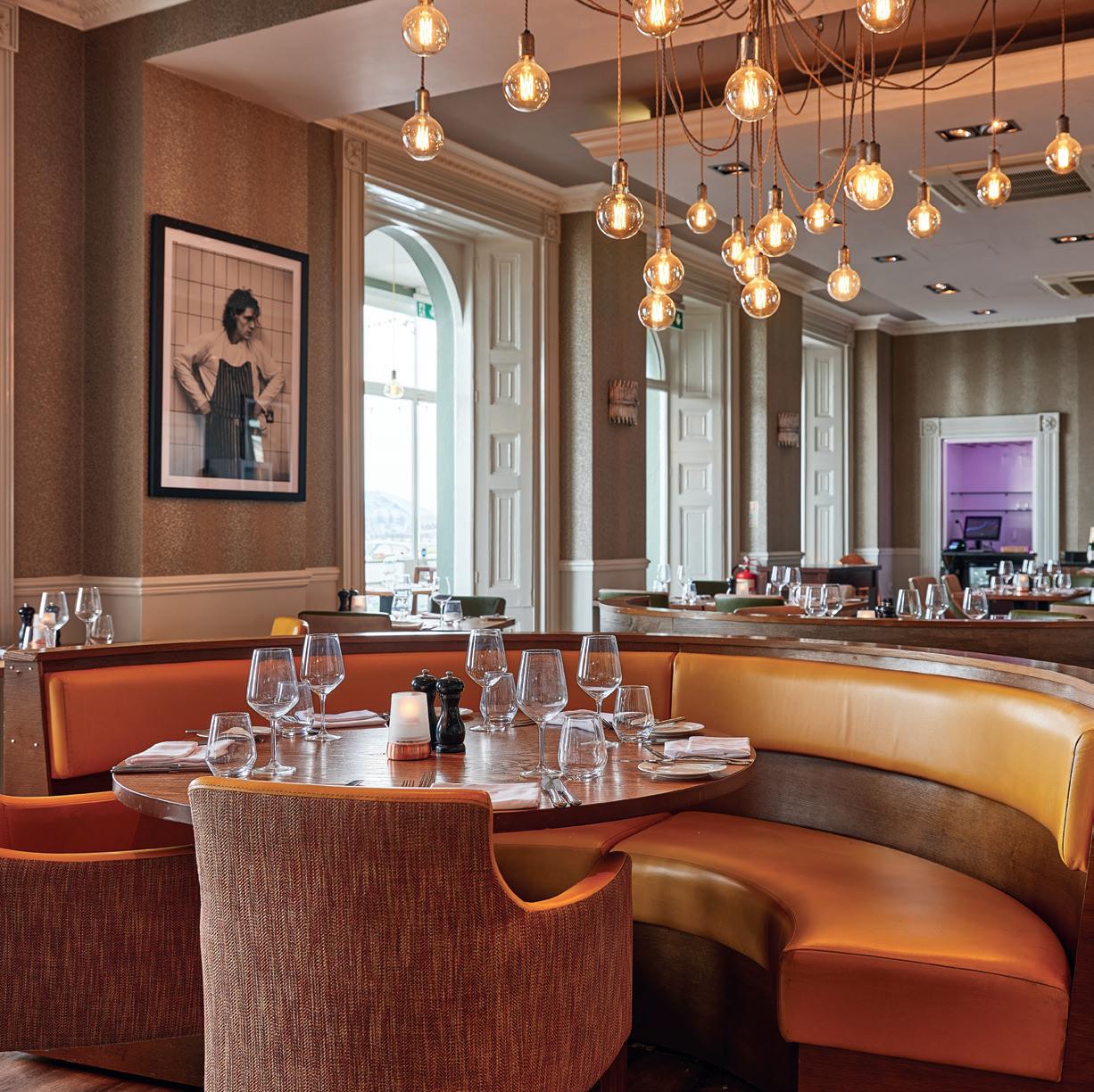
they take home, and our mission is to ensure each stay is personal, memorable, and inspiring.
What motivated the decision to move from being a Best Western property to joining the Hilton brand?
Our time as a Best Western property was marked by consistency and growth. However, following an extensive refurbishment, we wanted to align with a brand that reflected our renewed vision. The transformation included redesigned rooms, highlighted by the luxurious Royal Suite, and enhanced dining with Marco Pierre White’s English Chophouse, Wheeler’s Fish & Chips, and the Churchill Bar. We also revitalised spa facilities and wedding spaces. The Tapestry Collection by Hilton was the ideal fit, celebrating unique hotels with strong local connections.
Could you walk us through the process of becoming a Hilton hotel and what this transition has meant for both your team and your guests?
Joining Hilton was transformative. The process included integrating into Hilton’s systems, operational standards, and training programmes. Our team benefited from development through Hilton’s learning platforms, adopting skills and service approaches synonymous with the brand. For guests, this has elevated every aspect of their stay, blending our hotel’s historic charm with Hilton’s innovation, personalisation, and global consistency.
You’ve recently undergone a complete refurbishment—what was your vision for redesigning the bar, rooms, and spa facilities?
Our vision was to place Dover firmly on the hospitality map. Kent is rich in natural beauty and heritage, and
we wanted our hotel to be the gateway for exploring these treasures. The refurbishment created more than accommodation—it crafted an experience. With coastal elegance and modern comfort, the spaces invite guests to rejuvenate and connect with the region. We also see the hotel as a catalyst for Dover, stimulating the local economy and celebrating the area’s culture.
What challenges did you face during the renovation process, and how have guests responded to the upgraded spaces?
Renovating a fully operational hotel required careful planning. Our priority was minimising disruption while transforming the hotel. Guests were supportive throughout, many witnessing the transformation unfold. The response to the refurbished spaces has been overwhelmingly positive. The refreshed interiors, spa, and bar have become highlights, adding relaxation and sophistication, and reinforcing Dover’s heritage alongside modern standards.
Looking at the hotel’s recent journey, how do you predict that these changes will impact the revenue and overall business performance?
Dover Marina Hotel & Spa is a central hub for visitors and the local community. With our transformation and rebranding under Hilton’s Tapestry Collection, we anticipate a strong impact on revenue and performance. Hilton’s global reach opens the hotel to wider audiences, while our enhancements support Dover’s economy, create jobs, and promote Kent as a destination. We are confident these changes will drive growth and establish the hotel as a premier destination in the region.
www.dovermarinahotel.co.uk
Claudio Coriasco, General Manager of the Grand Hotel Courmayeur Mont Blanc and Montana Lodge & Spa, brings over forty years of experience across the travel and hospitality industry. From working with tourist consortia and airlines to leading some of the Aosta Valley’s most renowned hotels, Claudio has developed a holistic perspective on hospitality and its role in promoting a region. In this interview, he shares insights from his career journey, his philosophy on leadership, and his perspective on how the industry has evolved.
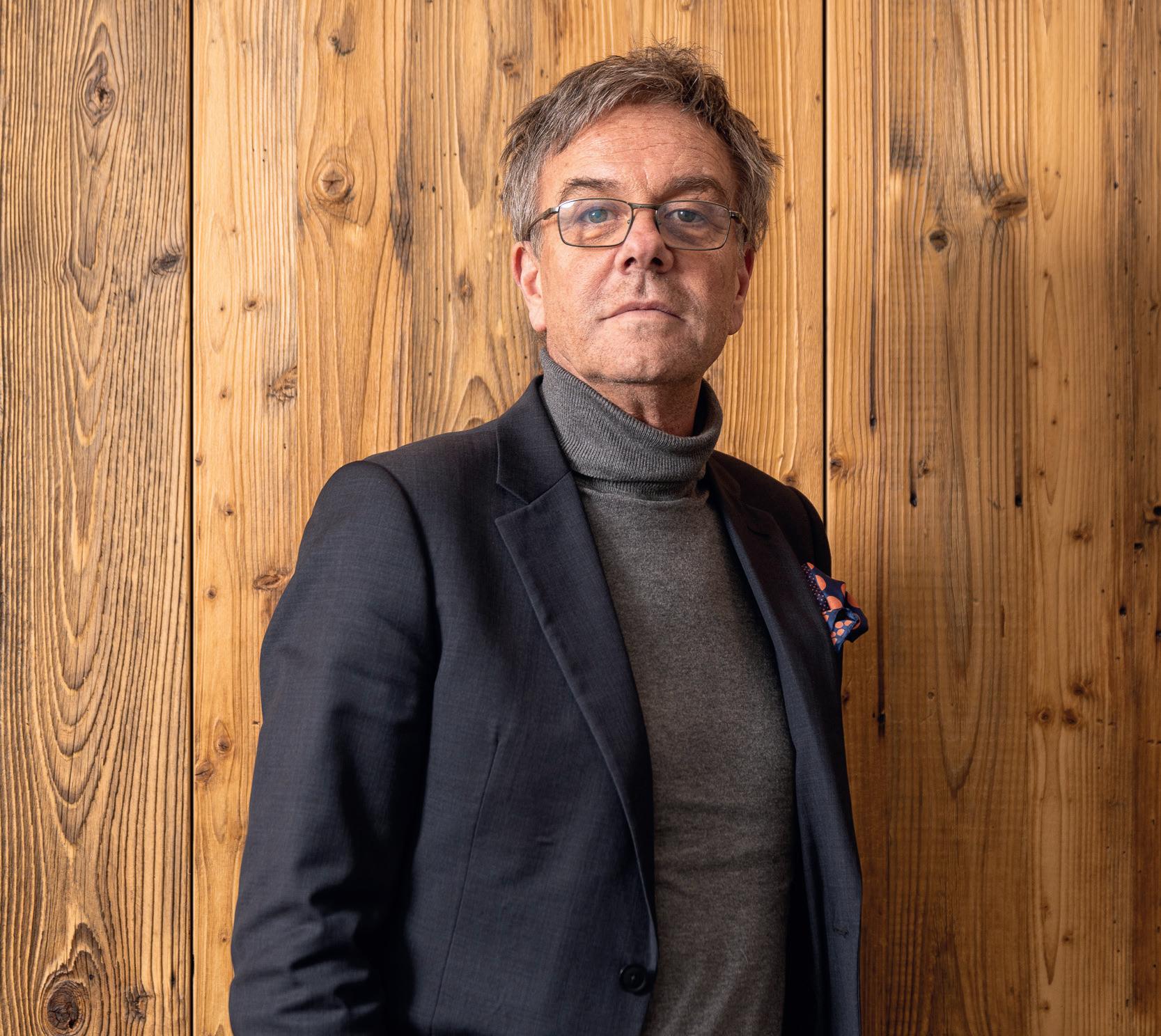
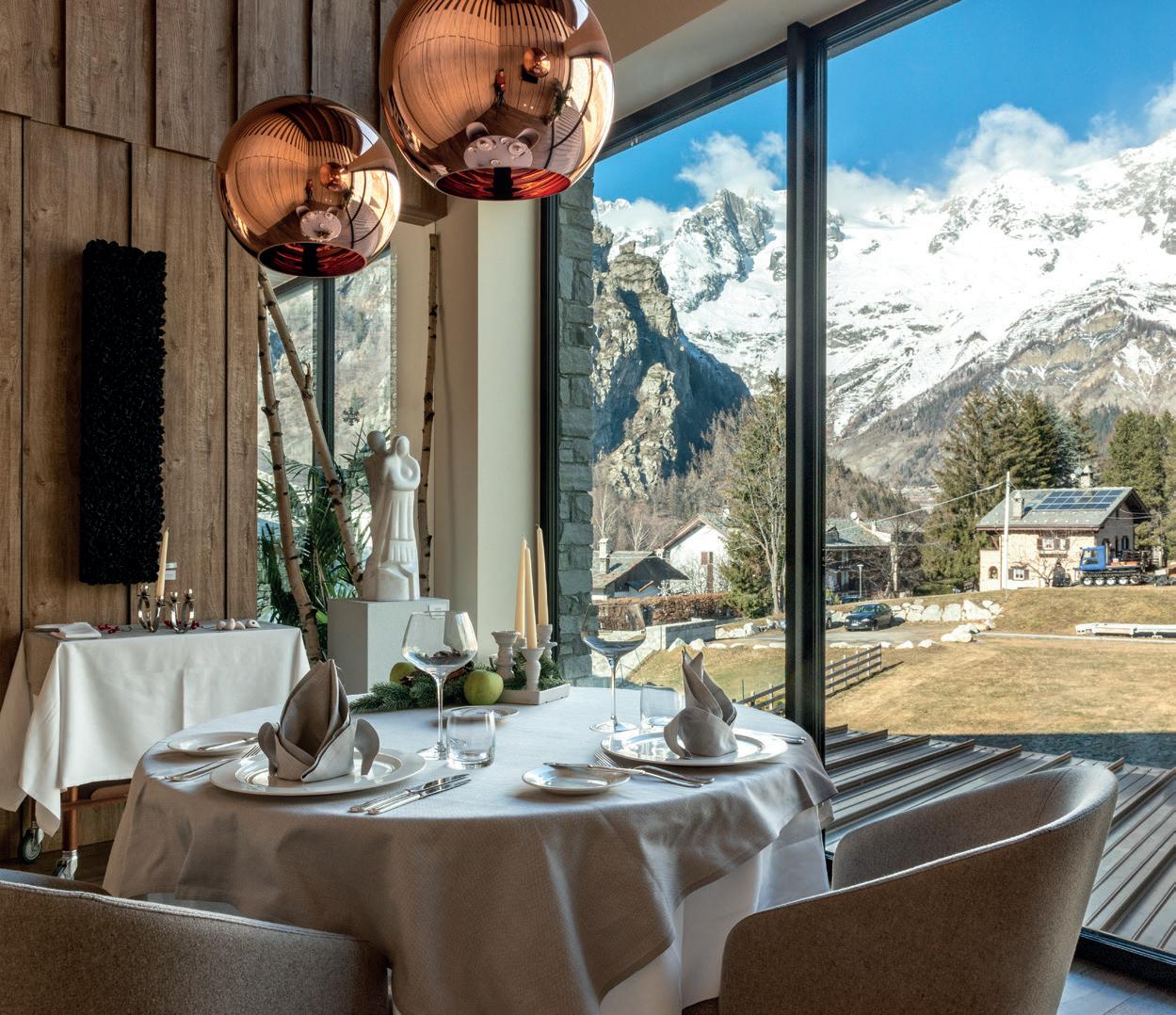
Tell us about your hospitality journey so far
Over the course of more than forty years, I have been fortunate to gain experience across many areas of the travel industry - from tourist consortia and tour operators, to hotels, airports and airlines - both in my native Aosta Valley, in other regions of Italy and abroad. This diverse
background has given me a comprehensive perspective on hospitality and the role a hotel plays within the wider context of territorial promotion.
I started out focusing on commercial strategy, communication, and marketing, gradually taking on more senior responsibilities until my first management role in
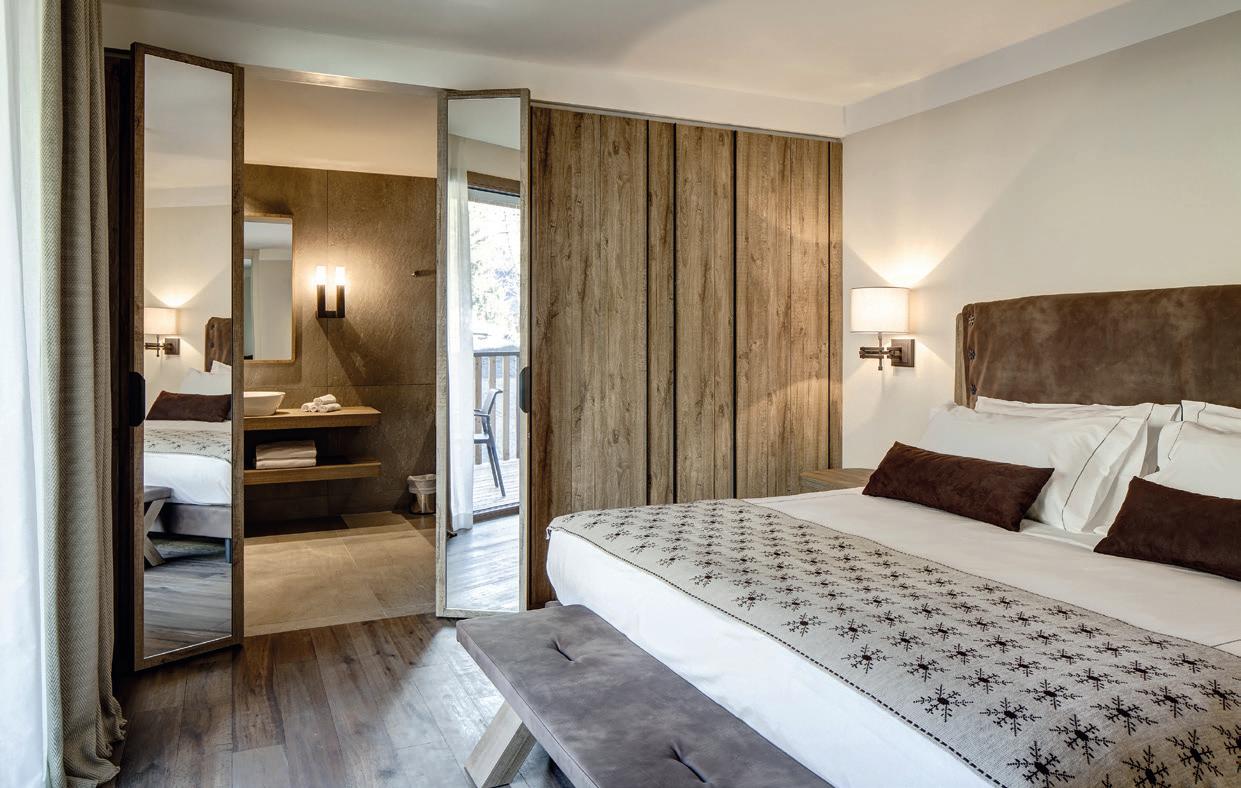
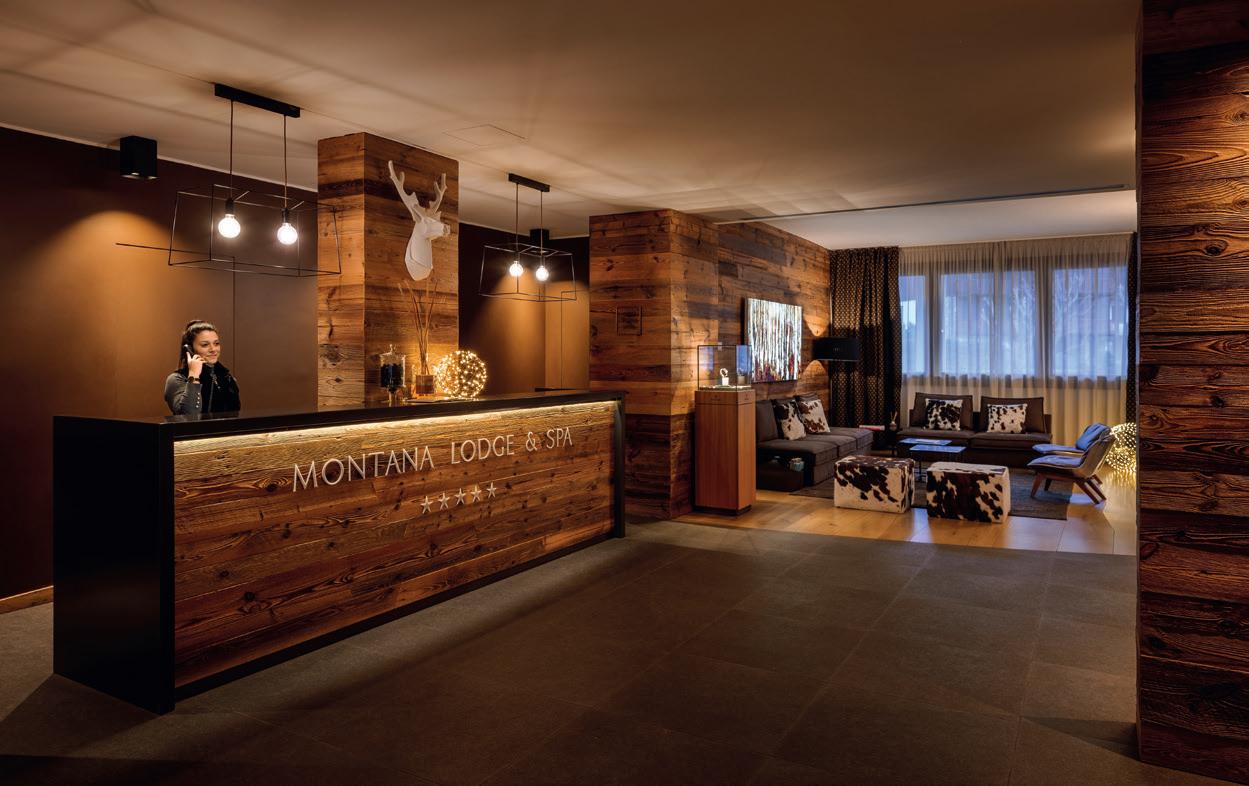
2013 at the Grand Hotel Royal in Courmayeur. I later led the Montana Lodge & Spa in La Thuile, and following its acquisition by R Collection Hotels in the winter of 2023, I also took on the direction of the Grand Hotel Courmayeur Mont Blanc, the second property of the Rocchi family group in the Aosta Valley.
What does being a leader mean to you? Tell us about your approach to leadership and maximising the performance of your team. Managing a hotel is complex, involving both back-office operations and direct guest interaction. For me, a good leader puts the team’s wellbeing first: without harmony and motivation, delivering an exceptional guest experience is impossible.
The most essential quality is listening; as Steve Jobs said, leaders surround themselves with professionals not to show the way, but to find it together. Leading by example is equally important, showing passion and dedication inspires the team to give their best for themselves, the company, and the guests.
Have there been any mentors or influential leaders who shaped your approach to hospitality throughout your career?
During my time as CEO of Air Vallée, I embraced a saying
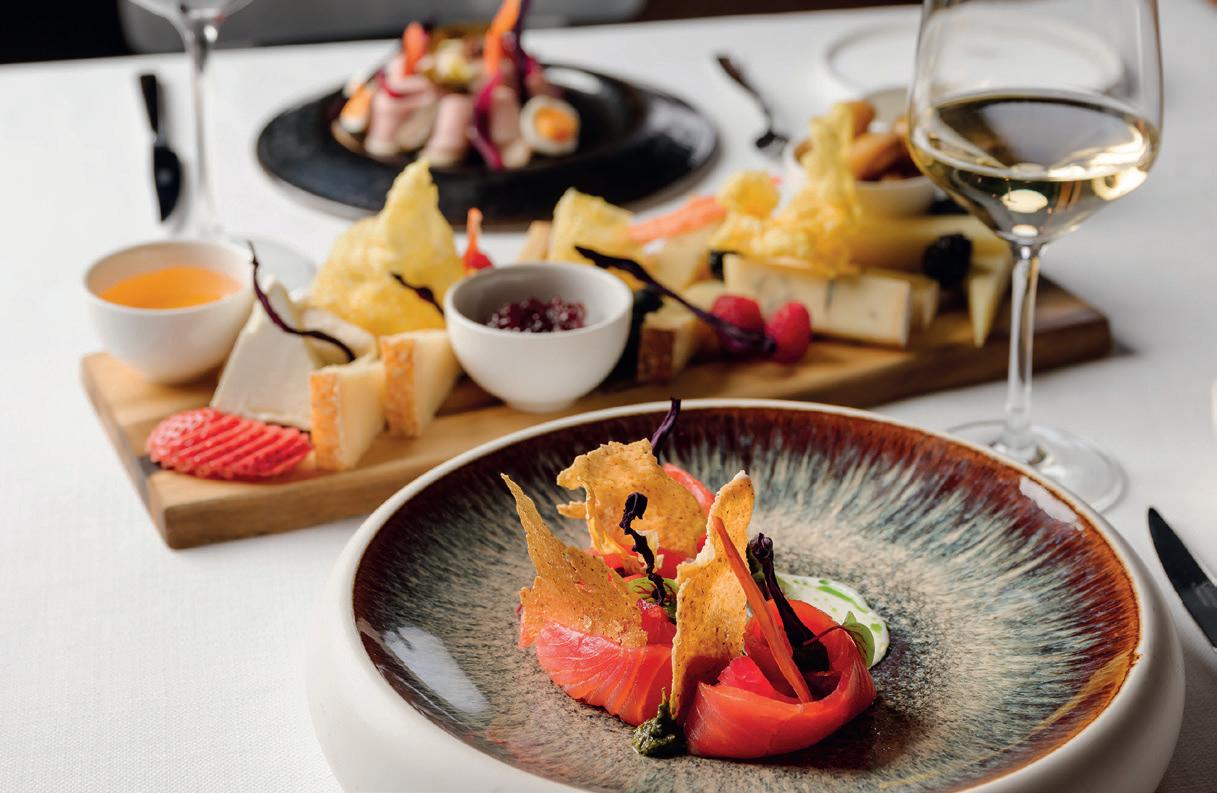
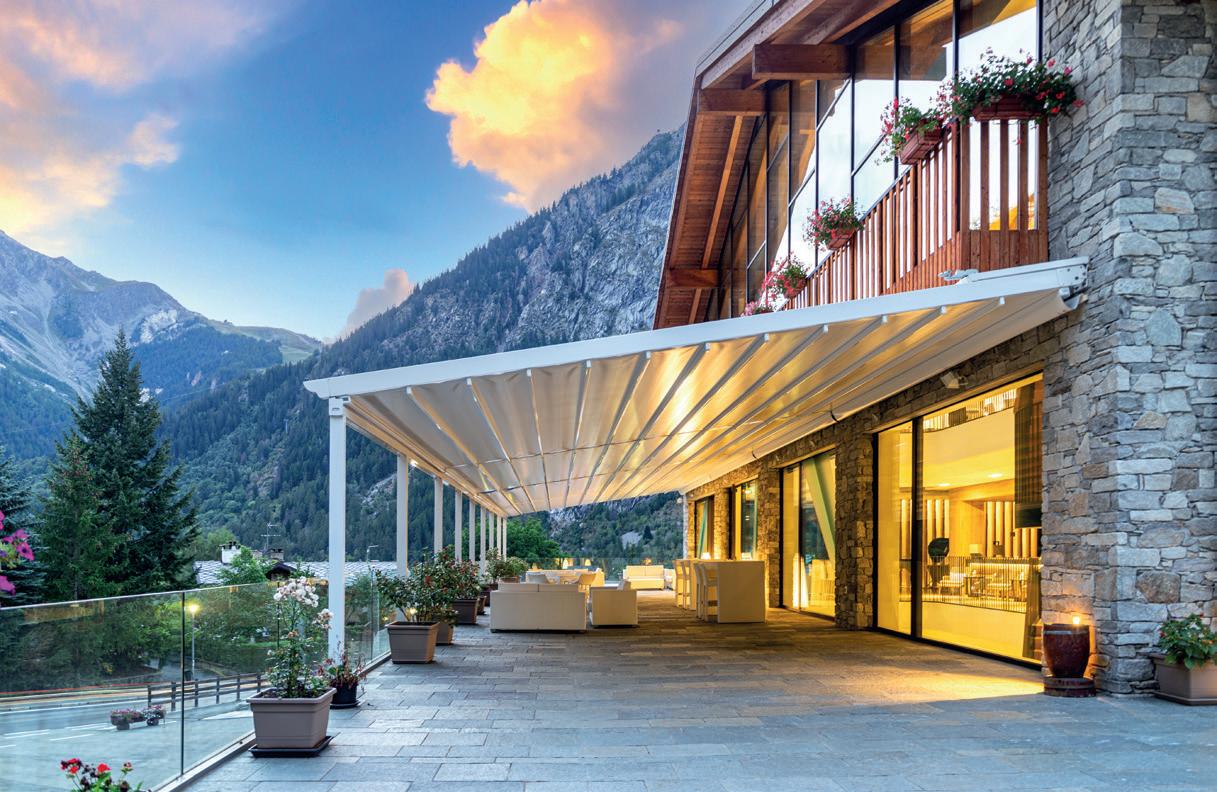
from the company’s ownership: “It’s not enough to look at the steps, you have to climb the stairs.” Even today, I believe that being a good leader goes beyond having a vision: you need to take concrete action, lead by example, and truly live the values you wish to convey, especially in such a complex and passionate industry.
How have you seen the hospitality industry evolve since you began your career, and what changes have had the biggest impact on your work?
The hospitality industry is inherently dynamic, shaped by social, technological, and cultural factors, and it mirrors the evolution of society itself. Staying informed is essential to anticipate trends and meet guests’ expectations, which evolve over time but remain consistently high when it comes to excellence.
The most significant change concerns how new generations approach work: today, the focus is on work-life balance and opportunities for growth and training, rather than loyalty to a single company. In a mountain setting like ours, this brings additional recruitment challenges. That’s why we strive to lead by example, listen to our staff, and provide fair working conditions, continuous training, and greater stability, through initiatives such as autumn openings and the opportunity to move between properties.
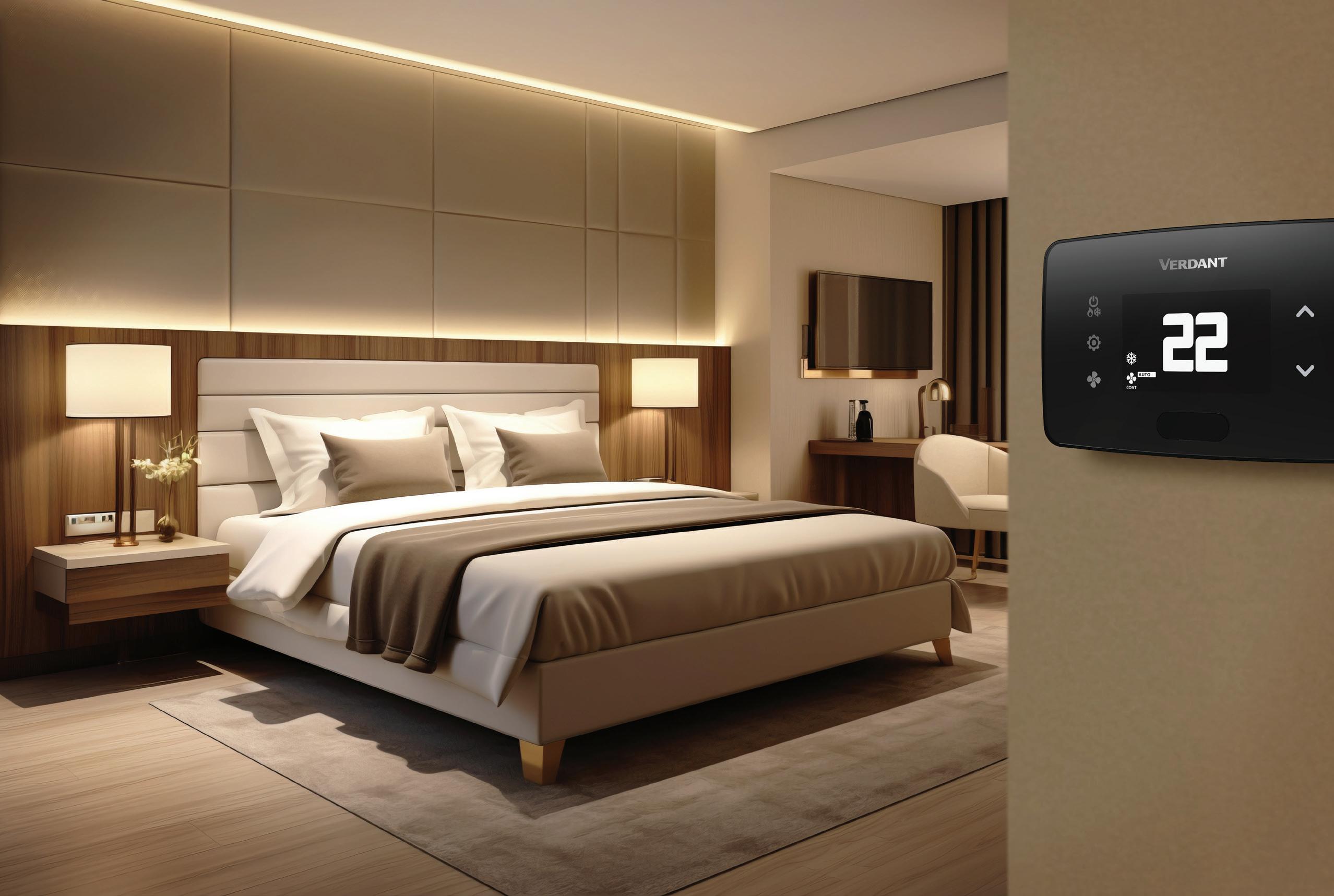
Heating and cooling account for up to 60% of hotel energy use, much of it wasted when rooms sit empty.

Verdant smart thermostats eliminate that waste automatically: Book a Demo *Estimated
Cut utility bills by up to 18% and reduce significantly your HVAC runtime*
Install easily under 15 minutes per room without operation disruptions
No Wi-Fi required

The tech arms race in hospitality – we look at how leading brands are investing in innovation to stay ahead.

In today’s hyper-connected world, technology has become the new frontier of competition in hospitality. From AI-powered guest personalisation to seamless smart-room ecosystems and predictive maintenance driven by data, hotels are racing to redefine the modern guest experience. This feature explores how leading brands are investing in innovation, not just to enhance efficiency and convenience, but to anticipate traveller needs before they’re even expressed. In the tech arms race of hospitality, staying ahead means more than keeping up with trends - it means setting them.
At Barons Eden, they’ve focused on using technology to make every interaction effortless and personalised. Matt
Wesson, Chief Technology Officer at Barons Eden and Founder of Hotel IT Company, revealed that one of the brand’s proudest projects has been the introduction of RFID wristbands that serve as a single key for lockers and doors and also enable guests to charge purchases directly to their account. “This has streamlined the guest journey and driven a measurable uplift in average spend.”
“We’ve developed a central data warehouse and leveraged Power BI to provide the business with real-time visibility across operations - from occupancy and spa performance to financial forecasting. This has empowered teams to make faster, data-driven decisions and helped align our commercial and guest-experience goals,” added Matt.
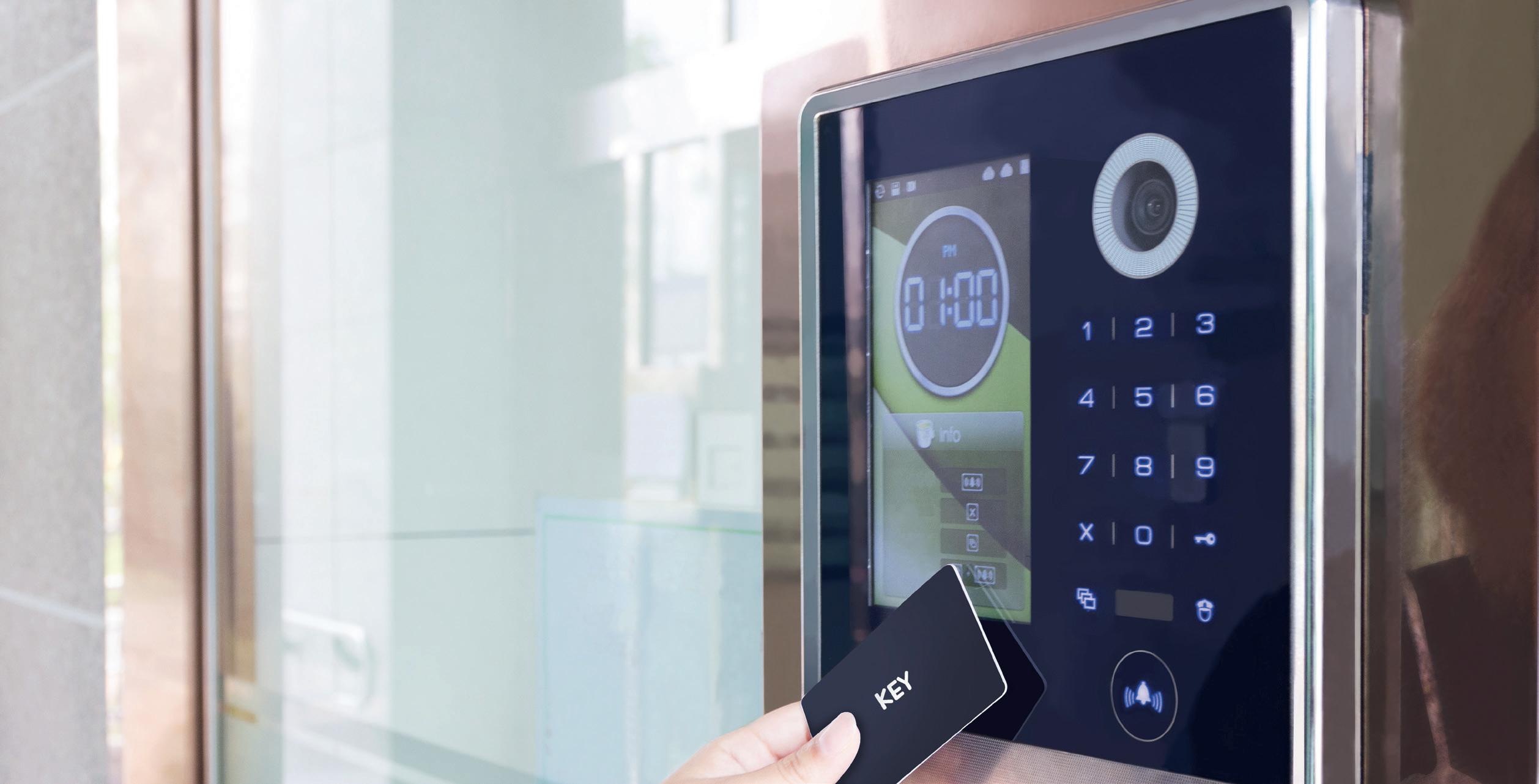
Digital transformation has also helped to support the brand’s sustainability goals by reducing paper through digital menus and confirmations, optimising operations, and using technology to enhance both environmental and wellbeing initiatives.
Matt recognised how AI and cybersecurity are the two most pressing frontiers in hospitality technology. As cyberattacks rise, smaller hotels are increasingly at risk - much like a street where only one house has an alarm. Hackers naturally target the unprotected one. Matt said, “Hotels must now use AI-driven tools to strengthen defences because the attackers themselves are already using AI.
“At the same time, automation and intelligent systems will transform how hotels deliver truly personalised guest experiences.” He believes that any operator or CTO who still sees AI as a passing trend risks being left behind.
At Foxhills they only invest in technology that genuinely enhances the guest or member experience. If it saves time, improves communication, or helps our team deliver a more personal service, it’s worth considering, in the opinion of Mark Thewlis, Hotel Manager at Foxhills Club & Resort. He said, “We balance innovation with heritage by ensuring any new system supports – not replaces – the human touch that defines Foxhills, and which we were recently awarded the AA four red stars for.”
A great example of a recent technology investment at Foxhills that has had a great impact on the guest journey is the investment in their Crave tablets. They allow guests to explore the hotel’s facilities, order room service, book activities, and contact the team easily from their room, including hosting the AI receptionist, CJ The Fox, to answer questions at guests’ convenience. Mark explained, “It’s
improved experience and response times, while guests love how effortless it makes accessing everything that Foxhills offers.”
Using data and automation to anticipate ever-changing guest needs while still delivering a warm, human-led experience, is essential to get the balance right. In order to do so, at Foxhills, they use data and automation to enhance rather than replace the personal touch. Their systems help the team understand guest preferences, from room setup to dining choices, so they can anticipate needs before arrival and personalise every interaction. Automated tools streamline routine tasks and communication, giving the team more time to focus on genuine, face to face hospitality.
“It’s about using technology quietly in the background to make the experience smoother, while keeping people at the heart of everything we do,” added Mark.
Mollie’s is positioned as a “digital-first” hotel brand, and Matt Bell, Managing Director of Mollie’s, sees that the brand’s approach to technology is as an enabler of their Value Luxe proposition. He explained, “We use it across the business to drive value into the customer, employee and financial journeys. Specifically, within the guest journey, the idea is to simultaneously remove friction from the customer, making it as intuitive as possible at every stage whilst removing processes from the team, freeing them to build personal connections with our guests.”
Recognising that each and every customer has slightly different needs, from device, to comms channel, check in or key, Mollie’s seek to use technology to meet these needs without layering bureaucracy or cost into the business; they see it as mass customisation. Matt revealed that two current areas of focus are, “To introduce WhatsApp as a
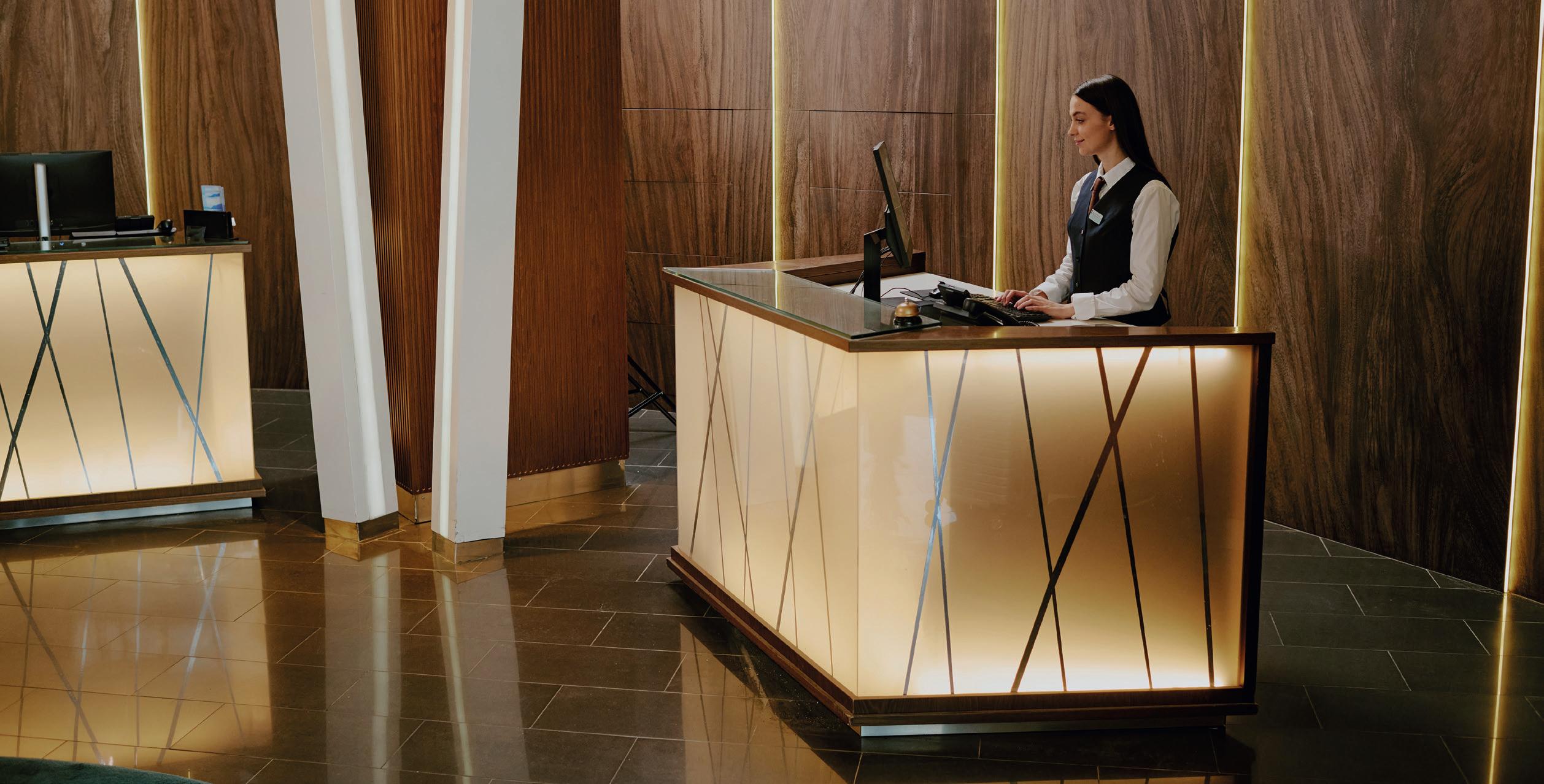
principal means of communication between the guest and the team and the launch of Apple Wallet for room keys.”
The Mollie’s concept blends affordable luxury with a smart, app-based experience and Matt believes that connecting to the customer through their preferred channel of communication, especially those that have booked through an OTA, will help curate a better customer journey. Mollie’s does not have the fuller range of amenities of a traditional full-service hotel, so our focus in largely on the diner where, given the high demand for tables, we want to ensure guests can secure reservations at their preferred time. “In app ordering presents real opportunity to personalise the customer journey, use digital assets to create excitement and empower the customer to order what and when they like whilst paying using their digital wallet,” added Matt.
The same principle applies to the rooms journey, allowing customers to book, pay, check in and keep their keys in their digital wallet. “This puts the customer in control of their journey and frees the team to focus on genuine moments of connection, still the most authentic, meaningful form of personalisation,” Matt said.
As the brand continues to expand their ecosystem, we were keen to find out what Matt sees the role of emerging technologies, such as AI, playing in the long-term guest experience roadmap, and he explained that AI is already an extremely important part of the Mollie’s business. Adoption of analytical solutions within the tech stack leverages big data and most of their tech products incorporate some form of AI functionality to do this.
Matt explained, “Our recent adoption of Flyr is a brilliant example of a solution that was quick to deploy within our Open API tech stack and generated immediate value.
Layering an analytical platform over the whole tech stack, such as Tenzo, creates powerful BI that enables the team to evaluate and optimise performance in near real time.
“As we grow and to coincide with the opening of our Manchester site, we are moving to conversational AI solutions providing AI virtual assistance throughout the guest journey, however it’s the opportunity presented by Agentic AI that is really exciting; working with Apaleo as our PMS is foundational to this.”
Matt admitted that ultimately AI agents will take on much of the process orientated work that is currently executed by their teams, freeing them to focus more deeply on guests. He finished, “We are committed to building a culture that is both tech savvy and human centric and represents the paradoxical thinking inherent within the Mollie’s DNA.”
Smart technologies play a central role in delivering both sustainability and efficiency. Through Building Management Systems deployed across all of the room2 properties, the brand can continuously monitor building performance.
Lamington Group’s Tech & Automations Manager, Jiri Dudek, explained how they utilise software systems that analyse their energy, water, waste, cleaning products, laundry and renewable energy generation, keeping the brand accountable to targets and providing insight into our consumption and areas for improvement.
On average, our hometels use 76% less energy than the typical UK Hotel. “We’ve also implemented occupancyenabled heating, cooling and lighting controls that automatically adjust to guest occupancy, significantly reducing energy waste without compromising comfort.
“More recently, we built an in-house dashboard that

aggregates our various sources of energy performance data into a single, visible dashboard. Over the next year, we plan to expand this dashboard’s capabilities to become a hub for sustainability data across our organisation,” Jiri explained.
With guest expectations evolving rapidly, Jiri explained that digital transformation for the Lamington Group brand means connecting systems that used to work in isolation. He said, “When a guest books, their preferences and history automatically reach the team before they arrive. When they send a query, support sees the full context –previous stays, communication, even how occupied the building was during their last visit. We automate when it improves time efficiency – for example, connecting reservations with team tools or building operations. The goal is simple: the team has better context, the guest doesn’t have to repeat anything, and we have space to do what we care about most – looking after our guests.”
The Grand has recently invested £2.8 million in the refurbishment of SubRosa spa and Emma Sorby, Spa Director at The Grand York, revealed that technology was integral from concept to completion. She said, “We wanted a space that not only embodies wellness but also enhances it through intelligent design. Smart lighting, climate control, and adaptive soundscapes were incorporated to create environments that respond to guests’ moods and treatments.”
From the very first booking, the technology used at SubRosa ensures a seamless and intuitive guest experience. The team use an integrated spa platform, TRYBE, which provides personalised recommendations based on previous visits or wellness goals. Guests can even complete their tailored consultation form before arrival, meaning that when they step into SubRosa, there’s no check-in required,
just a faff-free, five-star start to their wellness journey. Therapists can access each guest’s preferences directly in their treatment room via the in-room SensePad, allowing every treatment to be precisely tailored from the moment it begins. This creates a sense of care that is both effortless and sophisticated.
Emma revealed how, at SubRosa, technology exists to enhance, not replace, human connection. “Every innovation from mood-responsive rooms to seamless booking systems is designed to remove friction so guests can focus on themselves. Our therapists use technology as a tool to enrich treatments, but the experience remains deeply human. The goal is to create a sanctuary where wellness feels effortless, intuitive, and profoundly restorative.”
The future of luxury wellness lies at the intersection of innovation and personalisation. Emma explained, “While we do not yet utilise technologies such as AI and predictive analytics, we recognise their potential to anticipate guests needs and elevate the spa experience.”
Technology is no longer just a support system within hospitality, it is the driving force shaping how brands create, deliver, and refine the guest experience. From Barons Eden’s data-driven operations and RFID innovation to Foxhills’ balance of automation and authenticity, Mollie’s digital-first, AI-powered approach, Lamington Group’s sustainability intelligence, and The Grand’s sensory smart spa, each demonstrates how tech can elevate both efficiency and emotion. The common thread across these leaders is clear: the most successful hospitality innovations are those that work quietly in the background, empowering teams, anticipating needs, and enhancing every moment without ever diminishing the human touch.
Ian Cairns, Sales Director at UK technology and connectivity provider TalkTalk Business discusses the increasing interconnectedness powering the hospitality sector and the critical importance of getting network connectivity right.
Picture this: a guest books their hotel stay online, selects their preferred check-in time, and chooses a room with a smart thermostat that they can preset to their liking. Upon arrival, they seamlessly connect to high-speed Wi-Fi to stream their favourite show, and later that evening, use their smartphone to order room service with a single tap. For event organisers, imagine a major conference where reliable connectivity ensures smooth check-ins, livestreaming sessions, and instant sharing of key moments on social media.
These scenarios highlight the modern guest’s expectations for fast, efficient, and hassle-free interactions. According to industry studies, almost 90% of hotel guests expect fast Wi-Fi for everything from entertainment to work. Businesses must meet these demands with secure, high-speed internet access.
At the heart of these modern services lies one crucial element: connectivity. As the industry embraces cloudbased systems, IoT devices, and AI-powered tools, reliable networks are no longer a luxury, they’re essential to smooth operations and exceptional guest experiences.
How hospitality is leveraging technology for better experiences
To enhance guest services and streamline operations, hospitality businesses are integrating a range of interconnected technologies. For instance, smart rooms equipped with IoT devices automatically adjust lighting and temperature based on guest preferences. Consider the guest who has already set their room to the perfect temperature before they even check-in. Meanwhile, AI systems analyse guest data in real-time to personalise recommendations and optimise services. A great example is Hilton’s AI assistant, Connie, which uses IBM Watson’s AI to provide guests with tailored information about local attractions or hotel amenities.
AI is also crucial in demand forecasting. By analysing
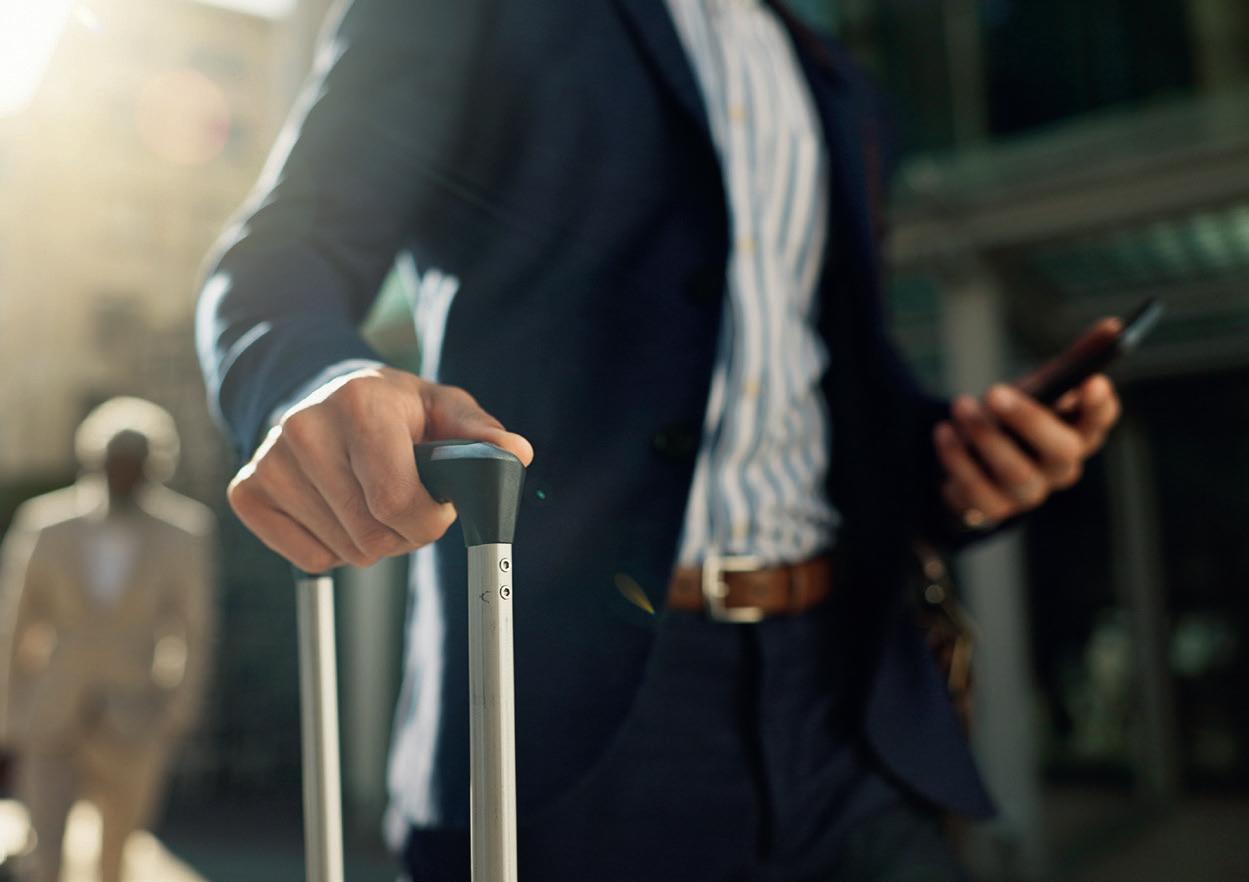
data, AI helps businesses predict guest volumes and adjust services accordingly, ensuring staff and resources are optimised. Take the earlier example of a busy conference where accurate demand forecasting ensures smooth event check-ins and no delays in service delivery. Similarly, centralised dashboards provide real-time insights into room occupancy, customer preferences, and Wi-Fi usage, helping businesses make data-driven decisions.
However, all these technologies depend on one thing: reliable, high-speed connectivity. Without a strong network infrastructure, even the best tech solutions, like the seamless room service app or AI-powered assistants, become ineffective.
Unreliable networks carry serious risks. When Wi-Fi falters, the guest experience suffers. Imagine the frustration of a traveller who can’t stream their favourite show after a long journey, or an event organiser dealing with delays in online
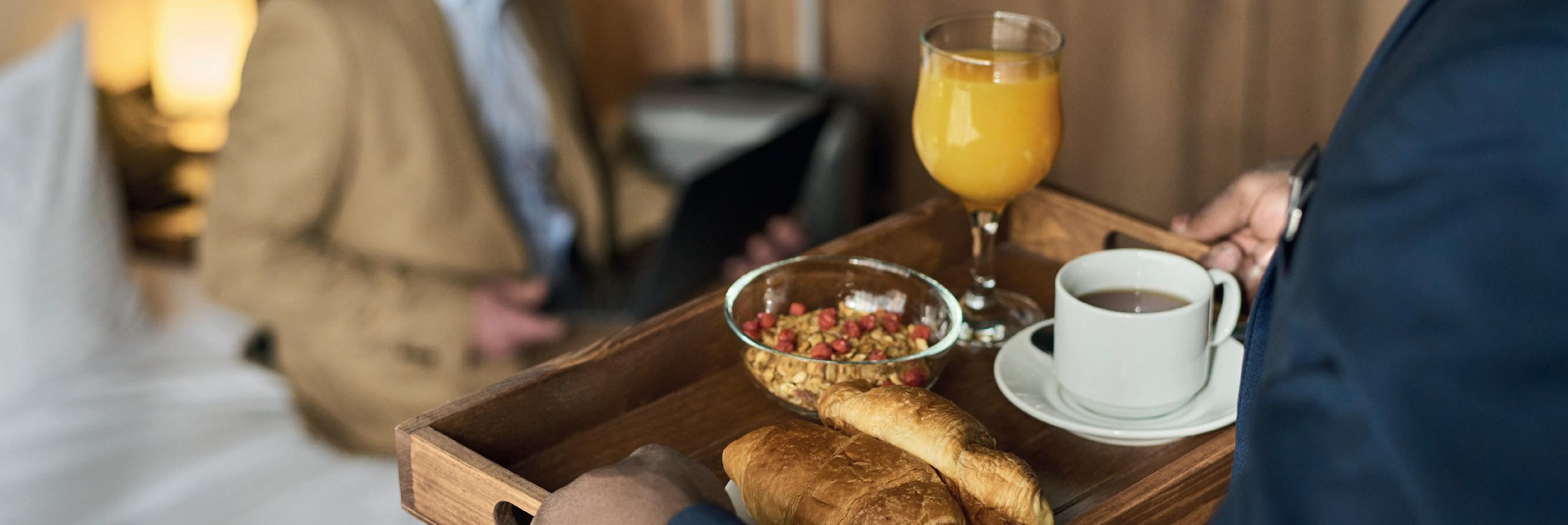
check-ins or real-time updates during a major conference. Slow or unreliable networks also disrupt staff communication and service delivery, particularly in large venues like resorts or stadiums, where even minor inefficiencies can snowball. Think of the concertgoer unable to share videos of their favourite band on social media because of poor Wi-Fi. These disappointments can tarnish the venue’s reputation and discourage artists from returning.
Similarly, event management can go awry due to network-related issues like missed bookings or inaccurate room allocations. For a high-stakes conference or a wedding, these errors can make or break a venue’s reputation. In today’s highly competitive market, any business that cannot consistently deliver high-performance digital services risks losing customers to competitors that have invested in reliable connectivity solutions.
To safeguard against these risks and meet growing demands, hospitality businesses must invest in forwardthinking network solutions. Two key technologies are at the forefront of this transformation: Software-Defined Networks (SDN) and leased lines.
A Software-Defined Network (SDN) is a modern network architecture designed to be flexible and agile, allowing networks to be managed from anywhere, at any time, from any device with internet access. This flexibility is crucial for environments like hotels or large events where connectivity needs fluctuate.
With SDN, businesses can dynamically allocate bandwidth to prioritise essential services like guest Wi-Fi, ensuring that the traveller streaming their favourite show or the conference organiser live-streaming a keynote speech never experience interruptions. Centralised management also enables rapid issue resolution, reducing downtime and enhancing the overall guest experience.
Automation of routine network tasks further reduces operational complexity and costs, allowing hospitality businesses to focus on delivering exceptional services.
A leased line is a private, uncontended internet connection that guarantees consistent, high-speed bandwidth. Unlike shared connections, leased lines ensure uninterrupted internet access, even during peak demand periods.
For hospitality businesses, leased lines provide the bandwidth needed to support large-scale operations, from seamless online bookings to critical systems like security cameras and booking platforms. This ensures that even during busy seasons or large-scale events, guests enjoy uninterrupted services. For example, the guest ordering room service through an app or streaming a film will have a smooth, hassle-free experience, even when the hotel is at full capacity.
Leased lines also enhance security by ensuring sensitive data, such as customer information and payment details, is transmitted securely. This builds guest trust and ensures compliance with stringent data protection regulations, a crucial factor for venues hosting high-profile events.
So, these technologies are crucial to the smooth operation of the sector, ensuring reliability and security. By implementing these technologies now, it sets the sector up for success as the hospitality landscape evolves.
The hospitality industry is evolving rapidly, and technology is becoming a key differentiator for businesses looking to offer exceptional guest experiences. In fact, for hospitality businesses, a 135% increase in revenue is expected after implementing new technology. However, as illustrated in the scenarios of seamless room service, smooth conference check-ins, and frustration-free streaming, even the most innovative digital services will fail to meet expectations without reliable, fast, and secure connectivity.
To stay competitive, hospitality businesses must invest in robust network solutions that can scale with their needs. Software-defined networks and dedicated leased lines offer the flexibility, security, and performance required to future-proof operations, ensuring seamless service and keeping guests happy. In an industry where every interaction counts, the right connectivity is the foundation for success.
After a recent roundtable hosted in collaboration with Hotel Magazine x Mews, by Abir Goyal, UK Commercial Team at Mews, we share key takeaways that touch on elevating guest experience with data, personalisation, and smart technology in hospitality.
From the lively buzz of a Hotel Magazine roundtable, a clear theme emerged: hospitality is at a crossroads where the possibilities of technology and the complexities of guest experience meet - sometimes seamlessly, sometimes messily. The discussion ranged from boutique innovation to operational frustrations, but everywhere the same question pulsed: How can hotels leverage data and tech to deliver the kind of tailored, memorable journeys guests increasingly expect?
The power of personalisation came through in anecdotes - a guest recognised by name, remembered for bringing their dog Fifi (who has her own custom dog bed and menu), welcomed with gifts, and greeted with questions tailored to past stays. When done right, this goes beyond wowfactor, driving loyalty, PR, and return bookings. AI and smarter CRM systems enable teams to know not just who is checking in but how to genuinely delight them with the details that matter, whether it’s remembering allergies, favourite side of the bed, or preferred wine at dinner.
Yet, real-world challenges are everywhere: legacy systems, fragmented data, and staff turnover. Several hoteliers described “starting from scratch” rebuilding profiles after changes in their teams or platforms, lamenting that most of their valuable knowledge still sat “in the heads of just three employees.” For many, clean data is elusive - one manager described pulling 8,000 guest profiles for a campaign and finding only 800 usable, with the rest lost to blank records, outdated OTA email addresses, or missed onboarding moments.
The hoteliers in attendance of the event were animated about the new frontier: leveraging AI (like ChatGPT) and automation for more proactive, contextual service. Imagine
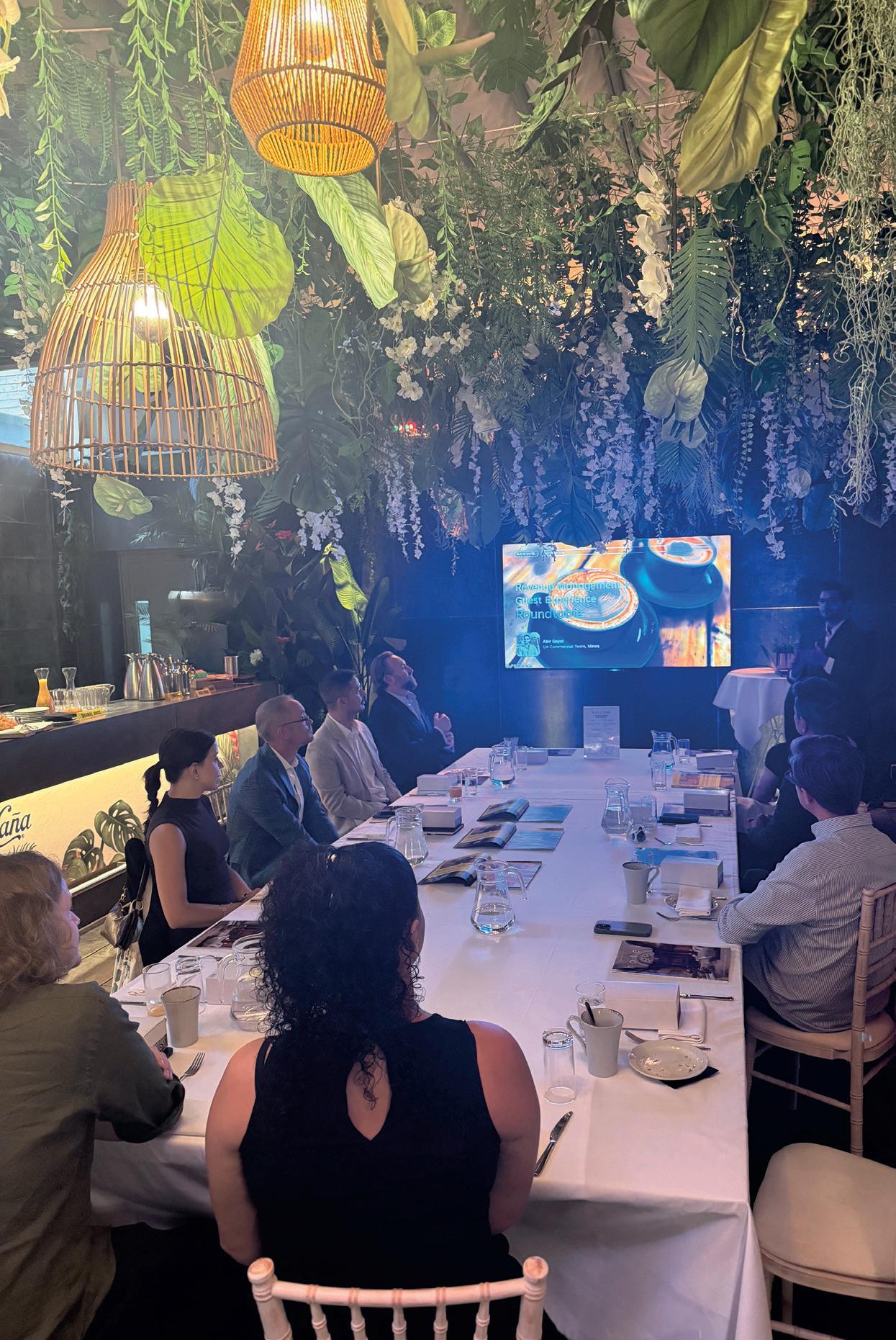
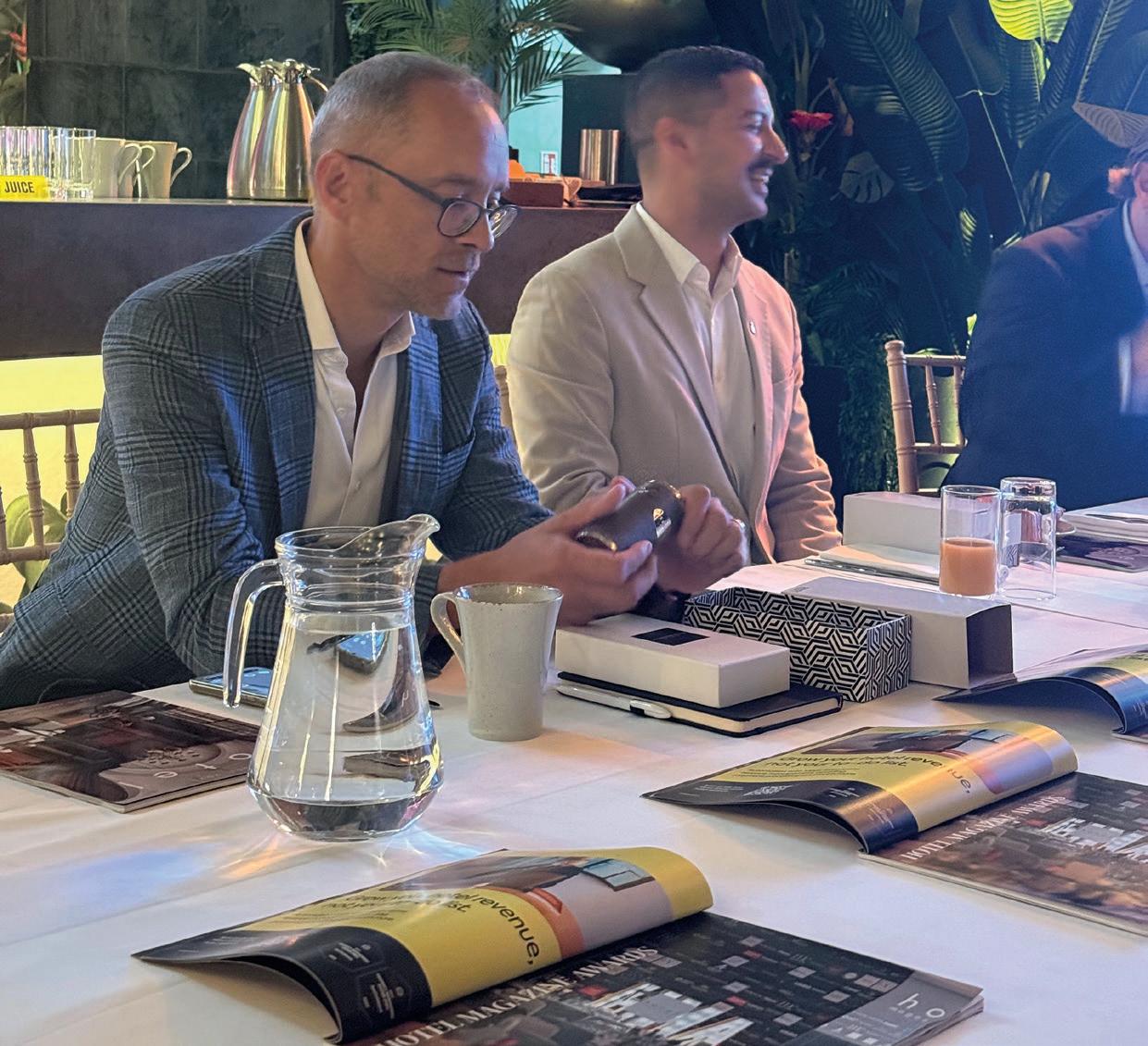
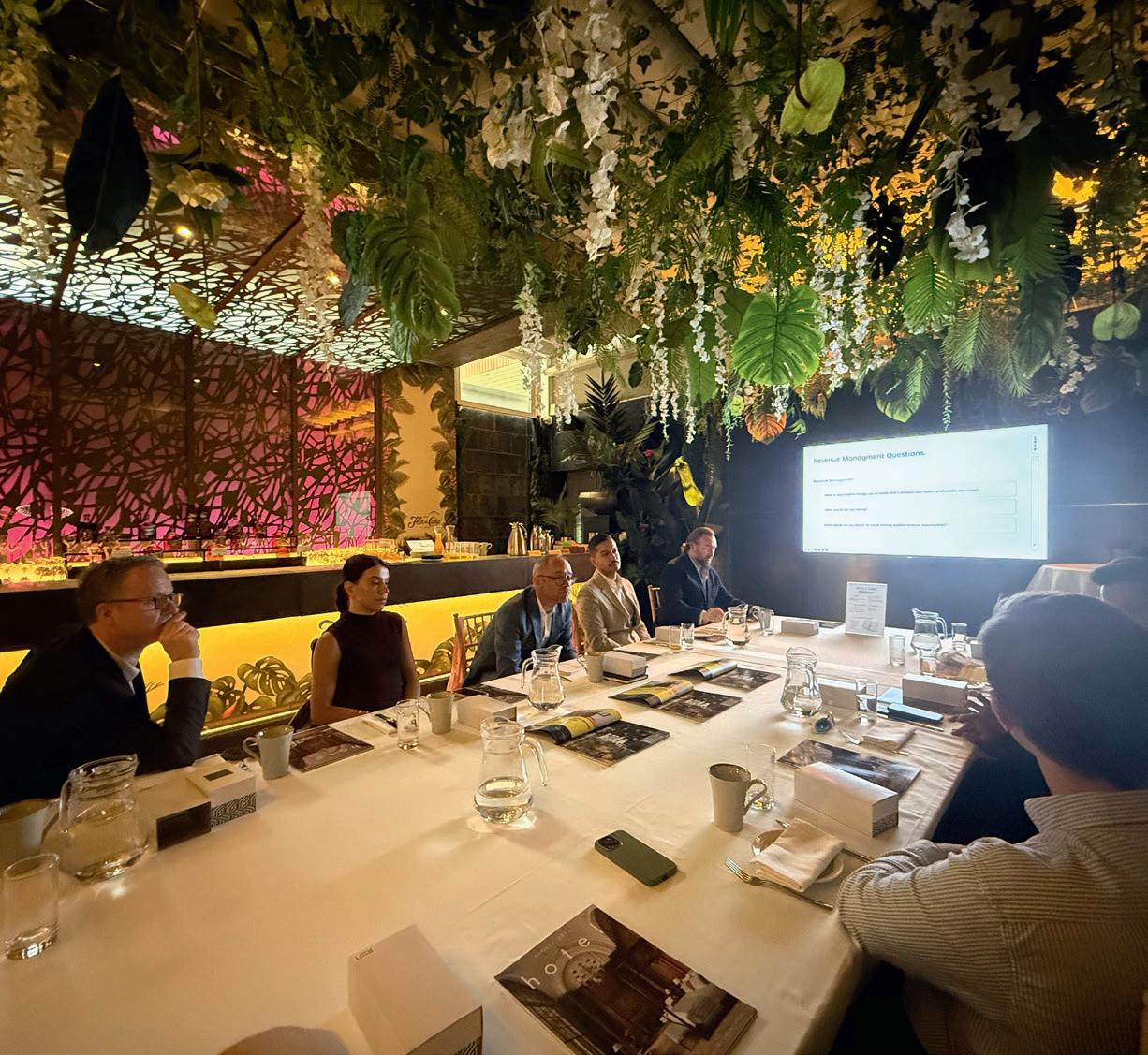
a receptionist instantly served up the right guest data by face recognition, able to greet Mr. Edwards and ask how Fifi is doing post-surgery, and even offer a little present for the dog - all pulled from central, AI-enriched profiles.
There’s excitement, and caution. Some question AI’s reliability, and everyone agrees expectations have skyrocketed now that guests have assistants in their pockets. The consensus? AI should empower staff to be more present, not replace human warmth. Smart tools give teams superpowers for remembering details and customising every touchpoint, while freeing them to have unscripted, authentic connections.
A recurring theme was the potential to see hotels not just as room providers, but as space managers: selling everything from desk spaces by the hour to karaoke rooms or event suites, and making it seamless for guests to book these services as part of one journey. Most hotels, the group admitted, still rely on clunky manual processes and miss opportunities to upsell or utilise their full inventory.
This is where platforms like Mews shine. Mews empowers hotels to configure, sell, and manage any kind of space or service - rooms, parking, meeting areas, wellness appointments - not just by night, but by hour or session. Live inventory, pricing, and centralisation mean teams can unlock new revenue streams and orchestrate experiences that truly fit the needs of leisure, corporate, and creative guests alike.
Debate raged around the right level of automation. Some relish a completely digital check-in and mobile keys; others see the physical key and personal welcome as sacrosanct elements of luxury and boutique hospitality. The lesson:
there’s no one-size-fits-all; demographic, property type, and brand values must dictate the blend of digital and personal. The best tech is invisible, enabling freedom and choice, so guests can choose their ideal experience.
Real loyalty is built not just with points but experiences, whether it’s access to exclusive events, plant-a-tree sustainability schemes, or surprise-and-delight tactics (think a pre-booked afternoon tea with show tickets). Digital ease drives reviews and repeat stays, but deeper emotional connection multiplies the impact.
The seminar echoed Mews’s philosophy: hospitality’s future is a mix of intelligent data, flexible operations, and empowered teams. Mews enables hotels to unify guest profiles, automate operational processes (including upselling and service management), and unlock space monetisation, all while safeguarding the soul of hospitality: people.
From Northern Europe’s innovative properties to creative independents worldwide, the leaders shaping the future are those who embrace technology, but never lose sight of the individual behind every booking.
Balancing personalisation, tech, and operational realities is hard - but the rewards are transformative. Whether you’re a hotelier wrestling outdated systems, designing “personality-based” check-ins, or rethinking how to sell your spaces, the key is to invest in platforms and practices that make data actionable, teams empowered, and every guest feel like they truly belong.

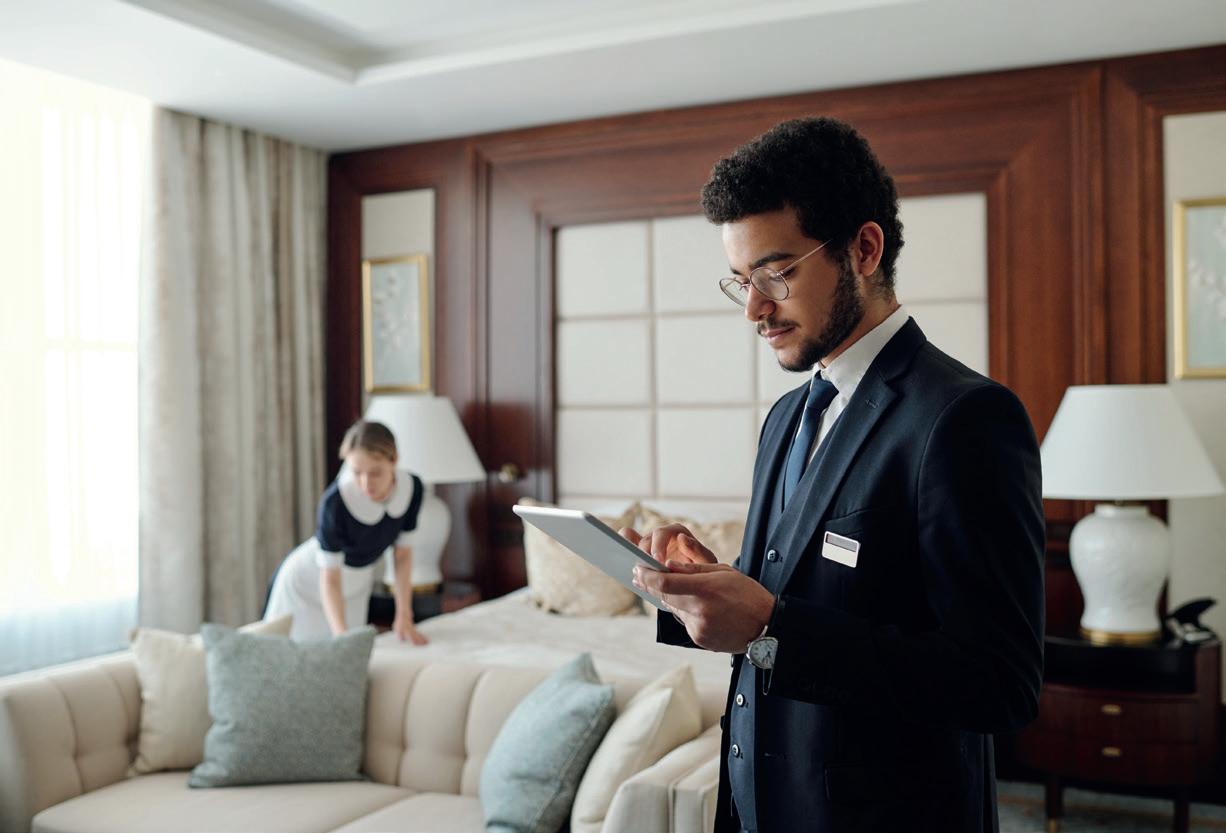
The festive period is one of the most rewarding and demanding times of year for hoteliers.
Guests arrive with heightened expectations, seeking celebration and experiences that feel both personal and effortless. Behind that seamless experience are teams scaling operations to meet demand while preserving the quality and individuality that define great hospitality.
The season brings full houses, rapid turnover, and events that test every part of a property – from the front desk to food and beverage. Many hotels rely on temporary staff to handle the workload, which can put pressure on consistency and service standards. It is during these busy periods that reputation and loyalty are shaped, as guests paying premium rates expect every detail to feel thoughtful.
With occupancy at its peak and celebrations happening across the property, success relies on teams who are aligned and supported. Practical systems make all the difference. Clear digital workflows, real-time task updates and shared visibility of guest requests keep everyone aligned as arrivals increase and service pace intensifies. This gives seasonal staff and cross-trained colleagues

confidence to step into guest interactions quickly, because they can see priorities and context in one place.
Modern hospitality technology has evolved beyond operational efficiency to become the foundation for sustaining meaningful guest relationships. A wellintegrated Property Management System (PMS) acts as a central hub, connecting departments and enabling realtime coordination. When combined with point-of-sale (POS), inventory and guest-facing systems, it gives hotels the ability to adjust schedules, manage dining capacity, surface guest preferences instantly, and handle last-minute requests.
This level of integration frees staff to focus on the human side of hospitality. Instead of chasing information or managing bottlenecks, they can welcome guests warmly, anticipate needs and add thoughtful touches that elevate festive stays.
Mobile access strengthens this further, allowing teams to stay on the floor, respond quickly and coordinate activities without stepping away. The result is service that feels fluid, attentive and genuinely personal at the busiest time of year.
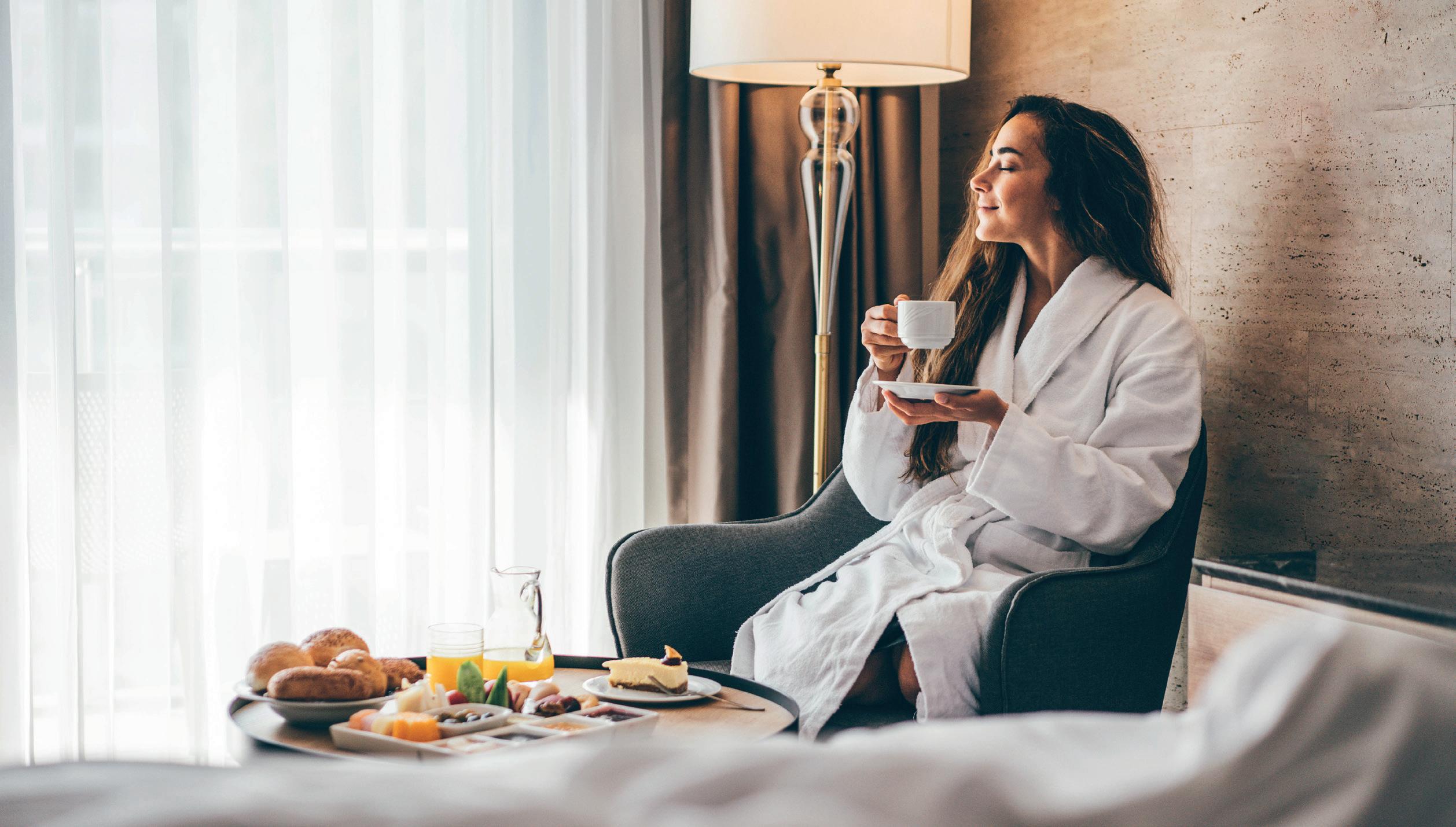
When designed well, self-service tools enhance hospitality. Mobile check-in, digital keys and in-app requests help guests begin their stay smoothly while easing pressure on teams. Mobile ordering and QR menus add flexibility and reduce queues, freeing staff to focus on higher-value interactions.
These touchpoints generate real-time insights into guest behaviour. Each interaction helps tailor experiences, whether securing a festive dining reservation, recommending spa treatments or highlighting local winter activities. When delivered seamlessly, these options feel natural and create new revenue opportunities beyond the room.
For hoteliers, the benefit extends beyond convenience. Streamlined arrivals, digital requests and automated updates free teams from routine tasks and allow them to be present with guests, noticing needs and adding thoughtful touches that shape the festive atmosphere. This reduces strain during peak moments while ensuring personal service never slips, even on the busiest days.
Holiday stays create opportunities for lasting connections that keep guests coming back. Hotels that make it memorable often convert one-time visitors into repeat guests. Guests arriving for Christmas may find a handwritten card and seasonal treats in their room – a simple touch that elevates the experience. Returning families could see familiar ornaments or stockings ready to
hang. Couples celebrating New Year’s Eve might receive a note with chilled Prosecco. Some properties may even offer a festive crèche or themed kids’ club so parents can relax and enjoy the celebrations.
Supported by accurate PMS and CRM data, these moments can be delivered consistently – even by seasonal staff. Guests feel personally cared for, creating a sense of connection to the property that extends well beyond their stay.
The real success of the holiday period is often seen long after guests depart. When hotels use peak-season insights to refine offers and tailor future stays, a single visit becomes the beginning of an ongoing relationship.
Connected systems make this possible. Understanding how guests spent their time and what they enjoyed most allows teams to deliver more relevant invitations and personalised experiences throughout the year, strengthening brand affinity and repeat revenue.
The holiday season is more than a busy stretch; it is a chance to show hospitality at its most genuine. When service feels warm, intuitive and effortless, guests leave with more than memories of celebration. They leave with a feeling of being looked after, and that sentiment is what brings them back. By pairing smart technology with genuine human connection, hoteliers can turn festive stays into long-term loyalty and meaningful lifetime value.
In a candid conversation with Jon Hargreaves, National Account Manager at Franke Coffee Systems UK&I, we find out how the brand is re-defining coffee in hotels through intuitive technology innovations.
How does Franke’s coffee technology integrate with hotel processes to streamline operations and ensure consistent beverage quality across multiple outlets?
Franke coffee machines are built for high-demand hotel environments, inspiring repeat stays by helping staff serve guests their favourite drinks quickly and consistently.
Our intelligent coffee extraction technology, iQFlow, ensures the same delicious taste and aroma in every cup. Franke coffee machines also feature integrated automatic cleaning systems, so hoteliers never have to worry about hygiene-related flavour issues.
As for cross-outlet consistency, each coffee machine is calibrated and undergoes functionality testing at our St Albans workshop before delivery and installation. This means guaranteed excellence from day one, with matching beverage menus and quality across all outlets.
What role does data-driven personalisation play in tailoring coffee experiences for hotel guests?
Personalisation is always a hot topic in creating memorable hotel experiences, with beverages playing a key role.
Thanks to Franke Digital Services (IoT), hoteliers gain full visibility into their coffee machine fleet, from operational performance to guest preferences. Insights include popular drinks, peak service times, and seasonal trends, enabling beverage offerings tailored to what guests truly want. With this behaviour data, hoteliers can exceed expectations by ascertaining which alternative milk or syrup is likely to be requested – even before a guest places their drink order.
And when trends start to shift? Franke Digital Services (IoT) ensures hoteliers are already prepared, with real-time data keeping them one step ahead.
Can you walk us through the behind-thescenes support that ensures uptime and reliability -for example, how Franke monitors machine performance remotely or assists hotel staff with maintenance?
Reliability is everything when investing in a professional coffee machine. It should perform optimally, year after year – without adding extra pressure to hotel staff.
Franke is here to help maximise hotels’ coffee offering
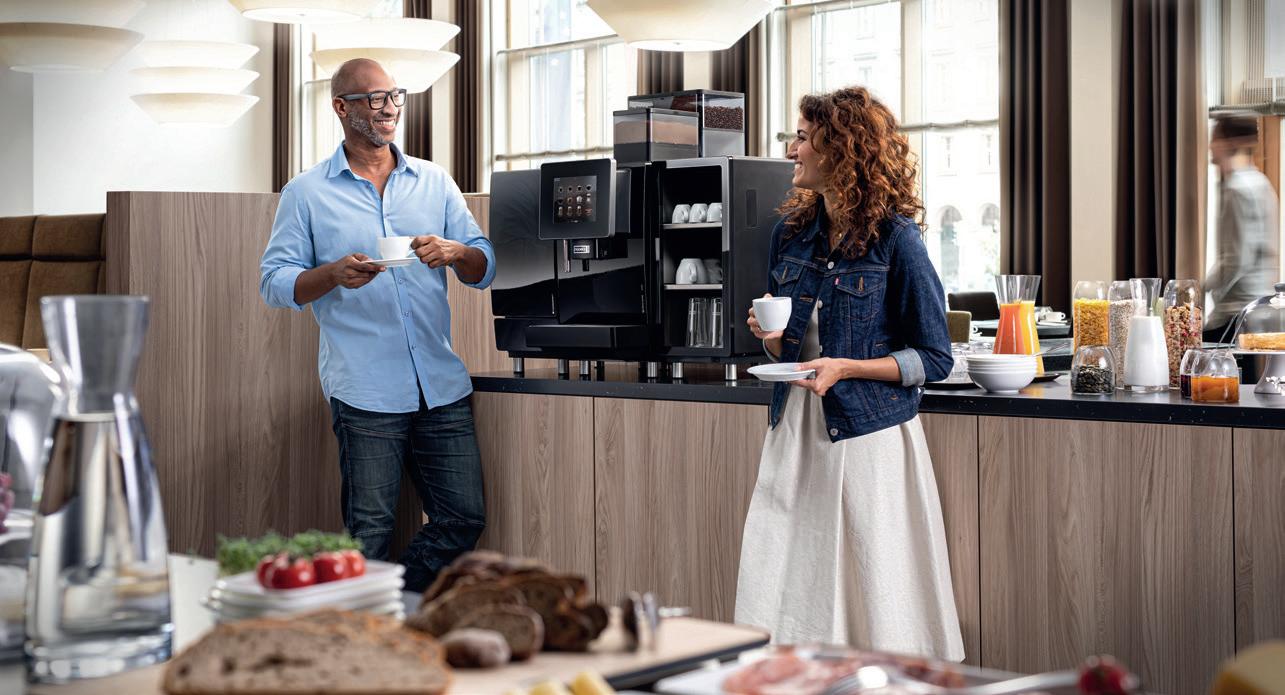
with on-site staff training in the days following installation, covering daily machine operations, cleaning routines, and troubleshooting tips.
Not only that, but our dedicated service team and 100 nationwide engineers ensure rapid response times, with 24-hour SLAs designed to minimise downtime and keep the hotel’s coffee service running smoothly.
How is Franke leveraging technology to support hotels’ sustainability goals, such as reducing waste or optimising energy use, while maintaining high standards of service?
Sustainability remains a key focus for hotels, with our equipment built to support that commitment. For example, Franke coffee machines can go into energy-saving mode to reduce power usage during quieter periods, with a rapid reboot in the lead-up to peak service hours.
Furthermore, each machine is calibrated precisely to the hotel’s beverage menu – gram throw, milk measurements, and the number of syrup pumps – to minimise ingredient waste. For daily maintenance, our CleanMaster technology uses the exact dosage of cleaning agent required, reducing unnecessary spending on cleaning inventory while keeping the coffee machine in peak condition.
For Franke Coffee Systems, it’s about partnership: supporting hotels in achieving their ambitions, while gifting guests a beverage experience worth remembering.
Learn more about Franke’s automatic coffee machines by emailing Jonathan.Hargreaves@franke.com.

TV remains an essential amenity in the hospitality sector. However, offering TV in hotels and guesthouses brings legal responsibilities, particularly around copyright clearance. To better understand these requirements, we spoke with Richard Combes and Max Rumney, Co-Chairmen of AVLA, to discuss why hotels need the licence and why it matters more than many hoteliers may realise.
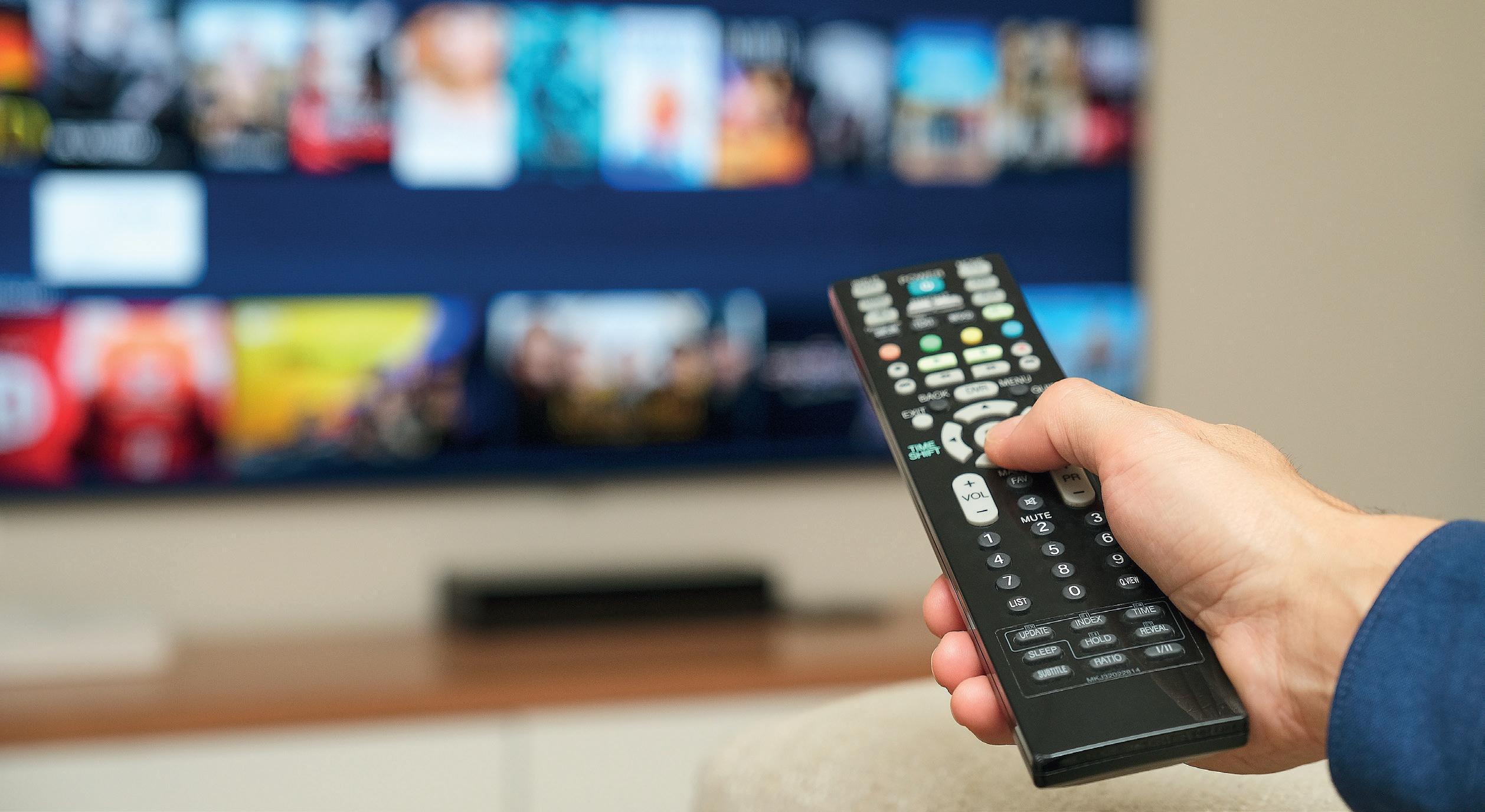
Let’s start with the basics — what is the AVLA licence, and why do hoteliers need it?
Richard Combes: The AVLA Licence is essentially an authorisation for hotels, aparthotels, serviced apartments, B&Bs, and similar businesses that enables them to legally provide guests access to TV channels featuring films, series, documentaries, cartoons, and other TV shows from AVLA’s repertoire.
AVLA’s repertoire is extremely vast and is regularly
broadcast on the main national TV channels, as well as in other networks. For instance, content of AVLA is regularly aired on the BBC channels, ITV, Channel 4 and Channel 5, among others.
Max Rumney: Many hoteliers don’t realise that offering TV channels in a hotel constitutes a “communication to the public” under UK copyright law. This means that the appropriate permissions must be in place. Providing access to protected content without the necessary licences is
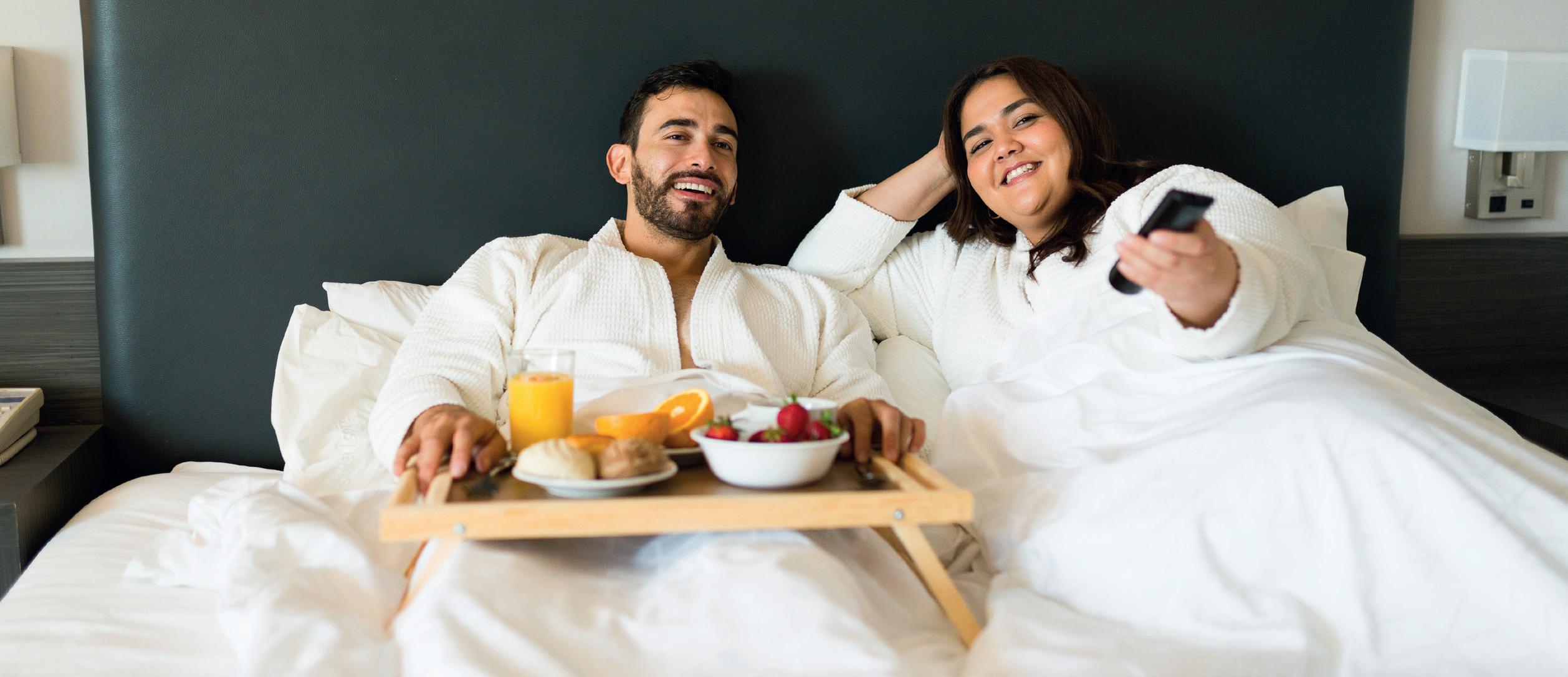
considered copyright infringement and carries the risk of legal action. It is essentially similar to offering music in public venues.
The AVLA licence simplifies compliance by clearing the rights to an extremely vast catalogue of works and the rights of various categories of rightsholders— all in under five minutes.
But doesn’t a hotel just need the TV licence?
What if a hotel has a pay TV provider?
Max Rumney: These are common misconceptions.
The TV licence of the UK government covers the use of TV receiving equipment. It’s mandatory for both households and public venues and helps fund the public broadcasting service, such as the BBC. However, it does not grant the right to show copyright content — including works from AVLA’s repertoire — in a public venue like a hotel.
Similarly, pay TV providers supply access to the signals of numerous broadcasters -both British and foreign-, but their subscriptions do not include the legal rights to communicate all broadcasts to the public.
In contrast, the AVLA licence specifically allows to communicate to the public the works of the creators it represents — tens of thousands of producers, writers, actors, directors, and visual artists — when broadcast on TV. These rights are not included in standard broadcasting agreements. The fees collected by AVLA are distributed to the respective creatives.
Richard Combes: It is important to distinguish between watching TV at home and offering it in a public venue. Displaying copyright-protected works in public requires additional permissions.
What if a hotel has other licences? Isn’t there duplication, as some argue?
Max Rumney: To be clear, there is no duplication. Each
licence covers different rights and catalogues. The AVLA Licence is for a specific repertoire of works and rights not covered by other licensors.
Is the AVLA licence required for bedrooms?
Some hoteliers argue these are private spaces.
Richard Combes: Yes, it is. The courts have already clarified that hotel bedrooms are not domestic or household settings. Making protected content available in hotel rooms constitutes a communication to the public and requires proper licensing.
What would you say to a hotelier that refuses to take the AVLA licence?
Max Rumney: Frankly, offering access to TV channels that include AVLA’s repertoire without an AVLA licence constitutes piracy and is subject to legal action. It can also lead to reputational damage. That said, our goal is not to be punitive, but we have an obligation to protect the rights of our rightsholders.
The royalties AVLA collects help to finance the production of new films and programmes, and to sustain tens of thousands of workers and companies involved in the process.
Richard Combes: Respecting copyright is essential to support creators. Behind every film, series, documentary, cartoon, or other TV show is a team of talented individuals—real people working hard, often moving from project to project without a stable income. The mission of AVLA is to facilitate licensing, ensure fair remuneration for creatives when their works are used, and distribute the collected licence fees to the respective rightsholders.
By obtaining the AVLA Licence, hoteliers demonstrate respect for creative work and uphold ethical business practices — values increasingly recognised and appreciated by customers.
To learn more about AVLA visit www.avla.uk
We caught up with General Manager George Konstas to hear how his passion for hospitality led him to The Memoir Club and the story behind its characterful restaurant, Adeline.
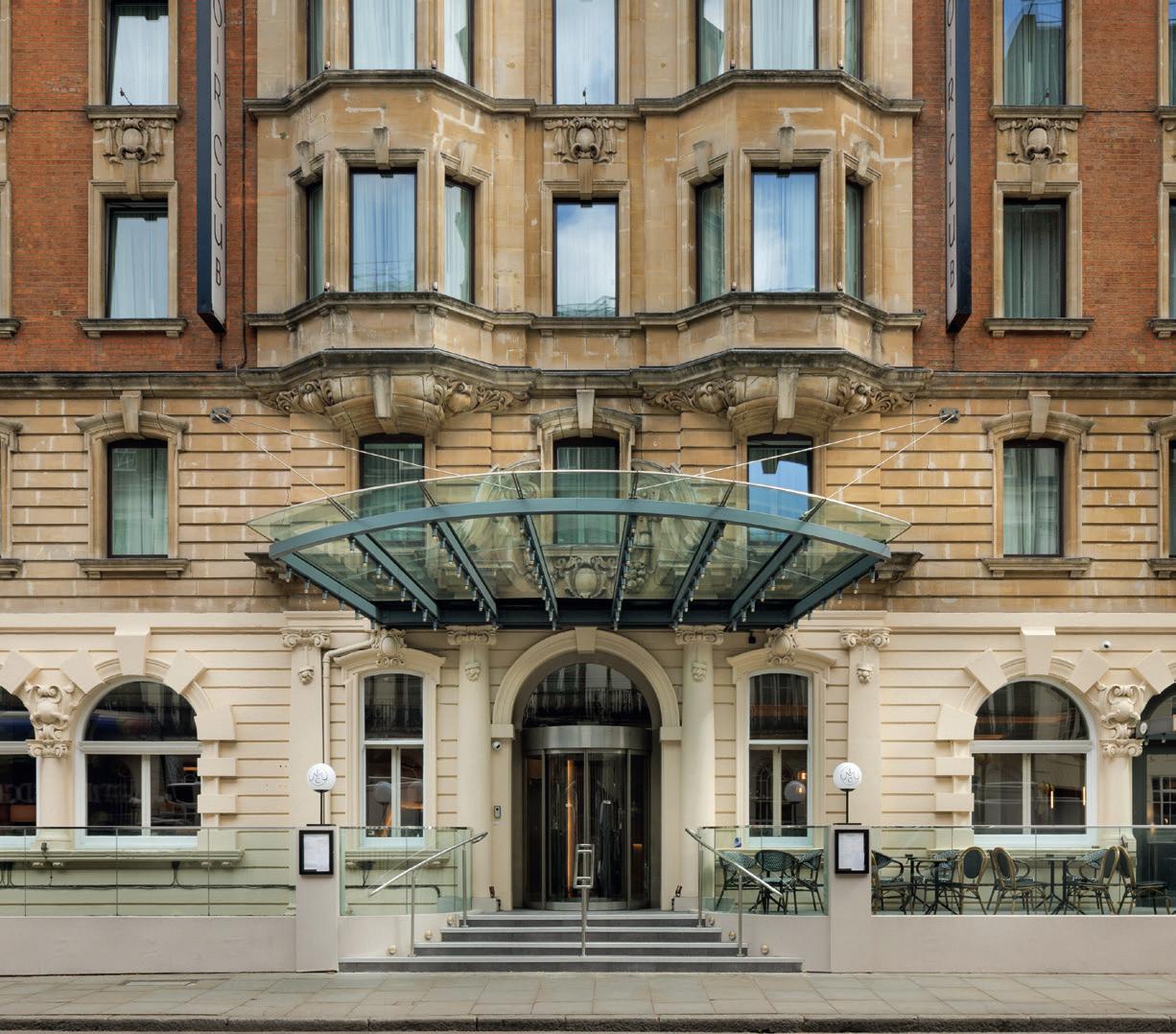
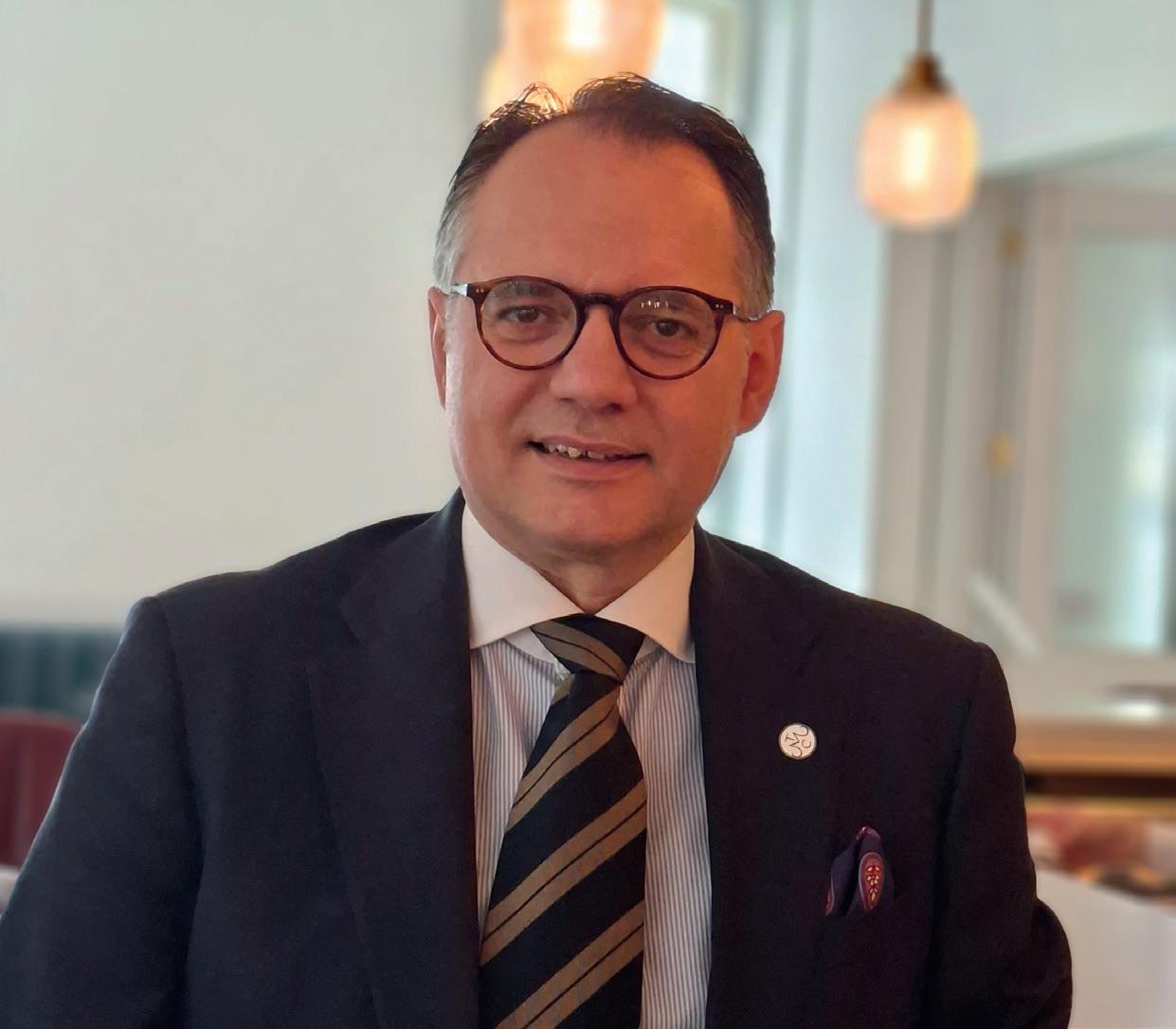
How did your hospitality journey start, and how did you get to where you are today?
My journey into hospitality began during my university years in Greece, where I spent my summers working at a resort hotel. What started as a way to support my studies quickly became something more. I was drawn to the energy, the human connection, and the purpose that comes from creating memorable experiences for others.
After moving to the UK, I worked my way up - from sales coordinator to general manager - across a mix of branded, independent, and boutique hotels in London. That journey taught me not just the mechanics of hospitality, but the power of emotional intelligence in leadership. Whether it’s building loyal, high-performing teams or designing guest
experiences that feel personal, I’ve always believed great hospitality is about emotional connection just as much as it is about metrics.
Now, at The Memoir Club, I bring that full spectrum of experience together, combining strategic thinking with a human-centred mindset to create something both thoughtful and forward-looking.
Tell us about The Memoir Club, and specifically Adeline Restaurant & Bar
The vision for The Memoir Club was deeply inspired by our location - surrounded by the garden squares and quiet elegance of Bloomsbury, an area steeped in history, creativity, and culture. We looked to the Bloomsbury
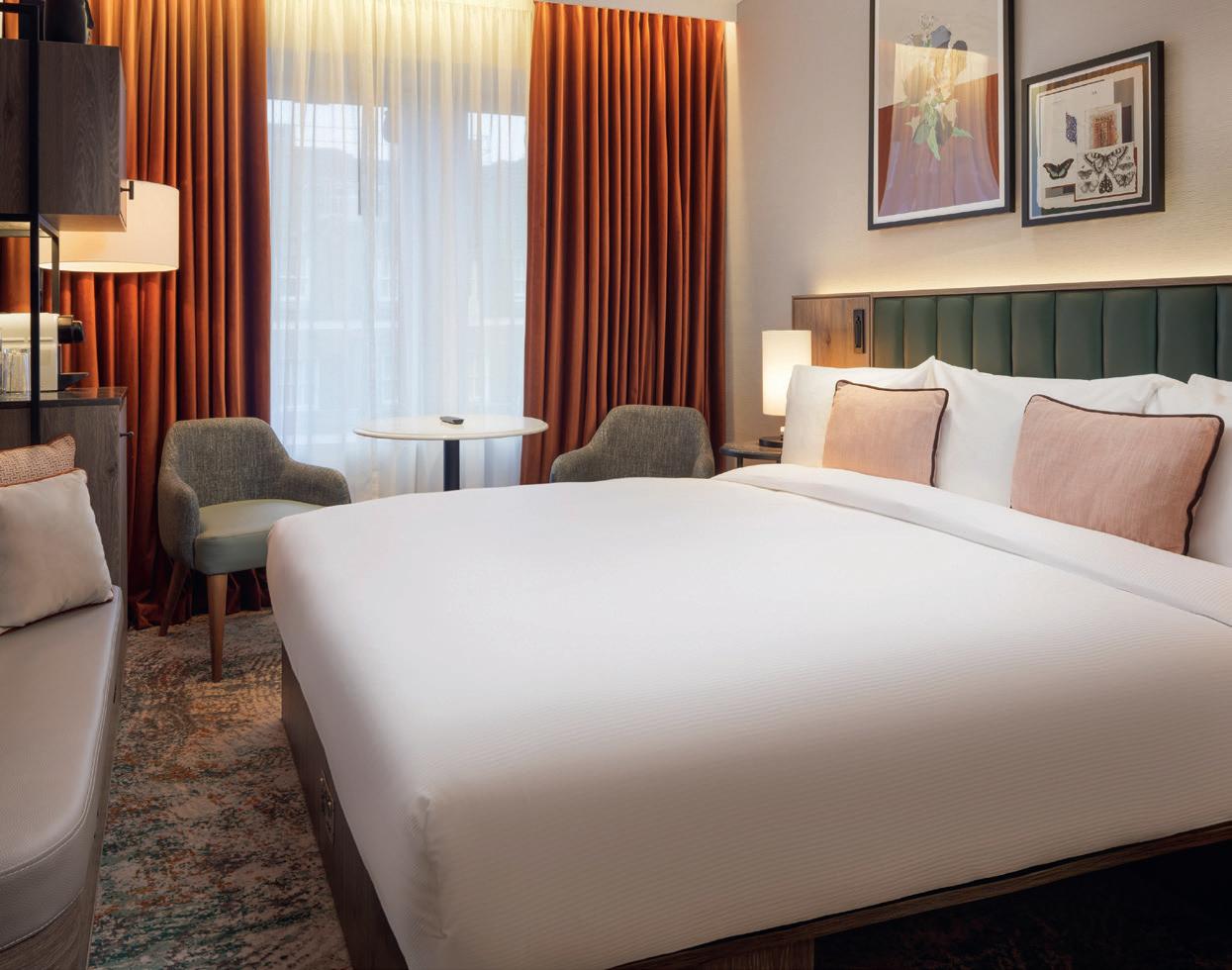
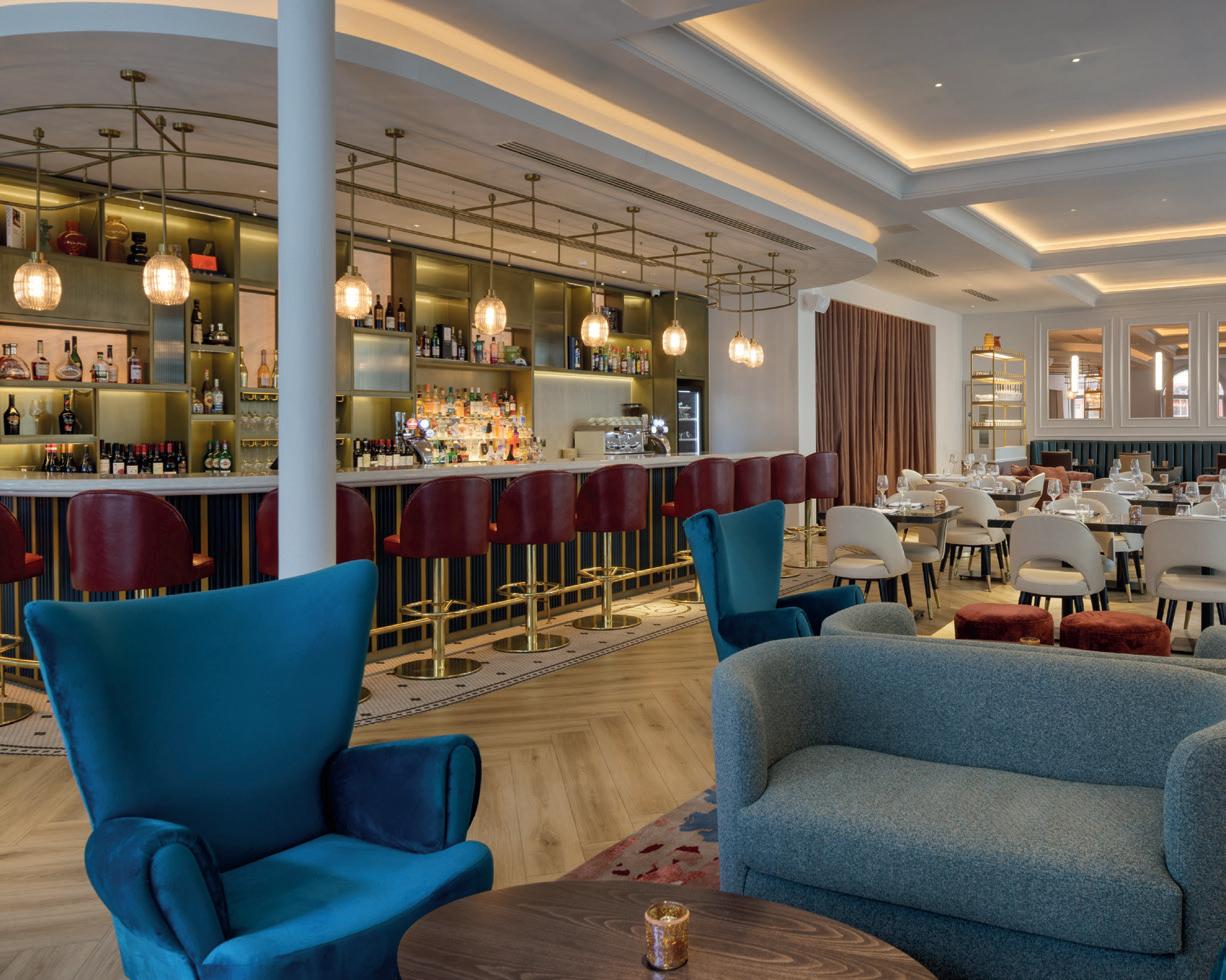
Group for inspiration, particularly The Memoir Club itself, a gathering of writers and thinkers who valued reflection, conversation, and artistic expression.
We wanted to honour that legacy by creating a hotel that feels thoughtful, layered, and personal, where every detail has meaning, and where guests feel part of something quietly special. That’s how the name came to be.
At the heart of it is Adeline Restaurant & Bar - named after Adeline Virginia Woolf. It’s an elegant, understated space that draws on classic European influences while remaining contemporary in spirit. The menu takes inspiration from Woolf’s travels through the Mediterranean, particularly the Eastern Mediterranean, and brings those flavours into a refined, modern context.
The design, the music, the lighting - it’s all curated to feel like a lived-in salon of ideas and indulgence. We wanted it to feel like a place Virginia Woolf might have frequented, or at least felt at home in.
Are there any standout or signature dishes on the menu that best capture the concept of the venue?
The menu at Adeline is inspired by Virginia Woolf’s travels through the Eastern Mediterranean, bringing those vibrant, sun-soaked flavours into a refined and contemporary setting. We wanted the food to feel both elegant and approachable - dishes that tell a story and invite guests to slow down and savour the moment.
One of our standout dishes is the harissa king prawns served with smashed avocado on sourdough toast; it’s a beautiful balance of warmth and creaminess, with a modern Mediterranean twist. Another favourite is the grilled octopus with olives, which captures the essence of coastal dining with a delicate yet bold flavour profile. Our small plates encourage sharing and connection, reflecting the convivial spirit of The Memoir Club. Highlights include the Devonshire crab croquettes served with homemade aioli - crafted to create layers of flavour and texture that feel both comforting and inspired.
What effect does your F&B offering have on generating revenue and also the overall guest experience?
Adeline is an integral part of The Memoir Club’s identity, it’s not just a service, but a central expression of our values. We’ve created a space that appeals to both hotel guests and locals, offering a thoughtful, welcoming environment where people feel just as comfortable dropping in for a weekday lunch as they do marking a special occasion.
Its presence helps shape the entire guest experience. For many, it’s the first impression they encounter, and often the most vivid memory they take with them.
It also plays a subtle but important role in how guests connect with the property. People don’t just come to stay; they come to engage, whether that’s through a morning coffee in the restaurant, a conversation over dinner, or a shared moment at the bar.
What’s your approach to leadership with your hotel team, and how important are they to ensuring operations run smoothly and at a high level?
For me, leadership is about trust, clarity, and emotional intelligence. You can have the best systems and strategies in the world, but it’s the people who bring a hotel to life - their energy, consistency, and care are what guests remember most.
I try to lead by example, with a calm and steady presence, especially in high-pressure moments. I believe in being approachable, listening more than speaking, and creating an environment where people feel seen and supported. That’s when they do their best work, not out of obligation, but out of pride in what they’re part of.
Over the years, I’ve learned that a strong culture isn’t built overnight, it’s built in everyday moments. It’s in how you respond to a challenge, how you celebrate small wins, how you guide people through change. I invest time in building that culture, because I know that when a team feels valued and aligned, excellence becomes second nature.
Honing in on the timeless sanctuary of elegance in the heart of Palma, we showcase Hotel Convent de la Missió in a unique Venue Spotlight.
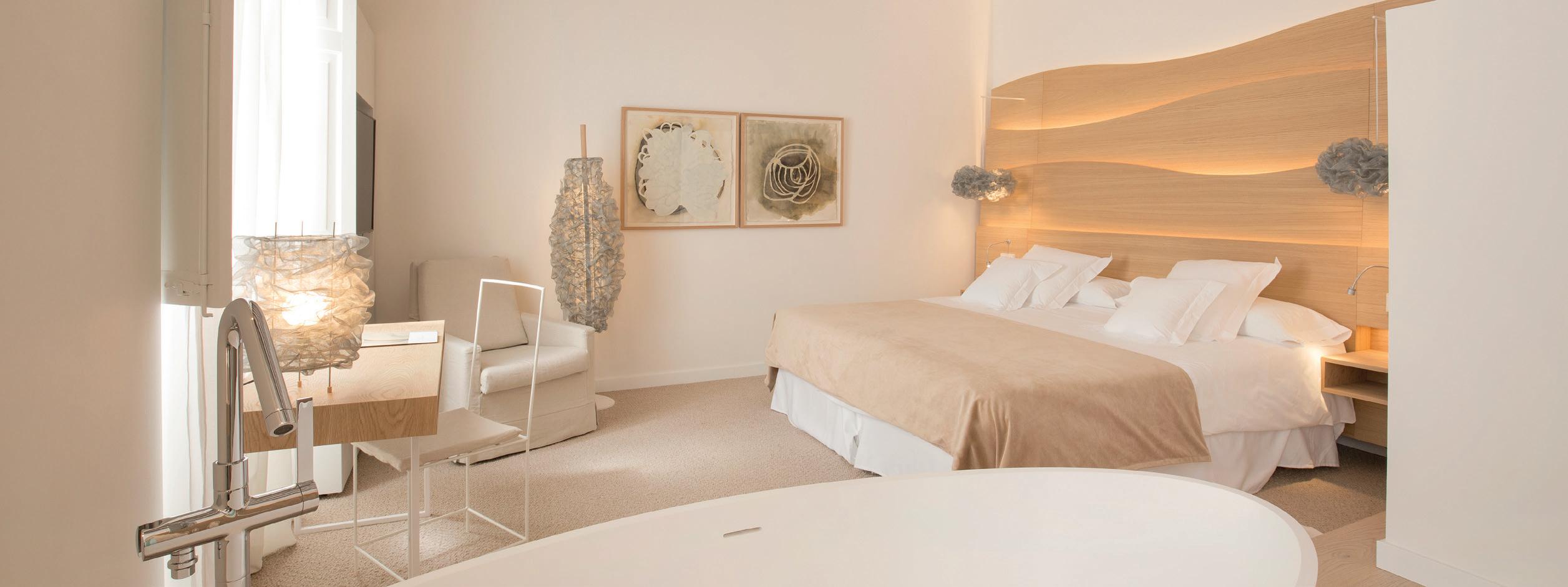
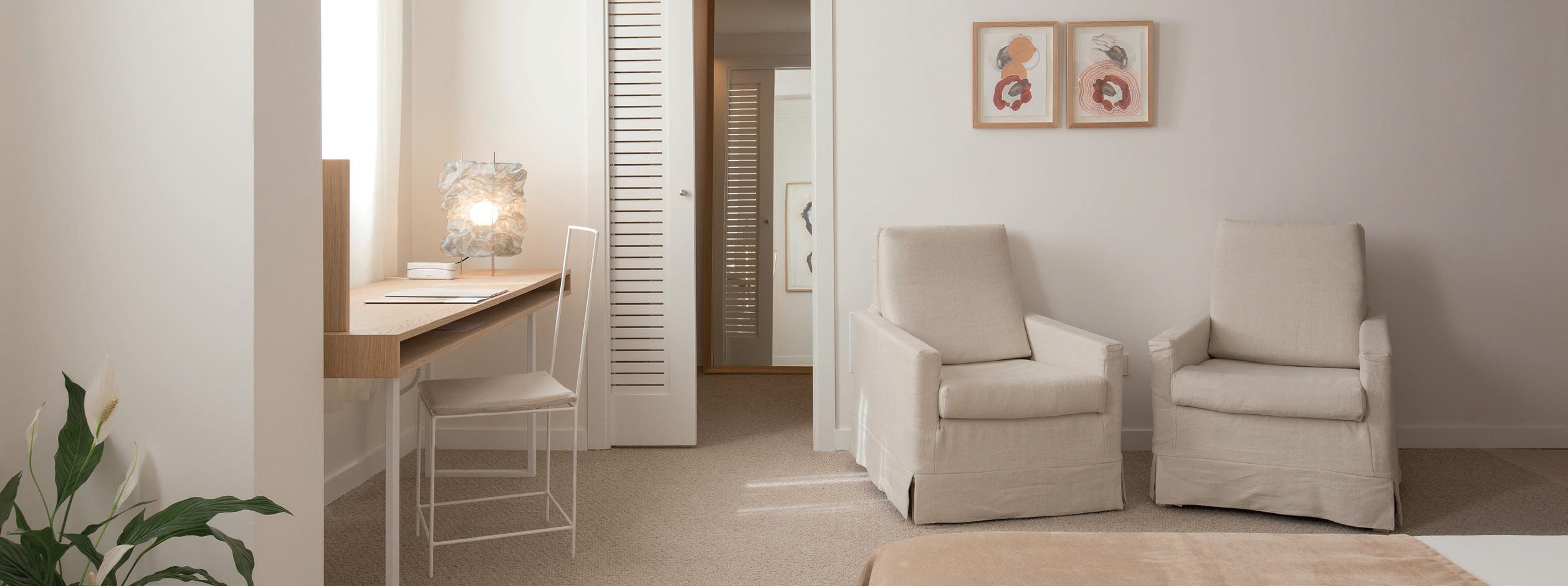

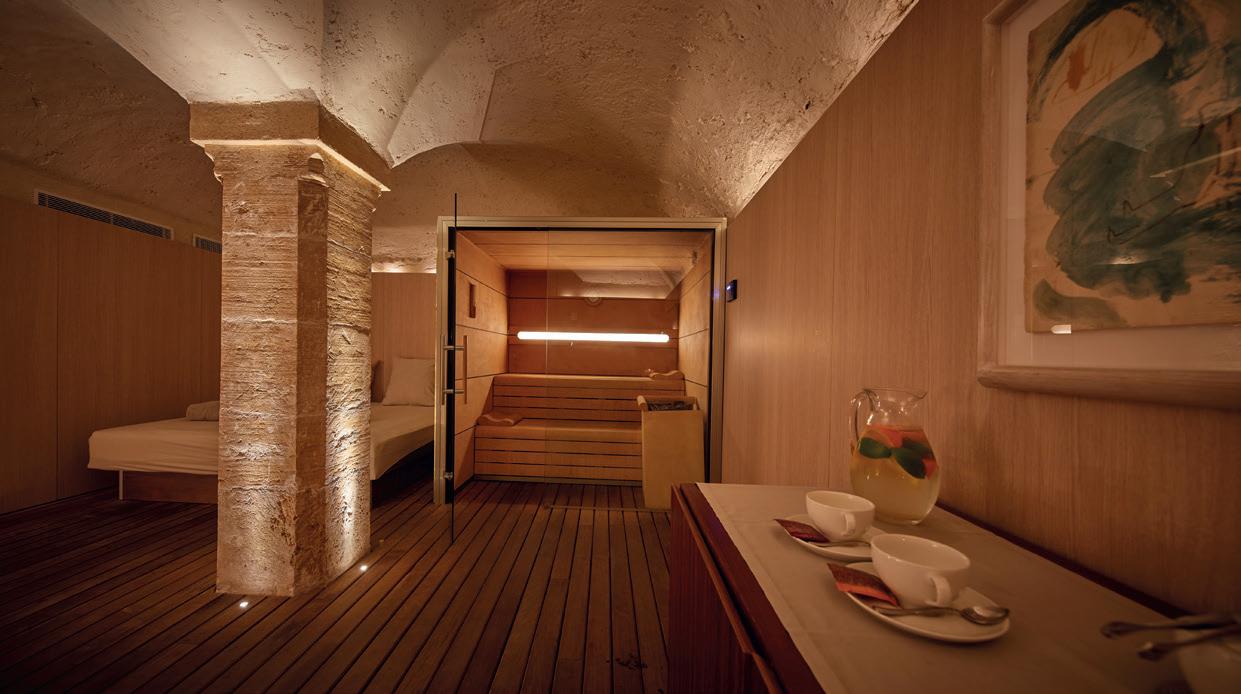
Tucked within the cobbled lanes of Palma de Mallorca’s evocative old town, Hotel Convent de la Missió, under the vision of the Torre de Canyamel Group, captures the soul of the city.
The five-star boutique retreat offers guests a sensory journey where heritage, design, and gastronomy intertwine to create an urban escape.
Housed in a 17th-century convent originally dedicated to training missionary monks, the property still resonates with an atmosphere of quiet contemplation. The venue’s transformation into a luxury hotel has preserved that serene spirit, retaining vaulted ceilings, stone walls, and austere architectural lines, now contrasted with contemporary design, warm lighting, and curated modern art. The result is a dialogue between past and present: monastic tranquility infused with refined elegance.
Hidden on a peaceful street just moments from Palma’s most emblematic landmarks, the hotel places guests at the centre of the city’s vibrant cultural life. Within a short stroll lie the majestic Cathedral of La Seu, the Royal Palace of La Almudaina, the Arab Baths, and the chic boutiques of Paseo del Borne and Jaime III. The marina, beach and island excursions are just minutes away, yet inside the hotel, an enveloping calm awaits. Behind its discreet façade, guests discover a soothing world of soft neutrals, natural textures, and impeccable stillness.
Hotel Convent de la Missió is home to one of Mallorca’s most celebrated dining destinations: the Michelin-starred Marc Fosh. Helmed by its eponymous British chef, the
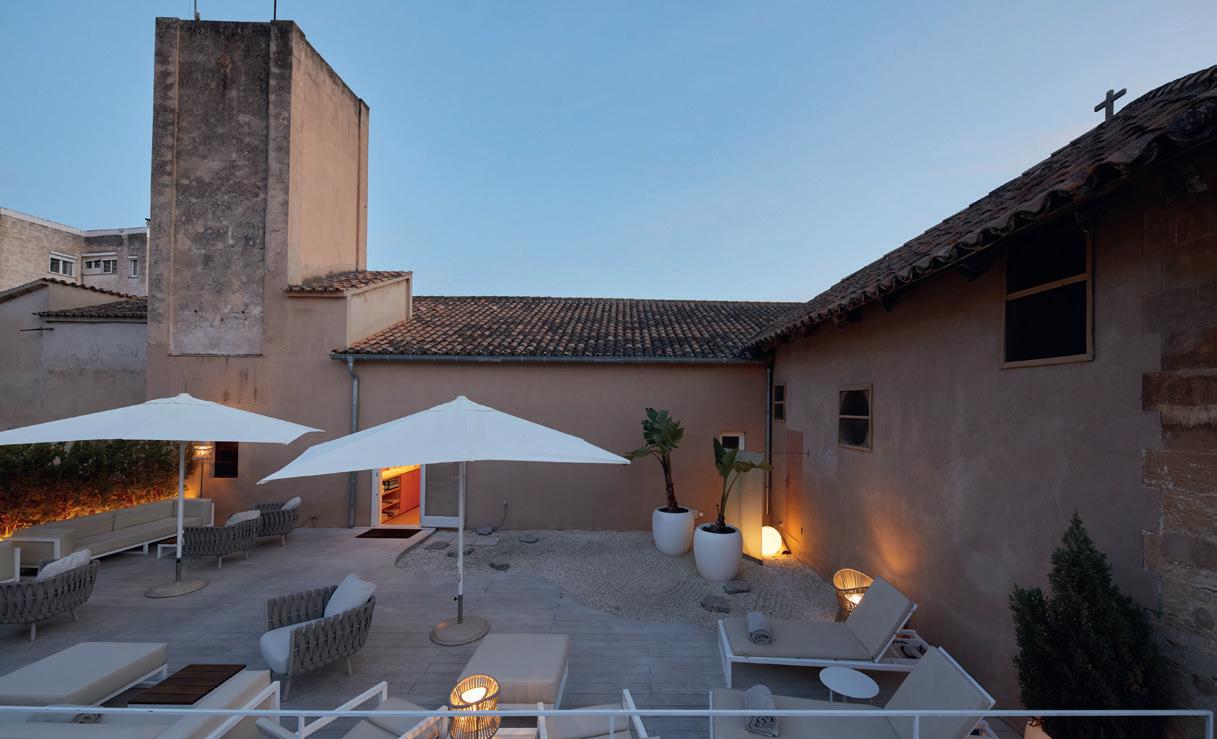
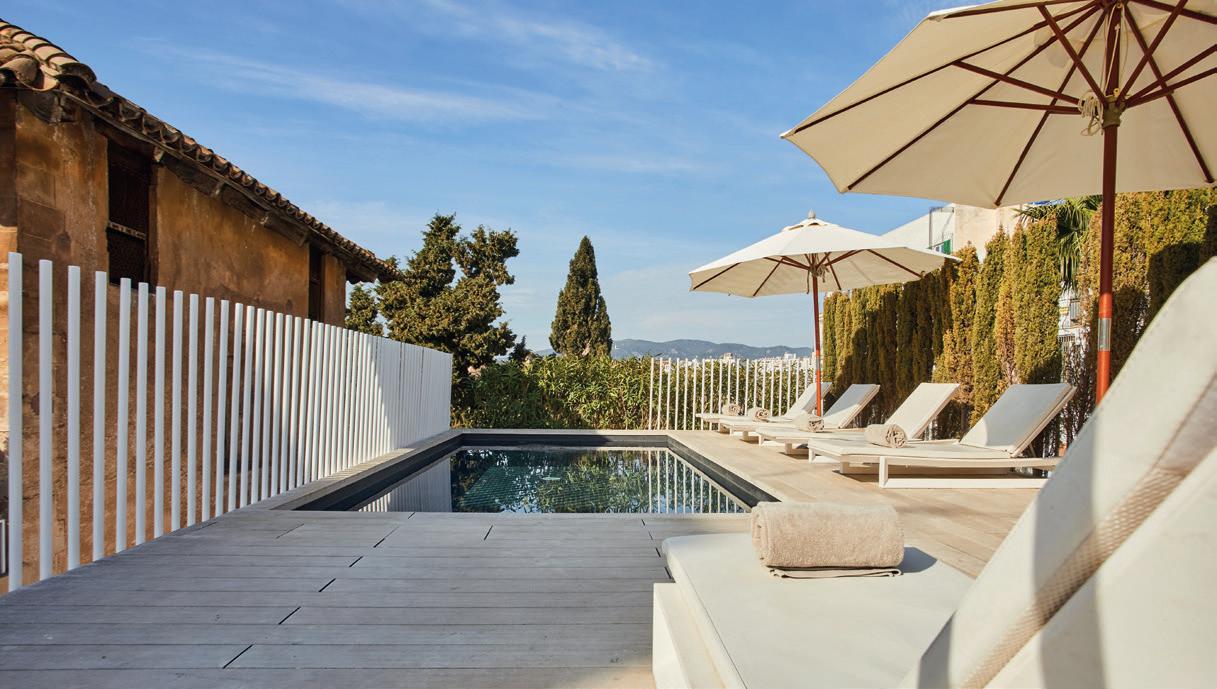
restaurant is a huge unique selling point and has become a culinary pilgrimage for discerning travellers. Marc Fosh’s cuisine is light, expressive, and unmistakably Mediterranean, crafted from seasonal island ingredients.
Guests can experience dishes that balance bold flavour with thoughtful restraint, paired with an exceptional wine selection spotlighting both revered Spanish labels and distinctive Mallorcan vineyards. Offering visitors a heightened level of guest experience, for aperitifs or leisurely evenings, the hotel’s cocktail bar and panoramic rooftop terrace offer chic spaces to lounge and soak in the skyline.
Art is woven into the identity of the hotel. Contemporary works by local creators animate its spaces, enhancing a gallery-like ambience that is both modern and meditative. Its rooms and suites are spacious, soundproofed, and impeccably detailed, featuring king-size beds, rain showers, designer lighting, and artistic touches.
Ensuring they offer every element that today’s traveller seeks, the hotel’s wellness area provides a peaceful private refuge, offering a sauna, relaxation space, and bespoke massage treatments that elevate the stay into a truly holistic retreat.
Whether for romance, culture, gastronomy, or simply the pleasure of slowing down, Hotel Convent de la Missió offers a rare blend of authenticity and sophistication in the heart of Palma. It is a sanctuary where centuries of history meet the very best of contemporary hospitality - inviting guests to savour Mallorca at its most elegant and inspiring.
Located in the heart of one of Mayfair’s most prestigious addresses, London Marriott Hotel Grosvenor Square brings together townhouse elegance and modern, five-star flair. This year, as it marks its 40th anniversary, the hotel has unveiled a series of updates, including a reimagined lobby and M Club Lounge to newly enhanced meeting spaces. We spoke with General Manager Alok Dixit to unpack what makes London Marriott Grosvenor Square one of London’s enduring yet ever-evolving luxury hotels.
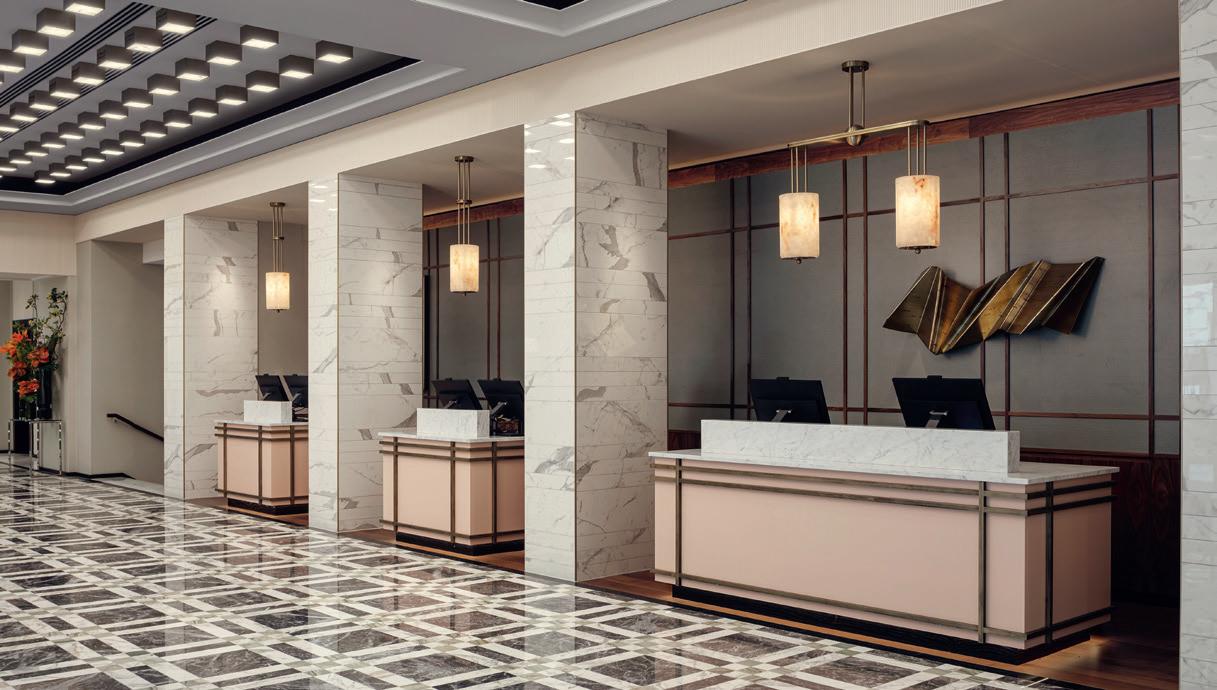
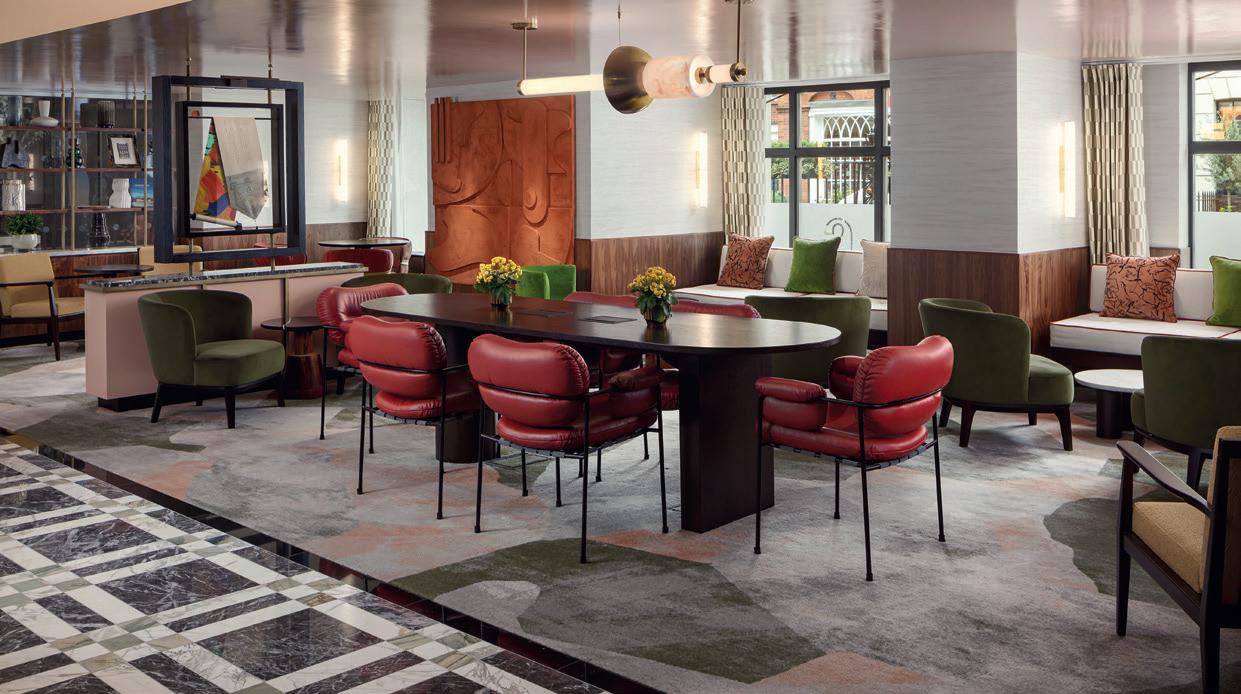
The hotel has been at the centre of Mayfair life since 1985. What gives it staying power?
London Marriott Grosvenor Square is right at the heart of Mayfair, with many of our rooms overlooking the square, while some open directly onto our own garden, which is almost unheard of in central London. The latest renovation refreshed the lobby, whilst updating the M Club Lounge and meeting spaces, but the hotel’s calm, townhouse character remains intact.
What kind of experience can guests expect when they stay here?
A balance of location and retreat. You can shop on Oxford Street or wander Hyde Park within minutes, but
step back inside and it feels calm and serene. Bedrooms combine marble bathrooms, plush bedding and thoughtful amenities, while executive-level guests enjoy access to our redesigned M Club Lounge. That space now has a more contemporary feel, with new work zones and elevated food and drink options. Add in our 24-hour Fitness Club and guests can keep up with their routine while enjoying everything London has to offer.
Dining has always been a strong point at Grosvenor Square. What should people look forward to?
We are proud to host a line-up anchored by Gordon Ramsay. Gordon Ramsay Bar & Grill is renowned for its
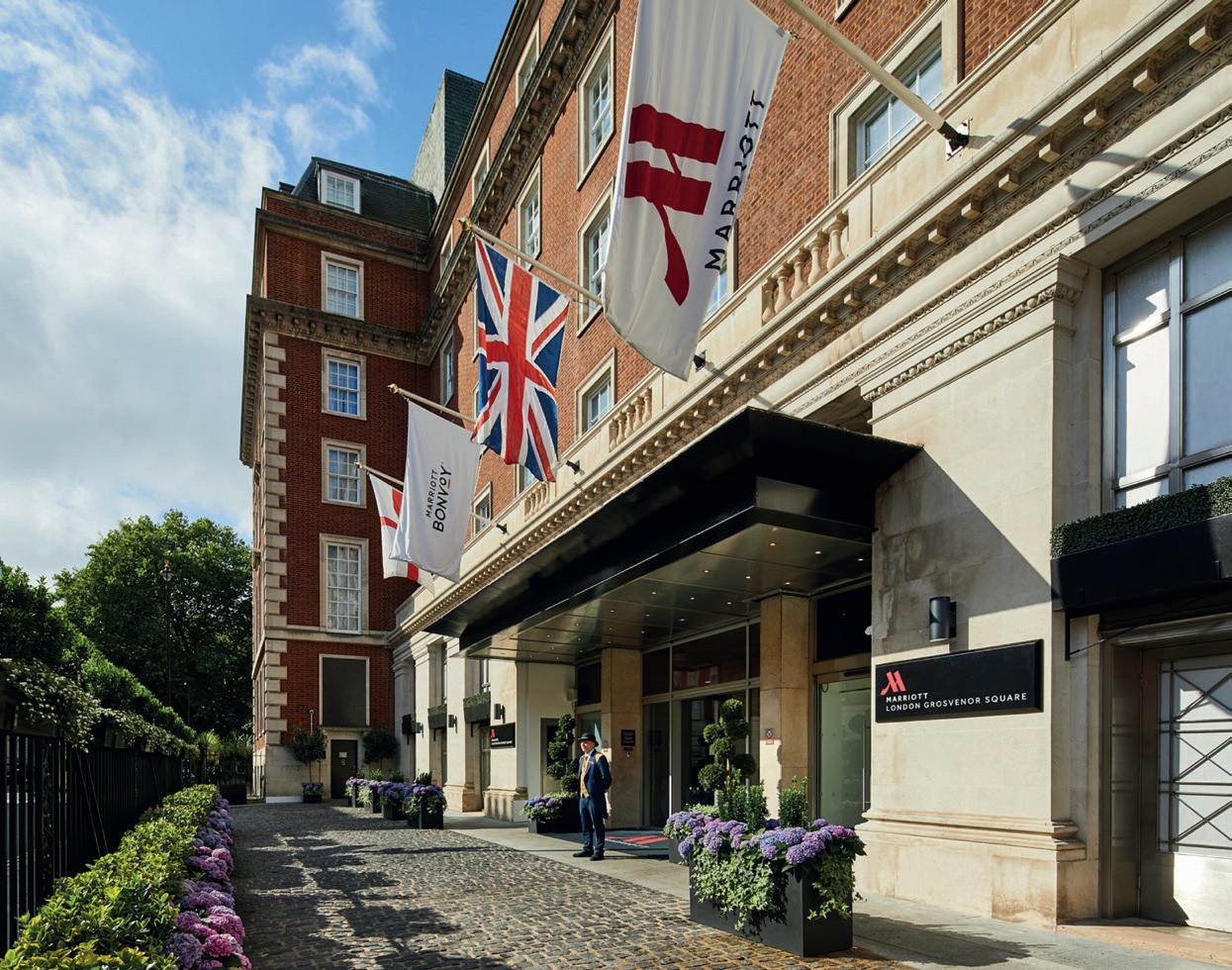
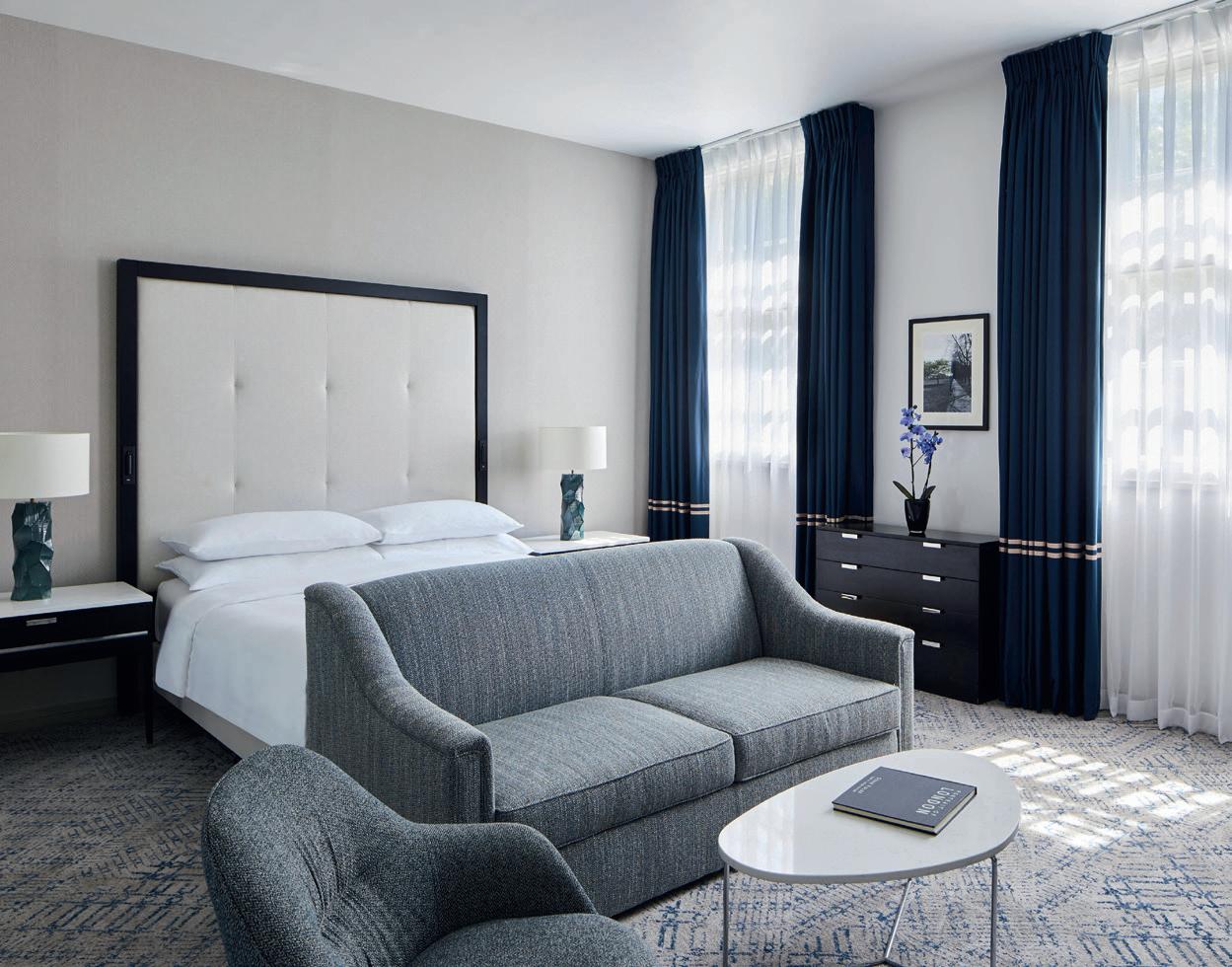
rare-breed steaks, while Lucky Cat brings bold, modern Asian flavours and one of the few Asian-inspired brunches in London.
For something more hidden, The Luggage Room Bar is our speakeasy cocktail bar. It is an award-winning bar behind a discreet entrance that transports guests back to the 1920s and pays tribute to the Bentley Boys, a flamboyant group of British motorists who embodied the glamour of the era. New this year is The Luggage Room Lounge, located in our refreshed lobby, which offers an allday menu of coffee, pastries and light dishes.
And how about events? How does the hotel cater to different kinds of occasions?
We have 11 event spaces covering more than 16,000 square feet, so the range is wide. The Westminster Ballroom is one of London’s largest pillar-free venues and can host up to 900 people. The newly refreshed Mayfair Suites are more
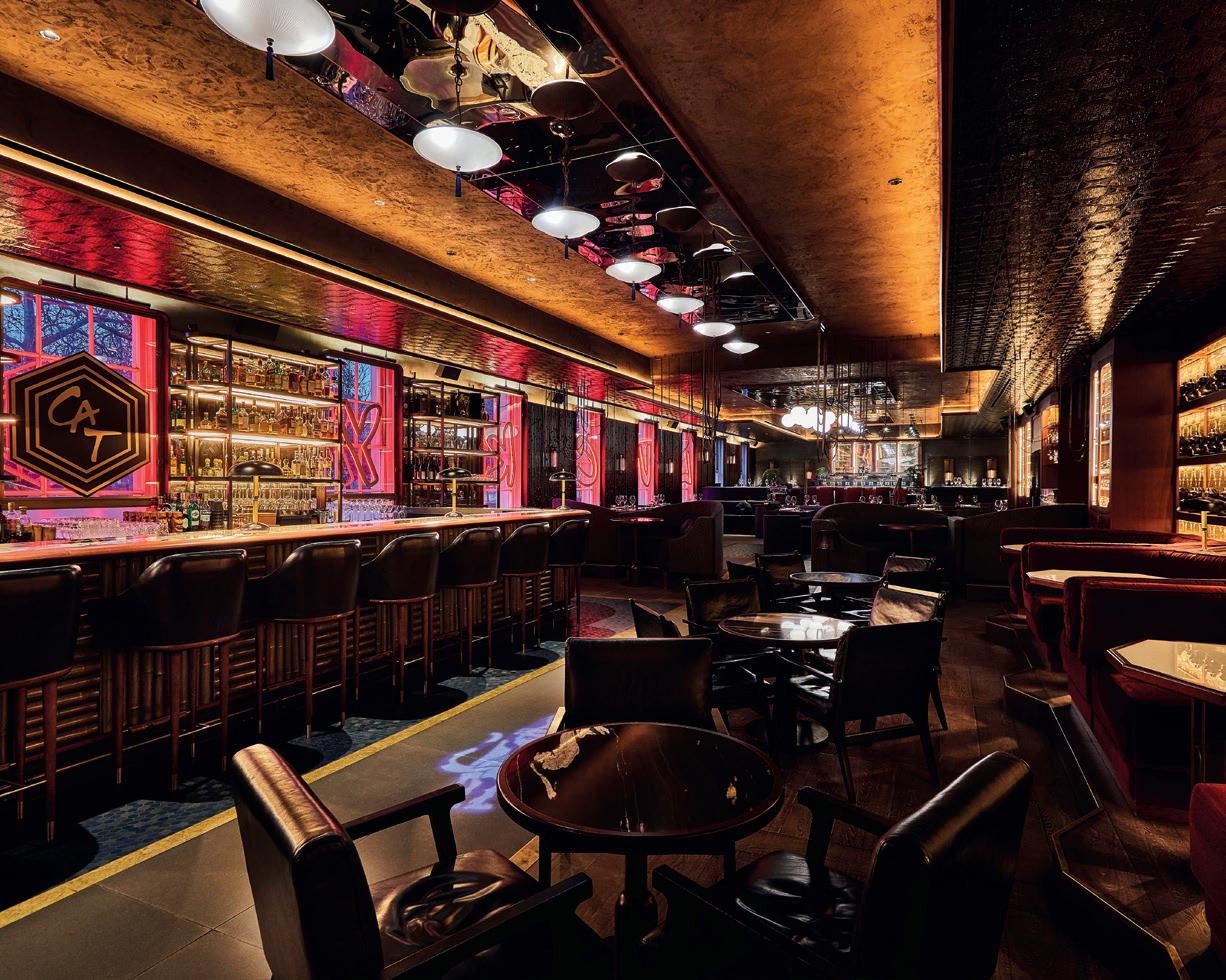

intimate, with space for up to 170, and we’ve designed them with breakout areas, coffee stations and flexible layouts in mind. Whether it’s a gala dinner, a wedding or a private meeting, the idea is to provide the scale and the service to match.
This anniversary year is about looking forward. The renovation has set the stage for the next chapter, with a focus on surprising guests while staying true to our Mayfair roots. A priority is strengthening ties with the local community. The Luggage Room Lounge is central to that vision, a social hub for meeting, working or pausing during the day, before heading to The Luggage Room Bar for a nightcap. The aim is to create spaces that feel as relevant to our neighbours as they do to hotel guests, and to ensure every visit brings something fresh and memorable.
We explore how hotels can maximise revenue beyond traditional room sales.
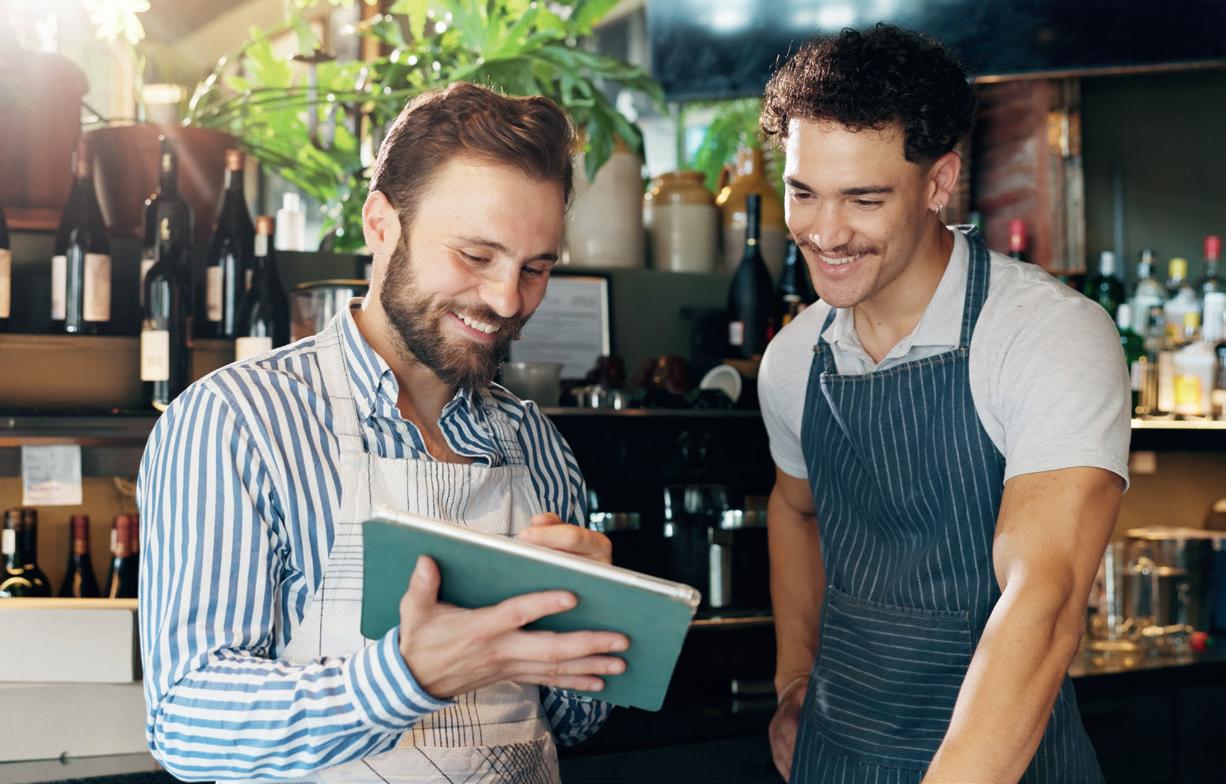
In today’s hospitality landscape, the smartest hotels know that revenue doesn’t end at the room key. With shifting guest expectations, rising operational costs, and an increasingly competitive market, hotels are redefining what it means to generate value. Beyond traditional room sales, forward-thinking properties are diversifying their income streams - transforming underused spaces, leveraging technology, and creating experiences that guests are willing to pay extra for.
From wellness retreats and co-working hubs to subscription models and branded retail, the modern hotel is evolving into a multi-faceted ecosystem where every touchpoint can drive engagement and profit. This feature explores the innovative strategies and creative thinking helping hoteliers unlock new revenue opportunities, proving that in hospitality, the stay is just the beginning.
At 7 Hospitality Management (7H), their distinctive, locally inspired design and guest experiences are more than just an identity, they’re a foundation for meaningful, diversified growth. The team aim to translate these strengths into new revenue streams that go well beyond the room. “Our food and beverage concepts are being

reimagined as stand-alone destinations, offering chefdriven dining and seasonal menus that celebrate local ingredients and regional partnerships,” said, Theresa Prins, Revenue Manager at 7 Hospitality Management.
She continued, “Wellness has also become a defining pillar, with boutique spa collaborations, organic local products, and bespoke retreats designed to attract both in-house and day guests. Beyond the property walls, we’re formalising partnerships with local artisans, tour operators, and cultural institutions to curate experiences like art walks, eco-adventures, and exclusive event access - all built on a commissionable model that benefits our communities as much as our guests.”
Technology sits at the heart of how 7H uncovers and optimises new revenue opportunities beyond the room. By integrating their PMS, CRM, and revenue systems, the brand is able to analyse guest profiles and booking behaviours to deliver personalised upsell offers - whether it’s a room upgrade, dining package, or spa experience.
Theresa explained, “Dynamic pricing now extends past accommodation to include ancillary services like parking and late check-outs, ensuring we’re maximising yield in
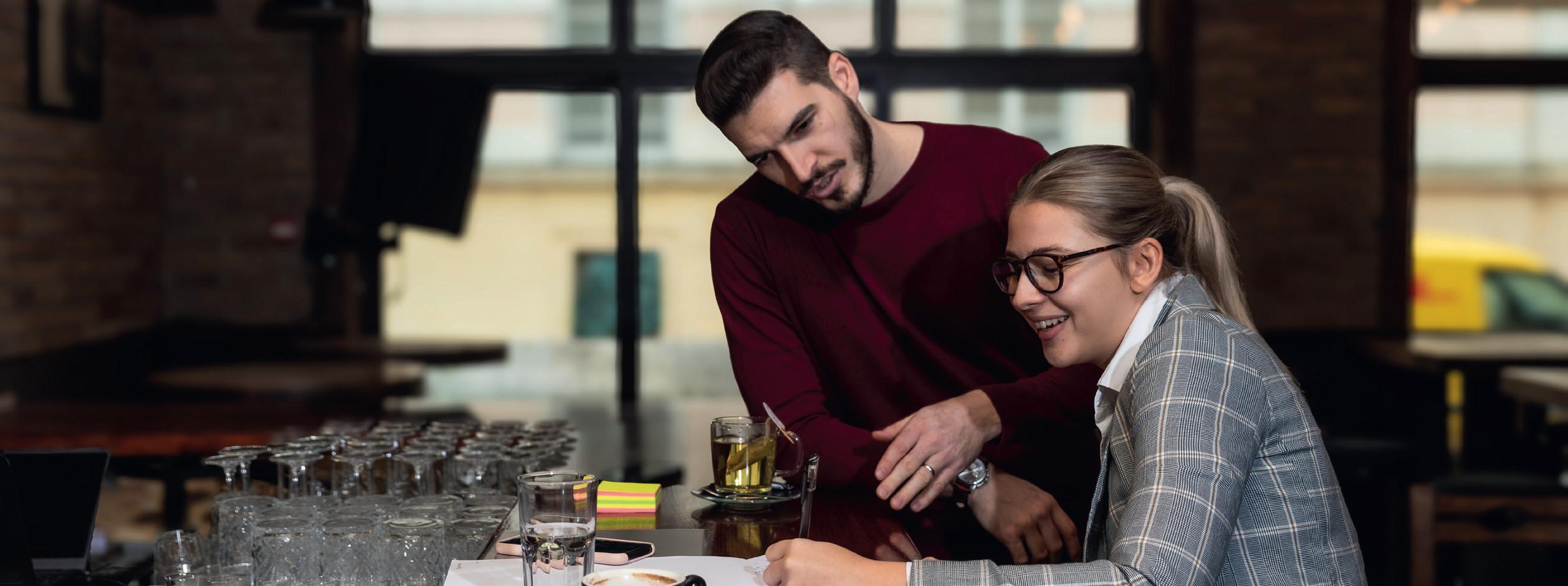
real time based on demand. Our performance dashboards give every department clear visibility into total revenue per guest (TRevPAR), encouraging collaboration and smarter promotional strategies. And with data drawn from every stage of the guest journey - from online interactions to post-stay feedback - we’re able to anticipate preferences and design experiences that resonate, convert, and ultimately enhance both guest satisfaction and revenue performance.”
With today’s travellers seeking more personalised and experiential stays, we asked Theresa, how 7H balance enhancing guest satisfaction with driving incremental spend across the property, to which she said, “At 7H, we believe that personalisation and profitability go hand in hand, it’s all about adding value, not pressure.
“Our approach focuses on value-led personalisation, where every tailored offer enhances the guest experience while naturally encouraging incremental spend. For example, pre-arrival messages are customised to each traveller’s purpose - whether it’s a romantic escape, a wellness retreat, or a business stay - suggesting thoughtful add-ons that feel relevant and rewarding.”
The teams at 7H are trained in experience-based upselling, where storytelling and authenticity replace hard sells; it’s about recommending a local wine pairing, not just another bottle. And because guest satisfaction is the ultimate measure of success, they closely monitor sentiment data, from NPS to online reviews, alongside spend metrics to ensure their efforts always elevate the experience and uphold the integrity of the 7H brand. Looking ahead, 7H sees tremendous potential to grow revenue by deepening guest engagement across every stage of the journey. Theresa said, “One exciting area is the expansion of experiential packages and membership models, from curated culinary or adventure-focused stays to loyalty tiers that offer lifestyle perks extending beyond the hotel walls.”
She continued, “Sustainability is another powerful driver, with eco-conscious travellers increasingly seeking carbonneutral stays, locally sourced experiences, and responsible
partnerships that align with their values.”
New research by SiteMinder, revealed that 70% of hoteliers in the UK believe faster, fully integrated systems could unlock at least 6% more annual revenuerepresenting a major opportunity in a UK accommodation industry expected to be worth over £25 billion in 2025.
The August survey, which drew responses from 700 hoteliers across diverse roles and property sizes in key destination markets, including 44 in the UK, examined hotel revenue management practices, technology adoption and the barriers facing the industry today.
When asked about the impact of being able to act instantly on market shifts, such as competitor rate changes, new flight routes or demand-driving events, the largest share (48%) of UK hoteliers expected a 6–10% uplift, while a further 23% foresaw gains of 11-15%.
As the boundaries of traditional hospitality continue to expand, it’s clear that the future of revenue management lies in agility, integration, and imagination. For brands like 7 Hospitality Management, innovation is not just about introducing new products - it’s about weaving together data, design, and local insight to create a more meaningful and profitable guest journey. By rethinking how and where value is created, hotels can transform every guest interaction into an opportunity for engagement and growth, ensuring that every stay contributes to a broader ecosystem of experiences, partnerships, and community impact.
Ultimately, the hotels that will thrive in this evolving landscape are those that see technology and creativity not as opposing forces, but as complementary tools for connection. With travellers seeking authenticity, sustainability, and personal relevance, the next era of hospitality revenue management will be defined by those who can anticipate needs, personalise at scale, and deliver experiences that guests feel are worth returning for, and paying more for. In this dynamic new reality, success isn’t measured solely by occupancy or rate, but by how effectively a hotel can turn insight into impact, and moments into lasting value.
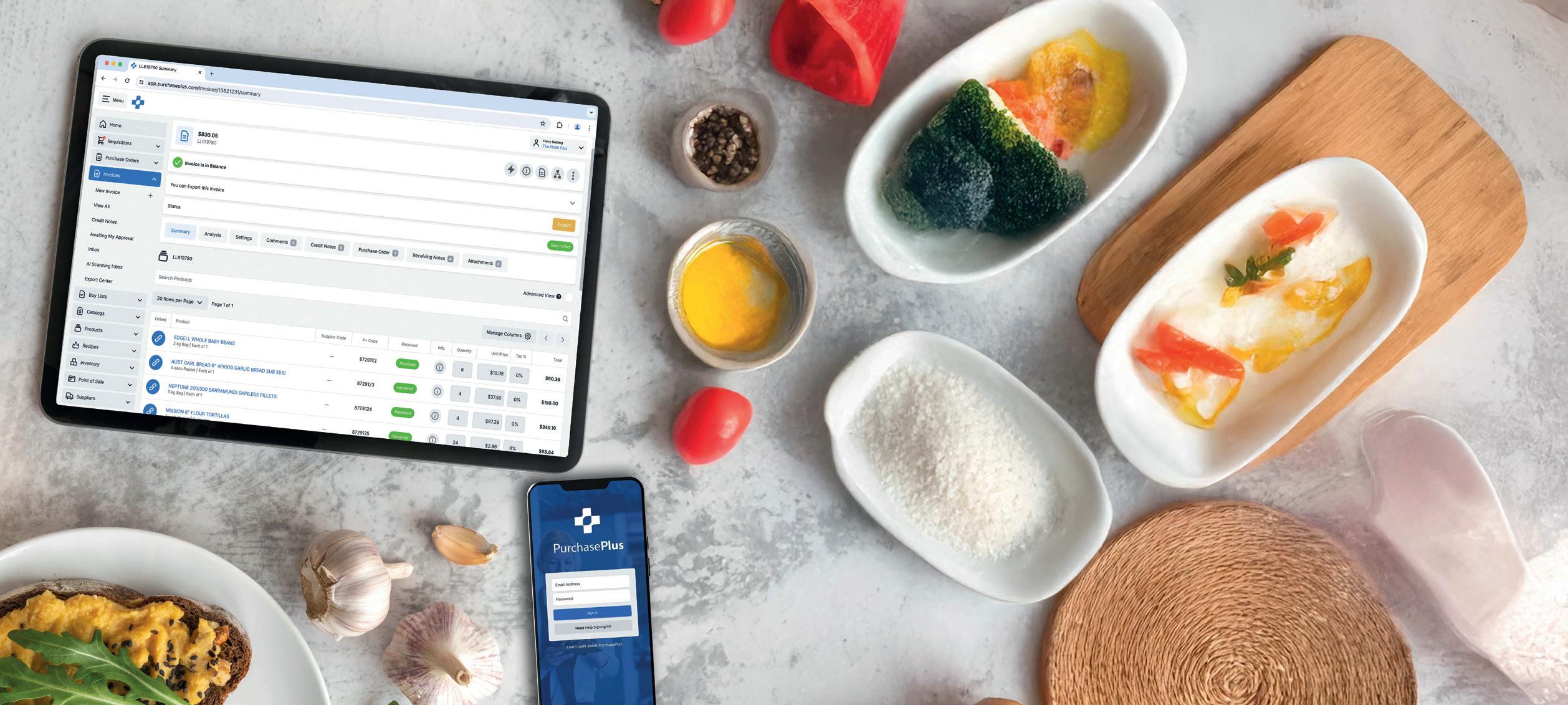
If procurement had a dating profile, it would probably say something like: “Reliable, consistent, not great at surprises.”
And while that’s exactly what you want in a finance partner, it’s not what you want in a technology strategy.
Because let’s be honest - for too long, hotel systems have been perfectly polite but socially awkward. The PMS, ERP, P2P and finance platforms all sit at the same table, yet somehow never make eye contact. We’ve been building digital hotels with analogue relationships.
But that’s changing, fast. The next era of hotel procurement isn’t about one platform to rule them all. It’s about intelligence that flows, systems that communicate and translate for each other, and decisions that happen before you even realise they’re needed.
We’ve entered the age of predictive procurement - not in the sci-fi sense of robots ordering your eggs, but in a very practical one:
AI and machine learning finally have enough data, context, and computing power to recognise patterns nearly as well as humans do.
That means systems that can quietly whisper, “You’re about to run out of linen next week,” or “The price on your preferred coffee supplier is creeping up - here are two alternatives with identical specs.”
Not commands.
Not decisions.
Just nudges - smart, at time of purchase suggestions that keep teams ahead of the curve.
The real value isn’t replacing human judgement; it’s giving humans the right data at the right time.
Because procurement people don’t want to be replacedthey just want to stop being the bottleneck.
Let’s talk about APIs - the plumbing of modern software. Unsexy, invisible, but utterly transformative.
For hotels, this means the PMS (property management
system), finance suite, ERP, inventory tool, and procurement platform can finally share a single version of the truth.
Purchase orders no longer live in isolation; they connect directly to budgets, stock levels, forecasts, and supplier data.
One system says, “We’re 80% booked for next month,” and another replies, “Right - time to restock housekeeping and reorder F&B supplies.”
That’s not automation for its own sake, it’s right product, right supplier, right time.
Anticipating, not chasing.
The PurchasePlus Vision: Intelligence as a Colleague
At Marketboomer, our roadmap isn’t about building more screens - it’s about removing them.
The goal is simple: make procurement feel like a conversation, not a process.
You ask, the system answers.
You decide, the system executes.
And if you forget, the system reminds you, politely, like a good assistant.
Our work now is focused on three big pillars:
1. Predictive Ordering
Using machine learning models trained on historical data, PurchasePlus will soon forecast needs before they become requisitions.
The system will flag anomalies - the sudden spike in laundry detergent, the supplier lagging behind delivery promises, the budget drifting off-course - and suggest changes of course for calmer seas!
2. Smart Suggestions
Procurement shouldn’t be a scavenger hunt.
Our platform will provide intelligent recommendations for equivalent or better products, available suppliers, and price comparisons in real time.
It’s not about removing buyer choice, it’s about enhancing it.
The system becomes the extra team member who’s always done their homework.
3. Assisted Workflows
We’re introducing agent-style assistance - think of it as a digital colleague who helps complete tasks for human confirmation.
Need to approve, reconcile, or confirm orders? The agent pre-fills and pre-checks, leaving you to simply review and confirm.
You still make the call, you just get there faster, with fewer mistakes and less caffeine.
From Centralisation to Connection
The old dream of procurement was centralisation: one platform, one process, one source of truth.
The future is connection - many systems, talking seamlessly.
A hotel PMS, for instance, knows occupancy patterns.
The finance system knows budgets.
Procurement knows supply chain health and pricing.
When they finally speak to each other, the result isn’t just efficiency, it’s foresight.
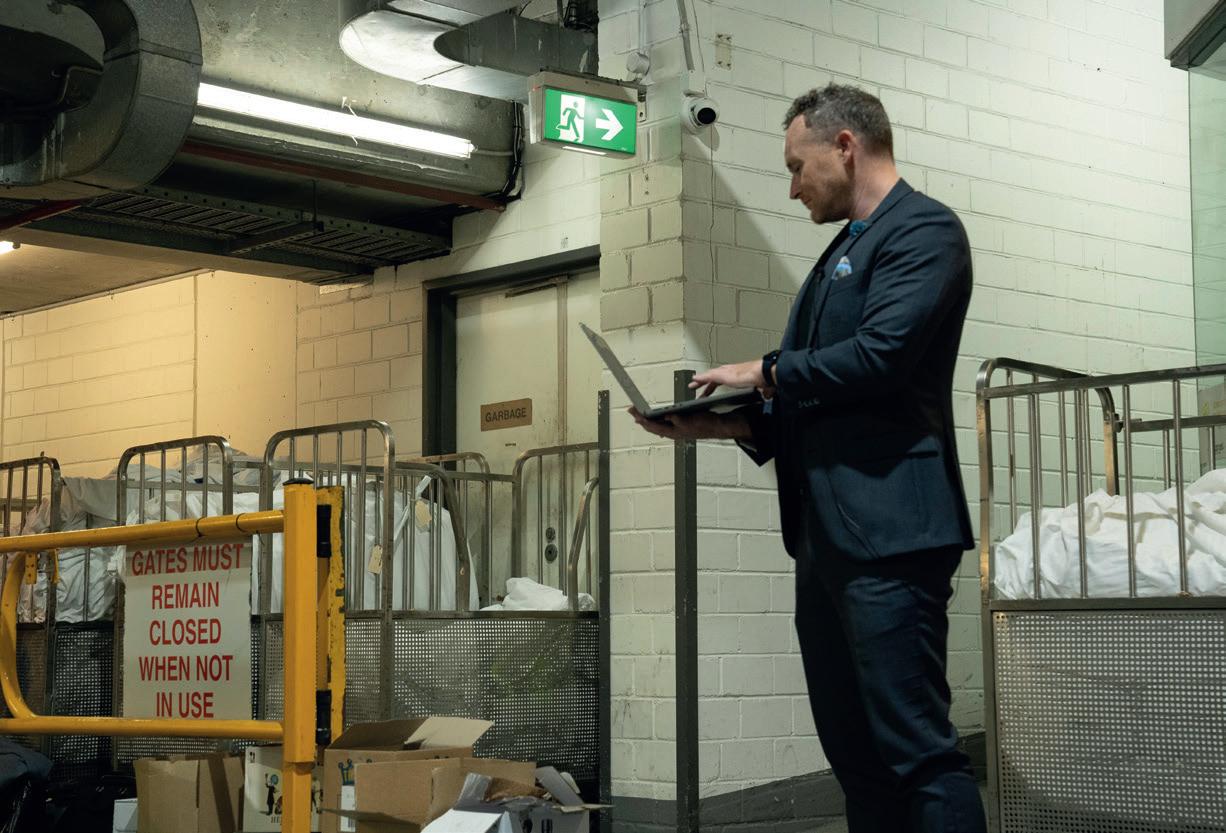
Suddenly, you’re not reacting to spend.
You’re predicting it.
Not approving orders - orchestrating outcomes.
The funniest part about all this is that the more AI we add, the more human the process feels.
Because AI doesn’t make procurement cold, it makes it conversational.
It’s not there to override decisions, it’s there to help you make better ones faster.
When your system says, “Hey, your preferred brand is out of stock, but here are three options of identical quality, from your own already approved suppliers,” that’s not automation, that’s partnership.
Procurement stops feeling like administration and starts feeling like collaboration.
You stop chasing information and start applying judgement again.
In a few years, we’ll stop calling it “AI procurement” or “smart ordering.”
It’ll just be procurement.
Because intelligence, connectivity, and automation won’t be add-ons; they’ll be expected.
And those who embrace it first, who connect their systems, trust their data, and let the machine do the maths while they do the strategy, will see procurement become what it was always meant to be: not a back-office process, but a frontline advantage.
The future of hotel procurement isn’t about replacing people with algorithms.
It’s about removing friction, surfacing insight, and giving teams the time and clarity to do their best work.
Because the real magic happens when all the systems, and the people who use them, finally start playing the same tune.
And if we can get that right, then maybe, just maybe, the future of procurement won’t feel futuristic at all.
It’ll just feel easy.
www.purchaseplus.com
UKHospitality is navigating a changing landscape with a strategic leadership shift as Kate Nicholls and Allen Simpson tackle growth in a post-pandemic world. In this candid conversation, they discuss the challenges ahead for the sector, from rising costs and consumer confidence to their efforts in shaping a more resilient hospitality industry through training, innovation and key policy changes.
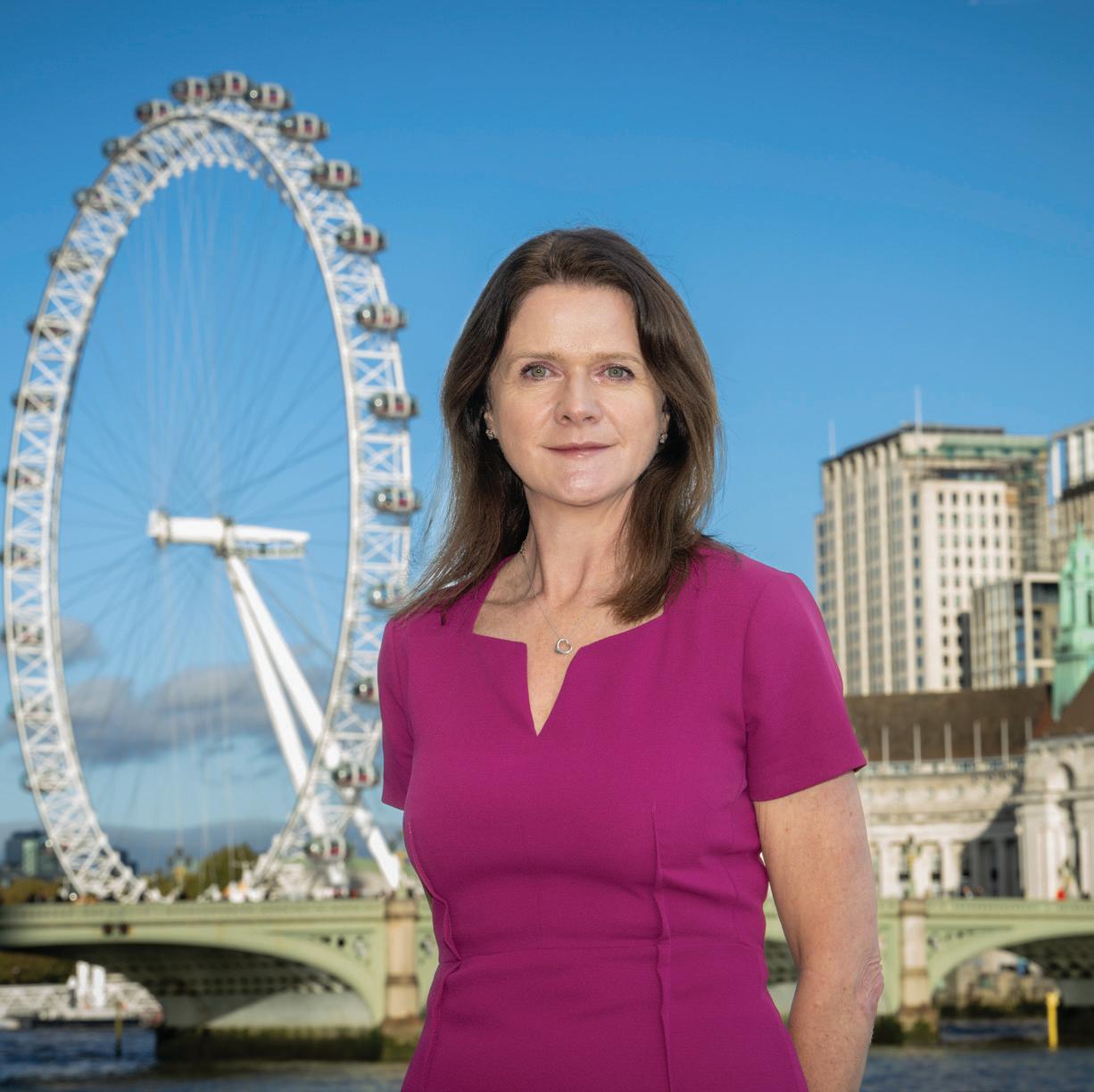

You’ve recently had a switch-up of roles at UKHospitality. How are you both finding your new appointments, and what do these roles entail?
Kate: The key thing here is strategy. UKHospitality was formed in 2018 from the merger of two large trade
associations, along with a few smaller ones. Our initial goal was to unite the industry under one voice. We had a threeyear plan for growth and expansion - but then, of course, COVID hit.
From 2018 to 2021 we were focused on merger, consolidation and recovery. Since then, we’ve seen
significant growth in both membership and our influence with government. We’ve achieved our goal of ensuring hospitality has a seat at the top table whenever issues are discussed nationally.
As we developed our next strategic plan, it became clear we needed to take a step up to sustain that growth. To do so, we had to expand our team and give me more space to focus on strategy and external relations. Bringing Allen in to run the organisation operationally allows us to pursue both growth and influence at the same time. His experience in commercial expansion and organisational management makes him the ideal person to lead that next phase.
Allen: I’ve worked with Kate for seven years now, and I don’t think there’s another organisation that has punched above its weight quite like UKHospitality. During the pandemic, the sector’s challenges were visible to everyone, but so too was its immense contribution to protecting employment.
Now, post-pandemic, our focus has shifted from crisis management to driving long-term solutions - supporting the sector more directly through training, representation, and advocacy. That’s why this change makes perfect sense: Kate can be fully focused on influencing and championing the sector, while I can focus on delivering the growth strategy internally.
Kate: We have very complementary skill sets and backgrounds. It’s great to be able to bring Allen’s commercial expertise into UKHospitality and strengthen what we’ve built so far.
Allen, how do you think your background will shape the way you approach the challenges ahead?
Allen: I’ve worked in hospitality most of my life. My first job was in a local café at 13, then McDonald’s, and later as a concierge at the Royal York Hotel. So, I understand firsthand how important this industry is for social mobility and employment.
Outside hospitality, I’ve worked extensively on commercial development - most notably at London & Partners, where I ran the London Recovery Campaign and led commercial rebuild efforts after the pandemic.
That blend of frontline hospitality experience and strategic leadership is what I hope to bring here - working alongside Kate to deliver our next phase: strengthening our voice for the sector and building out our internal structures to support sustainable growth.
How has UKHospitality grown in recent years, and what do you aim to achieve in the next 12 to 24 months?
Kate: Over the past five years, setting aside the pandemic period, we’ve grown by about a third in both membership and revenue. We’ve also consolidated our “one voice” approach, which has been a huge achievement for the team.
We’ve expanded our reach to include the entire leisure landscape: nightclubs, indoor leisure, competitive socialising venues, coffee and food-to-go outlets, cafés, self-catering, B&Bs; the full spectrum.
We’ve also embedded sustainability and net zero

into everything we do, while focusing on fair work and professional development, defining what good employment looks like in hospitality.
Allen: The most exciting development is our Pioneer initiative—system-level interventions for the sector.
At its core is training. We believe this industry can offer anyone, regardless of background, a first job, a flexible role, or a lifelong career. Our goal is to create a training and development pipeline that supports people at every stage.
We’ve already partnered with government on an entry-level training programme for those coming out of unemployment. It’s a four-week course designed to prepare people for their first day in hospitality.
Ultimately, we want to introduce a national “Hospitality Skills Passport” - a recognised qualification showing that someone is ready, capable and safe to start work. It would give employers confidence and give new starters a sense of pride and readiness.
Kate: The biggest challenge right now is survival. Rising costs - many of them outside operators’ control, are making it incredibly difficult. Consumer confidence is still fragile, and revenue coming through the door often doesn’t cover the escalating costs of doing business.
In the last six months, we’ve seen the proportion of businesses operating at or below break-even rise from a third to half. That’s not sustainable. We need to give businesses breathing space, through cost stability, predictable wage policies, and business rates reform.
We’re working to secure three-year clarity on key costs like the National Living Wage, National Insurance, and business rates. We’re also pushing for stronger regulation of the energy market and greater rate relief.
Employment is another challenge. Businesses have cut hours to manage costs, leading to fewer job postingssummer vacancies were down 25%, and we’re seeing the same trend heading into Christmas. Since the budget, our workforce is down by about 89,000 people, roughly 4%,
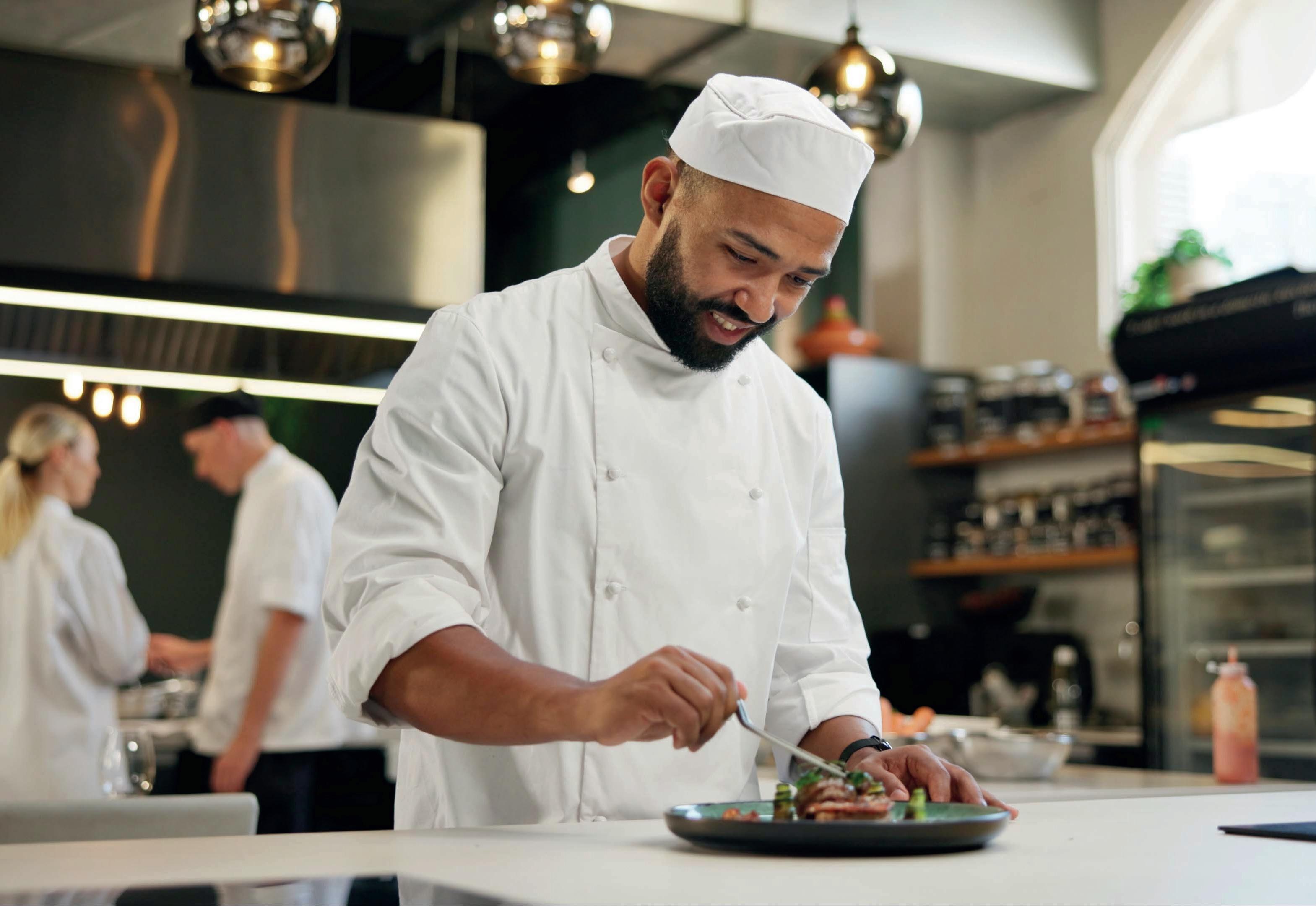
largely due to natural attrition rather than redundancies. We need to stabilise the sector and create the conditions for regrowth.
Allen: Our #TaxedOut campaign is a direct response to the £3.4 billion in added costs imposed on the sector in a single week after last year’s budget. We’ve taken a firm but fair message to government: this sector cannot continue to absorb more taxation. It’s time to recognise hospitality’s economic and social contribution and to act accordingly.
Allen, how do you see the industry evolving over the next five years, and what role will UKHospitality play?
Allen: One of the great things about this industry is its constant innovation. I couldn’t tell you what the next big idea will be, but I do know it will come from hospitality.
We’re the nation’s “third space”: where people connect, celebrate, and unwind. The sector is resilient, deeply embedded in every community, and a vital source of employment.
In five years, I hope we’ll have a fully developed training and career pathway that makes hospitality a first-choice career for young people, with parents proud to see their
children entering the industry.
Kate: And I’d like to see government recognition reflect that, acknowledging hospitality’s central role in driving footfall, shaping communities, and fuelling local investment. It’s time policy reflected our true economic importance.
Finally, can we expect any major breakthroughs soon?
Kate: The next big moment will be the Budget. I know it’s frustrating for businesses - during COVID there were 14 financial statements in 18 months, which was unprecedented. Normally, government moves much more slowly.
That said, we’re already seeing momentum around licensing reform. The government gave us just six weeks to draft proposals for deregulating late-night licensing, a remarkably fast turnaround. The aim is to have policy changes in place by autumn.
It won’t solve every issue, but it signals that government is listening and wants to support the sector. Small but meaningful reforms like these could free up businesses to focus on what they do best, serving their customers.

Stuncroft, our official uniform sponsor at the 2026 Hotel Magazine Awards, share details on how bespoke uniforms elevate the guest experience.
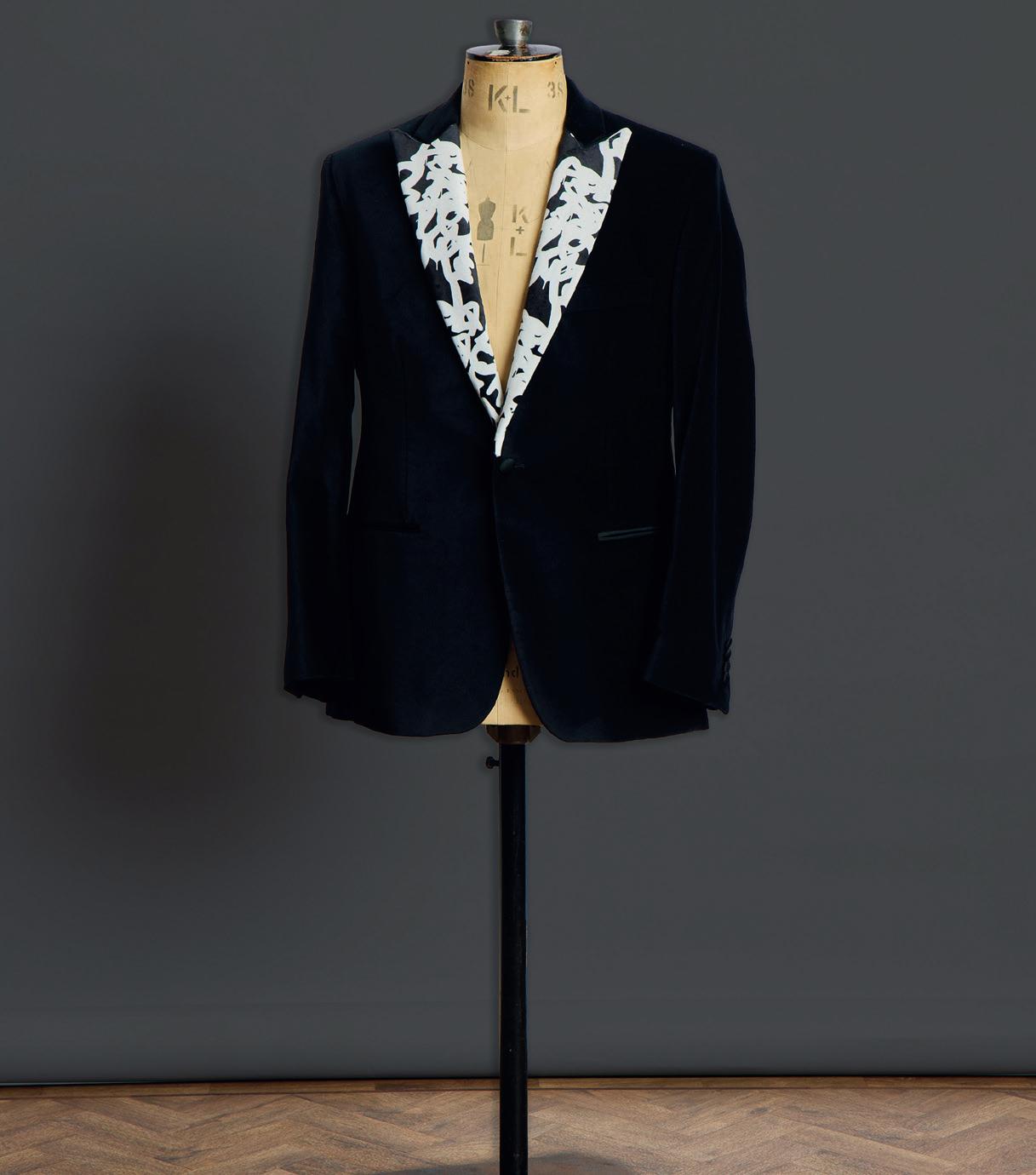
When guests walk through the doors of a luxury hotel, their first impressions are shaped not only by the architecture and interiors but also by the people who greet them. At the heart of this welcome is the staff’s uniform. Recently, Chateau Denmark partnered with bespoke uniform provider Stuncroft to reimagine their team’s wardrobe, ensuring that every guest interaction w
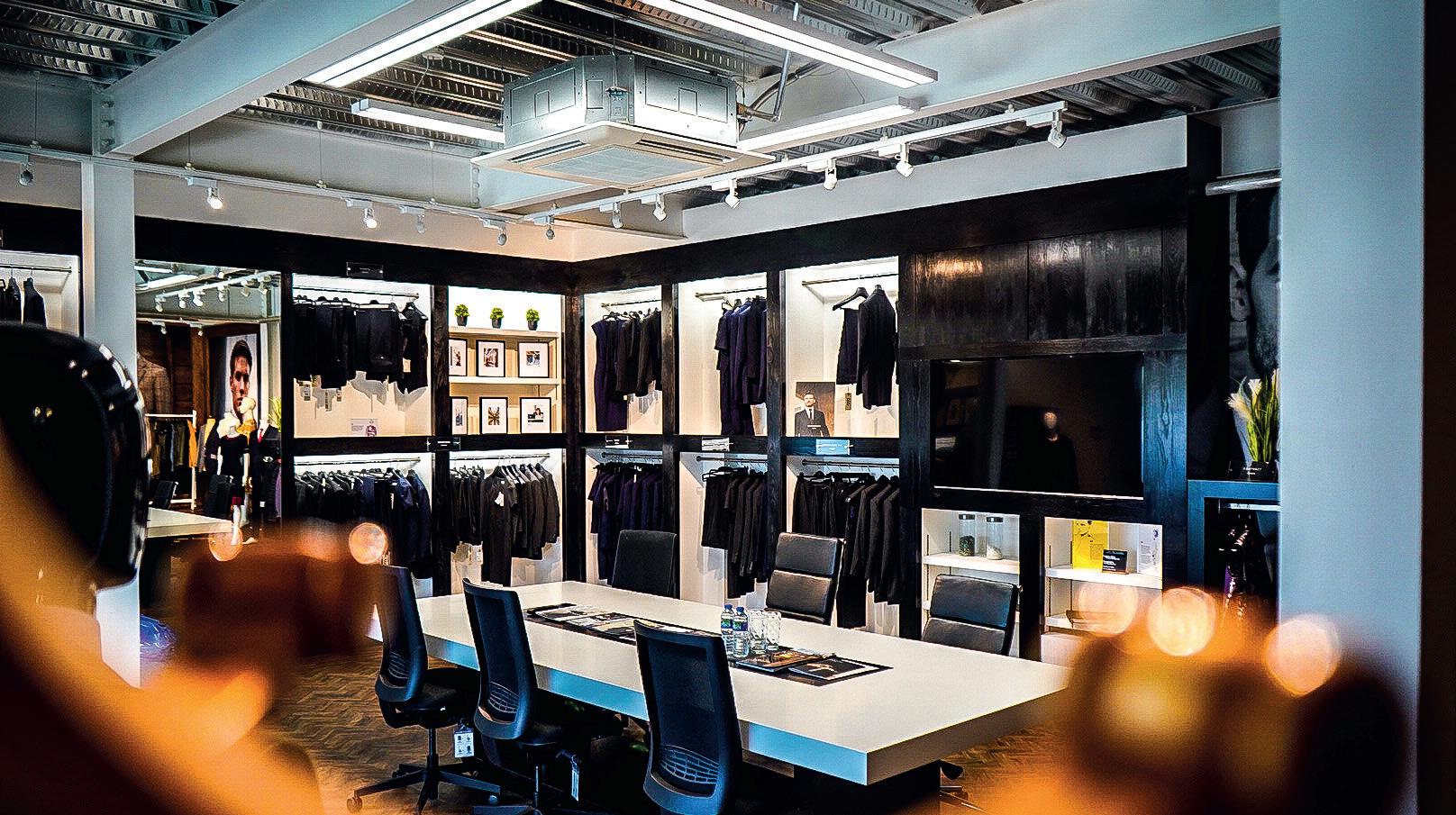
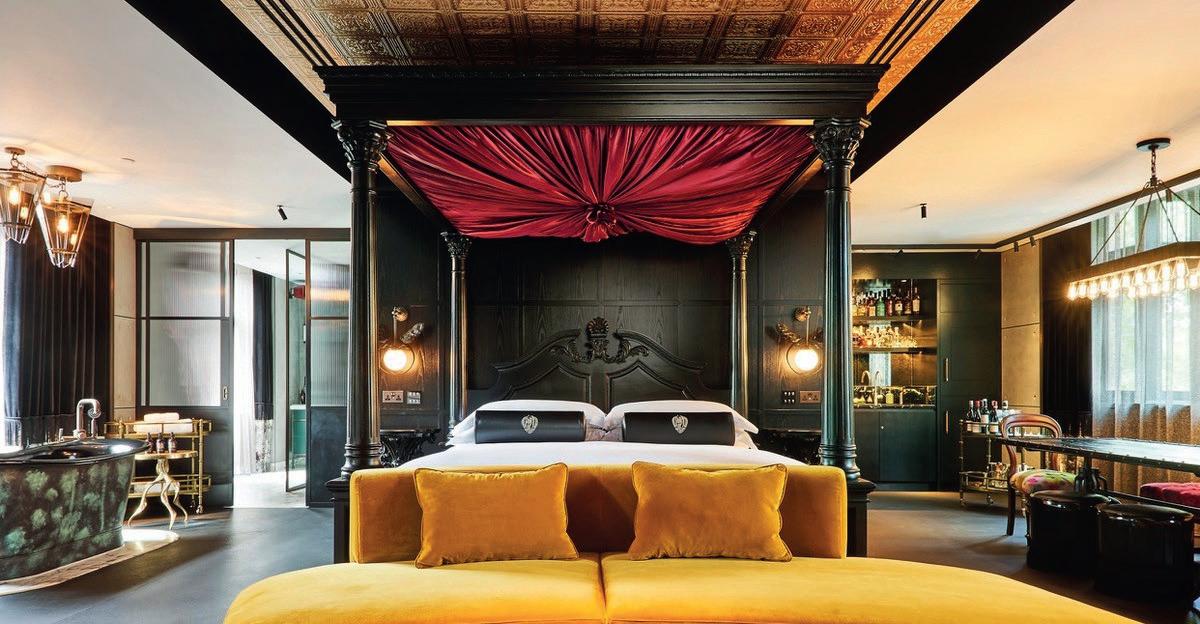
Chateau Denmark is a unique hotel located in Covent Garden, London, inspired by the cultural heritage of Denmark Street. It features 44 rooms and apartments set across 16 buildings, offering a blend of architectural elegance and a vibrant atmosphere. The hotel is known for its gothic and punk inspired decor, reflecting the area’s musical history, and boasts an award-winning bar called Thirteen.
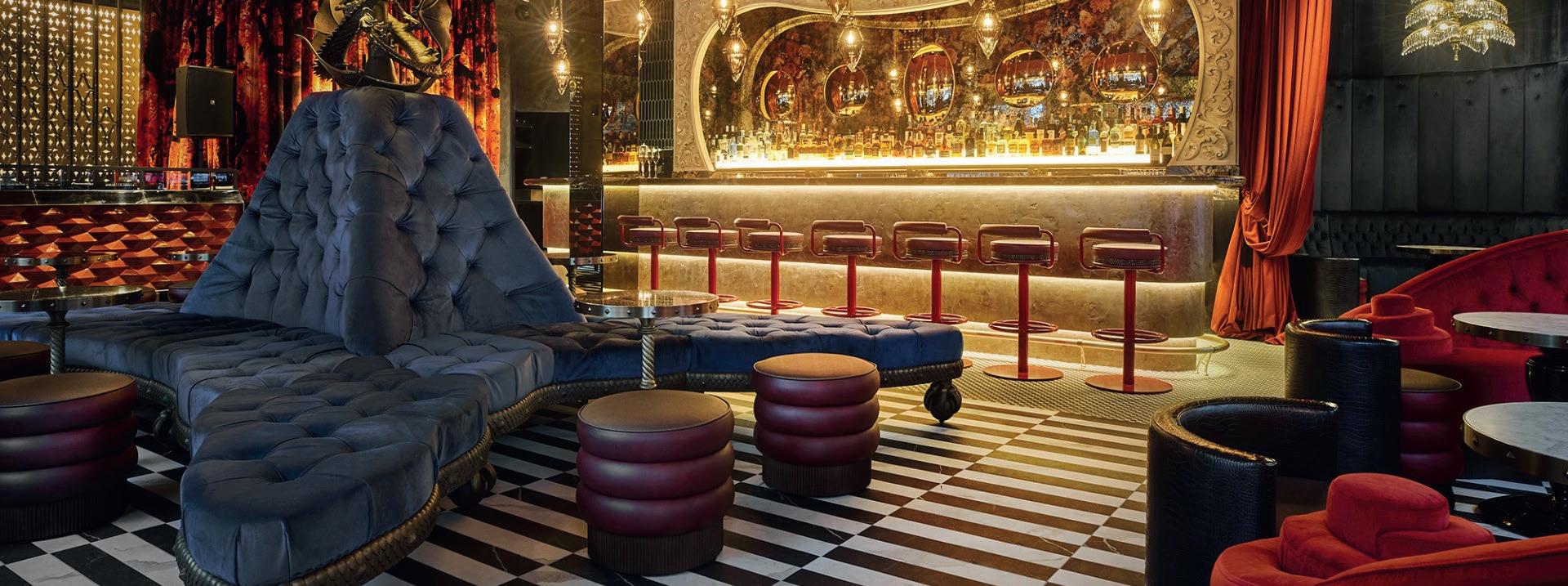
“Uniforms are more than clothing; they’re an extension of a brand’s identity.”
Designing uniforms for a luxury property is far more than selecting fabrics and cuts; it’s about creating an experience. From the very first meeting, the collaboration between the Chateau Denmark’s management team and the bespoke uniform specialists was anchored in dialogue and shared vision.
Working in collaboration with their customer Thamesmead, a focused, integrated distribution and manufacturing company specialising in the hygiene, janitorial, catering disposable, PPE, and workwear markets who welcomed the chance to branch out into the luxury hotel world of design.
Emile Russell, General Manager, Chateau Denmark explained, “As a unique offering in London, capturing our narrative in team outfits is a crucial one of our touchpoints. Doing things differently is how we position ourselves, so it was important to us to find a partner that we could channel our no half measures attitude with.”
The result was a collection of pieces that balanced elegance with practicality. Taking into count the day-today requirements of the staff, providing ease of movement, warmth and durability whilst looking elegant.
Uniforms are more than clothing; they’re an extension of a brand’s identity. The new pieces at Chateau Denmark reflect the property’s unique place in the luxury market. The sleek lines, carefully chosen art work, and premium
fabrics echo the hotel’s interiors and overall design language, creating a seamless brand experience from lobby to lounge. Chateau Denmark is known in the industry for its rich history, bold interiors and also as a hub of music lovers.
Every member of the team has become a walking ambassador for the hotel, reinforcing its values through style.
Choosing a bespoke provider ensures that uniforms are crafted. With expertise in fabric durability, fit, and aftercare, the provider ensures longevity and comfort. This careful balance between beauty and functionality supports the hotel operationally while maintaining brand integrity.
Stuncroft are a provider of corporate workwear across three sales channels, Ready to Wear, Made to Measure and Contract Solutions. Customers range from small security organisations, through to large hotel chains and international airlines, an everything in between.
For all enquiries please contact:
Nikki McKinley, Sales Channel Leader –Nikki.mckinley@stuncroft.co.uk
Michael Turner, Managing Director –michael.turner@stuncroft.co.uk
As AI reshapes how travellers find and choose hotels, independent hoteliers have a new opportunity: to master digital visibility while preserving the human touch. Clockwork Marketing explores how balancing technology and genuine connection is the key to standing out, and being chosen, in the age of Generative Engine Optimisation.
Here’s something interesting about today’s boutique hotel guest: they’re scrolling through their phone for hours to find you, but they’re choosing your hotel specifically so they can put that phone away. They’ve compared dozens of properties on Instagram. Asked ChatGPT for countryside recommendations. Read countless reviews. By the time they click ‘book’, they’ve been deeply connected to their screens. Yet what they’re really booking is an opportunity to disconnect from the grind of modern life.
This creates a real opening for independent hoteliers. The challenge isn’t choosing between digital and human— it’s knowing exactly where each belongs in the guest journey.
Being found online matters more than ever. Today’s travellers don’t just search Google. They’re asking AI systems like ChatGPT, Perplexity, and Google’s AI Overviews to recommend places. These tools work differently from traditional search. They don’t just list your website, they interpret what you offer and decide whether to recommend you.
This is what people are calling Generative Engine Optimisation (GEO). It sounds technical, but it’s actually quite simple. These AI systems look for the distinctive qualities that make you special: your story, your location, what kind of experience guests can expect. The very things that separate you from chain hotels are exactly what these tools want to understand and share for a personalised recommendation.
So being digitally visible isn’t about gaming algorithms, it’s about clearly communicating what makes you worth finding in the first place.
But here’s where smart hoteliers make the shift. Once that booking is made, it’s about using technology to enhance the experience, not dominate it. Digital check-
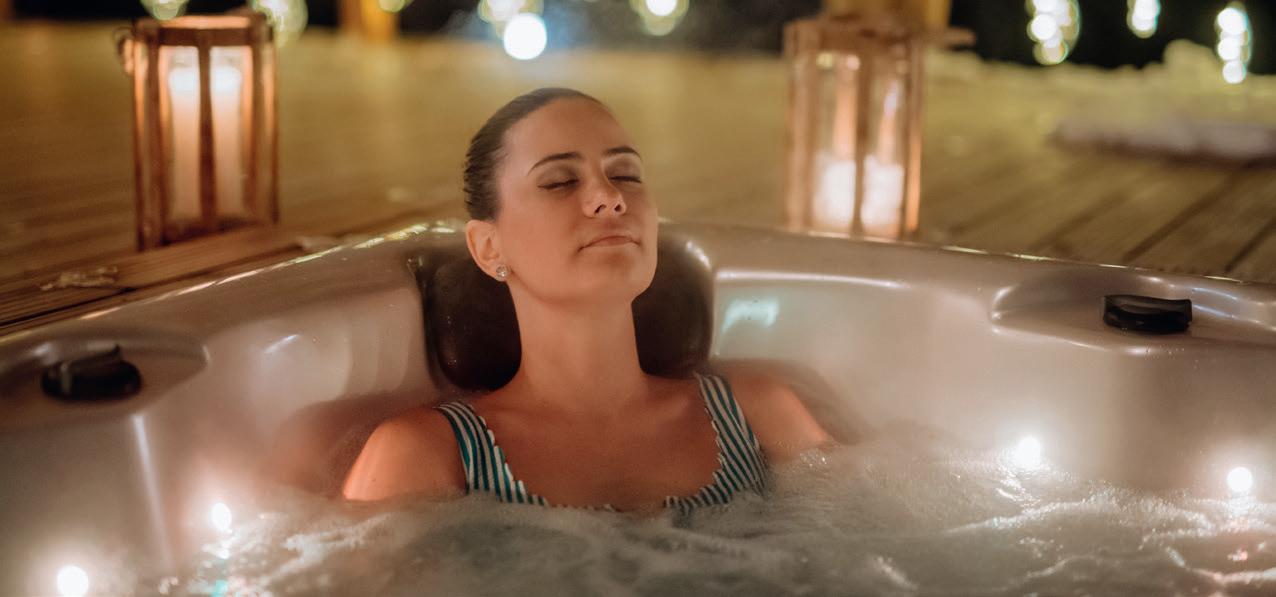
in that saves time. A simple message service for requests. Seamless controls that work intuitively. Technology can absolutely be part of the stay but it should feel effortless, not intrusive.
The key is understanding what guests are really seeking. They’ve been hyper-connected during their search, constantly switching between tabs and apps and reviews. What many want when they arrive is human connection. A genuine welcome. Service that feels intuitive rather than automated. The freedom to be present without the constant pull of screens and notifications.
Forward-thinking hoteliers understand this balance. They invest in being visible where modern travellers actually search, whilst protecting the very thing that brought those travellers to boutique hotels in the first place: human connection, intuitive service, and space to simply be present.
The digital world gets them through your door. What you do next? The genuine welcome, the thoughtful touches, the freedom to disconnect - that’s where boutique hospitality shines.
Need help to get your hotel found online? Let’s talk. www.clock-work.co.uk | 01803 872999

How United Fresh partners with hotels to deliver freshness, simplicity and sustainability at scale.
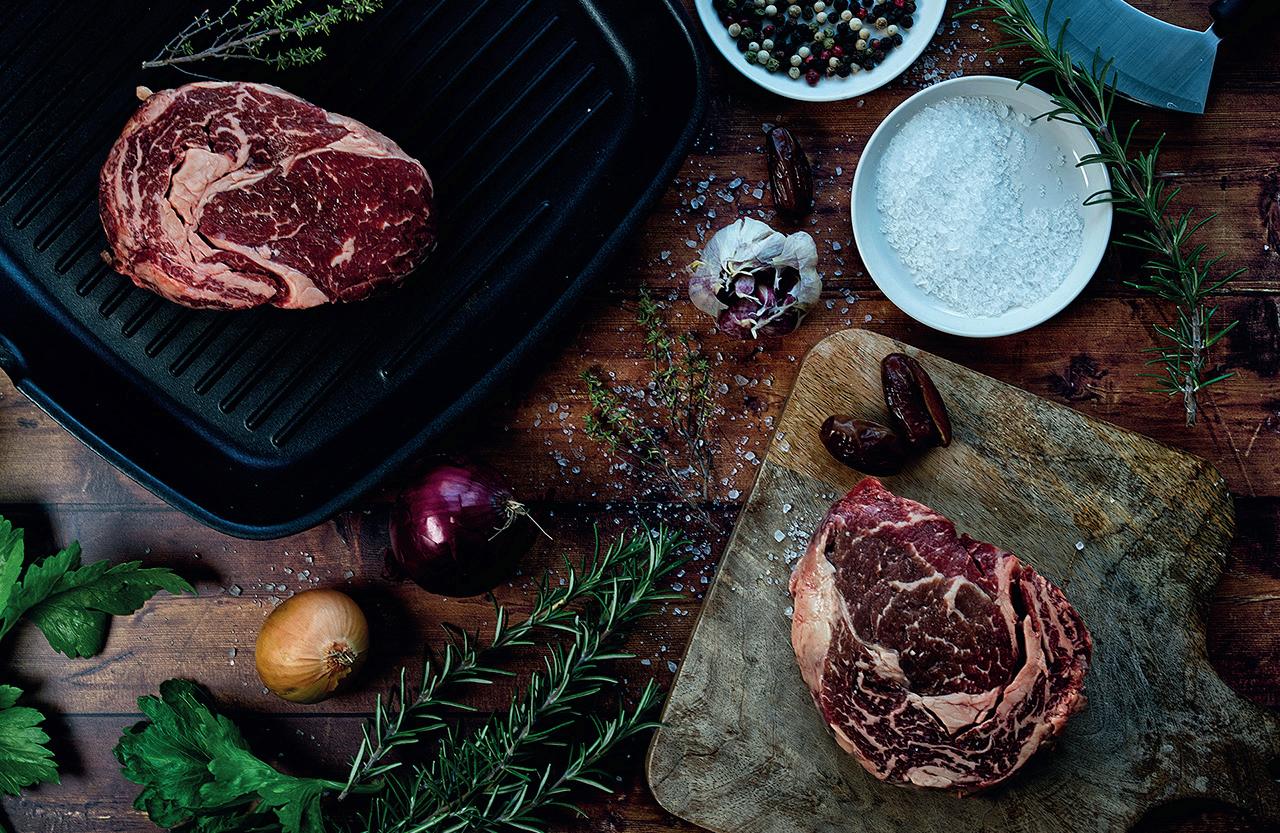
United Fresh has been supplying the UK hospitality industry with fresh ingredients for nearly two decades. But it’s not just what we deliver. It’s how we do it. For hotel kitchens under constant pressure to perform, our supply model offers something rare: quality produce, full traceability and streamlined service, all from a trusted national network of local suppliers.
We’ve created a model that balances scale with care. With suppliers located across the UK, from the Scottish Highlands to the Cornish coast, our network is built on long-standing relationships with growers, producers and artisans who share our values. Especially family-run businesses, rooted in their communities and committed to seasonal, responsible sourcing.
That local-first approach allows our suppliers to travel an average of just 29 miles from depot to kitchen. Fewer food miles mean lower emissions and fresher food. For chefs, it means produce that arrives at peak quality, ready to perform in high-end menus.
Operationally, we simplify everything. One invoice. One account manager. One price file. From fresh produce and
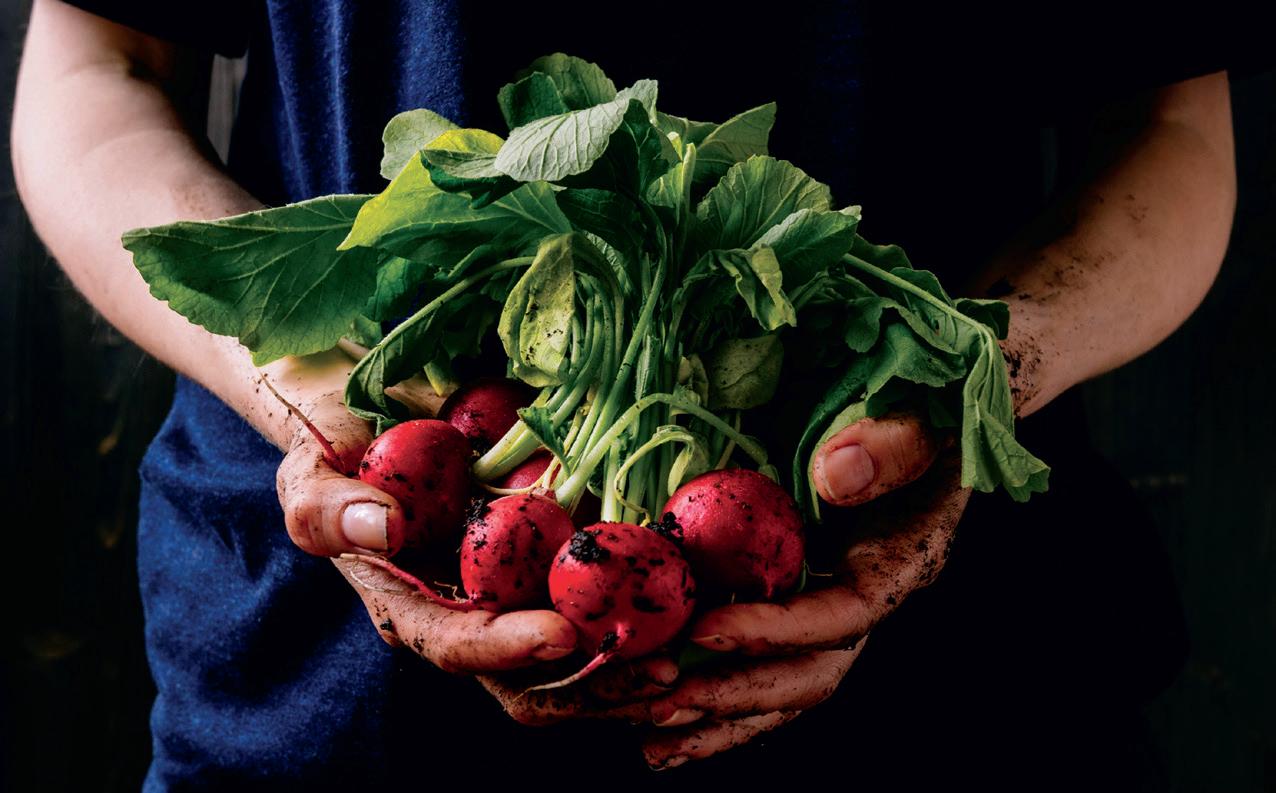
dairy to meat, seafood, bakery and ambient, our clients receive exactly what they need without the administrative burden of juggling multiple suppliers.
Traceability is built into every step. Our systems allow full transparency that supports food safety, compliance and the sustainability standards increasingly expected by hotel guests.
We also believe in giving back. Our Vegucation programme supports schools and communities, promoting healthy eating, seasonal awareness and appreciation for British-grown produce. We extend the same learning to chefs, encouraging creativity and confidence in sourcing.
As pressures grow around sustainability, efficiency and menu innovation, our approach offers stability and inspiration. Many of our hotel clients have been with us since the beginning and continue to see us as an integral part of their operations.
At United Fresh, we don’t just deliver food. We deliver confidence, consistency and care.
To find out how we can support your kitchen, visit www.unitedfresh.co.uk
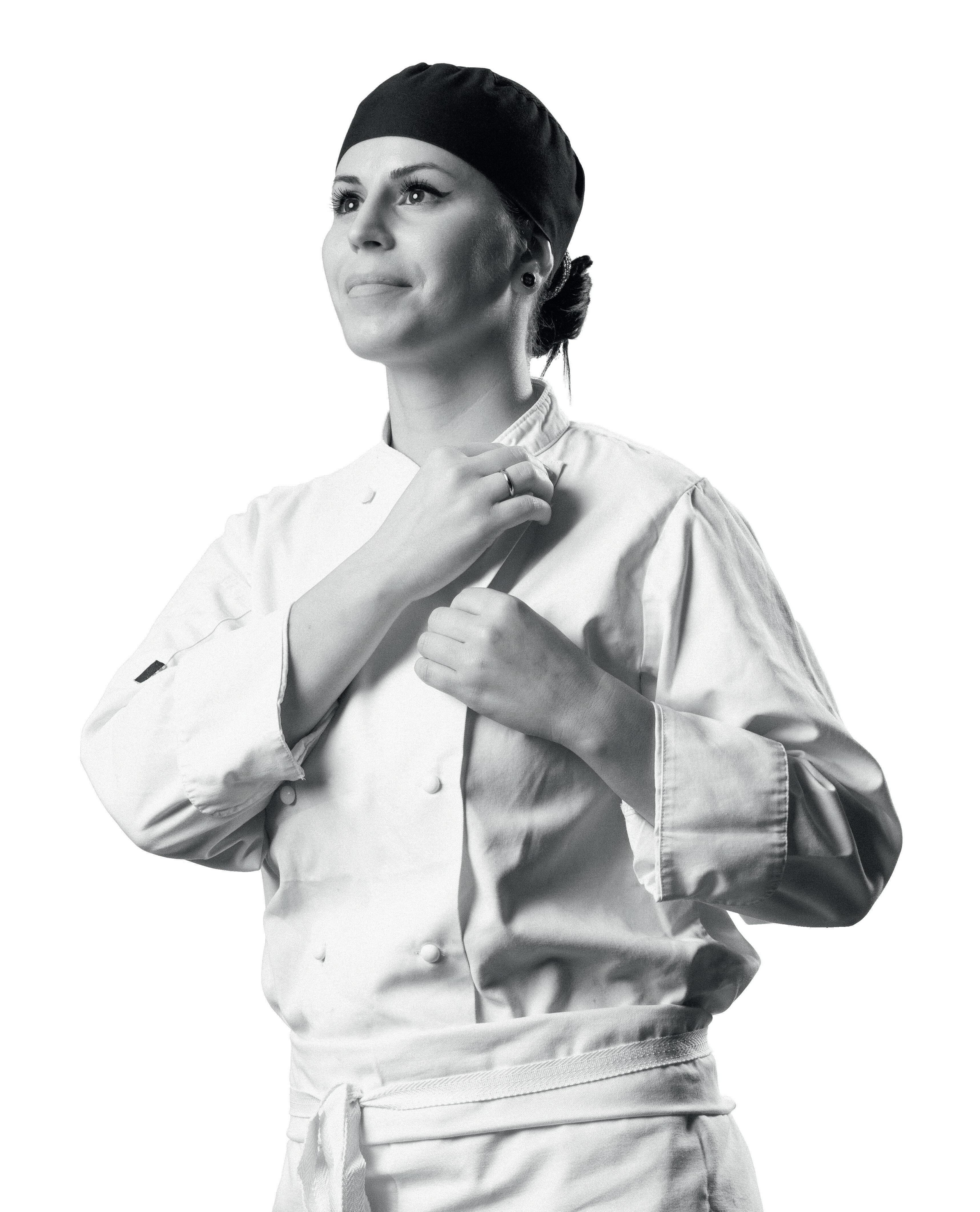
Stepping into 2026 with a growth mindset, by Jane Pendlebury, CEO of HOSPA.
As 2026 draws near, it’s a timely moment for hospitality professionals to consider the year ahead. The process of doing so reminds me of one constant that remains – our greatest asset continues to be our people. Whether leading strategy or delivering daily excellence, it’s our teams who drive the success of our industry.
And in a sector shaped by rapid change – from evolving guest expectations to the integration of new technologies – career development has never been more essential. At HOSPA, we’ve long championed professional development as the foundation for individual and collective growth. In fact, research from Deloitte found that 94% of employees would stay longer at companies that invest in learning. As we progress into a new year, this is something hospitality can’t afford to ignore.
Our sector faces ongoing challenges, from inflation and skills shortages, to increasing customer demands. But these hurdles also present a powerful opportunity to invest in upskilling and mentorship, as well as leadership development to equip the professionals in our sector to meet today’s demands and prepare for tomorrow.
That’s why, through our Professional Development (PD) programme at HOSPA, we continue to create opportunities for hospitality professionals to enhance their expertise and build confidence. Under the guidance of Janel Clark, our programme has expanded to include 11 courses covering everything from finance and revenue management to commercial restaurant and short-term rental management.
Three particularly popular courses include:
• Short-Term Rental Management – Offering a strategic overview of this fast-growing segment, with tools to navigate platforms like Airbnb and evolving guest behaviours.
• Revenue Management – Helping professionals optimise pricing and boost profitability while maintaining exceptional guest service.
• Commercial Restaurant Management – Equipping leaders with the tools to tackle staffing, service delivery and cost control in competitive F&B environments.
Importantly, these courses are not just for senior leaders. They’re designed for anyone in hospitality eager to sharpen
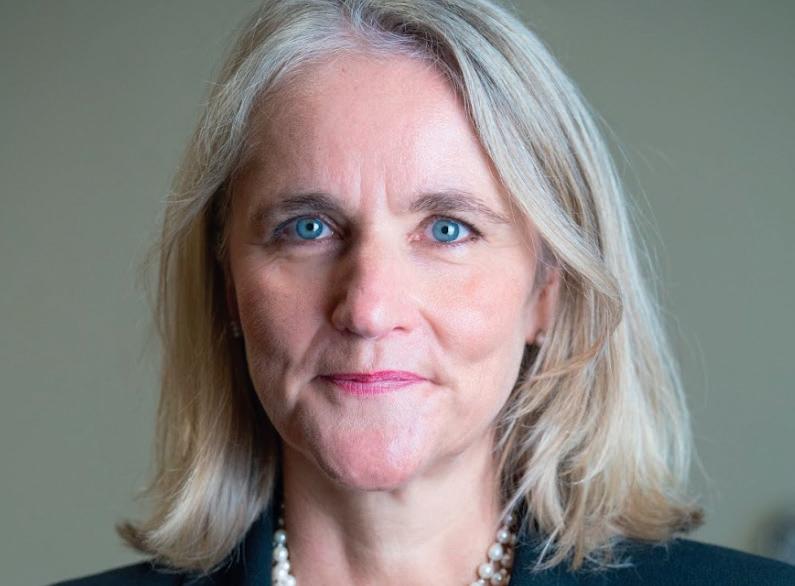
their skills and future-proof their career. Learning is for all, regardless of role or background.
Our impact speaks volumes. In the past 12 months, 128 learners have successfully completed courses, with a 95% overall success rate and 67% achieving a Distinction. These aren’t just numbers. They represent passionate professionals who are now better equipped to lead change and deliver excellence in their workplaces.
As we look ahead to 2026, I encourage every hospitality professional to embrace a growth mindset. Whether you’re new to the industry or a seasoned leader, there’s always more to learn. Our sector thrives on energy and adaptability – and staying ahead means staying educated. By investing in yourself and your team, you’re not just enhancing careers, you’re contributing to the future resilience of our industry. Let’s make 2026 a year of ambition and learning as we continue on a path of professional growth.
Jane Pendlebury is CEO of HOSPA – the Hospitality Professionals Association. For more on HOSPA’s professional development programmes, visit www.hospa.org.
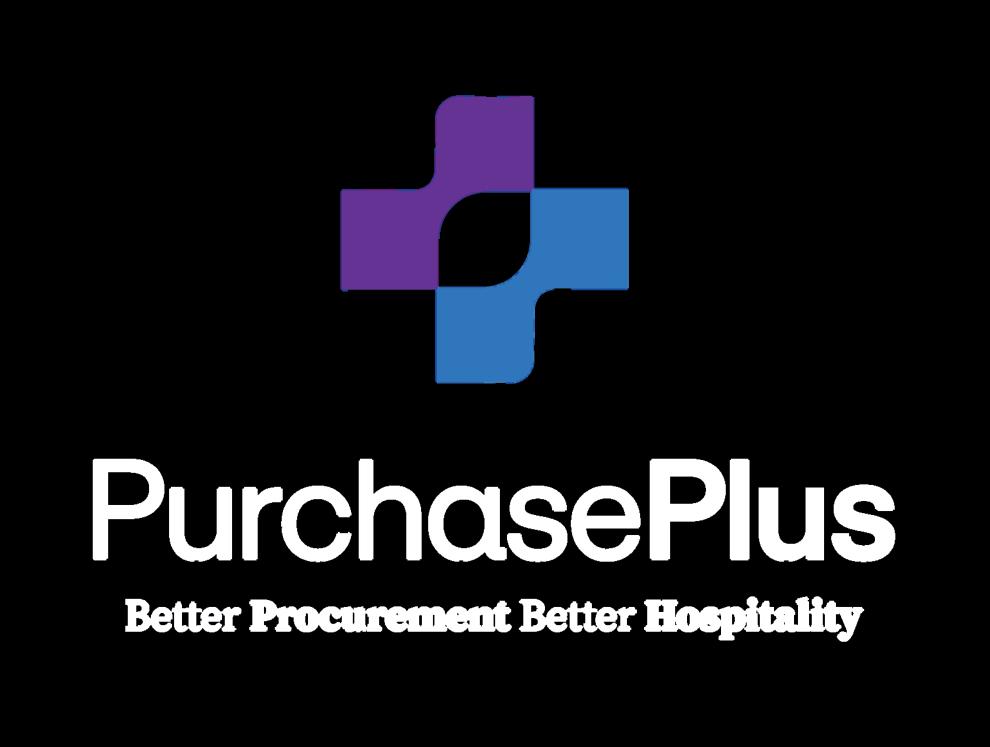
^THE PLATFORM BUILT BY PEOPLE WHO KNOW THE INDUSTRY BECAUSE WE’VE LIVED IT.^
by Malcolm Jull, Chief Executive Officer
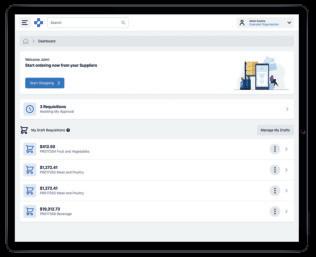
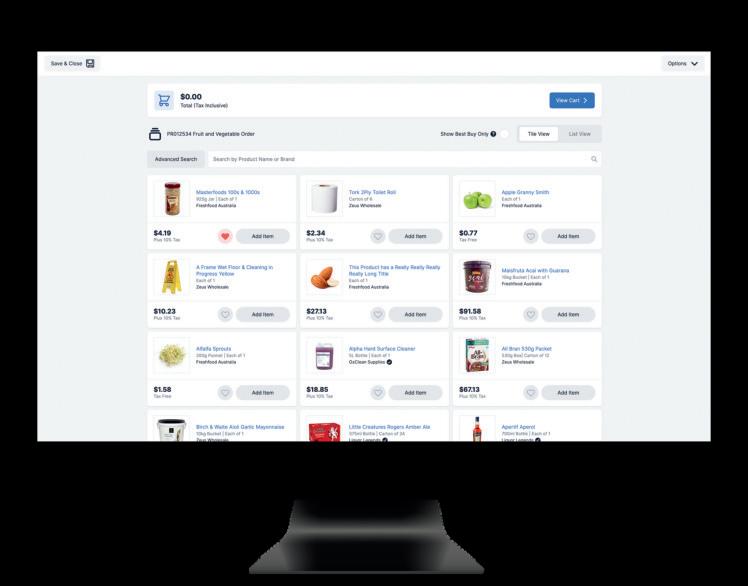




As the heart of any hotel operation, housekeeping sets the tone for guest experience - long before a visitor interacts with reception or dines in the restaurant. This month, Hotel Magazine speaks with Lisa Williams, Director of Housekeeping at The Grand, York, who also serves in a national role with the UKHA. In this interview, she shares her journey, the innovations shaping today’s housekeeping teams, and her vision for a more sustainable and celebrated future for the profession.
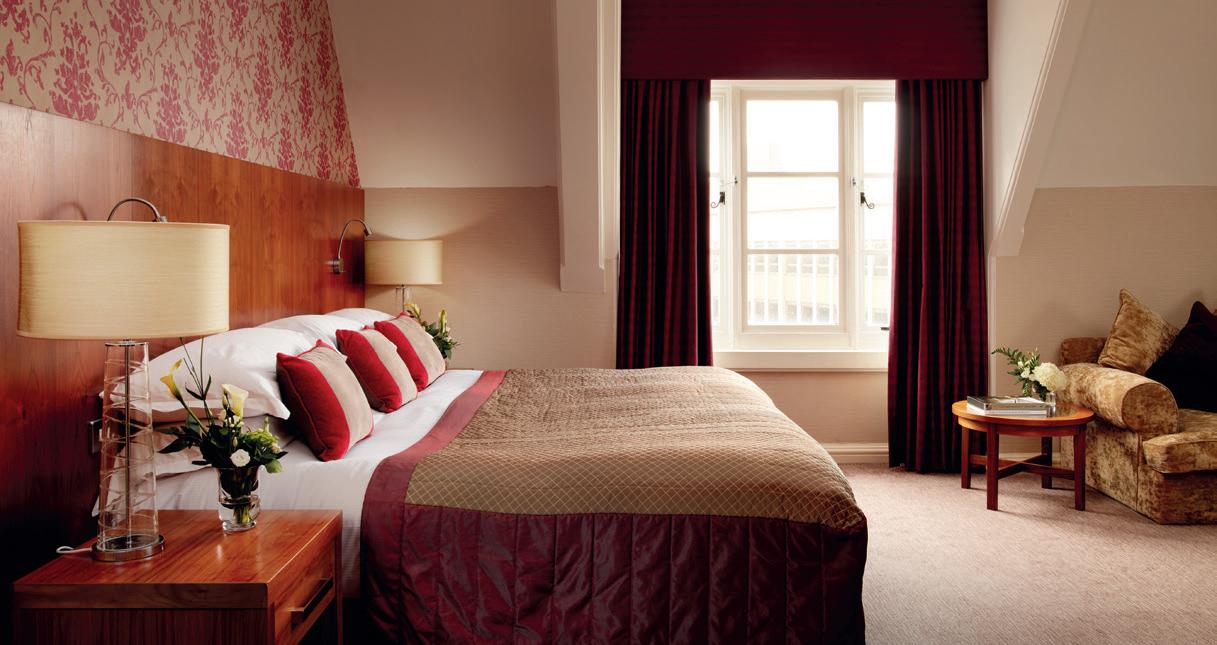
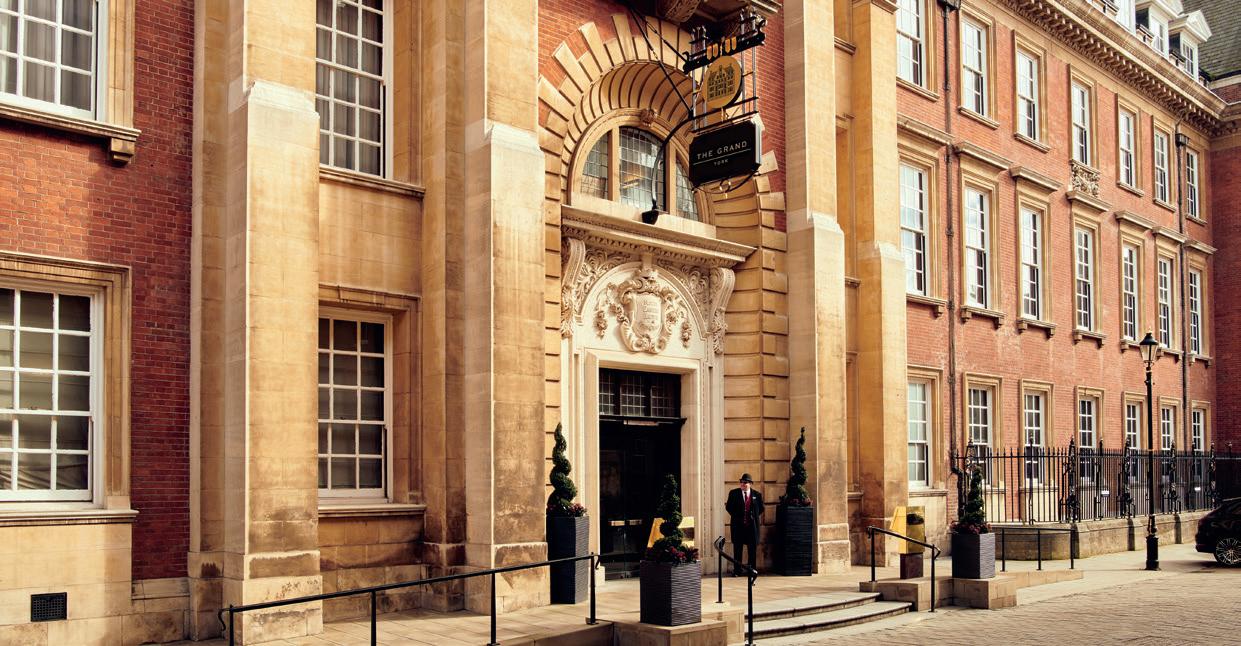
Could you share your journey to becoming Director of Housekeeping, and key experiences that shaped your leadership style?
I started my career in housekeeping as a part-time room attendant while studying. What began as a job soon became a passion. I was captivated by the behind-thescenes precision that makes a hotel run smoothly. Over time, I progressed through roles first as a room attendant then supervisor, then assistant manager, and eventually department head.
A defining moment in both my personal and professional life came when I was diagnosed with throat cancer. It was a life-altering experience, but I’m proud to say I’m now in remission.
Throughout my treatment and recovery, the
housekeeping community both within my hotel and the wider circle of peers was incredibly supportive. That sense of unity and purpose kept me going. The structure of the job, the camaraderie of my team, and the deep pride in our work gave me strength during a very difficult time. That experience reinforced my leadership philosophy: lead with empathy, be present, and never underestimate the impact of support and solidarity in a team.
What are some lesser-known tips or efficiencies you’ve discovered that maintain high standards while keeping your team motivated?
One of the biggest game-changers has been giving staff consistent room or area assignments. When people feel
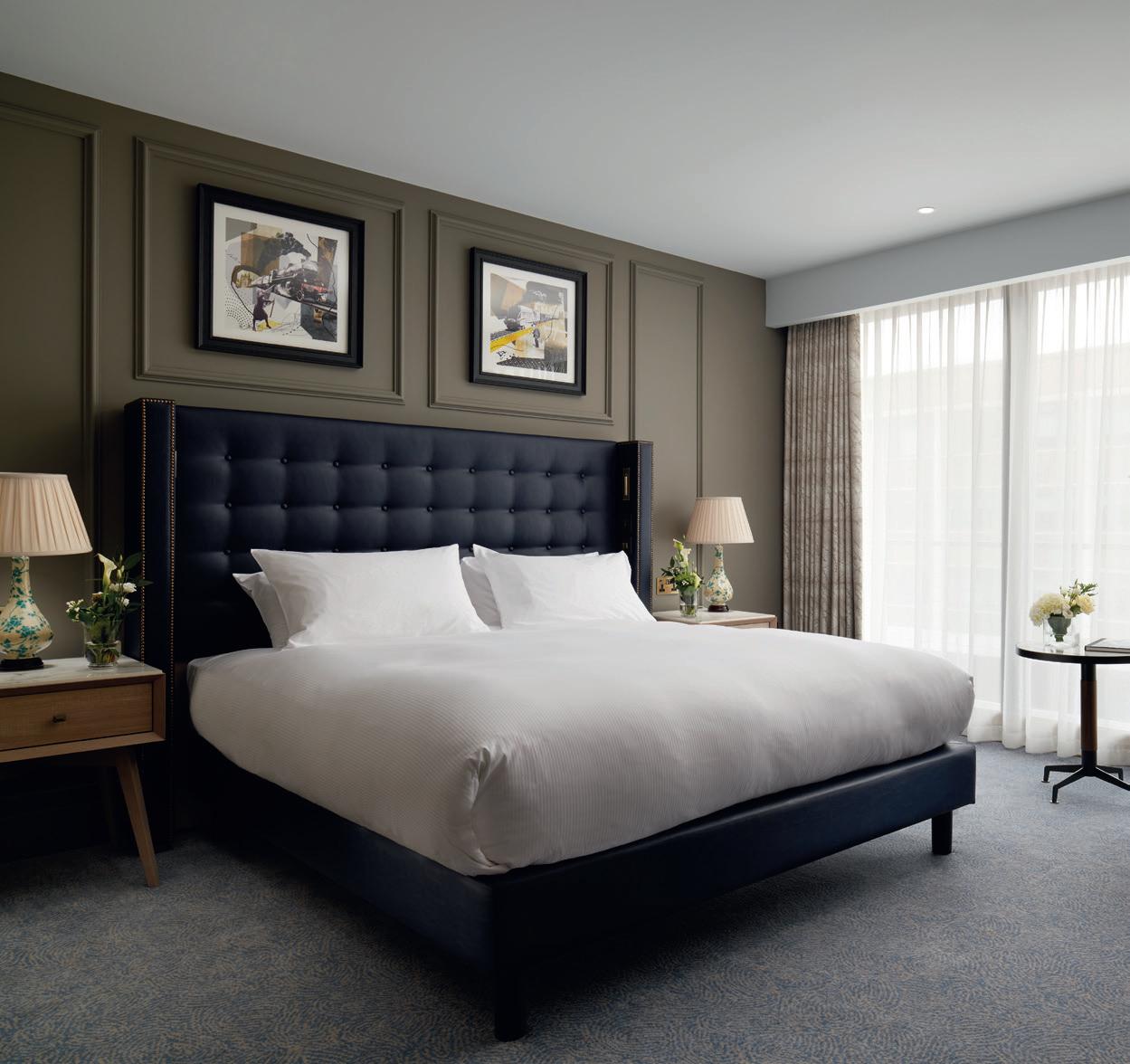
ownership over a space, their attention to detail improves naturally. We also use visual SOPs (standard operating procedures) with photos and videos not just text which helps streamline training and keeps standards uniform.
For motivation, we focus on recognition and involvement. Our team members contribute ideas during our monthly improvement meetings, and we celebrate small wins regularly. Something as simple as a handwritten thank-you note or spotlighting someone’s work at a morning briefing can lift spirits and create lasting motivation.
How has technology changed housekeeping in recent years? Are there any tools you now consider indispensable?
Technology has transformed the way we operate. We use a cloud-based housekeeping management system where room status updates, task assignments, and guest requests are handled in real time via tablets or mobile devices. This has significantly reduced delays and miscommunication with front office and maintenance.
We also rely on tools like UV lights for cleanliness audits, digital inventory tracking for linen and supplies, and even AI-powered scheduling tools that help us better allocate staff during peak times. These tools aren’t just helpful, they’re now essential to maintaining efficiency and consistency.
What advice would you offer someone aspiring to a long-term career in hotel housekeeping or hospitality management?
First, be proud of the work. Housekeeping is one of the most critical departments in any hotel without it, the guest experience falls apart. Learn the basics thoroughly, ask questions, and be open to feedback. Also, build strong interpersonal skills. Hospitality is about

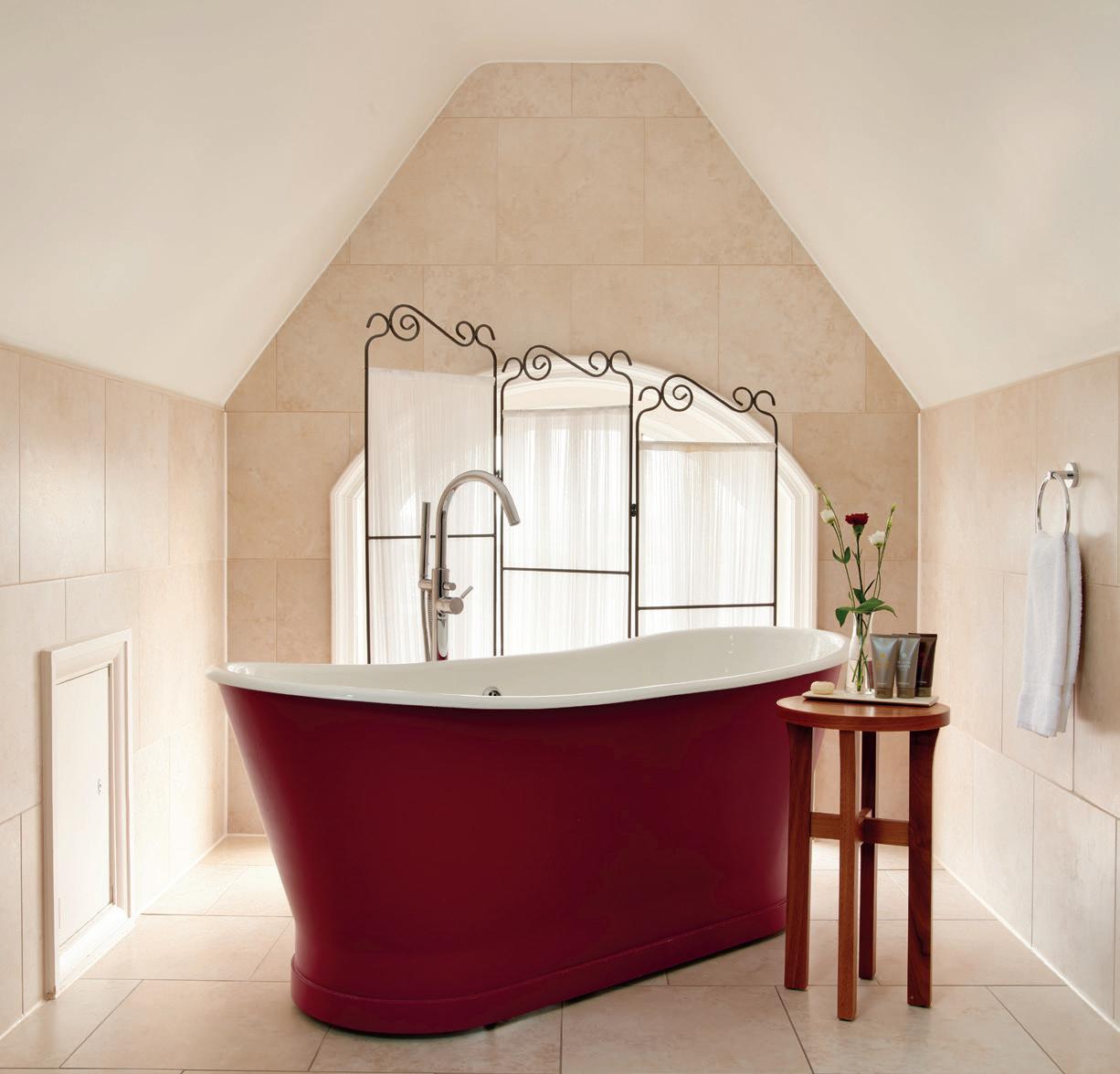
people, and the ability to manage relationships whether with guests or colleagues is just as important as technical skill. Lastly, be patient with your growth. A fulfilling career in hospitality comes from consistency, curiosity, and a desire to serve.
With ongoing staffing challenges and shifting guest expectations, what strategies have you found effective in maintaining service quality and team morale?
We’ve had to become more flexible and resilient. Crosstraining our team has been vital it allows us to pivot when needed without sacrificing quality. We also introduced micro-shifts and more family-friendly scheduling to improve staff retention.
Guest expectations have also evolved - they want sustainability, personalisation, and cleanliness at an even higher level. We’ve responded by training our team not just on tasks, but on the “why” behind them. When team members understand the bigger picture, they’re more engaged and empowered to deliver exceptional service.
What would you like to see evolve in hotel housekeeping over the next 1–3 years?
I’d love to see a stronger industry wide focus on sustainability in housekeeping more use of refillable amenities, energy-efficient laundry systems, and ecocertified products. It’s not just about cost savings; it’s about responsibility.
Equally important is recognition. Housekeeping professionals often work behind the scenes, but they are essential to a hotel’s success. I’d like to see more opportunities for training, career advancement, and public acknowledgment of their contributions. The role deserves more visibility, respect, and investment.
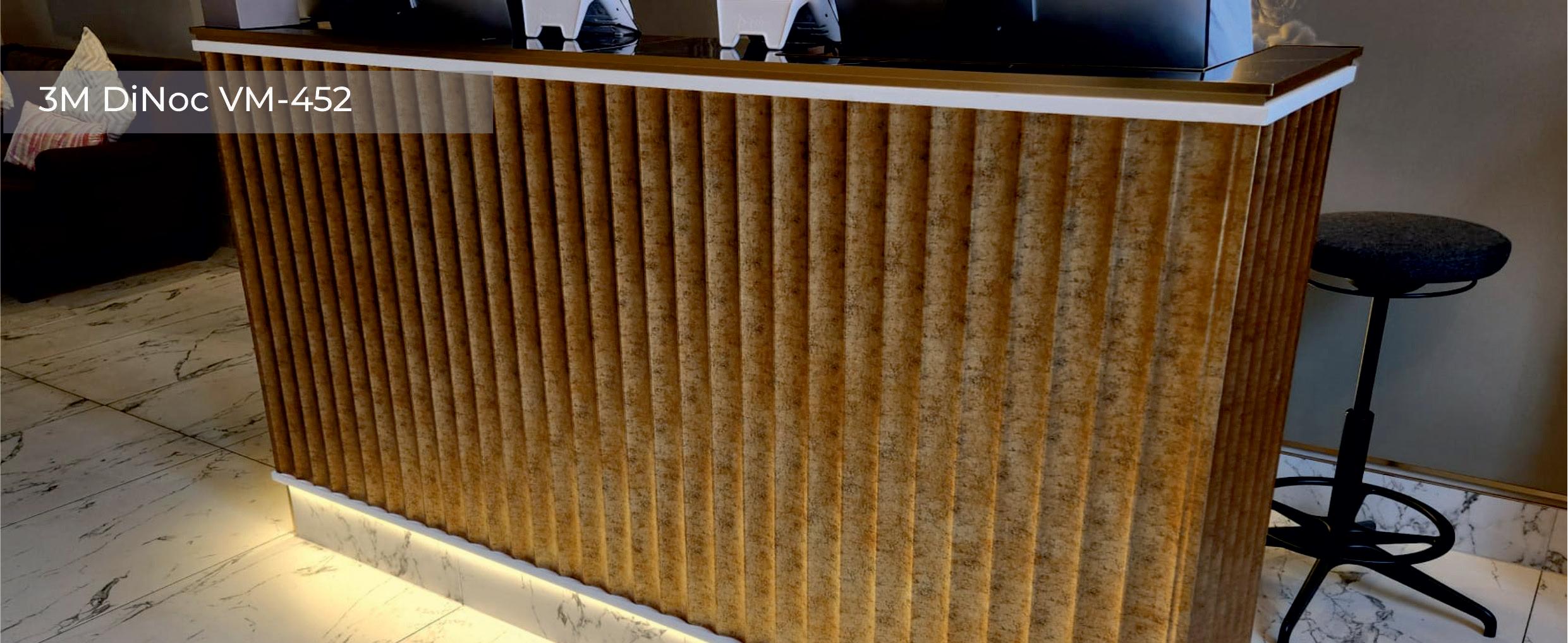
In an era where discerning travellers expect more than just comfort, hotels are constantly seeking new ways to elevate the guest experience. Enter Re:surface, a forward-thinking brand that blends refined aesthetics, durability, and sustainability into every project. From boutique gems to five-star resorts, Re:surface has become the partner of choice for hoteliers who want to stand out.
What sets Re:surface apart is its philosophy: every surface tells a story. Whether it’s a unique lobby, a calming spa, or a statement suite, the brand reimagines interiors with a balance of design innovation and functional performance. The result is a seamless harmony between form and function, offering spaces that not only look exceptional but also endure the demands of hospitality environments.
Re:surface specialises in the art of transformation - reviving tired, dated or worn surfaces and restoring them to a new chapter of life. Using precision-applied architectural films and wraps, the brand brings fresh elegance to doors, walls, wardrobes, and case goods without the disruption of traditional refurbishment. The process is quick, quiet, and remarkably refined - often completed while the rest of the hotel continues to operate as usual.
For designers and hoteliers alike, the creative freedom is immense. Re:surface’s finishes range from marble and metallics to soft woods, leathers and bespoke textures, each crafted to evoke emotion and elevate atmosphere. Every detail is chosen to enhance the guest experience, creating spaces that feel renewed and memorable.
For hoteliers, the beauty of Re:surface lies not only in the finish, but in the philosophy of renewal. By enhancing what already exists rather than replacing it, properties avoid the waste, expense, and downtime of conventional renovations. Interiors regain their lustre with minimal intrusion - a
thoughtful alternative that keeps rooms in service and aesthetics intact.
This considered approach extends the life of fixtures and fittings while maintaining the quality and feel expected of premium hospitality brands. It’s a modern solution that balances commercial sense with design integrity, an investment in longevity, not just appearance.
Today’s guests are increasingly conscious of the choices behind the beauty they see. Re:surface meets that awareness with quiet confidence, crafting its process around principles of responsibility and respect for the environment.
By reimagining rather than replacing, Re:surface helps hotels reduce waste and make the most of their existing materials - a refined form of sustainability that complements the luxury it serves. Its production methods and materials are chosen for durability and low environmental impact, ensuring that every project feels as good in principle as it looks in practice.
In a world where elegance and ethics must coexist, Re:surface provides a path forward , where sustainability enhances, rather than limits, design.
In hospitality, differentiation is everything. Re:surface empowers hotels to create interiors that leave lasting impressions - the kind of spaces guests photograph, share, and remember long after their stay. With a proven record of collaborations worldwide, the brand brings both creative insight and practical expertise, ensuring each project is delivered seamlessly and beautifully.
For hoteliers looking to future-proof their spaces, Re:surface is more than a supplier; it’s a creative partner.
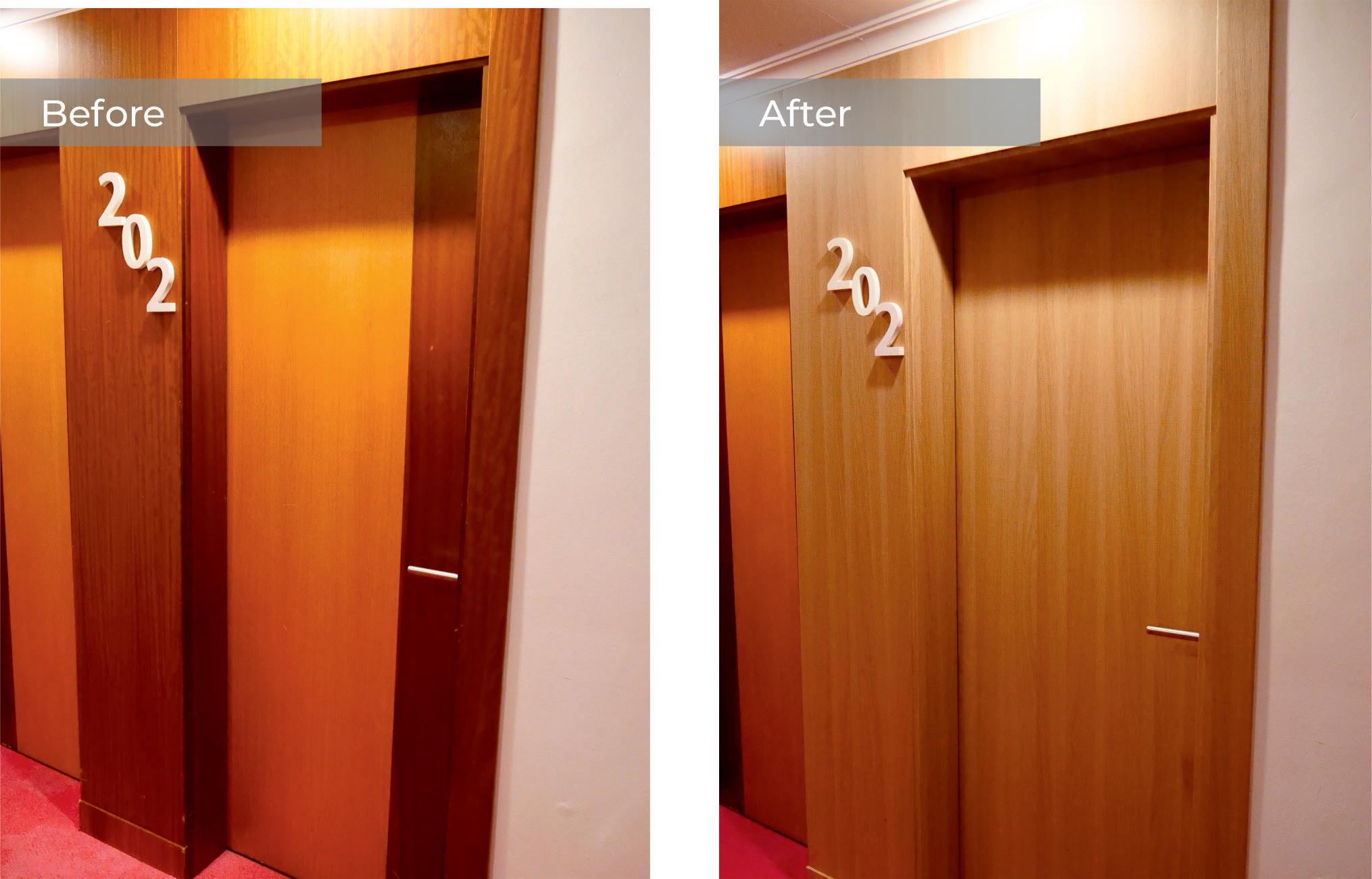
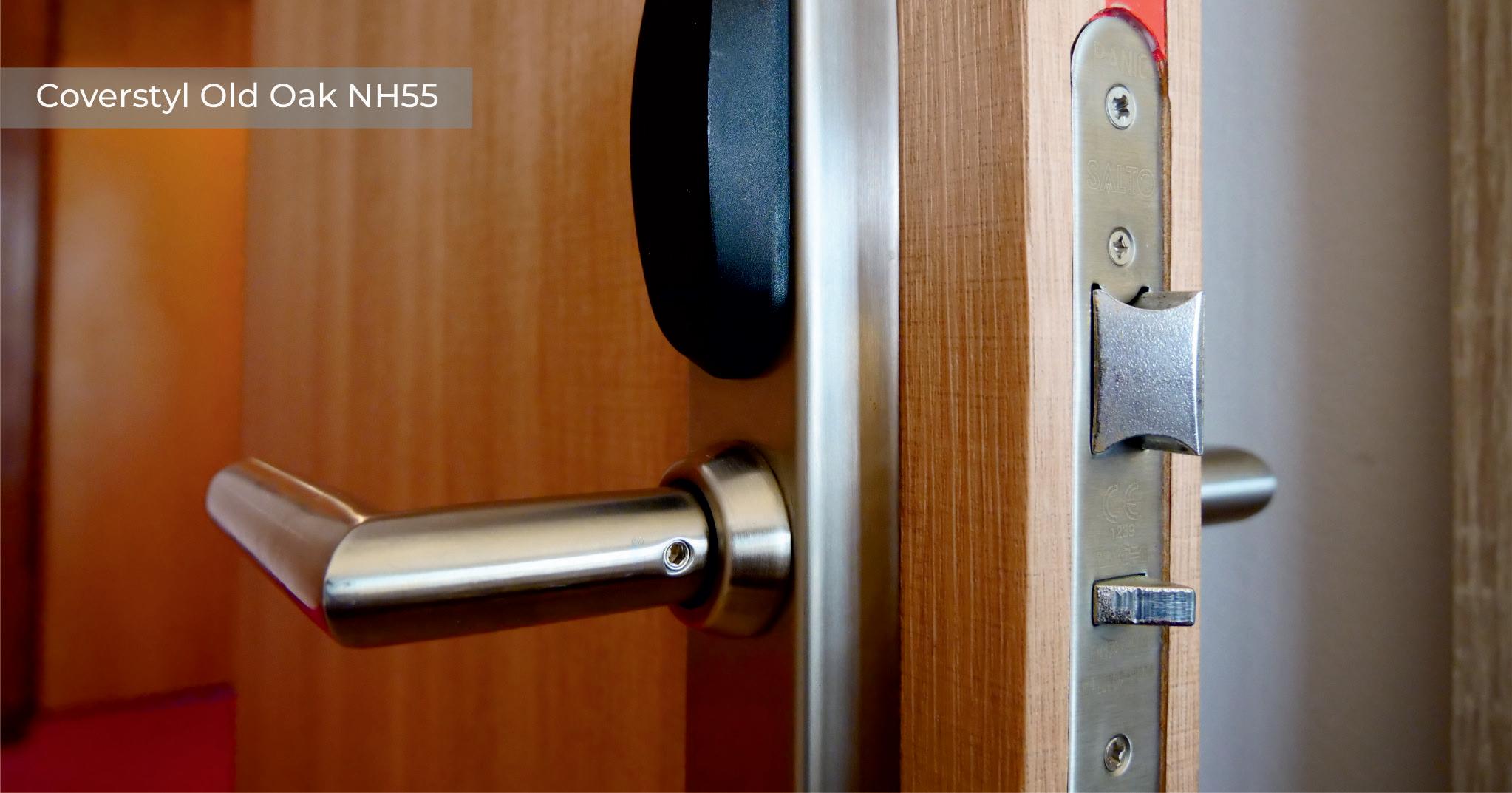
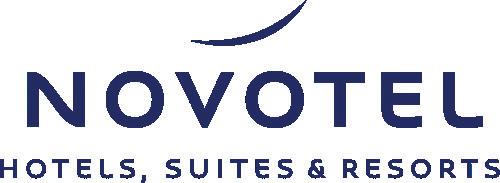


As the hospitality sector continues to rebuild, attracting and preparing new talent has never been more important. In this guest column, Kate Nicholls, Chair at UKHospitality, shares how the Hospitality Skills Passport, launched just six months ago, is already helping people gain essential entry-level skills, connect with employers, and build lasting careers in hospitality.
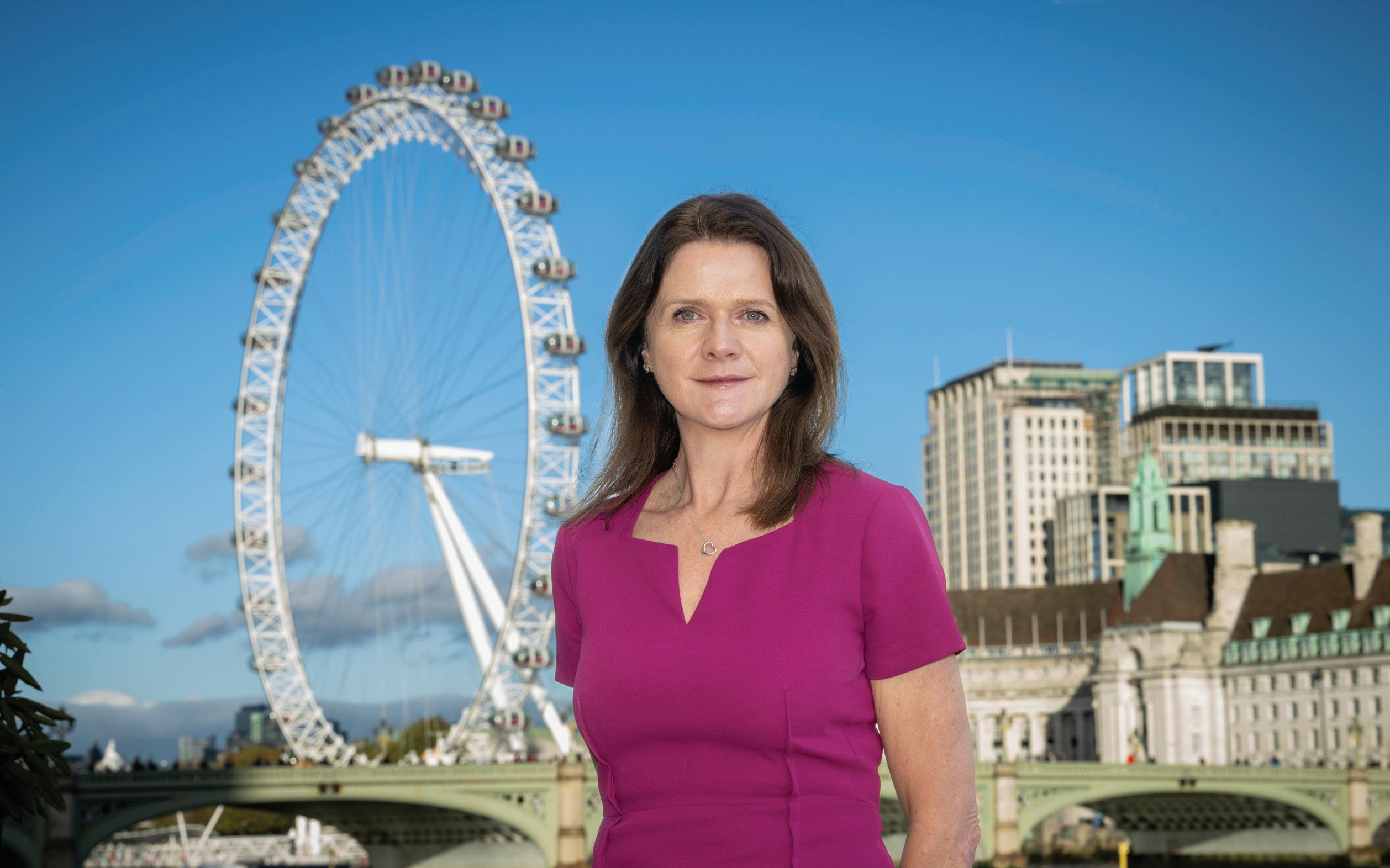
It’s just over six months since we launched the Hospitality Skills Passport, so now’s a good time for a progress report.
A quick reminder: the passport is a universal entry standard which, once completed, provides people
with a digital record of the entry level knowledge, skills and behaviours they’ve attained.
Because ours is an entry level industry with few barriers to joining, hospitality is ideally placed to help the Government with its aim of getting people from welfare
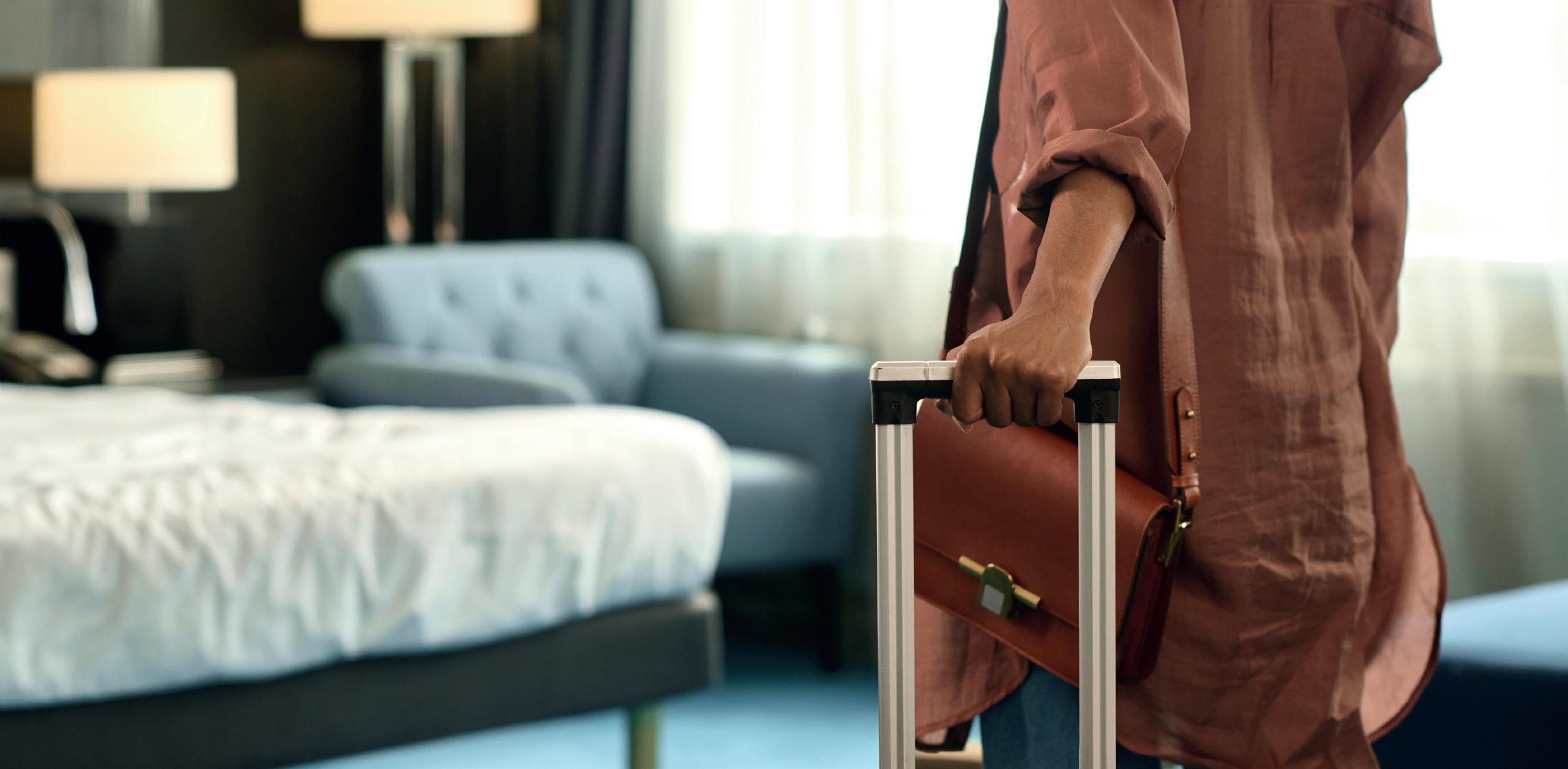
into work, and crucial in addressing the country’s NEET (Not in Employment, Education, or Training) challenges.
Introduced in May and integrated with the new Hospitality Sector-based Work Academy Programmes (SWAPs), 162 entrants have been awarded the passport.
Add to that almost 90 pending passport certifications, plus 305 more starts planned at programmes across Kent and in Blackpool, Brighton, Coventry, London, Torquay, Southampton and Eastbourne, and we’re off to a flying start.
Programmes are also due to come on stream in Birmingham, Bath, Liverpool, Manchester, Milton Keynes, Scarborough, Skegness, Reading and Gloucester, and in the counties of Cumbria, Norfolk and Suffolk.
All of this is with the involvement of more than 50 colleges and training providers, which deliver hospitality and catering qualifications. At the same time, newly set up apprenticeships are available at approved centres, with certification from national awarding body OCN London.
Crucially, Hospitality Skills Passport can be integrated with study programmes for 16 to 18-year-olds, entry and Level 1 qualifications, plus Level 2 hospitality apprenticeships delivered by approved centres.
But we haven’t stopped there, and we’re exploring integration with the induction and entry training processes of large national hospitality businesses, which would become approved industry providers of the passport.
Looking further ahead, there may be opportunities to include the passport in prison, care and armed forces leaver programmes delivered by approved centres certified by OCN London and UKHospitality; while evolution of the passport involves further courses, qualifications and apprenticeships being added to the digital passports held in people’s smartphone wallets.
Data about who’s joining our industry will help shape future approaches to communications, marketing and planning, thus strengthening hospitality’s attraction, retention and progression strategies.
This happily coincides with the recent publication of the Post-16 Education and Skills White Paper, which describes the Hospitality Skills Passport as ‘being tested with JCPs [Jobcentre Plus] to enable skills and competencies to be documented, endorsed and transferred between employers and sectors. Proof of training and work experience is particularly valuable for the unemployed’.
And then there’s this endorsement of the passport approach in the Greater London Authority’s recently launched London Inclusion Talent Strategy document: “Skills Passports are industry-recognised credentials that make it easier for employers to identify people who are ready to work.
“We will work with industry representatives to understand how existing successful models that are being used in the hospitality sector can be expanded further.”
Six months in, and the Hospitality Skill Passport is already proving its worth, with operators able to recruit from a pool of job-ready candidates trained to an industry standard and cut their onboarding and early-stage training costs.
And for those interested in becoming a training provider delivering the Hospitality Skills Passport programme, but not yet approved by OCN London, there’s a lighttouch process to get you on board. More details can be found here: https://ocnlondon.org.uk/our-products/ukhospitality-skills-passport/
Kate Nicholls, Chair, UKHospitality


